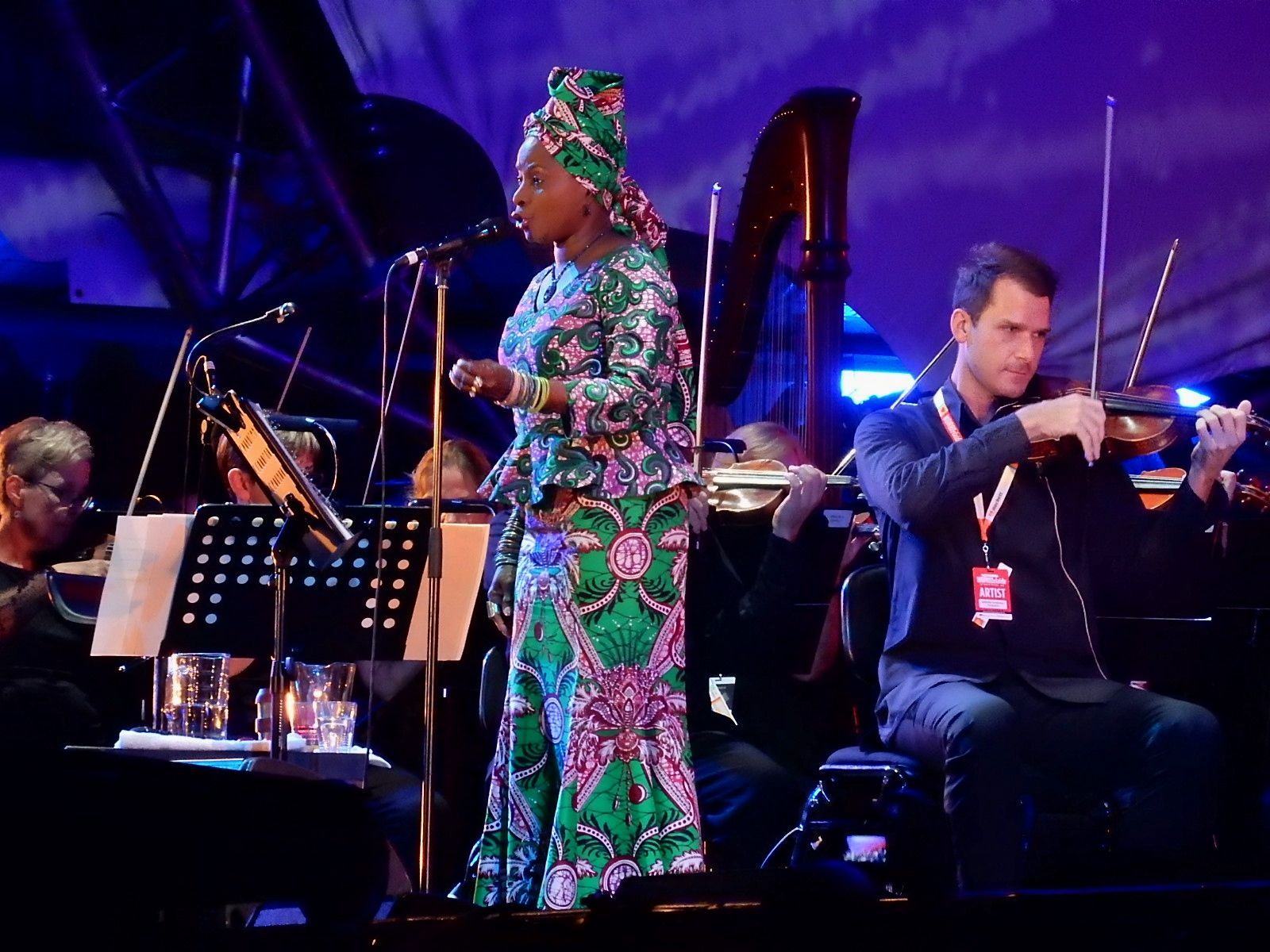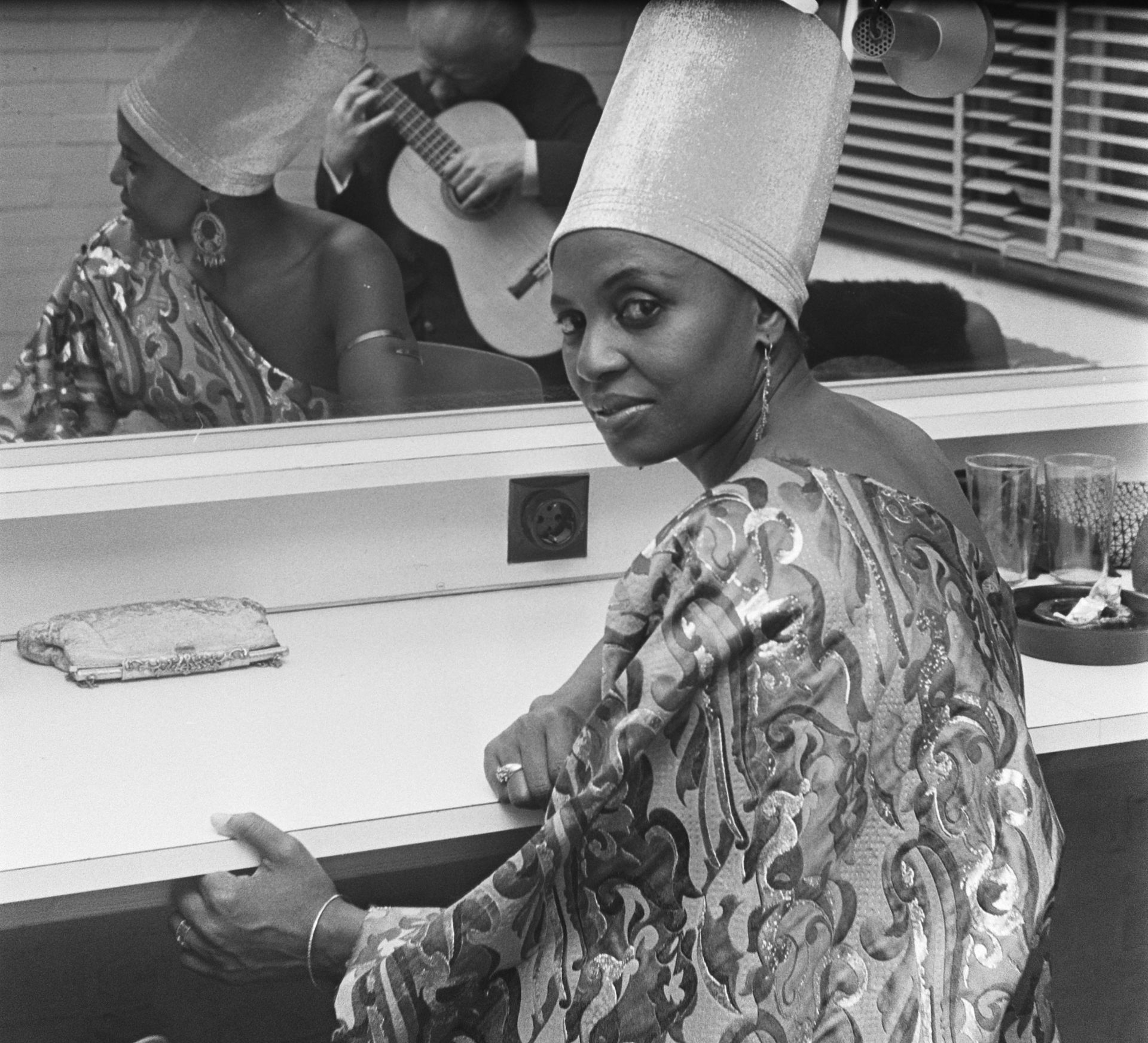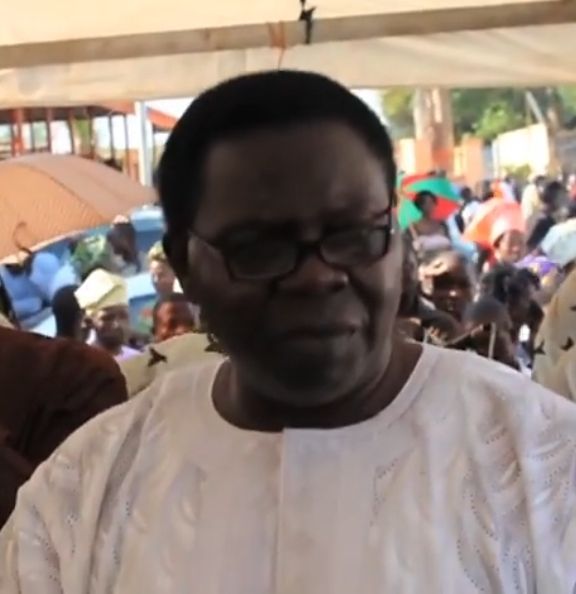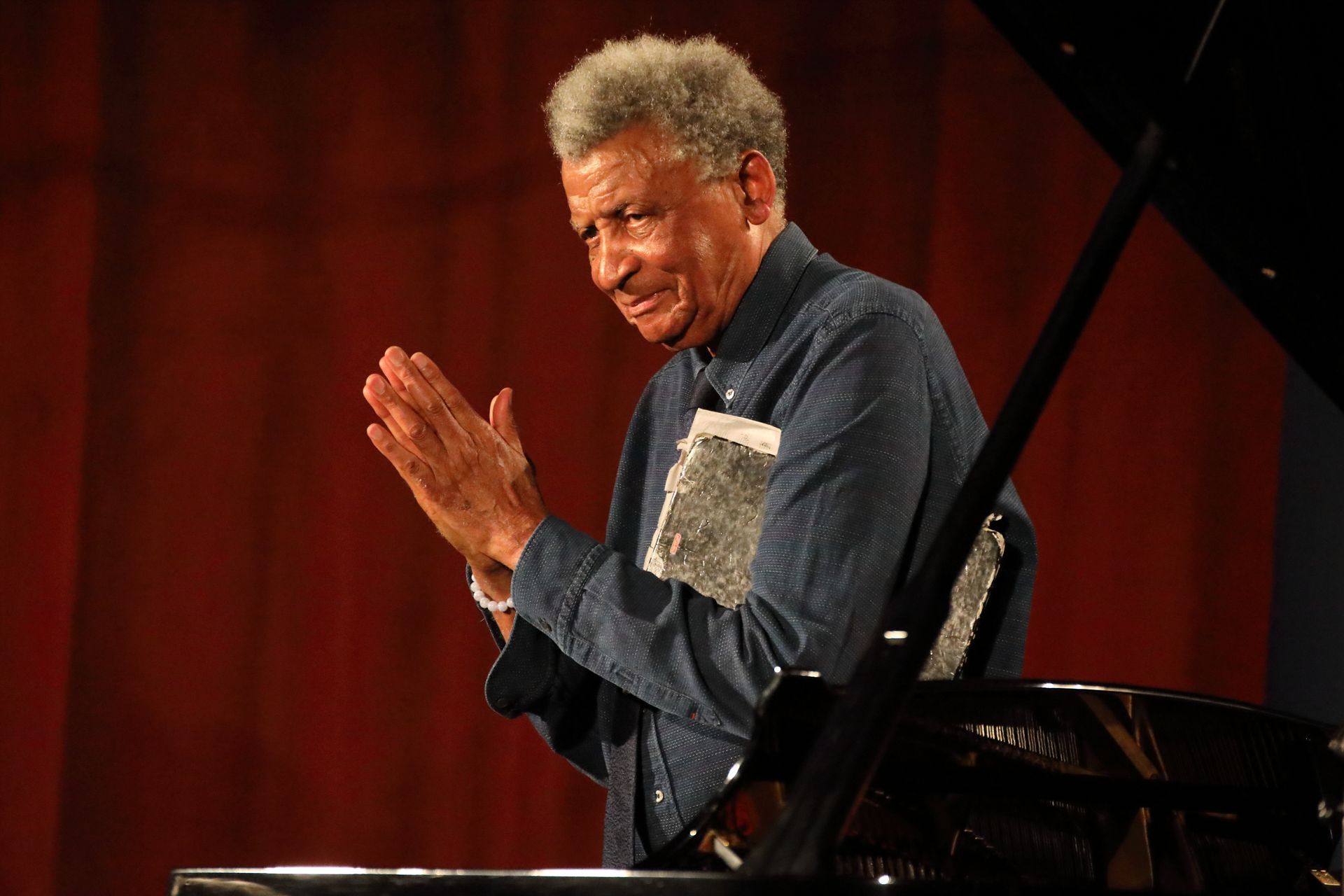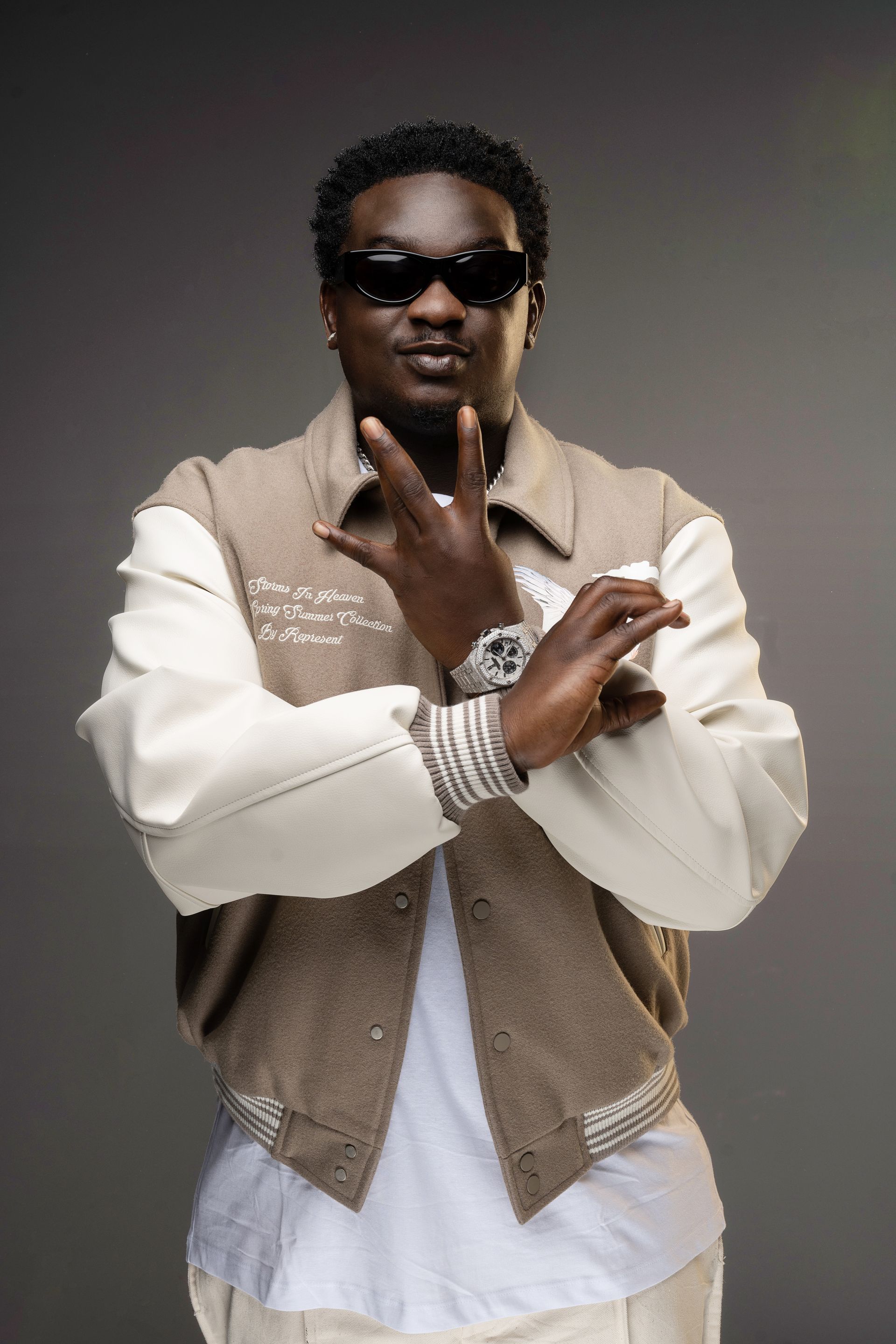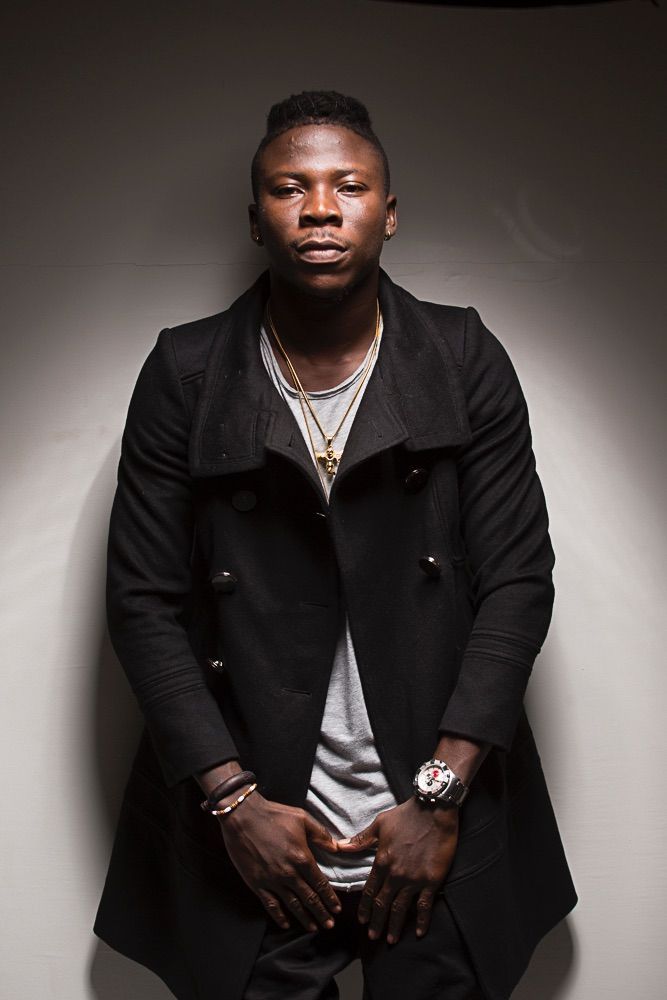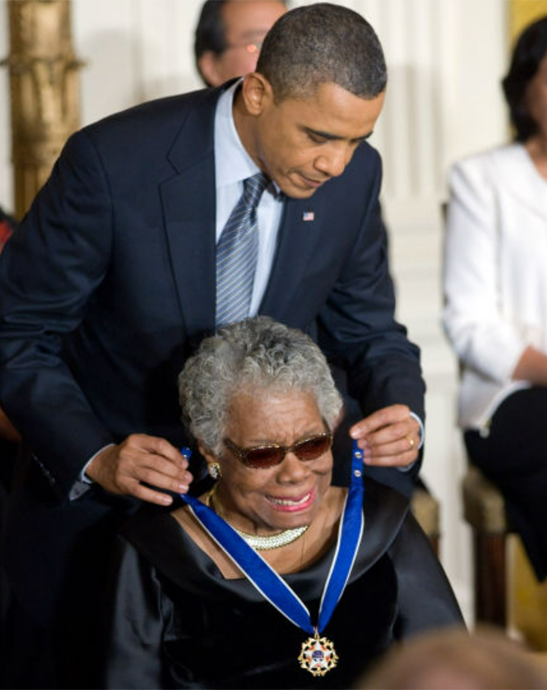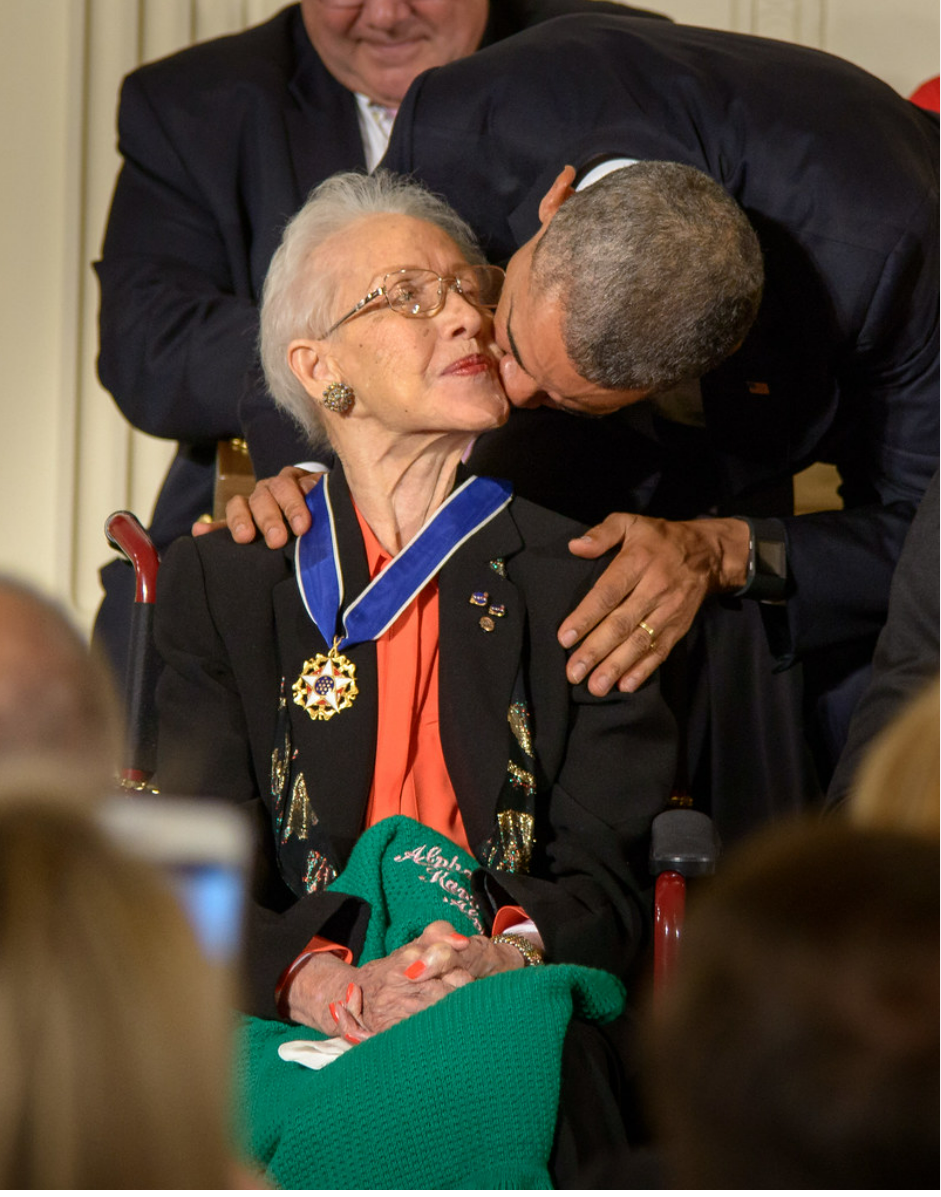Celebrities
VIDEOS
Running (To You) - Chike | Acoustic and Covers with Aramide
For You - Teni | Acoustic and Covers with Aramide
Down For You | Aramide
Addicted - Niniola | Acoustic and Covers with Aramide
Rick Holmes - Remember To Remember
Icons
GEORGE WASHINGTON CARVER
- Maia C.
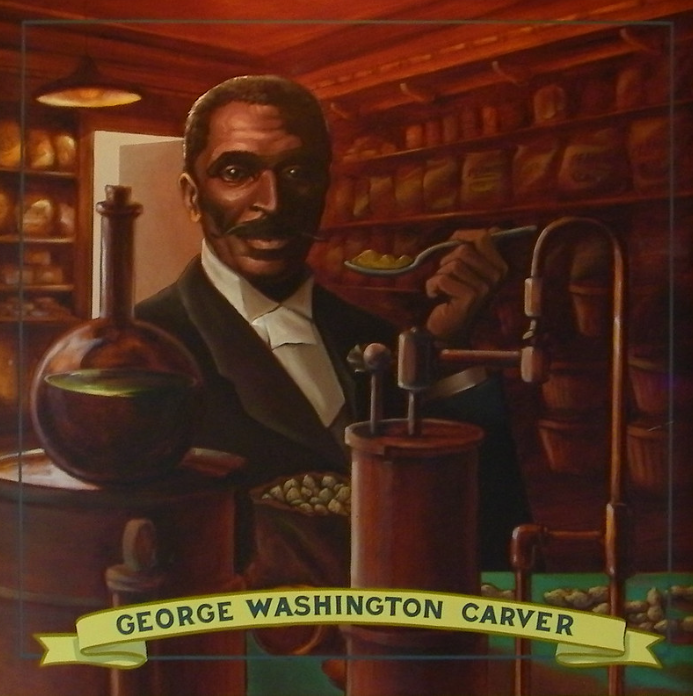
Martin lurther king jr
- US Embassy, New Delhi.
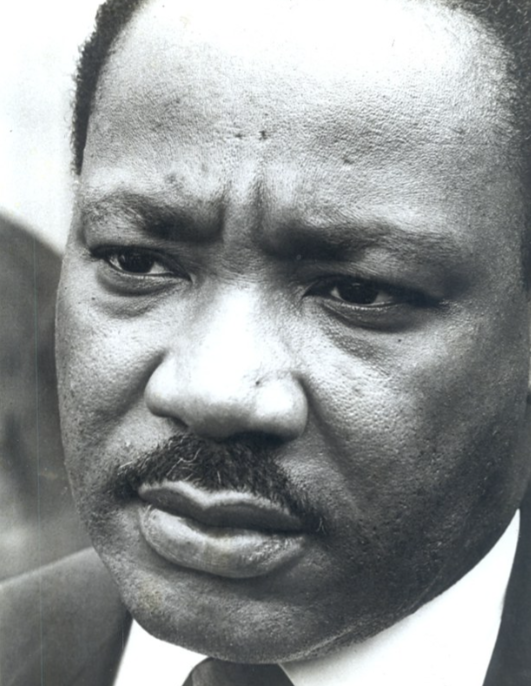
Mahatma GANDHI
- NEO _ II
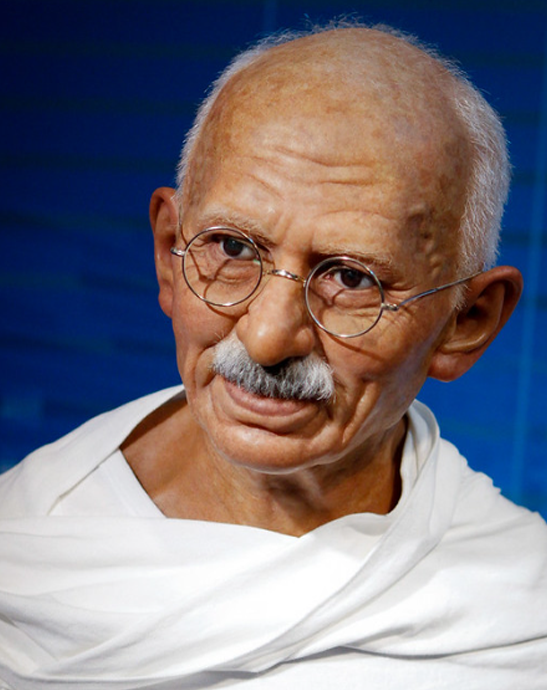
"The weak can never forgive, forgiveness is the attribute of the strong. An eye for an eye only ends up making the whole world blind. I like your Christ, your Christians are so unlike your Christ. If it weren’t for Christians I would be a Christian!!"
-
Brief Points of Interest
Born into the British - India Empire State, as such Ghandi inherently felt and exhibited his Britishness with optimism when he travelled to study Law at the UCL, graduated and interned at the world famous Inner Temple chambers, London. He’d always felt compassion for the impoverished, even for those in the England of old. A challenging offer to excel professionally saw Mahatma moved to South Africa, where he experienced despicable racial inequalities and with civility founded the NIC, Natal Indian Congress to tackle discrimination against Indians in South Africa.
Despite the racial prejudices from communities, Ghandi together with Africans rendered services for the British Empire during the Boers war, only to still, be subjugated by the same allegiance and it was these distasteful experiences that fuelled Ghandi’s visions of a freed India from her Colonial oppressors. The eventual 1947 independence after 2 yrs imprisonment for sabotage against the State was a divisive one, that Ghandi selflessly tried to unite the Indian Hindus and the Muslims of Pakistan. A valiant effort that proved too costly for the world, in it’s deprivation of an exemplary truest of role models and leaders, as the legendary Mahatma Ghandi was sadly shot by an uncompromising hindu that disliked the proposed unity with the muslims relatives of Pakistan, despite being constituents regions of one nation of India before separations by the British Empire.
Nelson mandela
- Festival Karsh, Ottawa
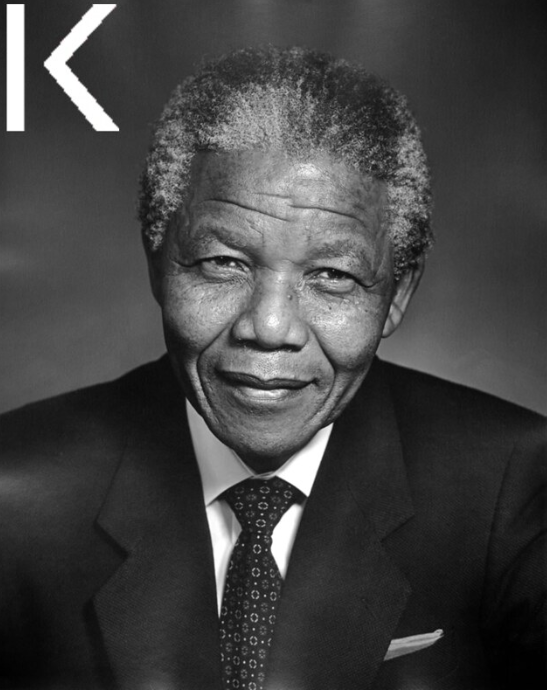
"What counts is not the mere fact that we have lived. It is what difference we have made to the lives of others that will determine the significance of the life we lead."
-
Brief Points of Interest
A distinguished lawyer, an anti apartheid socio-political revolutionary. After 27 long years to freedom from imprisonment over the alleged “deliberate campaign to disrupt the State, amidst racial and social unrest. The incumbent President F W de Klerk, in 1990 released Mandela, who later became South Africa’s 1st fully representative democratically elected President.
A socialist whose forgiving spirit, reconciliatory mind and concentric motives to neutralise the intrinsic segregation of and dispel racism, incorporated his predecessor’s liberal ideals whilst he initiated land reforms, tackled poverty and HIV/Aids, even beyond his epitomised selflessness as he declined 2nd term of office.
A recipient of over 247 global honours, including the Nobel Peace Prize. Nationally highly revered and natively known as Madiba.
ARETHA FRANKLIN
- Austin Mini 1275
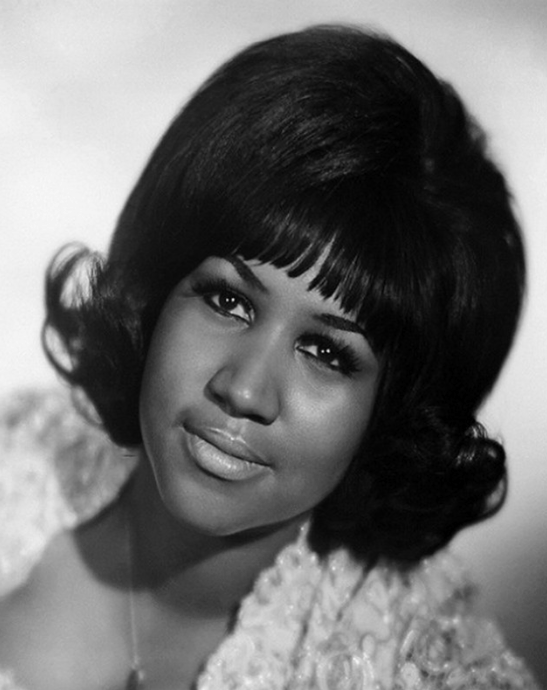
"You cannot define a person by just one thing. We've come a long way but there’s still lots of discrimination. Being the Queen of Soul is not all about singing. It’s much to do with your services to people, your social contributions to your community and civic contributions also."
-
Brief Points of Interest
Aretha Franklin grew up singing Gospel music at her Dad’s/C. L. Franklin’s Church, in Detroit till the age of 18 when She decided to dabble into secular music and made a breakthrough with Atlantic Records and the rest is an exemplary, iconic journey of extraordinary accomplishments, some of which are listed herein.
- 26 Grammy awards nominations, 18 Grammy awards recipient,
- 112 Single in the charts over several decades,
- 77 Singles made the Hot 100 hits Charts
- 100 Rhythm & Blues ( R & B ) hits out of which came, 20 Numero Unos/Number 1s
Monumental Honours include 1: Presidential Medal of Freedom, 2: National Medal of Arts and the 1st female singer to be indicted into the Rock & Roll Hall of Fame. Truthfully speaking, 5,000 words are not enough to list Aretha Franklin’s accomplishments and as such I forthwith wholeheartedly salute. Merci beaucoup!!
CASSIUS CLAY (MUHAMMAD ALI)
- Charly W.Karl
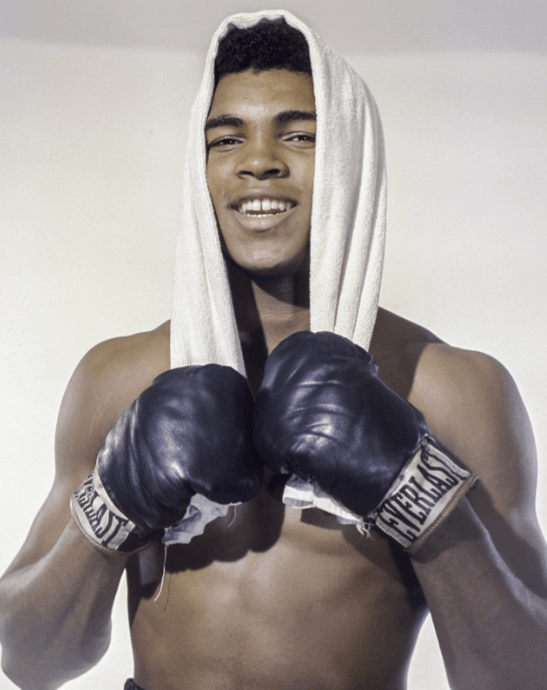
“I’ve tussled with a whale, injured a stone, hospitalised a brick. I’m so mean I make medicine sick, float like a butterfly, sting like a bee. I hated every minute of training but I said “Don’t Quit”. Suffer now and live the rest of your life as a champion. Don’t count the days, make the days count."
-
Brief Points of Interest
A distinguished lawWon Gold Medal in the light heavy weight division, at the 1960 Summer Olympics aged 18. A coveted prize he wore round his neck for weeks until he experienced personal segregation despite his burgeoning fame and he threw the medal into a river with disgust at the abhorrent racial inequalities.
Ali became the world heavyweight champion aged 22 and progressively earned the acclaim of The Greatest Heavyweight Champion with records that read 61:56:37. 61 fights, 56 victories inclusive of 37 KOs/knock outs. Only ever lost 5 bouts, 3 of which were beyond his prime, as he bizarrely fought against doctors and relatives advice, till retirement at the age of 39, in 1961.
An activist and a poetic performing artist whose 2 studio albums, released in 1963, "I’m the greatest" and 1976 "The adventures of Mr Ali &his gang Vs Mr Tooth decay” were duly nominated for the Grammys. Ali was “ The keeper of the flame at the 1996 Summer Olympics with historically and emotionally sustained standing ovation, further reaffirming Mohammad Ali, as truly the people’s Greatest Boxer.
Nina Simone
- Nico van der Stam - at Dutch TV Studio
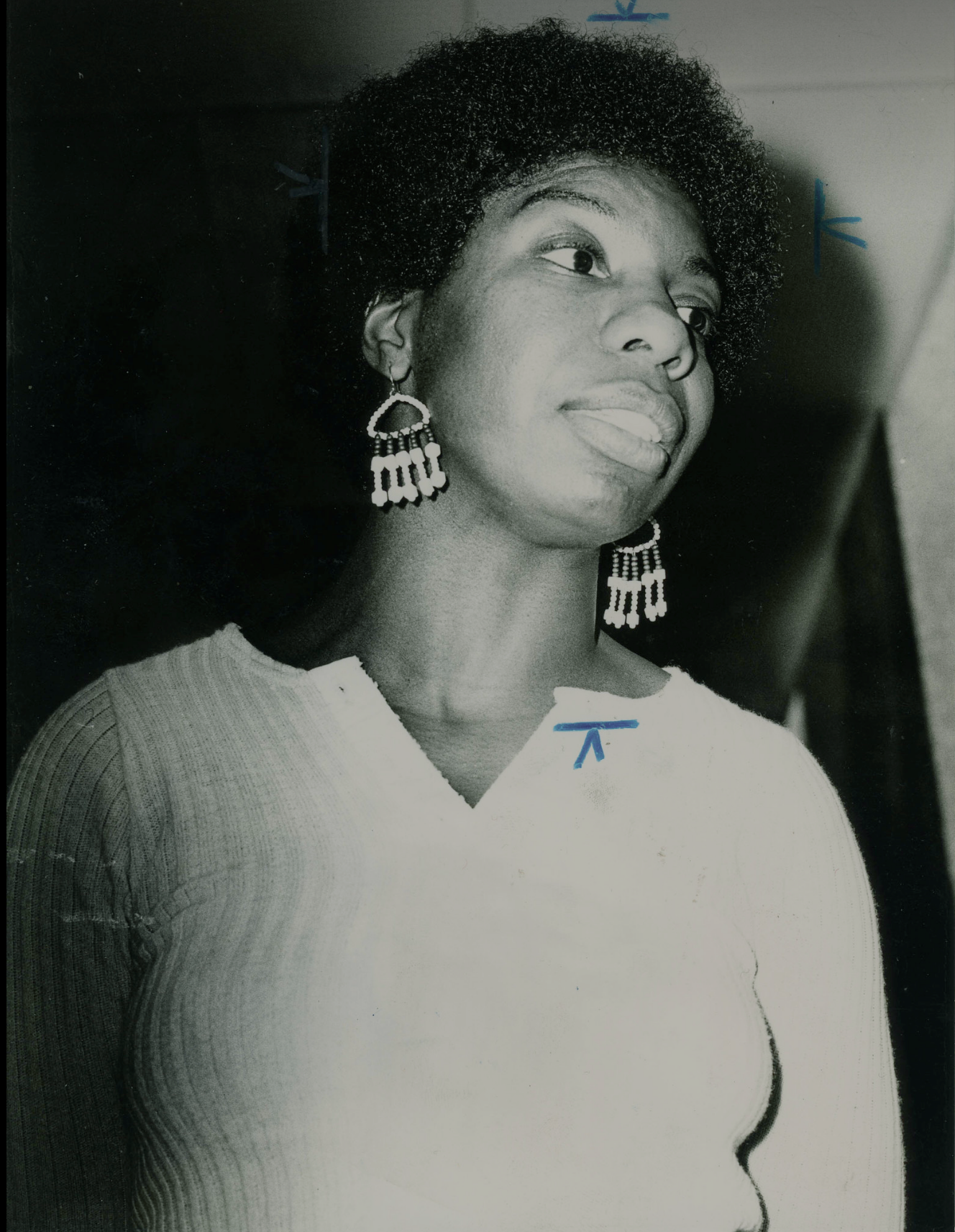
“I want to be remembered as a Diva, who did not falter in her resolutions for equality and never compromised on what she felt about racism & how the world should be. I’m not the doctor to cure it, all I can do, is expose the sickness."
-
Brief Points of Interest
Nina Simone had always wanted to be a Classical Concert Pianist from a very young childhood age. She excelled at school with distinctions and was a valedictorian. An eclectic singer, songwriter, pianist & arranger in Gospel, Blues, Jazz, Classical and Pop music.
Coupled with her autobiography in 1992, Nina Simone has also been the “Subject” of 7 other books and theatre performances.
2 Documentaries in 2015
A film - Nina in 2016
Theme songs in 9 movies and 10 TV series.
At least 8 sampled/interpolation versions from her songs by globally acclaimed R & B / Hip Hop artists.
4 Grammy Awards nominations, 2 of which were posthumous.
Nina would most definitely have won loads more music awards & honours but for the towering brilliance & dedications of Aretha Franklin, in the same era.
That said, Nina Simone was renowned by music maestros & avid fans for her distinguished technical “ 3 - Part Tonal/Modal Counterpoint” Piano playing & composition style. As such & besides her civil rights activism, Nina Simone was undoubtedly and most definitely an extraordinary artist who also effortlessly composed “fusions” of Gospel, Blues, Folk, Jazz & Pop in one sitting!
Very very rare uncompromising talent. Such it was, that one can only think of the legendary Ray Charles, being the masculine male version!!
Maya Angelou
- Urbanworld Film Festival
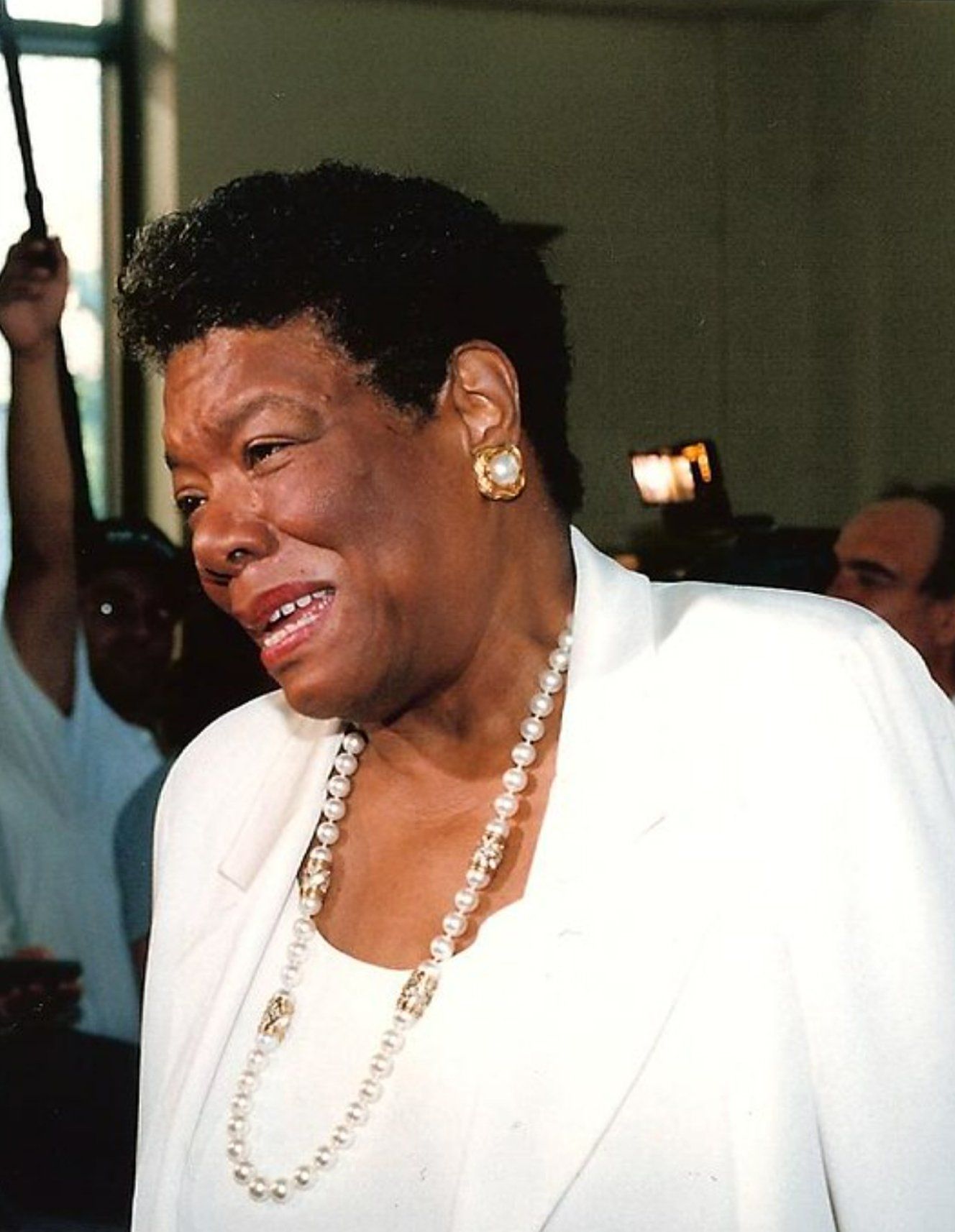
“If you do not like something, change it. If you can’t change it, change your attitude. Nothing would work unless you do. I believe the most single important thing beyond creativity and discipline, is daring to dare.”
-
Brief Points of Interest
Maya Angelou was a poet, memoirist and civil rights activist whose 1969’s 1st autobiography and most popular of seven volumes, I know why the caged bird sings is liked by 90% of those who read it.
Maya worked in Egypt & Ghana for many years as a teacher, journalist and actress before returning to USA in 1965 to support the civil rights movement.
A celebrated writer of 3 essay and several poetry books whose motion-pictures adaptations and accreditations span over 5 decades.
Her 1992 Play - Georgia Georgia, was the first “Original Script” by a black woman.
Maya was chosen to recite the historic Poems at President Bill Clinton’s 1993 Inauguration
Honoured with a Spingarn Awards medal in 1994
Maya was the 1st African American to direct a movie “ Down in the Delta” in 1998
3 Grammy Awards & several nominations, including the Pulitzer & Tony Awards
50 Honorary Degrees from Institutions & Governing Boards.
National Medal of Arts in 2000
Presidential Medal of Freedom in 2011.
Mary Seacole
- National Portrait Gallery - Harsh Light
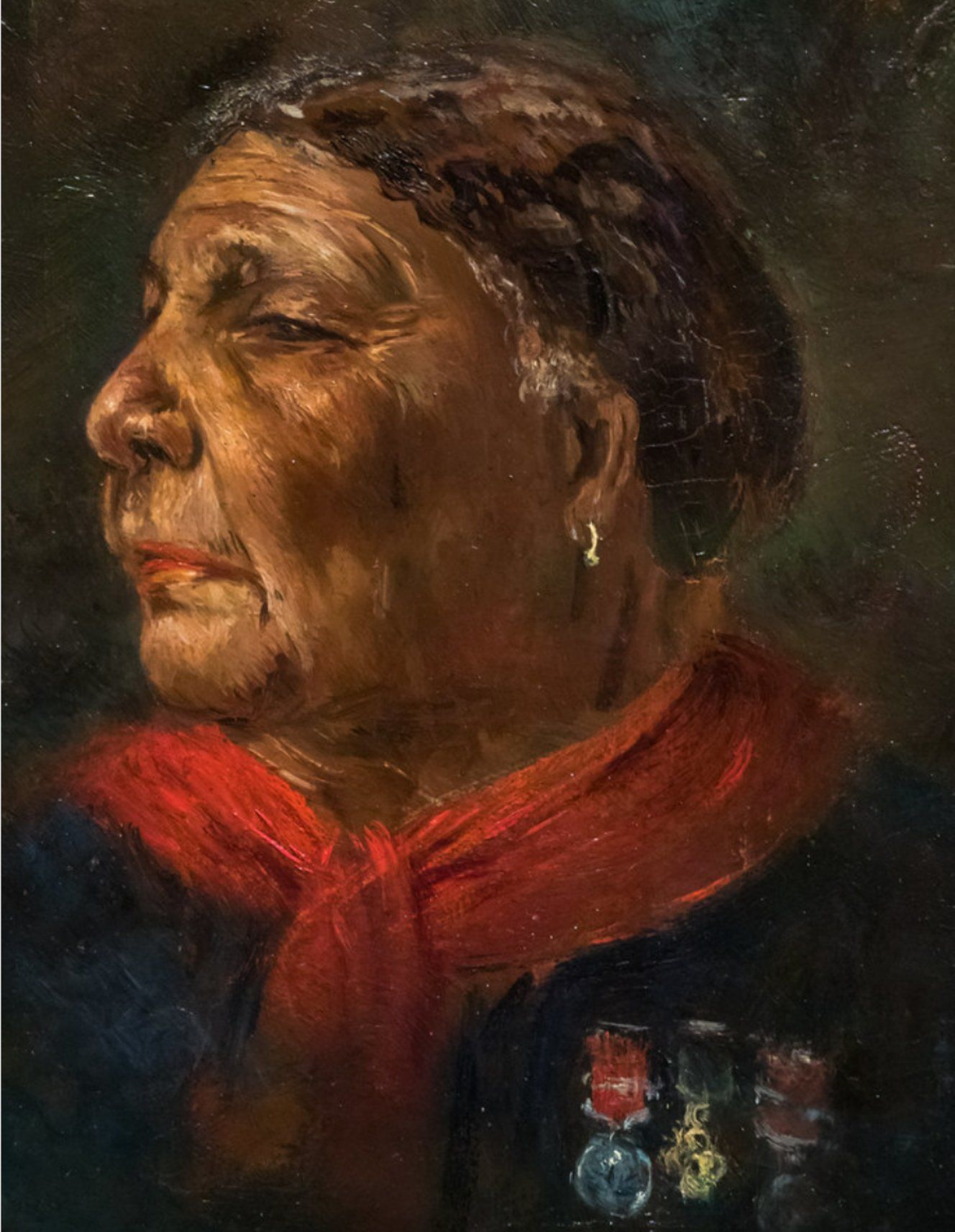
“Unless I’m allowed to tell the story of my life in my own way , I cannot tell it at all. The grateful words and smiles, which rewarded me for binding up a wound or giving a cooling drink, was a pleasure worth risking life for at any time.”
-
Brief Points of Interest
Mary Seacole was a preeminent Icon of intrepid humanitarianism!! A British - Jamaican social entrepreneur who not only learnt from her mother, the fundamentals and implementations of standard nursing but also extensively, the African origin - herbal remedies.
After practically helping, the Jamaicans in need of medications and improved health conditions. Mary travelled to Panama to also help tackle the cholera outbreak before safely returning to Britain during when her several applications to be a contingent nurse for the falling soldiers in the Crimean war of 1853 - 1856, were repeatedly turned down .
Defiantly, Mary self funded her travels and rented the relatively closer hotel, to the battlefields and valiantly took perspective care of the wounded, successfully.
In 1857, a fundraising event in London Westminster saw up to 80,000 attendees, including war veterans & civil servants over the dedicated 4 days. The heroine’s 1st autobiography was published soon after, in the same year.
A St Thomas hospital statue describing Mary Seacole as a “ Pioneer Nurse” was (strangely & despite many wounded soldiers lives saved) controversially opposed whilst continued objections against her inclusion in the Primary Schools level national curriculum proved futile.
One must also say there are too many honours besides plaques in Westminster, London such as hospital wards named after Mary Seacole nationally and internationally.
Mary was in 2004, voted number 1 in the Honorary List of 100 Greatest Black Briton.
BErry Gordy
- John Mathew Smith & celebrity-photos.com
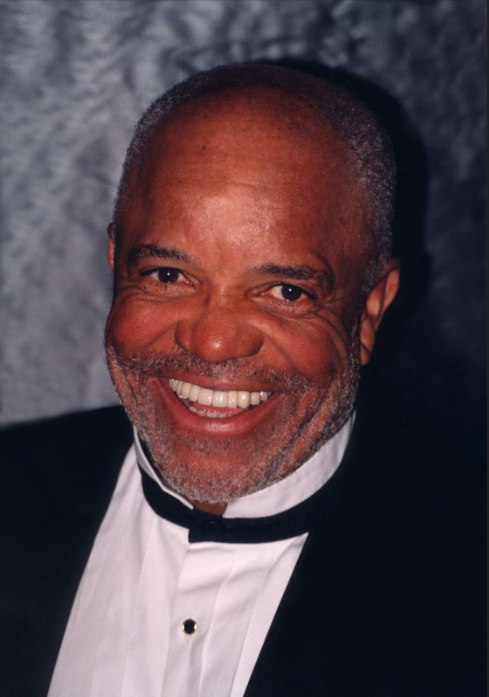
“There aren’t enough people who care about the future, they’re too busy worrying about today and what they can grab now. Money had never been the main thing for me, it’s the legacy that was important. We stuck to who we were at Motown and the world came round.”
-
Brief Points of Interest
Berry Gordy is a very successful music lyricist, producer and executive. The founder of the globally acclaimed Motown Records, followed by Film and TV productions. Motown evolved from Tamla Motown which was developed with Berry Gordy’s two siblings assistance from the original Jazz record store that also sold 3D Glasses and aptly named 3D Records. Berry borrowed $800 from his entrepreneurial family to set up Motown records in 1958, after another equally busy recording year of 1957, that saw Berry, his siblings and few, though notable Chess Records collaborations successfully produced over 100 published singles.
The early productions included Marv Johnson, Barret Strong, The Supremes, Smokey Robinson, The Temptations, Gladys Knight and the Pips, The Four Tops and Jackie Wilson. He wrote The Jackson 5’s hits ABC & I want you back, to name but a very exclusive few. Motown Records was officially founded in January 1959 and sold for a cool $61million, in 1988, the same year Berry Gordy was inducted into "The Rock & Roll Hall of Fame.
2016 - Gordy became a National Medal of Arts recipient.
2018 - Motown was inducted into The National Rhythm & Blues Hall of Fame
2021 - Gordy was awarded The Kennedy Centre Honours
2022 - Induction into The Black Music Entertainment Walk of Fame.
Sister Rosetta Tharpe
- James J. Kriegsmann
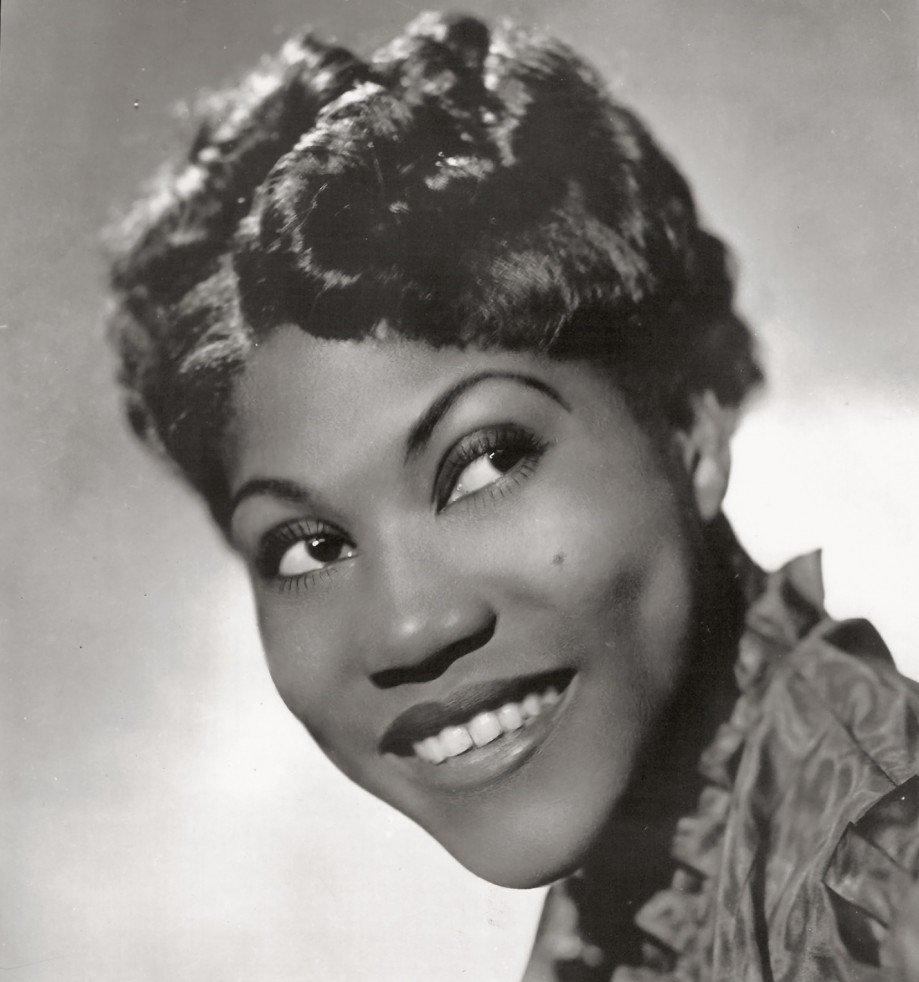
"Can’t no man play like me, I play better than a man. My emotion is real and my everyday life is filled with the same feeling."
-
Brief Points of Interest
An extraordinary pioneer guitarist whose heavy pulsating style captivated many more audiences once she started to perform both Gospel and Secular music on various public stages including theatre shows.
Sister Rosetta's innovation of melodic Blues fused with traditional Folk music and vibrant Swing patterns evolved into Rock and Rock because her unique styles influenced many aspiring young musicians of her time, including Chuck Berry, Elvis Presley, Gerry Lee Lewis and Little Richard, all of whom went on from copying Rosetta’s various styles of bluesy - acoustic and distorted - Electric Guitar playing to becoming Pioneers of Rock and Roll.
Music historians have always claimed Chuck Berry who studied and mastered Rosetta’s style invented Rock and Roll. He even stated his entire career was one long Sister Rosetta Tharpe’s impersonation. She was the first African American lady at the age of 23yrs, to record with Decca, giant record label. The first to perform Gospel music to a secular crowd before more prominence into secular songs and also the First Lady of Electric Guitars.
Ella Fitzgerald
- IISG
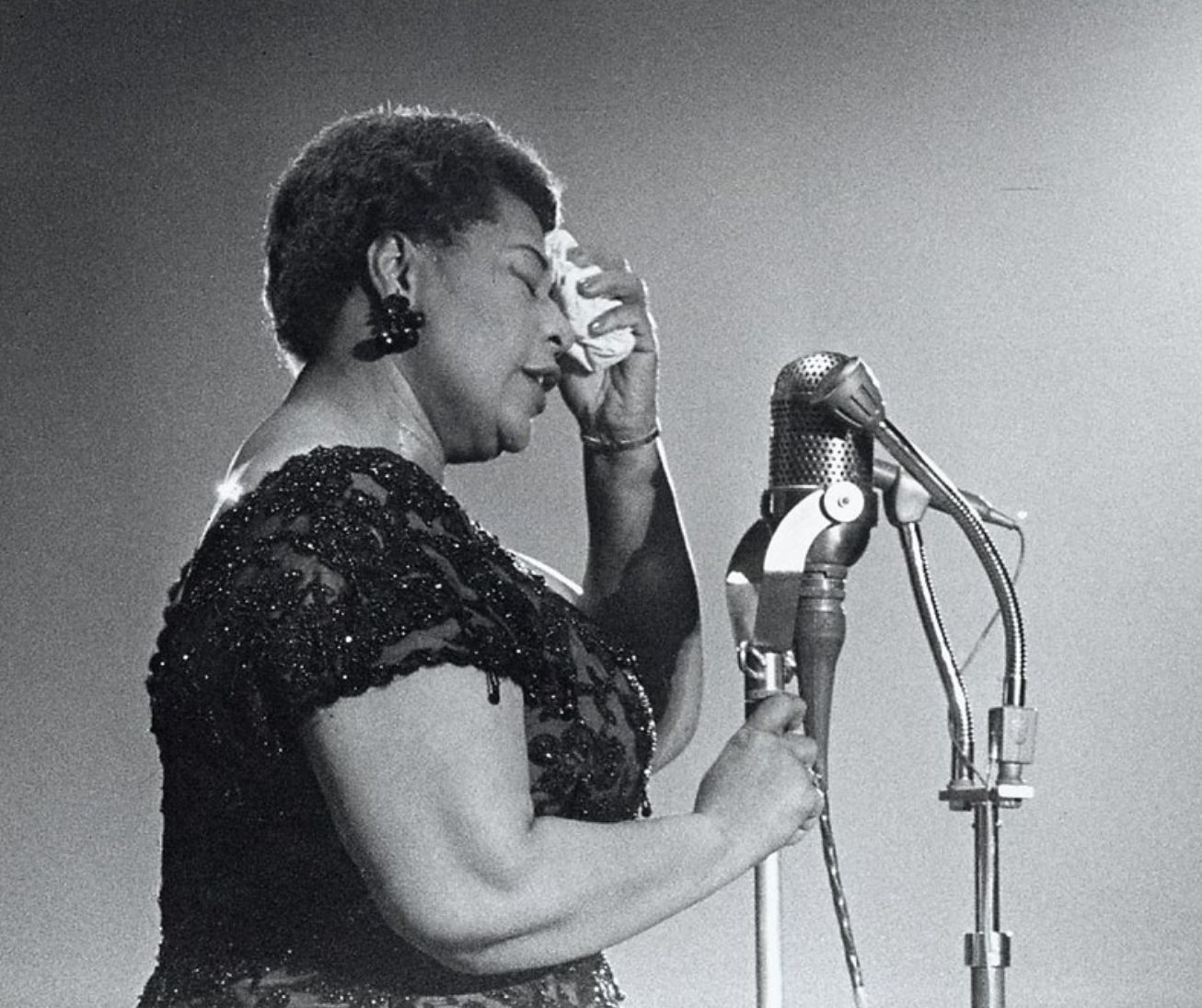
"It isn’t where you come from. It is where you’re going that counts. Just don’t give up trying to do what you really want to do. Where there’s love and inspiration, I don’t think you can go wrong."
-
Brief Points of Interest
An iconic Jazz singer that was referred to as “The 1st Lady of Song” and “The Queen of Jazz”. The best female scat singer, who shot to national stardom with her adaptation of “ A Tisket, A Tiskat” and her interpretations of “The Great American Songbook”.
Several other unforgettable duets include the 1931 composition by Duke Ellington - It don’t mean a thing (If it ain't got that swing) and “Cheek to Cheek” the 1934 composition by Irvin Berlin for Fred Astaire and Ginger Rogers, of which Ella Fitzgerald and Louis Daniel Armstrong, did a mesmerising version.
Ella won 14 Grammy Awards, one of which is for “Lifetime Achievements”. She was in fact the very first African American woman to do so. Other notable awards includes the National Medal of Arts. Presidential Medal of Freedom. Kennedy Centre for Performing Arts Medal of Honour. George and Ira Gershwin Award for Lifetime Musical Achievements and a honorary Doctorate of Music from Harvard University.
Rosa Parks
- rbanks
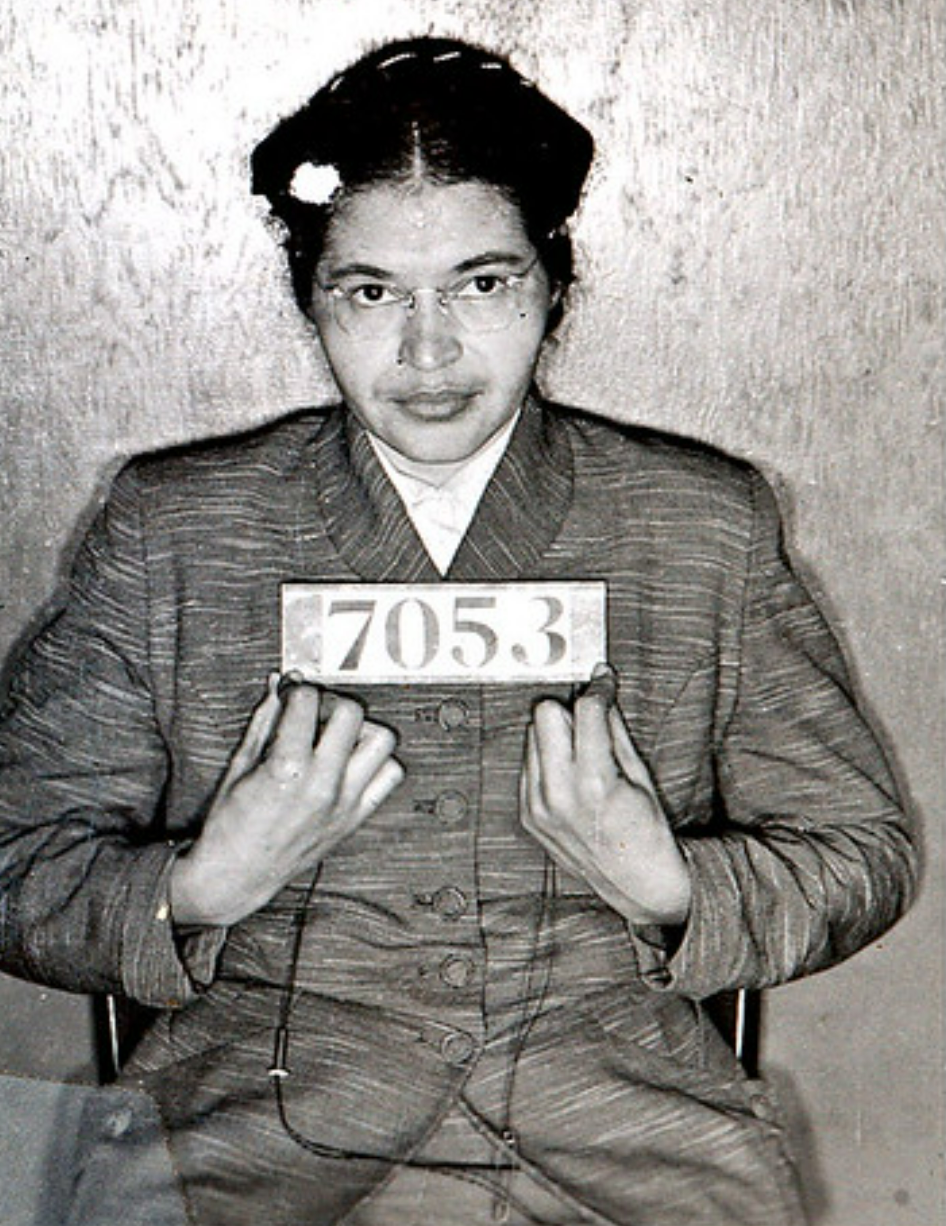
"I believe we are here on this planet to live, grow up and do what we can to make this world a better place for all people to enjoy freedom. I would like to be remembered as a person who wanted to be free, so other people would also be free."
-
Brief Points of Interest
On the 1st of Dec’ 1955, Rosa Parks refused to give up her allotted seat on a segregated Montgomery bus to a white passenger as the bus became overcrowded. Her defiance landed her in jail, though released same evening on bail only to repeatedly appear in court whilst the case took too long.
The unity shown by African Americans and all other non blacks who cared, led to the Montgomery Bus Boycott that lasted a year as it sets Rosa Parks on a distinguished path of history as one of the most influential civil rights activists in America. Thanks to the Honourable Courts Judges who eventually ruled public transport segregation, as “unconstitutional”.
Rosa Parks received over 50 Honourable Awards, Titles and Monumental Acknowledgements, 2 of which are The Presidential Medal of Freedom in 1996 followed by the Congressional Gold Medal in 1997.
Sarah Vaughan
- Jared Enos
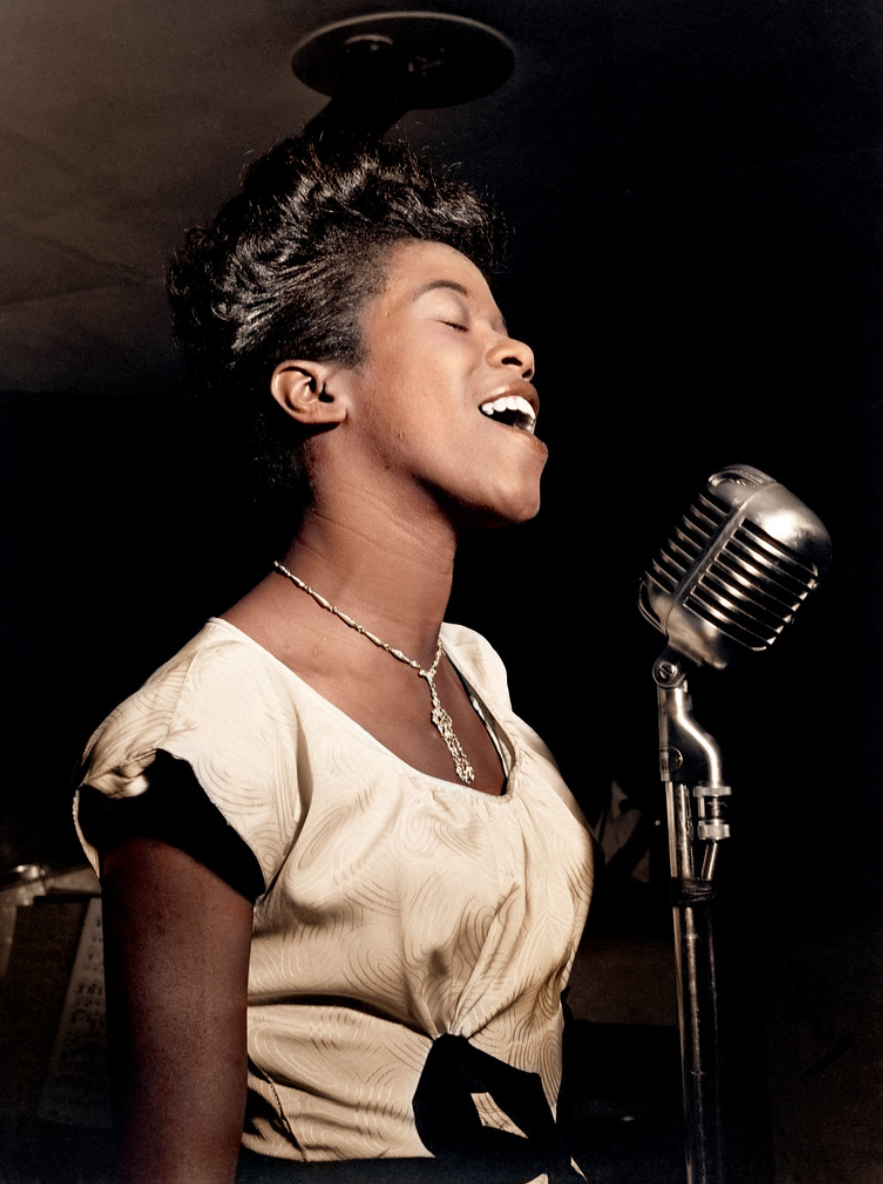
"There are notes between notes, you know. When I sing, trouble can sit on my shoulder and I don’t even notice. My dream is to do whatever I want without any interference from the record company."
-
Brief Points of Interest
An American Jazz singer with one of the most amazing voices. Sarah started piano lessons from childhood and sang in Baptist Church Choir before later choosing to play and sing Jazz at various clubs and events. Her desire for success led her to Earl Hines band which featured many brilliant Jazz Giants like Charlie Parker, Dizzy Gillespie and Billy Eckstine to name a few. Her path to stardom was pretty much history from this group of outstanding pioneers of Jazz music.
Sarah Vaughan won four Grammy Awards, one of which is the distinguished “Lifetime Achievement” Award.
In 1978, She received an Honorary Doctorate of Music by Berklee College of Music.
In 1985 She received a star on the Hollwood Walk of Fame.
1989 saw her receive The NEA ( National Endowment for Arts) Award.
2012 - She was inducted into the American Jazz Hall of Fame
Inducted into the New Jersey Hall of Fame and recipient of the George and Ira Gershwin Award for Lifetime Musical Achievement
Bob marley
- monosnaps
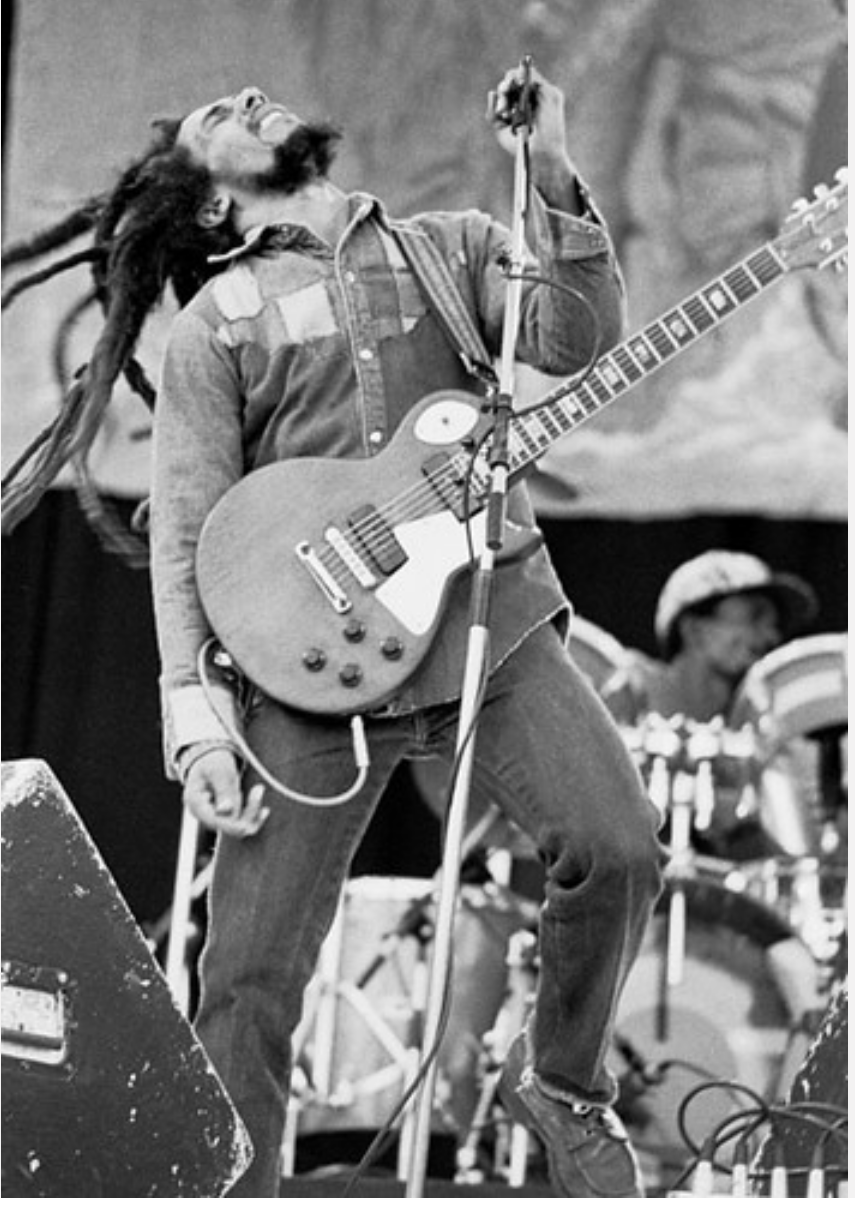
"Money can’t buy life. Some people are so poor, all they have is money. I don’t stand on the black man’s side or the white man’s side. I stand on the God’s side. Don’t gain the world and lose your soul, wisdom is better than silver or gold."
-
Brief Points of Interest
Jamaican Singer, Songwriter and Musician whose ideologies were highlighted by his futuristic, audacious, rebellious, liberating and conscious lyrics. His distinctions were equally emphasised by his inventiveness of a globally marketable Ska, Rocksteady, Roots & Culture that constituted Bob Marley’s fusion and style of "vibrant Reggae”.
The individually talented trio, of Bunny Wailer, Peter Tosh and Bob Marley, once signed to Chris Blackwell’s Island records got a new lease of publicity that eventually catapulted BMW ( Bob Marley and The Wailers) unto their envisaged global prominence whilst also establishing Jamaica’s claims as the number 1 Nation for Reggae music.
Their 1984 Greatest hits album ‘Legends” has been in the UK’s top 100 album charts for 20 years. There are too many awards, honours and attributes to be listed herein and as such just to name a few:
1976 - Band of the year. (Rolling Stone)
1978 United Nation Peace Medal Award
1981 Awarded Jamaican Order of Merit
2001 A Star on The Hollywood Walk of Fame
2001 A Grammy For Lifetime Achievements
2004 Rolling Stone ranked Bob 11 in the top 100 Greatest Artists of All Time
2022 Inducted into the Black Music & Entertainment Walk of Fame
Katherine Johnson
- US Department of State
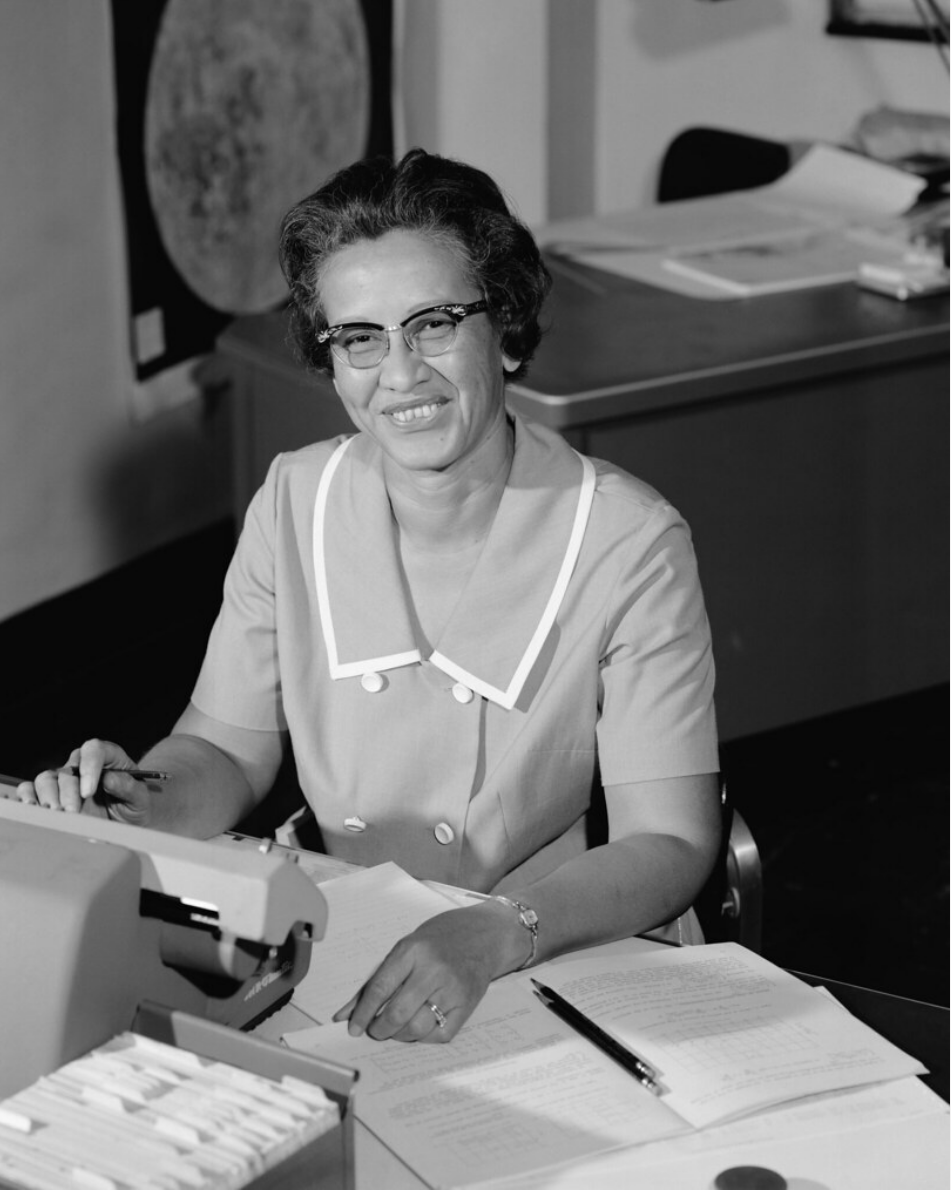
"In Maths, you’re either right or you're wrong. I don’t have a feeling of inferiority, never had. I’m as good as anybody but no better. Like what you do and then you will do your best. The whole idea of going into space was new and daring. There were no textbooks, so we had to write them."
-
Brief Points of Interest
Katherine had always been an extraordinarily intelligent child and by the age of 18, attained Bachelor’s Degrees with the highest honours possible in Mathematics and French.
An American Mathematician who, in 1953, aged 35, gained employment with NACA, a precursor to NASA and within 6 yrs, her orbital mechanic’s calculations were integral in the successes of the first spaceflight of 1959 and the subsequent ones until her retirement in 1986.
Katherine Johnson, received:
NASA’s Lunar Spacecraft and Operation’s Group Achievement Award.
NASA’s Apollo Group Achievement Award.
NASA’s Langely Research Centre Special Achievement Award in 1971, 1980, 1984,
1985 & 1986.
Presidential Medal Of Freedom in 2015
NASA GROUP Achievement Award in 2016
NASA’s Silver Snoopy Award in 2016
Congressional Gold Medal Award in 2019
Miles Davis
- Ned Vizzini
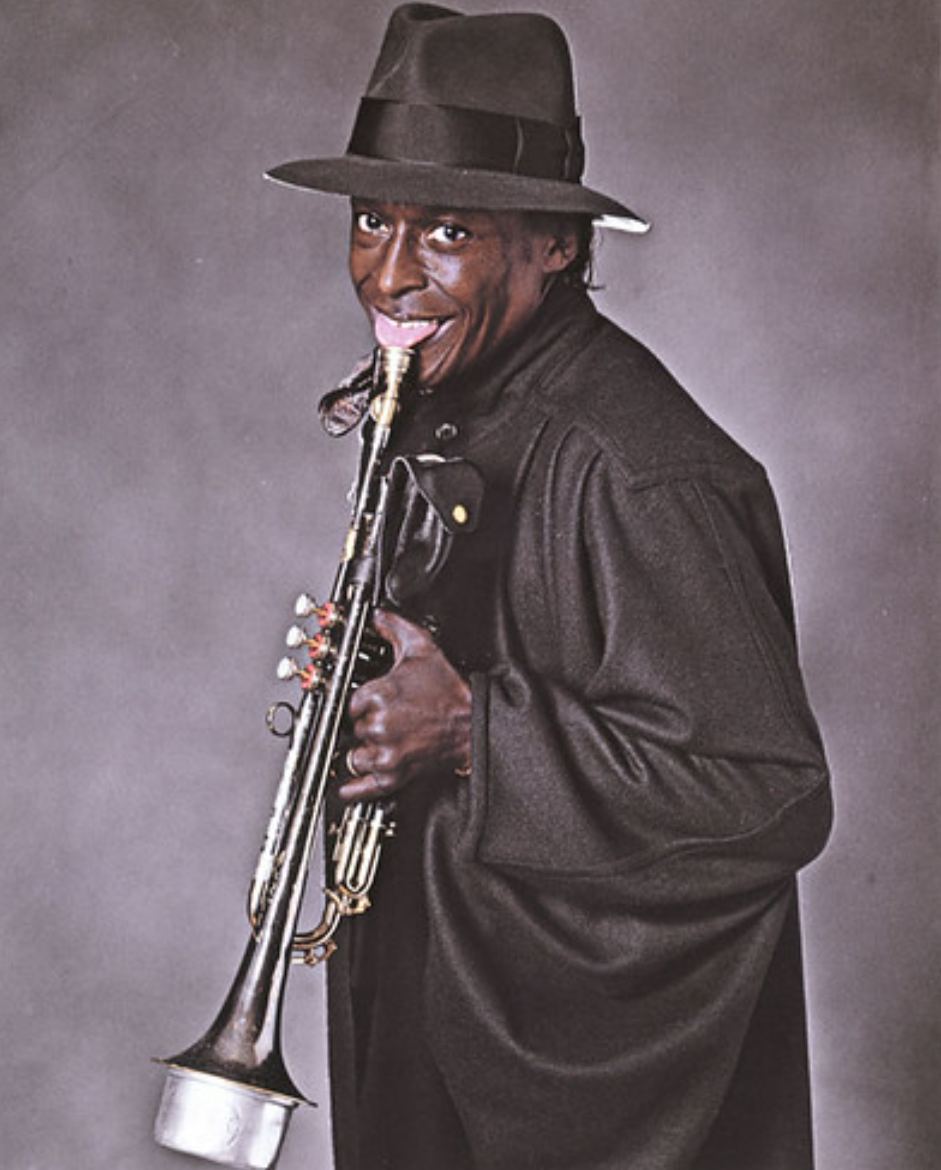
"I’m always thinking of creating. Do not fear mistakes, there are none. Sometimes you have to play a long time to be able to play like yourself. I’ll play it first and tell you what it is later."
-
Brief Points of Interest
An extremely versatile American trumpeter( cornets & flugelhorns), pianist & electronic organist. A Jazz Maestro and Innovator of Modal Jazz in the Mid-Twentieth Century. His professional debut was with Charlie Parker before his first album aptly called “ Birth of The Cool”
because it introduced “Cool Jazz”.
By 1958 & after co-operations, with a couple of record labels where Miles played, with sextet group and recorded Orchestral Jazz, Hard-Bop. The collaboration with composer George Russel and practical implementations of his “Lydian Chromatic Concept of Tonal Organisation” led to the release of “Milestones” a remarkable album.
In 1959, Miles greatest album, globally known as “ The Greatest Jazz Album of All Time - Kind of Blue” was released using “George Russell’s Modal Jazz Theory”. This album sold over 5 million copies in the USA alone.
Miles Davis won 8 Grammy Awards and 32 Grammy nominations. There are 15 other Awards amongst several other Honours and Monumental Acknowledgments to Miles Davis legendary name.
Louis Armstrong
- Archives de la Ville de Montréal
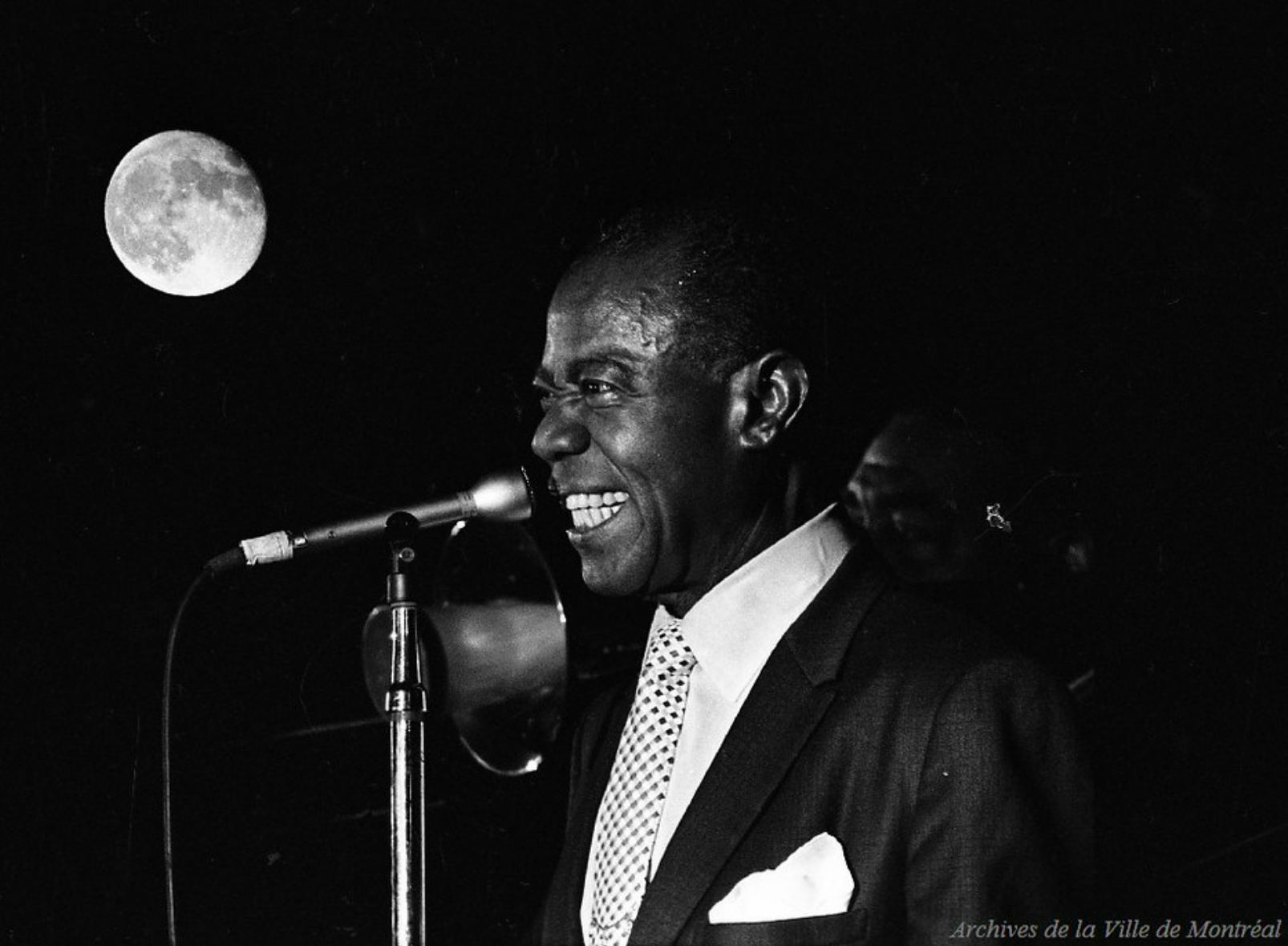
"Musicians don’t retire. They stop when there’s no more music in them. I was determined to play my horn against all odds and I had to sacrifice a whole lot of pleasures to do so. I never want to be anything more than I am, what I don’t have, I don’t need."
-
Brief Points of Interest
A national music Icon, an ambassador of Jazz and one of the most influential pioneers in Jazz. An American trumpeter and singer who bended songs lyrics and melodies with inherent skills using his distinctive rich voice, often complemented with scat singing.
Despite the oppressive racism of his era, Louis Armstrong broke the segregation code, in gaining prevalent access to the affluent American high society. It is for this particular reason he was generally acclaimed as the number 1, African American that paved the way for others to follow. The famous leader and pacesetter was the 1st African American to gain global popularity with white and upper class audiences. He was also the 1st African American to host a Nationally Broadcast Radio Show in 1937, 1947 before becoming a regular with various TV appearances in the 50s and 60s.
Louis performed duets with Billy Holiday, Ella Fitzgerald, Earl Hines and Fats Waller, to name an exclusive few. Co-starred in over 12 motion pictures alongside Hollywood Greats such as Grace Kelly, Barbra Streisand and Bing Crosby from which he had 3 Grammy Awards Nominations over several years and won 1 Grammy Award for his performance in “Hello Dolly” 1964. 12 of his songs were inducted into the Grammy Hall of Fame. Rock and Roll Hall of Fame listed Armstrong’s “ West End Blues” recorded in 1928 as one of the defining songs of Rock and Roll.
Various other Halls of Fame including the 2017 post-humous Rhythm & Blues, inducted so many other Louis Armstrong’s songs. The New Orleans airport and former US Open Stadium are both named after him, amongst several other stately acknowledgements including his former residence of almost 30 years that got converted into a dedicated museum.
Bill Evans
- Brianmcmillen

"You give up your own personality when you imitate somebody.
If you take the time and your talent is real, it will last. Technique is the ability to translate your ideas into sound through your instruments."
-
Brief Points of Interest
Bill Evans was one of America’s most influential, classically trained Jazz composer and pianist. His discipline in and passion for music, coupled with his unique adaptations of traditional jazz has percolated through generations, still evident in the current crop of jazz musicians.
In 1958 Bill Evans teamed up with the renowned music theorist George Russel and progressively became one of the sextet band Miles Davis formed to record the Jazz all time, best selling album “Kind of Blue” plus another one before moving unto further iconic successes such as the Complete Vanguard recordings and eventually b/w 1976 & 77 , joined Tony Bennett to record 2 famously distinguished albums.
Bill Evans was nominated 31 times for the Grammy awards and magnificently won 7 of them.
George Gershwin
- George Grantham Bain
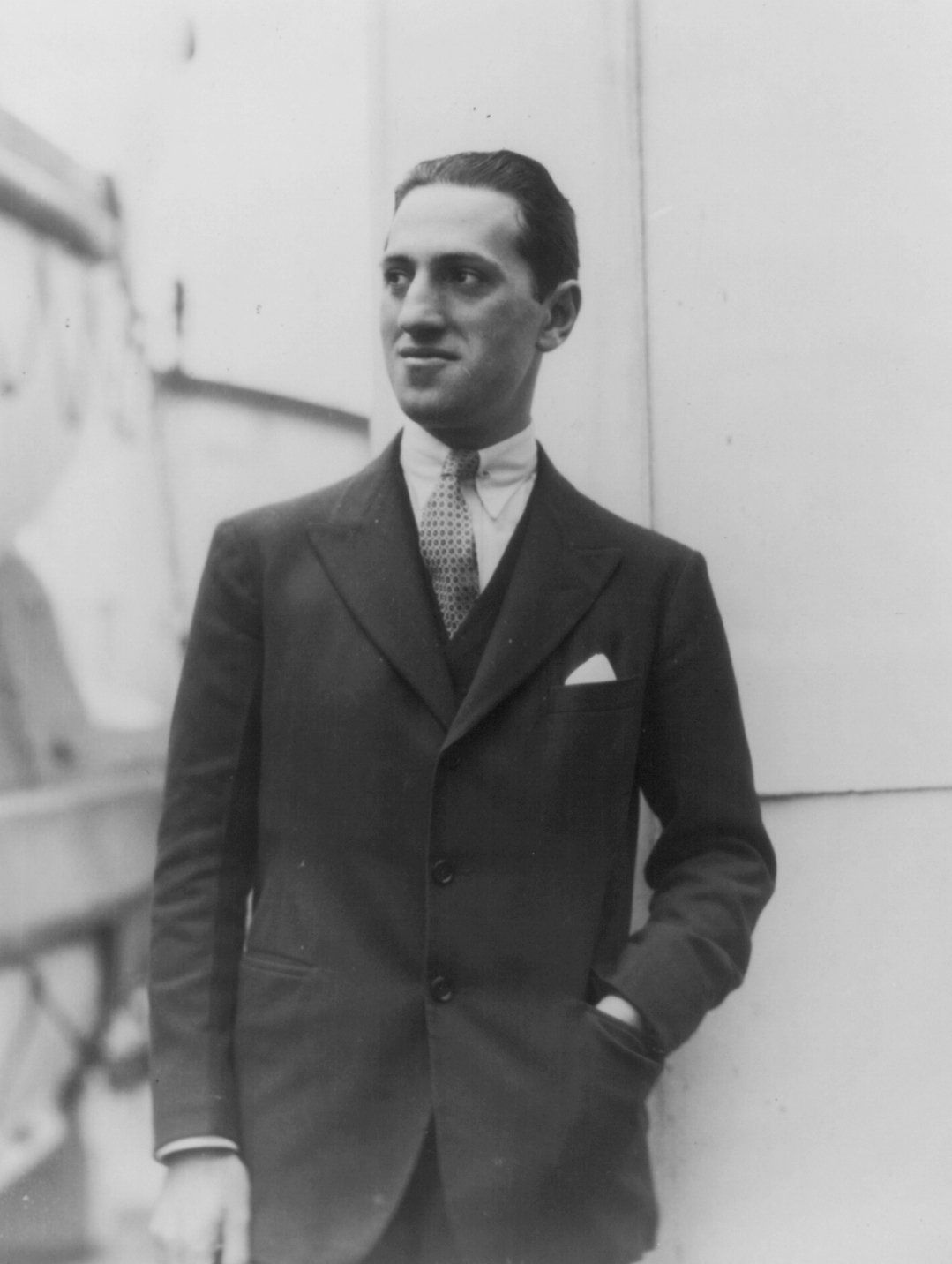

"I frequently hear music in the very heart of noise. In my normal mood, music drips from my fingers. Life is a lot like jazz, it’s best when you improvise."
-
Brief Points of Interest
George Gershwin was a classical and jazz music composer and pianist. He was the younger of two brothers. His super insightful elder brother Ira Gershwin famously wrote most of their lyrics whilst George was the compositions expert in piano.
Their most notably successful orchestral compositions was the original 1924 Rhapsody in Blue, covered by Duke Ellington and Miles Davis, to name just 2 jazz giants.
Another undisputed heavyweight of compositions was “ Embraceable you” covered by Judy Garland, Frank Sinatra, Charlie Parker, Nat King Cole in 1928 and further famously in 1930 by Ginger Rogers under the meticulous choreography of Fred Astaire in the Broadway Musical “Girl Crazy”. Ella Fitzgerald dedicated a 1972 cover versions album to the genius of George Gershwin.
George received his post humous Academy awards nomination for Best Original Song at the 1937 Oscars.
Together with his brother Ira Gershwin, they were awarded the Congressional Gold Medal in 1985.
The Ginger and Ira Gershwin Lifetime Musical Achievements Awards was established by UCLA - University of California Los Angeles.
100 years after George’s birth. A Centenarian post humous Pulitzer Price was awarded for existing Iconic contributions to American music.
HRH Queen Elizabeth II
- Julian Calder
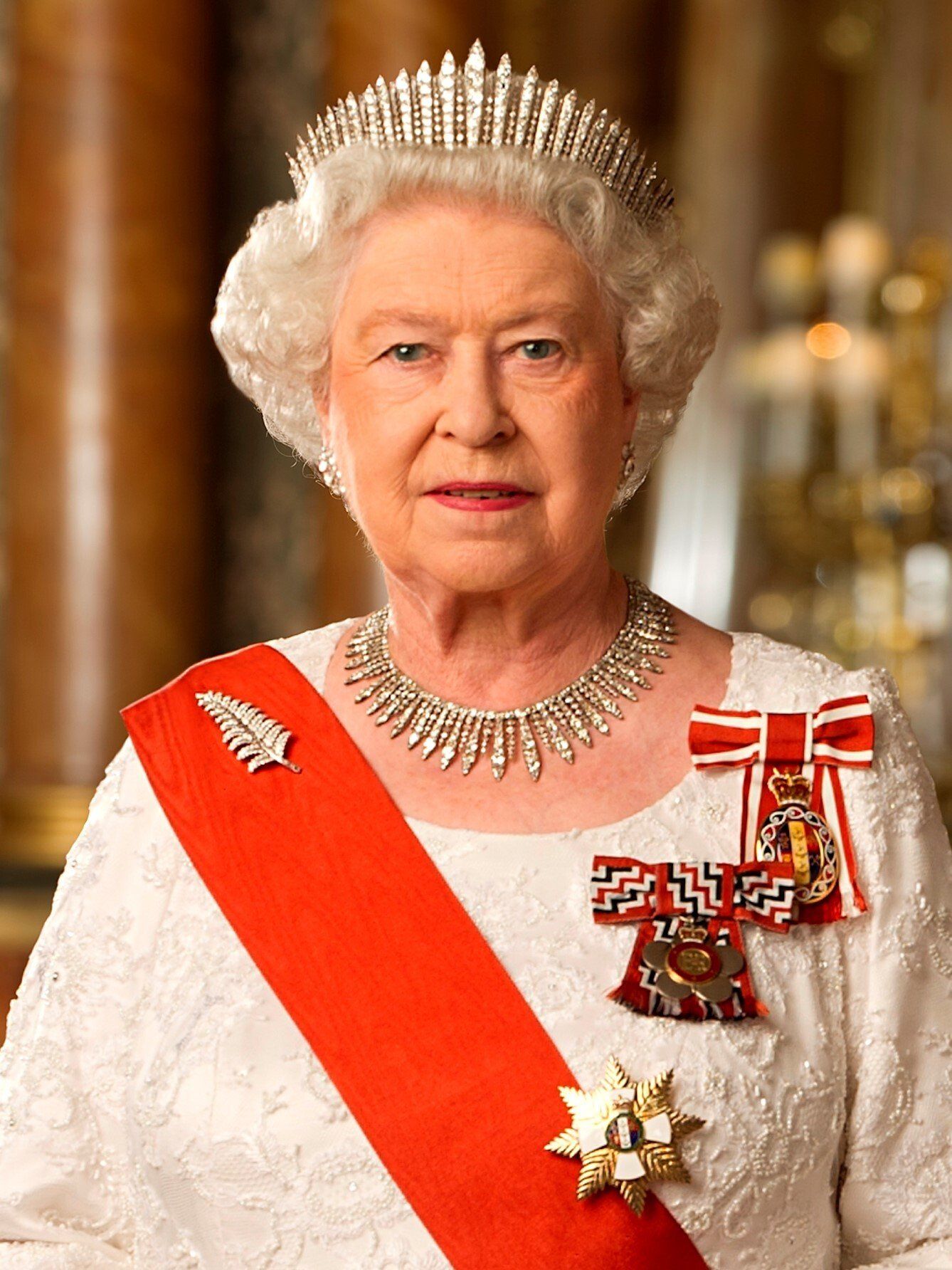

"We should take comfort that while we may have more still to endure, better days will return.
When peace comes, it will be for us, the children of today, to make the world of tomorrow, a better and happier place.
When I was 21, I pledged my life to the service of our people and asked for GOD’s help to make good of that vow.
Let me assure you of my thoughts and prayers.
Throughout all my life and with all my heart, I shall strive to be worthy of your trust.
It is worth remembering that it is the small steps, not the giant leaps that bring about the long lasting change.
It is through the lens of history, that we should view the conflicts of today and so give us hope for tomorrow."
-
Brief Points of Interest
These texts are not about opportunism, neither are they simply about destiny but predestinations.
A fact, reaffirmed by HRH The Queen Elizabeth II, who on the 08/09/2022 sadly departed to meet Her maker, after 70 years on the United Kingdom of Great Britain’s throne.
Predestinations manifested since becoming HRH Princess Elizabeth of York in December 1936, when Her father became King George the VI after his brother, King Edward the VIII, abdicated the throne.
HRH The Queen Elizabeth II didn’t only defend her faith in God, through Christmas Speeches, She attended Churches regularly and also defended the continued and appropriate welfares of war veterans, amongst 500 charity organisations patronages.
Without a doubt the humblest of dearly beloved Monarchs in British history. Evident in her testaments of Christ Jesus as The Prince Of Peace whilst Her eldest son was the Prince of Wales and exemplarily in defiance against the bigotted, narrow-minded and short-sighted naysayers, embarked on a peaceful journey in 1961 to Ghana, (formerly the Gold Coast) amidst regional social political unrest.
In a Western era when 37 of the American states
prohibited interracial marriages.
Her valiance and beliefs in living peaceably amongst all men from all walks of life were brought to towering heights when HRH courteously danced with President Kwame Nkrumah, who had previously campaigned against colonial masters and for the independence of African Nations. HRH was unjustly vilified instead of heralded for her boldness, distinguished foresights, and greatness, by the British press and parliamentarians on her return to these shores.
It was in fact during Her visit to South
Africa, as HRH Duchess of Edinburgh, that She made her life-long pledge of services to Britain and all Commonwealth Nations.
Needless to remind us, Her transitional accession to the title of HRH Queen Elizabeth II, was actually live and direct, on Her Royal visit to Kenya in 1952.
Prince Philip - Duke of Edinburgh
- Allan Warren
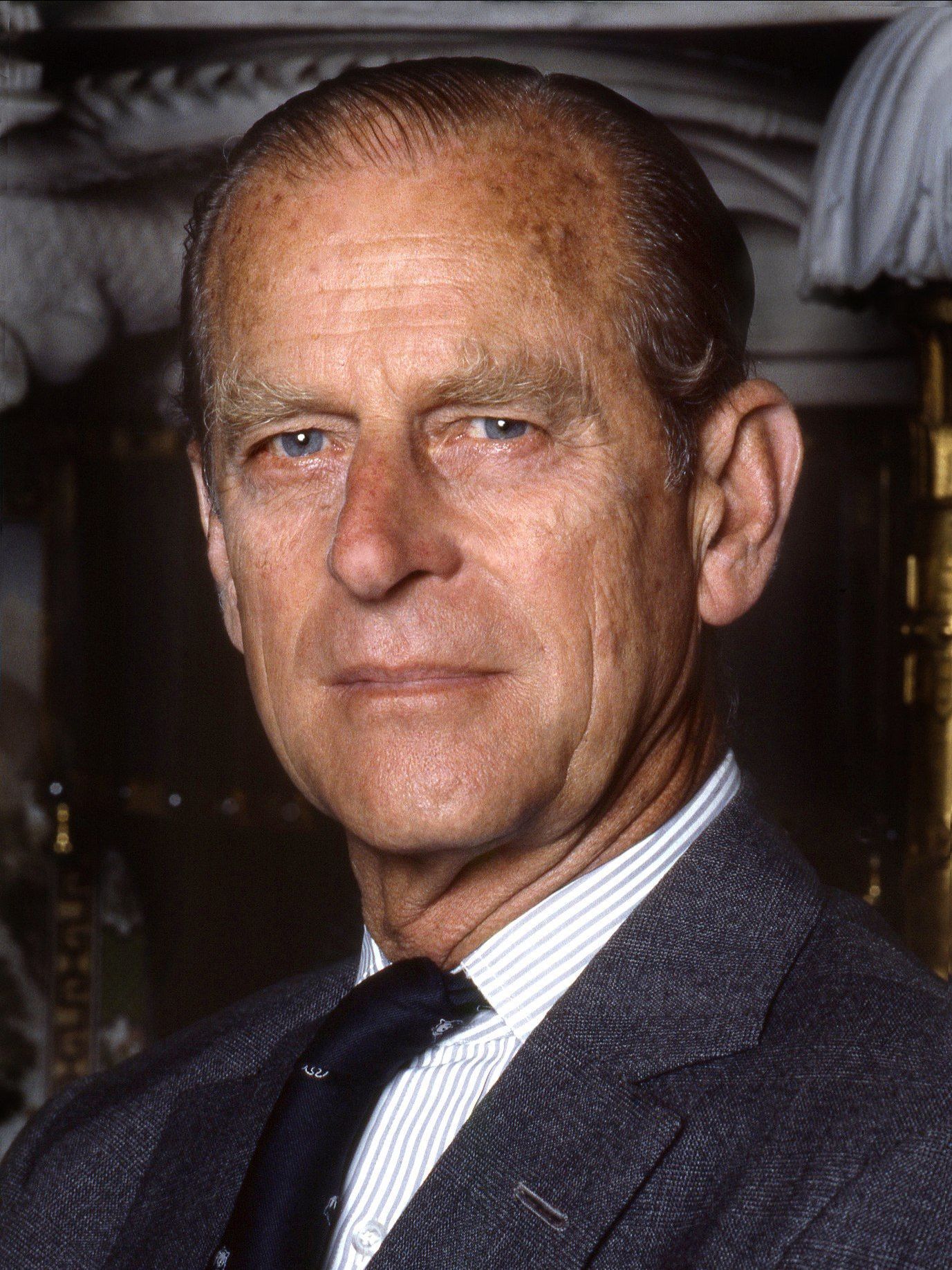

“Who we are, is not what we wear or what glitters. It’s the Spirit, that defines us. Everyone has to have a sense of duty. A duty to their family and society. I’ve frequently been misrepresented and would like to say, I don’t hate the press, I find a lot of it very unpalatable.”
-
Points of Interest
Where does one begin to raise a hat, salute or applaud, the longest serving consort in British monarchy. Happily married for 73 years, is a record to be indisputably admired by most of us.
Prince Philip was a benevolent man who was patron to over 700 organisations. His award schemes engaged and encouraged people from all ethnic and less privileged backgrounds whilst providing various socio-economic integration through educational, recreational and business incentives.
As the only son amidst sisters, he sacrificed his inherent line of paternal succession to two thrones of Greece and Denmark, for his exemplarily humble and true, life-long love for Her Majesty The Queen. A man whose mother was also called Elizabeth and born in Windsor Castle, adopted his mother’s style of citizenship to marry the then Princess Elizabeth of York, heir presumptive.
In the words of Princess Diana, Prince Philip was the peacemaker of the Royal Family, even after the couple of uncharacteristic separations his elder sons went through. His truest of personalities and deepest of humanitarianism were undeniably rooted in the Greek Orthodox Christianity upbringing by his dearest of great mothers.
An outspoken pacifist, who once said during the war “It is up to us to make a choice between a peaceful society or the destruction of the world” - a statement that still speaks with high decibels 2 years after Prince Philip’s passing. We can only hope our blinkered politicians would stop ruling in their pleasantries and paraphernalia of office and instead awaken to the historic servanthood of great leadership!
Abraham Lincoln
- IceKoldKube
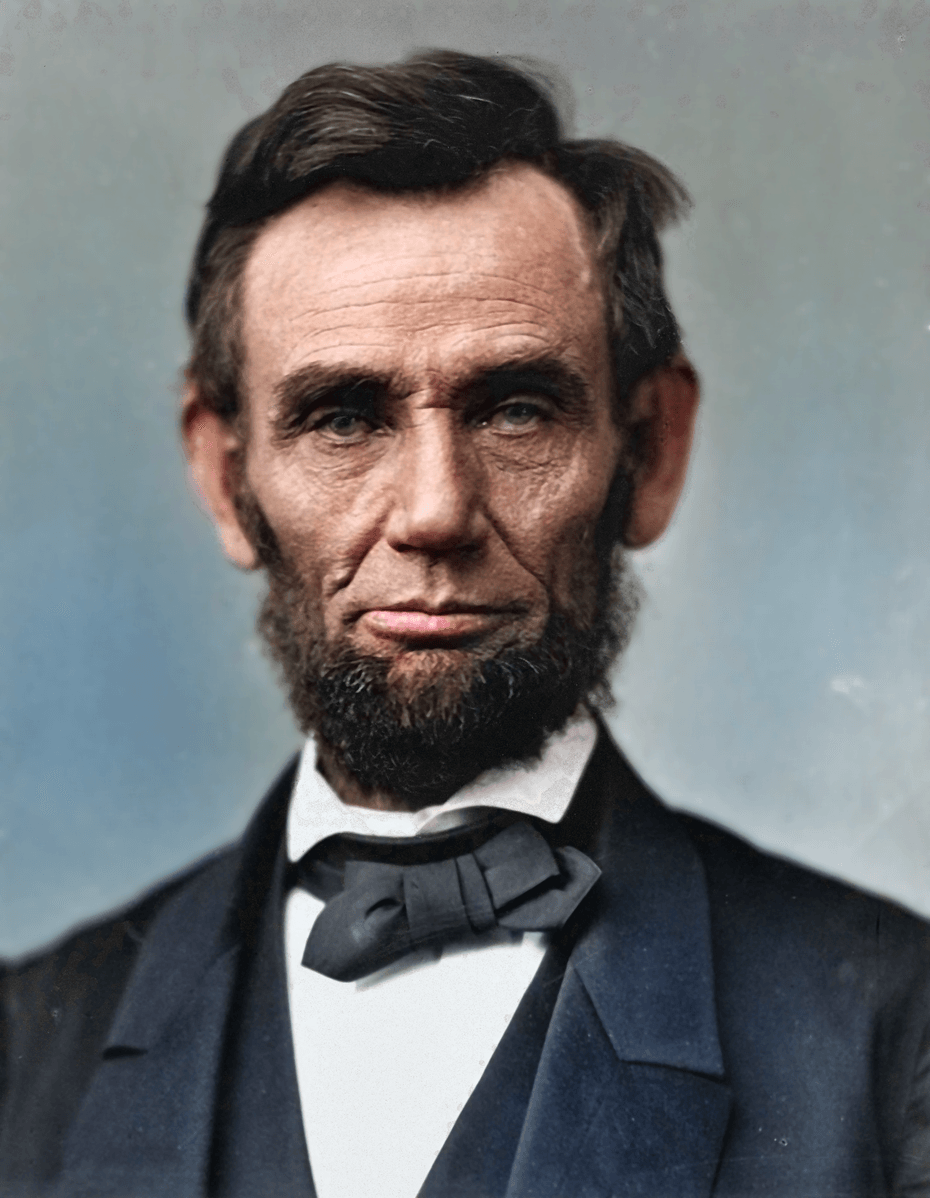
"The best thing about the future is that, it comes one day at a time. My concern is not whether God is on our side, my greatest concern is to be on God’s side, for God is always right. He who would be no slave, must consent to have no slave. Those who deny freedom to others, deserve it not for themselves."
-
Brief Points of Interest
Abraham Lincoln was and still is generally regarded with exemplary esteem as USA’s greatest president. The son of an English migrant who arrived in USA in the 17th century, was born poor, self educated to the admirable degree of a qualified Lawyer. Amongst several other pressing matters, the injustices of slavery, consequential oppression, subjugation and segregation added humanitarian fuel to his aspirations to make a better change in humanity.
Lincoln went into politics, rose to the very top by being elected the 16th American President, successfully led his country out of a civil war, regenerated her economy and 2 years before his sad assassination, implemented “Proclamation 95”, an executive order on the 1st Jan 1963, for the eventual nationwide abolition of slavery.
DUKE ELLINGTON
- Louis Panassié
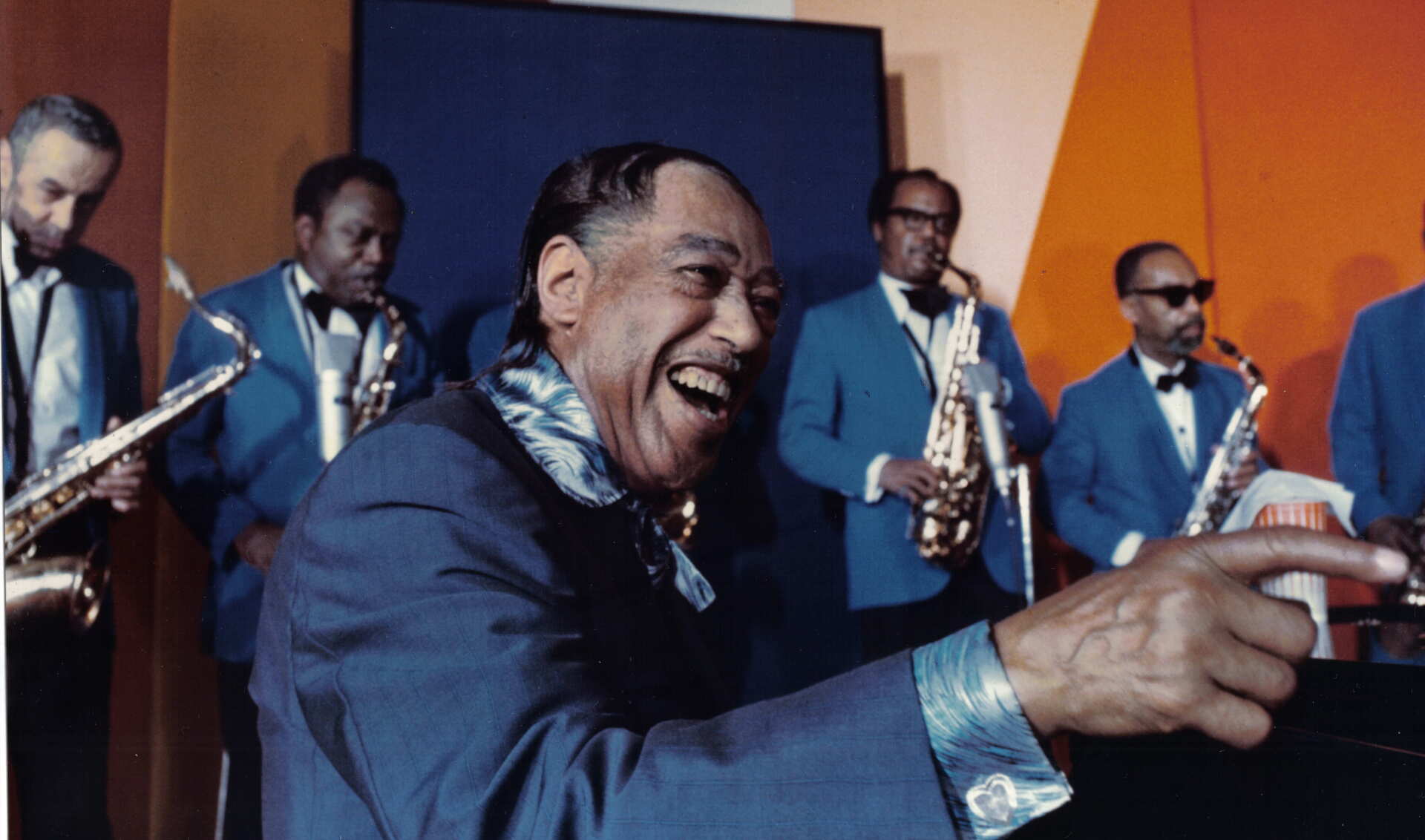

"A problem is an opportunity for you to do your best. The wise musicians are those who play what they can master. The most important thing I look for in a musician is whether he/she knows how to listen. If anybody was Mr Jazz, it was Louis Armstrong."
-
Brief Points of Interest
Duke Ellington was arguably Jazz music greatest pianist/musician but undoubtedly the eloquent Jazz composer with the largest innovative compositions of well over 1000 songs. The most notable of his numerous collaborations was Billy Strayhorn, an integral Jazz lyricist, pianist and composer, with whom Duke worked for over 30 years famously as they orchestrated compositions for over 20 yrs in New York’s historic Cotton Club amongst several landmarks on well sought after occasions, despite the racial barriers.
14 Grammy Awards were won out of 24 Nominations
9 of his singles produced between 1928 and 1967 were inducted into the Grammys Hall of Fame between 1975 and 2008 respectively
Over 20 Honorary Awards include : Deutscher Film Preis - Best Music Award 1957
NAACP Spingarn Medal 1959 and
Presidential Medal of Freedom in 1969 to name but a few
RAY CHARLES
- Victor Diaz Lamich
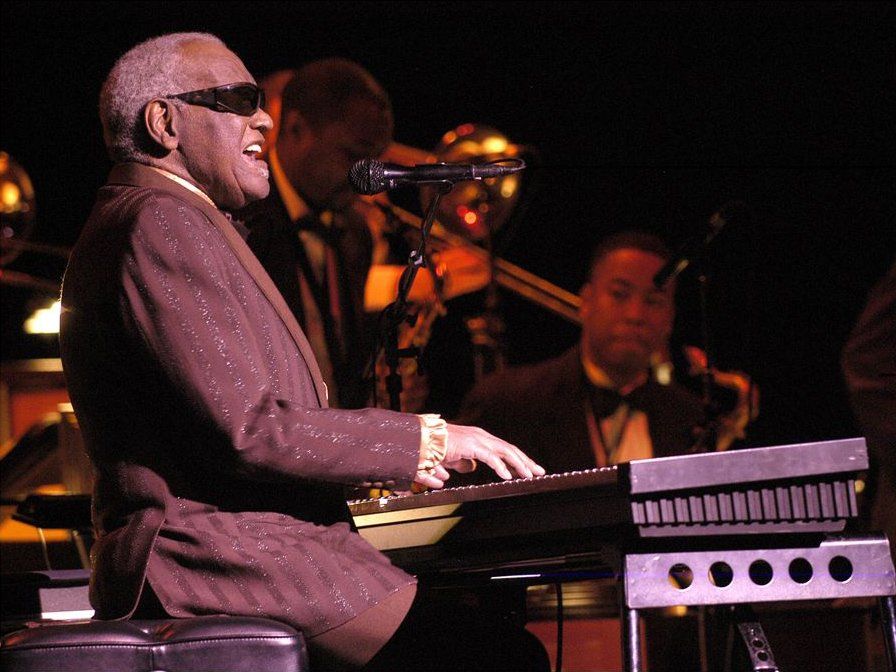
"Music to me is like breathing. I don’t get tired of breathing, I don’t get tired of music. What makes my approach special is that, I do different things. I do Jazz, Blues, Country music and so forth. I do them all, like a good utility man. I really believe if you’re gonna be good, you’ve got to practice. Don’t go backwards, you’ve already been there!!"
-
Brief Points of Interest
Ray Charles was an American Master of the unique sounds he made, whilst playing the piano and to complementarily synchronise with his singing. He still is globally acclaimed as one of the most profusely talented singers of all time, even more so, heralded as the music genius of his time.
Ray pioneered Soul music by his exemplary fusion of Gospel, Jazz, Blues with Rhythm & Blues. Further to his rise to stardom were his fusion of Country music with Rhythm & Blues to make Popular (Pop) hits. Such were his versatilities, he released 2 successful consecutive albums called Modern Sounds in Country and Western music Volumes 1 & 2. Followed by profound catalogue of chart topping hits from various collaborations and cover versions.
The progressive evolution of Soul, RareGrooves, Northern Soul, Funk and Rock in the late 60s/70s saw Ray Charles alternatively milking proceeds from his, ABC Paramount distributed Crossover Record Label. Ray Charles has to his name over 30 Awards and several honorary tiles plus landmarks/monuments. Including 17 Grammys won out of 37 Nominations. In 1979, "Georgia on My Mind" was made the official State’s song coupled with an induction into the Georgia’s Music Hall of Fame. 1981 saw Ray Charles Star on Hollywood Walk of Fame. 1986 was the year Ray got inducted into the Rock and Roll Hall of Fame.
JAMES BROWN
- dbking
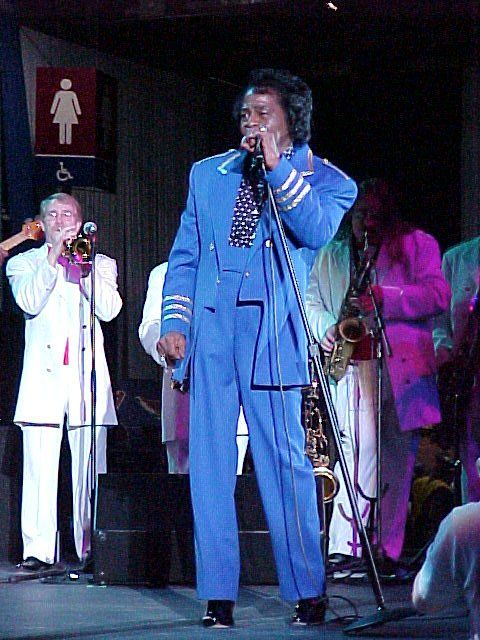

"I just thank God for all the blessings. Sometimes you struggle so hard to feed your family one way, you forget to feed them the other way, with Spiritual nourishment, everybody needs that. Help yourself so you can help someone else."
-
Brief Points of Interest
An American Icon revered as the most meticulous dancer, musician, producer and bandleader. Such were his disciplines and commitments that long sessions were often the norm during rehearsals and studio recordings until every beat was perfected to JB’s tonal and timbres specifications. Stage presentations were strictly adhered to also.
The CEO of funk music, Mr Dynamite aka Numero Uno Soul brother who began his career as a Church Choir member went on to be ranked Number 1 in the Billboard’s R & B top 500 artists charts for 6 decades from mid 20th Century. The funk master and founder who was also a Philanthropist, diligently observed his local Augusta Georgia’s civic roles as a benevolent model, especially with educational institutions.Till this day James Brown is still the most sampled musician, whose dance moves have always equally been copied from the 60s through the 80s by the likes of Michael Jackson and Prince, thus far.
Ranked 7th in the 100 Greatest Artists of All Time. Recorded, 59 studio albums, 17 live albums, 61 compilation albums and 7 Videos/films, all by one music legend called James Brown. He had so many chart successes, he redefined the charts by residing in it for decades amongst his contemporaries.
James Brown won over 50 Awards including
1983 Georgia Music Hall of Fame
1986 Induction into the Rock & Roll Hall of Fame
1992 Grammys Lifetime Achievements Award
1997 Honorary Star on The Hollywood Walk of Fame
BMI Urban Music Awards over numerous years that includes 10 for R & B plus 6 for Pop music.
SAM COOKE
- Macfadden Publications
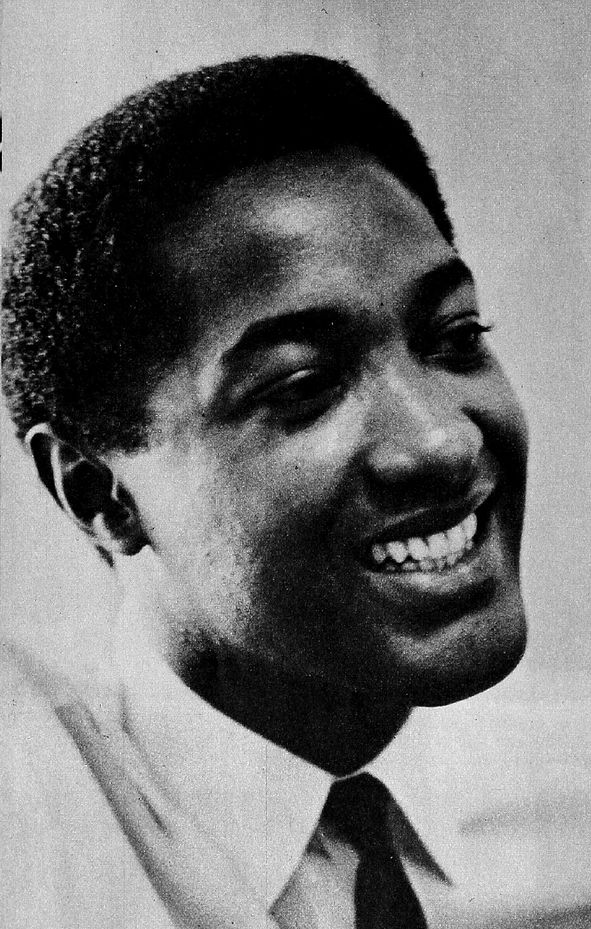
‘It’s been a long time coming but I know change is going to come. It’s been too hard living but I’m afraid to die because I don’t know what’s up there beyond the sky.’
-
Brief Points of Interest
Sam Cooke was an iconic singer, pianist and composer renowned for his unforgettable voice,
complemented by his style of singing. He was one of the pioneers of Soul music, not only as a singer but also as a CEO of his record label and publishing company. An entrepreneur in the making in a short lived, 8 years music career whereby he released over 40 singles in both the Billboard and Top 40 singles charts in the US alone, needless to talk of global acknowledgements and attainments. He was often called the King of Soul music.
Awards and honorary recognitions include
A Rock and Roll inductee in the inaugural year 1986
A Song Writers Hall of Fame induction in 1987
A Star on the Hollywood Walk of Fame 1994
A posthumous Grammy Award for Lifetime Achievement in 1999
The Californian Magazine Rolling Stone voted Sam Cooke the 16th Greatest Artist of All times top 100.
OTTIS REDDING
- Stax Records
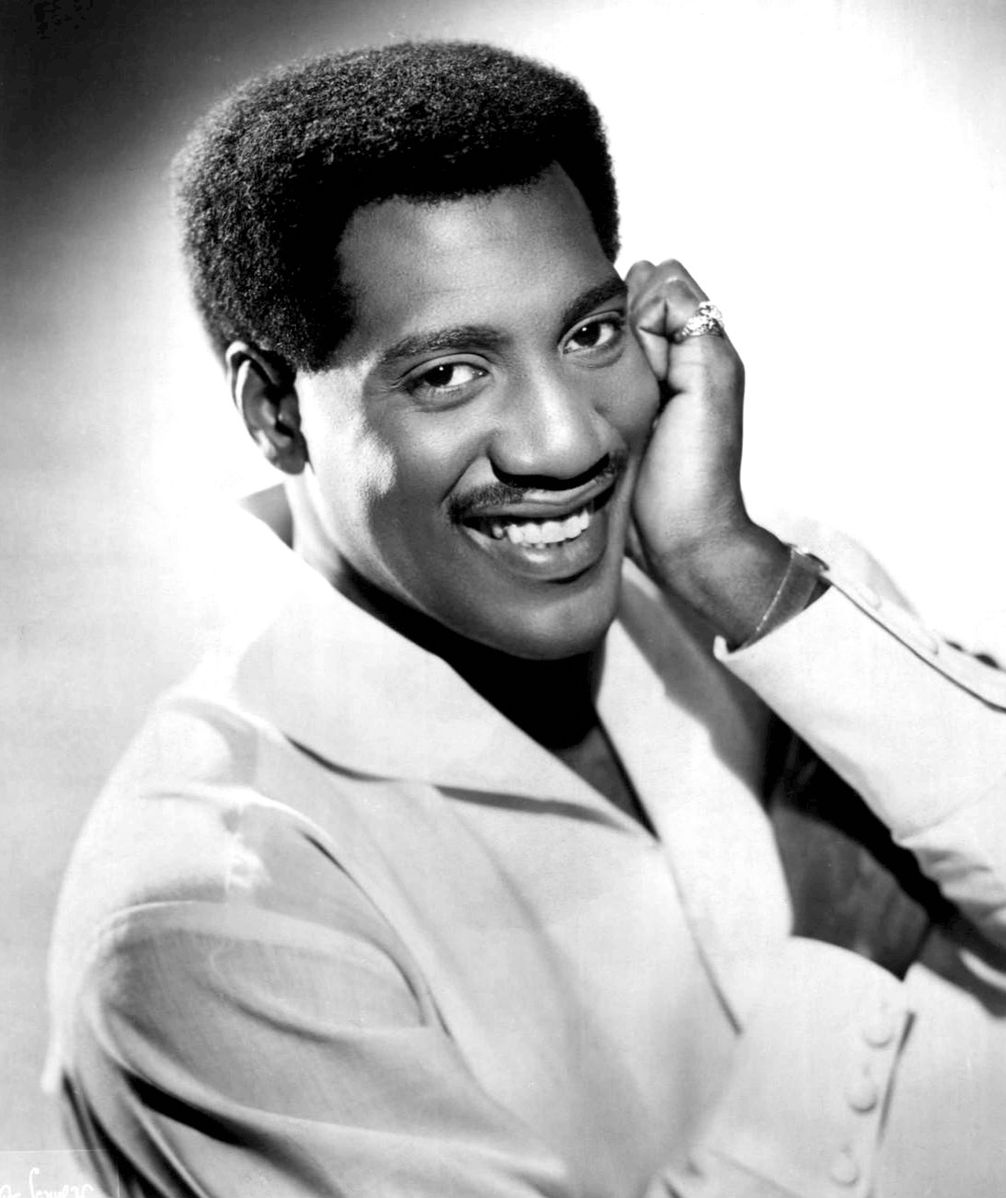

‘If you want to be a singer you’ve got to concentrate on the business of entertaining and writing songs, Always think different from the next person and don’t ever do a song as you heard the next person do it. I love England, the people are so groovy.’
-
Brief Points of Interest
Ottis Redding was an American singer and songwriter acclaimed by his contemporaries and thus far to have been one of the greatest singers of all time. Like Sam Cooke, Ottis was also revered as the King of Soul music. He too, didn’t live long, sadly because of a fatal plane crash at the budding age of 26 yrs.
After collaborations with Little Richard’s band the Upsetters. Ottis joined the blues guitarist Johnny Jenkins band with whom he got his Stax Records studio recording sessions that ultimately led to his 1962 Debut single, beyond when several Stax hits releases followed including one of his most famous singles, “Sitting on the dock of the bay”, that won him 2 Posthumous Grammy Awards in 1969.
His name was inducted into The Georgia Music Hall of Fame in 1988
In 1989 Ottis was inducted into the Rock and Roll Hall of Fame
1993 saw a 29-cent commemorative postage stamp in honour of Mr Redding
In 1994 Ottis was inducted into the Songwriter Hall of Fame
The Rolling Stone magazine ranked Ottis at 21 in the all time top 100 artists.
To name but a few in the very long list of awards, honorary acknowledgments and monuments.
BARRY WHITE
- Fotograaf Onbekend / Anefo
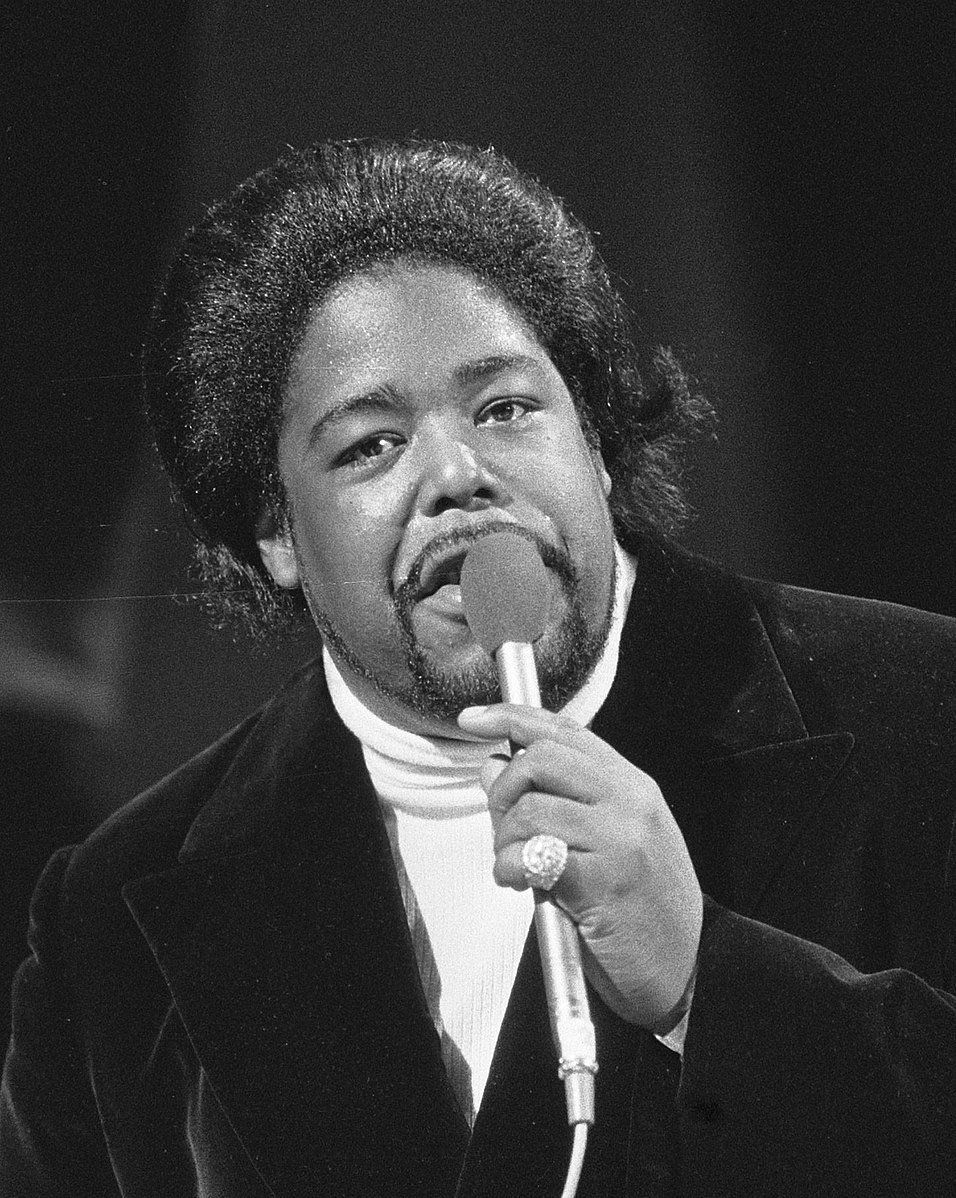
‘When I saw corruption, I was forced to find the truth on my own. I went to jail at 16 yrs old for stealing tyres off Cadillacs and when I got out I said ’Never Again”. Disco deserved a better name, a beautiful name because it was a beautiful art form. You’re my sun, my moon, my guiding star, my kind of wonderful, that’s what you are!!’
-
Brief Points of Interest
Barry White was the undisputed heavy weight of Gold and Platinum record sales. He sold over 100, 000, 000 (100 Million ) records world wide. 40 Platinum albums globally, 20 Gold and 10 Platinum singles were accredited to his name. A man who took to piano from his teenage days after years of listening to his mum’s Gramophones classical renditions.
The singer, songwriter and composer’s career began in the 60s with various collaborations and with most notable composer, arranger, conductor and producer Eugene Edgar Page, all the way to stardom with White’s famous backing female vocal trio - Love Unlimited. Barry’s exquisite orchestration with sensual lyrics conveyed by his almost unique low-pitch/bass voice distinguished his love songs and romantic music. His 27 years of studio masterpieces earned him 11 Grammy Awards Nominations out of which he won 2 in 2000, for his last, 1999 released album “staying power “
The Dance Music Hall of Fame honoured Barry White with a 2004, induction.
A posthumous Star was awarded one the Hollywood Walk of Fame in 2013
GREGORY ISAACS
- Saibo
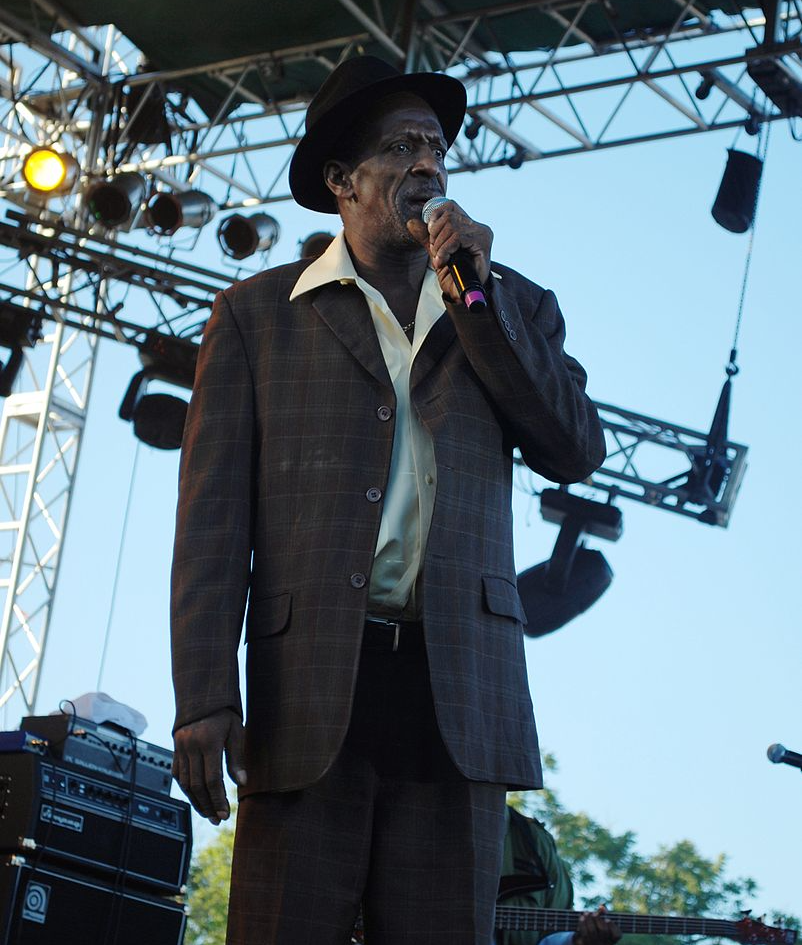

“I sing music on a worldwide basis. The Gregory Isaacs feeling is universal, trying to uplift who I can.”
“When people hear my name, I want them to think of “Night Nurse, Red Rose for Gregory and The Cool Ruler.”
-
Brief Points of Interest
Gregory Isaacs was a Jamaican singer, songwriter and musician who started singing from his teenage years and has, undeniably outstanding dynamic smooth voice, some say the best reggae voice for the lovers rock he pioneered at the African Museum Record label and shop of Errol Dunkley from where his second single was released to kick start his super bright career.
Further collaborations with other producers led to more hits and global recognition in over 40 years of recording and live international performances during when 78 studio masterpieces albums were released amidst several hundreds of compilations, continually pressed till recent years. Gregory was nominated 4 times for the Grammy Awards, amongst other legacies such as the Jamaican governments honorary “Order of Distinction" for his contribution to Reggae music, The Gregory Isaacs foundation, which was established in 2011 by his wife June Wyndham and onwards.
BURNING SPEAR
- Amtiss
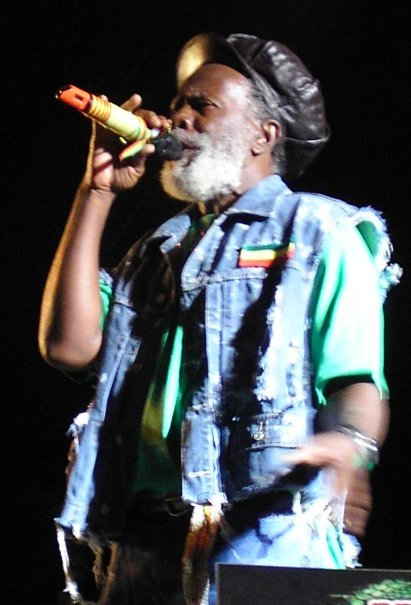
“You cannot play for 5 to 10 years and be a legend because it takes longer than that. We don’t need no more, dangers, difficulties, misunderstanding and violence. We need people to see, feel, touch, know, share with and change hearts with, each other.”
-
Brief Points of Interest
Burning Spear grew up loving Soul, Jazz, Rhythm and Blues from where his passion developed further into Reggae music. He is without a doubt, one of the most outstanding Roots Reggae singer and musician around today. The dynamic range of most of his recordings are incredible!! From his debut single in 1969 with Studio One’s pioneer and producer, Clement “Coxsone" Dodd through his last studio album in 2009 and thus far till as recent as a live performance this August 2022 at the UKs Brixton Academy. The relentless energy, sonic vibrations and resourcefulness of Saint Ann’s Bay born Jamaican musical legend, Winston Rodney aka Burning Spear keeps playing us “ sweet good conscious reggae music”.
There are 2 Grammy Awards won by Burning Spear for his 2000 and 2009 studio albums, amongst several other nominations and honorary acknowledgements ongoing.
Ottobah Cugoano
- Yale Centre for British Art
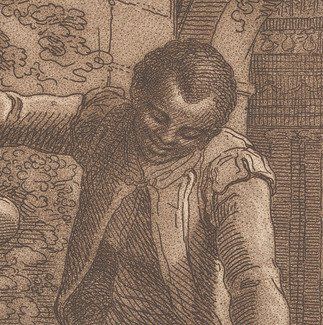
‘I must admit the shame of my own countrymen, that I was first kidnapped and betrayed by some of my own complexion, who were the first cause of my exile and slavery, but if there were no buyers there would be no sellers. For sure the depredators, robbers, and ensnarers of men can never be Christians but ought to be held as the abhorrence of all men and the abomination of all mankind."
-
Points of Interest
Ottobah Cugoano, was an abolitionist and philosopher whose Ist name is Kwabena. Enslaved as a 13yr old from the cape coast of Ghana, in 1770. From Grenada’s plantation fields of labour he was acquired and taken to England, from where he learnt to read and write before his compliant emancipation. He later joined Olaudah Equiano as prominent members of the The African abolitionists called ”Sons of Africa”. A 1787 publication by Ottobah bitterly expressed his thoughts and sentiments on the evil and wickedness of the slavery and trading of fellow mankind. 20 years later saw the abolition of slave trade in Great Britain, thankfully.
Granville Sharpe
- Perl
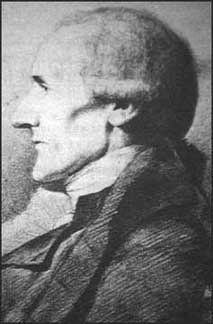
‘Why is it that the poor African meets with so different, a measure of justice, in England and America? A toleration of slavery is in effect, a toleration of inhumanity."
-
Points of Interest
Granville was a highly revered and eminent campaigner for the abolition of British slave trade. His disgust at the prevalent oppressions of the African slaves led him to plan an escape from Britain to an African province of freedom, which later became Freetown in Sierra Leone. Most freed and escaped African slaves that fled America for Britain, only to find grasses were no greener on these shores, took up the graceful opportunities supported by the British government to return to the optimistically alleged “province of freedom”, Freetown.
Olaudah Equiano
- Royal Albert Museum, Exeter
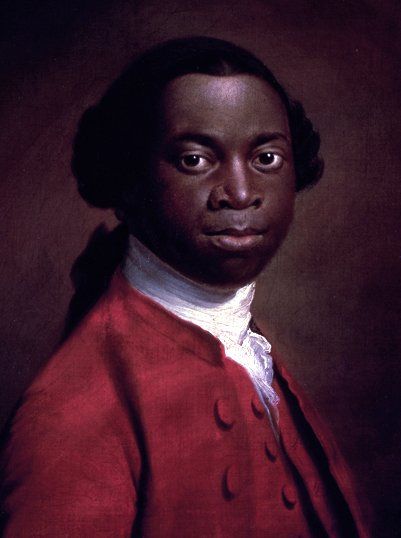

“Is it not enough that we are torn from our country and friends, to toil for your luxury and lust of gains. O ye nominal Christians! Might not an African ask you, learned you this from your God, who says unto you. Do unto all men, as you would men should do unto you.”
-
Points of Interest
Olaudah Quiano also known as Gustavus Vassa, was captured as an 11yr old boy from Igboland of the Igbo tribe, Southern Nigeria. On board the Atlantic slave trade ship to Barbados, he saw inconceivable, inhumane, barbaric, horrific, cruelty and sexual abuse by the crew members, armed whip masters and guards towards the barely surviving slaves that were made to lay in their waste despite the stench. It is therefore easy to see why Olaudah questioned the slave merchants and masters faith whilst slavery clearly contradicts the fundamentals of humanity, to begin with.
Olaudah persevered as he grew up, against sub-standards of slavery days between owners till he was able to pay for his freedom and moved to England. His lonely and destitute years of oppression were put to futuristic use in learning to read and write, which paid positive dividends in his journeys as a British writer and abolitionist. When he published his book The Narrative of the Life of Olaudah Equiano, the ghastly ordeal were truly shocking to the general public. His autobiography was published 9 times in his lifetime.
Thomas Clarkson
- Fisher's Drawing Room Scrap Book 1840
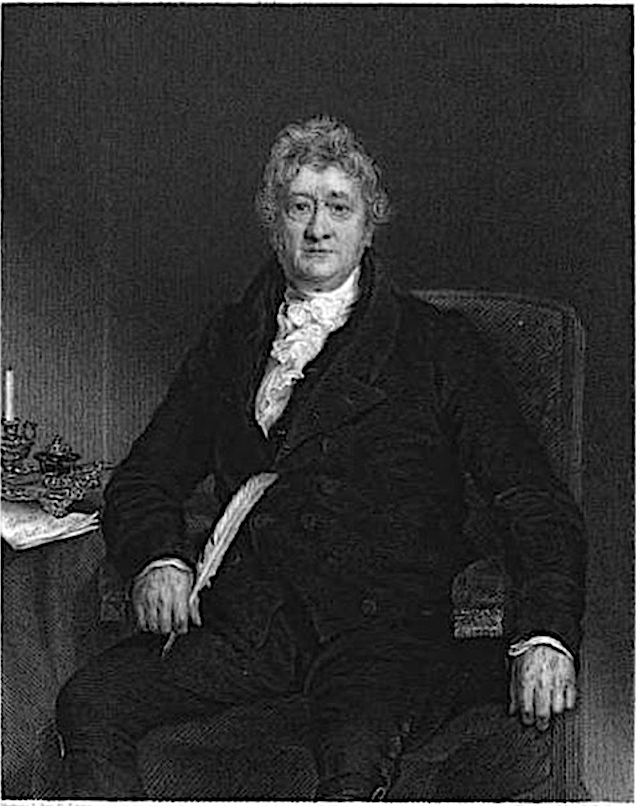
‘We cannot suppose therefore that God has made an order of beings with such mental qualities and powers, for the sole purpose of being used as beasts or as an instrument of labour."
-
Points of Interest
Thomas Clarkson, an English abolitionist helped found the Society for Effecting the Abolition of Slave Trade and the Committee for the Abolition of African Slaves. In 1785, Clarkson won a Cambridge University prize for researches on slavery. He went further by asking the public, if it was lawful to make slaves of others, against their will? Clarkson travelled extensively to further research the inhumane conditions and social injustices. The findings of which, he handed over to William Wilberforce as campaign supporting evidence.
Charles Ignatius Sancho
- Thomas Gainsborough
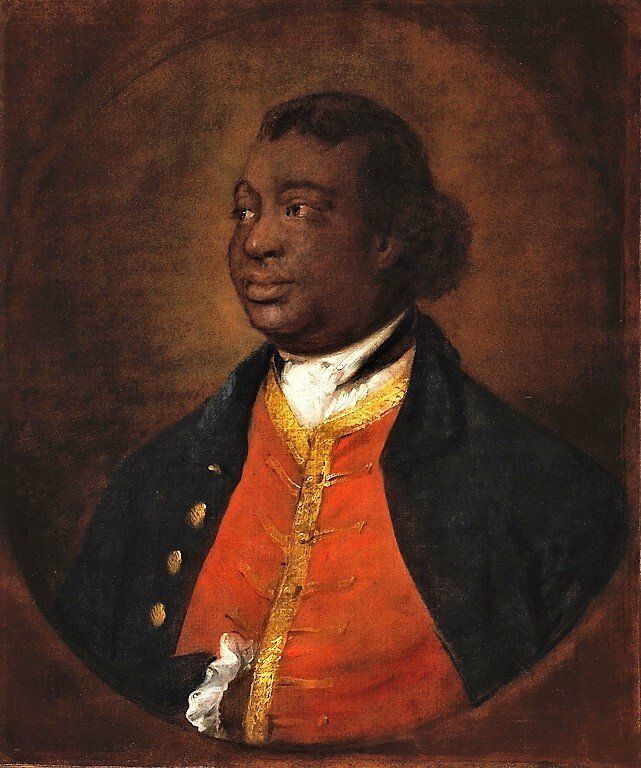

“Time leaves, the marks of his rough fingers upon all things. Consider slavery-what it is-.How bitter a draught and how many millions were forced to drink it.”
-
Points of Interest
Born in 1729 on board an Atlantic slave trade ship and sold with his parents but was brought to London as a 2yr old after both his parents died. As a teenager, after 16 yrs living with 3 sisters. Sancho sought refuge with the local, 2nd Duke of Montagu, who empathetically taught him to read, write and play music. Sancho after freedom from the Duke, progressed unto shop keeping and as he excelled in business, became a landlord, gained the rights to become an integral member of the British abolition movement followed by his historic qualifications to vote, democratically. He was the first registered Black Briton to accomplish such status, The British abolitionist, writer and composer’s penned, "The Letters of the Late Ignatius Sancho, an African" became the very first published writer’s collection by an African descendant.
Hannah More
- Henry William Pickersgill
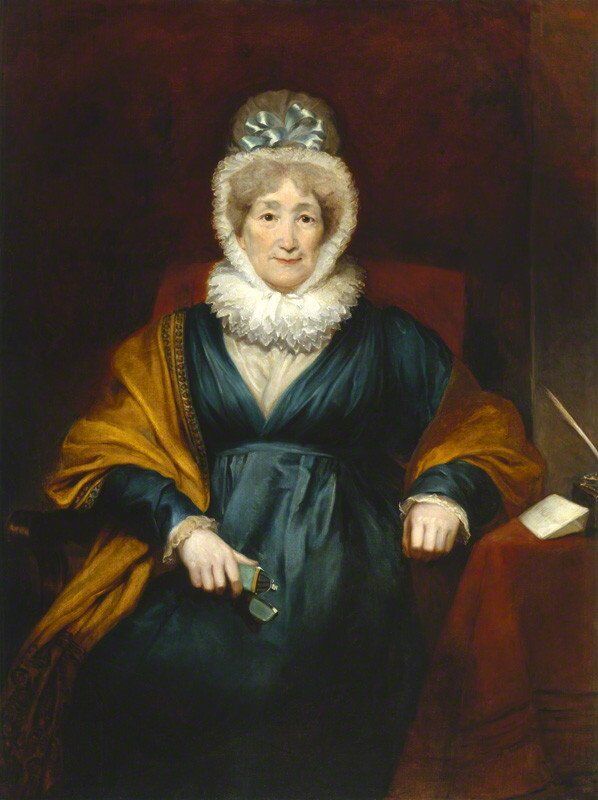
‘It should be held as truth, that what is morally wrong cannot be politically right. Sow an action, reap a habit. Obstacles are those frightful things you see, when you take your eyes off the goal."
-
Points of Interest
Hannah More was born in one of England’s three slave trade ports, Bristol. The teenage writing prodigy, taught in her father’s founded and funded school before advancing into a distinguished, poet, play writer, author and eminent member of the elite, London intellectual women. Her notable influences stretched to the social and legal justice campaigning, Society for Effecting the Abolition of The African Slaves Trade.
Progressive momentum, gathered by the humanitarian elites visions of a better tomorrow, led to stronger affiliations and into the House of Parliament, for the eventual enactment of Britain’s involvement in the African slaves trade abolition.
William Wilberforce
- Hohum
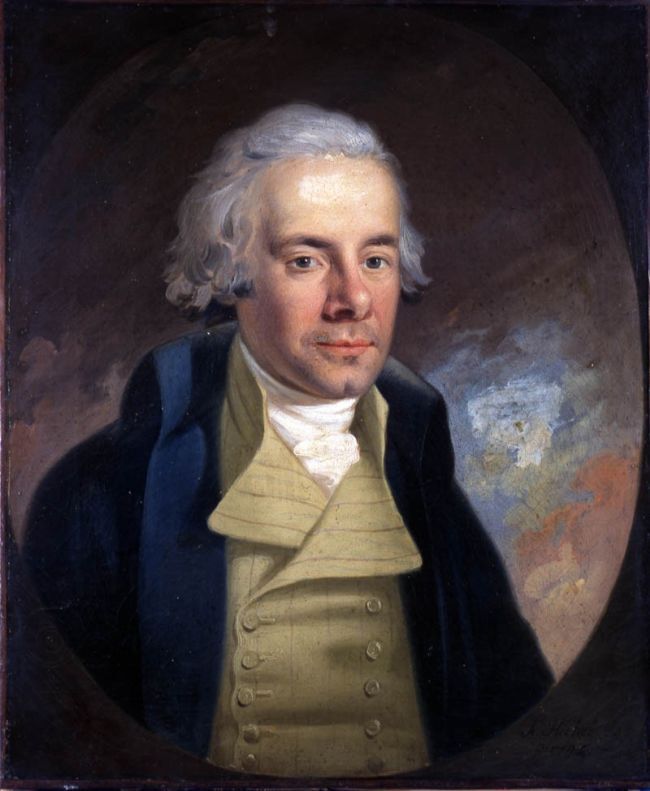

“God Almighty has set before me 2 great objectives. The suppression of slave trade and the reformation of manners. You may choose to look the other way but you can never say, that you did not know.”
-
Points of Interest
William Wilberforce was the CEO of abolition of slave trade and the emancipation of slavery from all of British Colonies. A Politician/Tory MP and philanthropist, renowned for his humanitarianism, oratory skills and exemplary social reforms. After his conversion to Christianity, he began his affiliated teams campaign for the abolition of slavery by becoming Parliamentary leader of the movement until the 1807 Slave Trade Act was passed into law. Wilberforce carried on, further campaign for all slaves to be freed in the entirety of British Colonies before the eventual absolute success of the 1833 Slavery Abolition Act was also passed.
Rosa Branson
- Jack Jones


“To be creative you have to be hungry to learn and have thin skin - open to feelings. The prehistoric Lascaux cave artists, painted passionately for the love and works of art, today’s art is mostly associated with fame and fortune. In all my paintings you would see, light. It symbolises hope. Paint your real feelings with superb technique!”
-
Points of Interest
Rosa Branson grew up with too many hurdles to jump for most children her age, of course there are those whose lives are made to overcome. Rosa could only remember her beloved father for a couple of years between the ages of 4 and 6, before he, Clive Branson had to fight 2 wars for Britain. The fascist Spanish civil war against Franco and the Burmese war that proved fatal.
Thanks to her valiant mother, Lady Noreen Browne, a life long dream to become one of Britain’s finest renaissance oil painting artist, was born and eventually attained, sustained and here to stay colourful for hundreds of years to come, against criticism by the modern day, impressionists style of painting.
7 decades gone and Rosa’s works of Renaissance, Old Master’s oil painted art have had over 21 exhibitions in the UK alone, whilst her paintings and proteges are located internationally. A reserved and humanitarian recipient of Honorary doctorate degree from University of Winchester. Ms Branson became a Honourable “Member of British Empire ( MBE ) in 2010. She is also a winner of The Morrison International Decanter Design competition. Ms Branson’s self acclaimed satisfactions outside of families are the several hundreds of paintings she has freely given to charity organisations over decades and the hundreds of thousands of aeronautic miles she travelled, across 5 Continents, including Africa, Asia and South American for the Salvation Army and The Red Cross.
Sir Richard Branson
- NASA
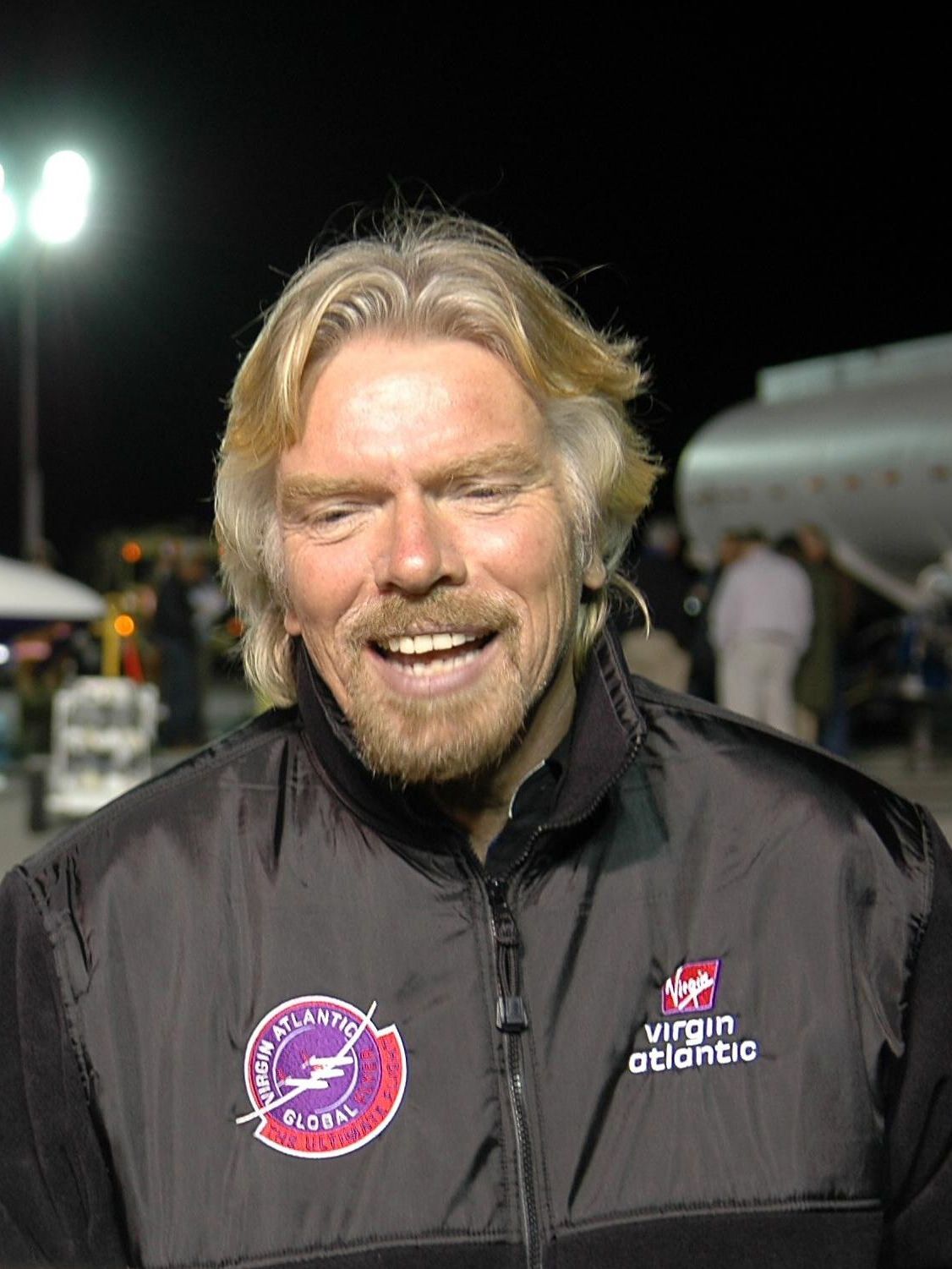
“If you don’t have time for small things, you wouldn’t have time for the big things. Start small but always think big. Respect is how to treat everyone, not just those you want to impress.”
-
Points of Interest
Sir Richard Branson is a globally acclaimed business tycoon, with extensive goods and services enterprise ownership across hundreds of companies. The founder of Virgin Group, whose burgeoning entrepreneurial journey began when he chose his career path instead of further academia, and ironically became a budget publisher of a magazine called “Student”, aged just 16 years old.
A vinyl mail order company gave birth to Virgin Records in the 70s, which eventually evolved into Virgin Group. It comprised a range of Virgin businesses including Megastores, Publishing, Cola, Cable Networks, Fibre Optics, Trains, Atlantic and Galactic to name a few, that proved instrumental in his amassed wealth, estimated to be several billion pounds.
Sir Branson has also been known to speak and act in support of various important causes, inspired by some of his mentors such as Archbishop Desmond Tutu and Nelson Mandela - both black pacifists who became the epitome of equality.
In recognition of his services to entrepreneurship, Sir Branson received his knighthood in March 2000 at Buckingham Palace.
Dr Dre
- danuvsbirdman
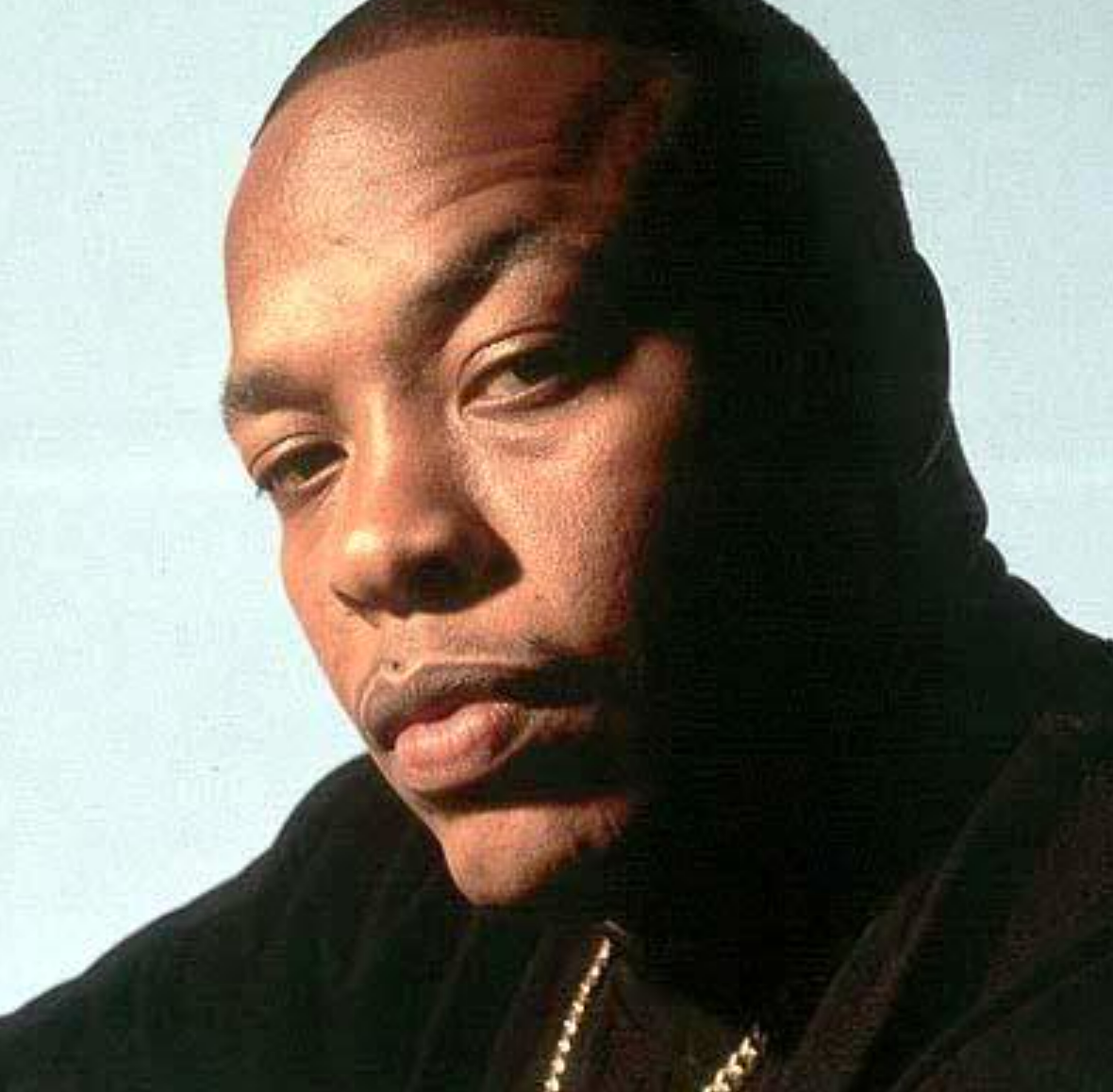
"I’m never gonna stop music, it’s like air to me. I’m going to try and change the course of Hip-Hop again."
-
Points of Interest
Dr Dre’s career started in the 80’s in an electro band before forming the more famous NWA and the rest of his illustrious acclaims are secondary, His 1992 solo debut -The Chronic is widely heralded as one of the finest, dynamically balanced studio recordings of all time, from which a Grammy Award was won. Whilst Dre has supported a lot of up and coming plus established stars, his collaborative productions to randomly name a few includes Busta Rhymes, Bilal, 50Cent, Mary J Blige, Xzibit, Snoop, Eminem, Warren G, Raekwon and so on and on.
The 2015 NWA’s biographical film - Straight Outta Compton follows several stints in numerous footages, opening doors to further successes. A renowned Philanthropist who together with his long time business partner, Jimmy Iovine donated $70M endowment to a South Californian Institution for creative arts amongst several other ideals.
Dr Dre amassed between 1990 and 2022 - 2 BET Awards, 7 Grammys and 2 MTV Awards from over 50 nominations.
Jay Z
- Music Allies


“Excellence is being able to perform at a high level over and over again. Belief in oneself and knowing who you are, is the foundation for everything great.”
-
Points of Interest
New York born rapper, producer and entrepreneur Jay Z has for decades proven instrumental in the limelights of numerous performing stars such as Rihanna and Kanye West to name a restrictive few. Tangible strings of business ventures paved way to greater acquisitions, corporations and further yielding unparalleled dividends en route to becoming the 1st Hip-hop/Rap billionaire.
Musically, Jay Z is undoubtedly one of the most successful, with record sales in excess of 150 million. The emphatic data on his awards won in classifications not commonly heard outside of the industry, is truly unprecedented and it reads thus -265 Awards from 580 nominations. We really must leave his records alone because there are several inductions and so and so forth.
Nas
- Dan Garcia

"Hip-hop is the streets, you can’t please everybody. Once you make it to the point of making it, you will appreciate the struggles."
-
Points of Interest
The son of Olu Dara, a Nigerian American Jazz and Blues musician. Nas also played the trumpet in his early years as his career burgeons. Undoubtedly one of the top 7’s finest, most illustrative and truest to the art of Hip-hop/Rap stars ever. Arguably or some say at least, alive today. He is revered as the greatest MC of all time, due to his exemplary, “immersive lyrical” attribute inclusive of masterly creative, illustrative, precision story telling.
A well renowned Hip-hop fundamentalist who has through his notions singled out commercialisation as a downturn factor in Hip-hop way back then until the industry finally realised his lyrics were in fact, futuristic.
It wasn’t until 2021, after 15 albums and 16 nominations from a career that began in 1994 that Nas received his 1st Grammy Award, though he had won 2 BET Hip-hop awards previously.
Kanye
- Isabella Alonso
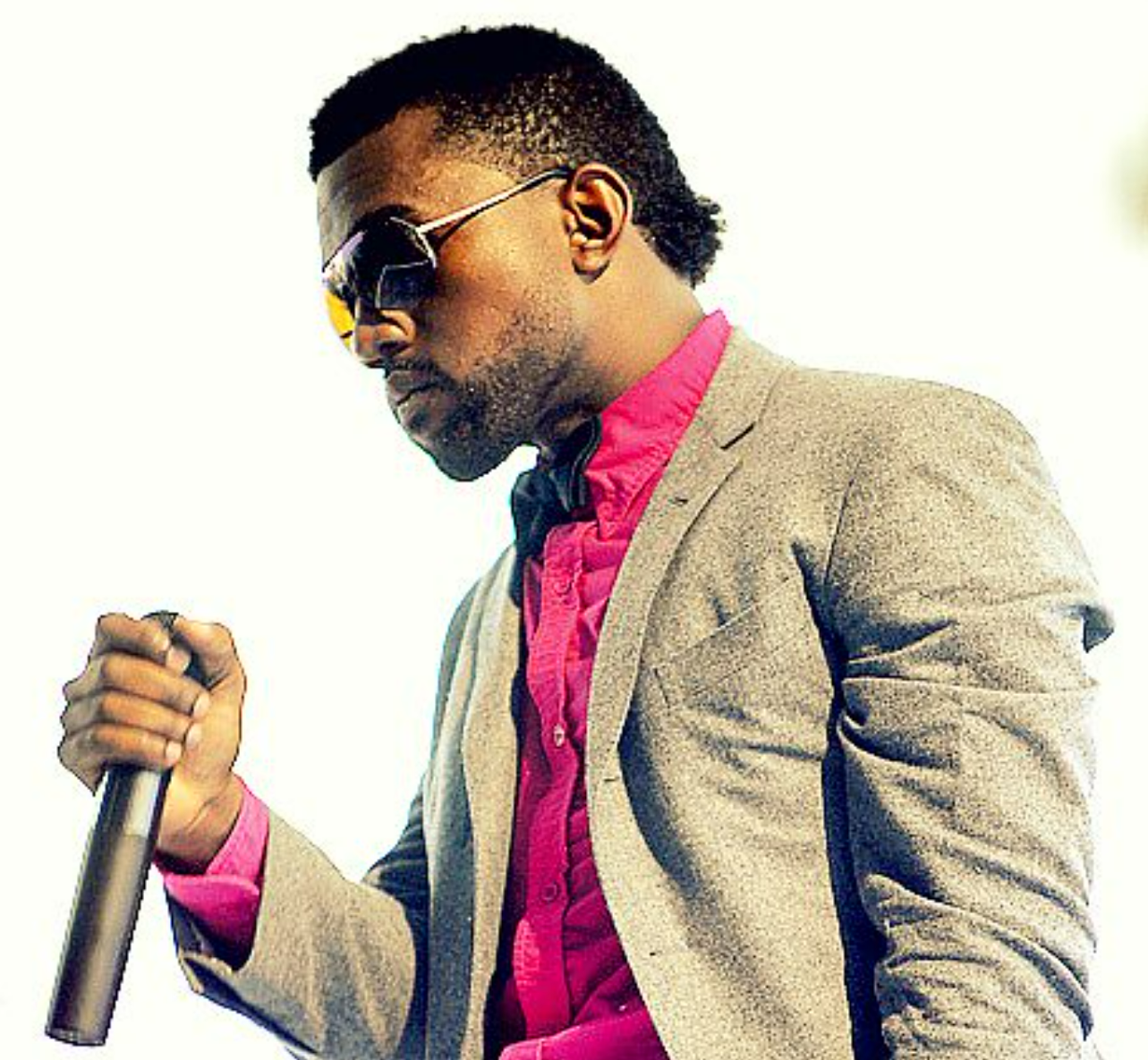

“I’m human, not always right nor on time. I’ve got opinions and don’t always say things in the proper way but my intentions are always pure. Keep your nose out the sky, your heart to God and keep your face to the rising sun. I still think I’m the best.”
-
Points of Interest
Singer, songwriter, rapper, producer and fashion designer. Kanye’s 2004 debut album - "College Dropout", with Jay Z’s Roc- A - Fella records was the start of an illustrious career and up to his latest of 2021.
He has globally sold over 170 million records, won 22 Grammys from 75 nominations. His design empire is worth $1 billion as he continues to prevail over smattering misconstrued public implications and music industry ethics.
However, millions of US Dollars, financial support of educational and entertainment foundations for the less privileged and abused children bear the hallmarks of Kanye’s positive attributes. Kanye has severally been acclaimed by music industry giants as been one of the exclusive best, if not the very best.
Quincy Jones
- Tom Pich
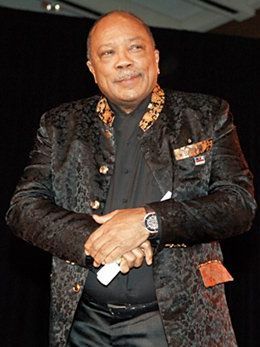
‘I learned real early why God gave us 2 ears and 1 mouth, is because you’re supposed to listen twice as much as you talk. The only music I don’t like is bad music. Excellence is not an act, it’s a habit."
-
Points of Interest
Quincy Jones was originally a Jazz trumpeter, arranger and conductor, whose development and engagements in an illustrious 70 year songwriter, music composer, record, TV and film producer career from mid-twentieth century till now, saw him collaborated with the A list of entertainment industry. From the 1950s productions with the likes of legendary Frank Sinatra,
Sammy Davis Jnr, Dean Martin, Count Basie’s orchestra and Miles Davis to the ground breaking, historic, highest ever album sold of Michael Jackson’s 1982 “thriller” (70 million
copies).
Quincy Jones list of accomplishments are simply unbelievable and has earned him the deserved honours and awards, which includes, just to name a very few herein:
28 Grammy Awards won - the 2nd highest ever won by an individual
1 Grammy Legend Award - won by less than 20 people thus far
John F Kennedy Cener Honours won in 2001
B E T Humanitarian Award in 2008
Honorary Doctorate from The British Royal Academy of Music in 2015
2021 was the year Quincy Jones was honoured with induction into The Black Music Walk of Fame
More than 30 film scores and soundtracks from 1965 successfully for over 20 years.
Irving Berlin
- Al Aumuller, World Telegram staff photographer
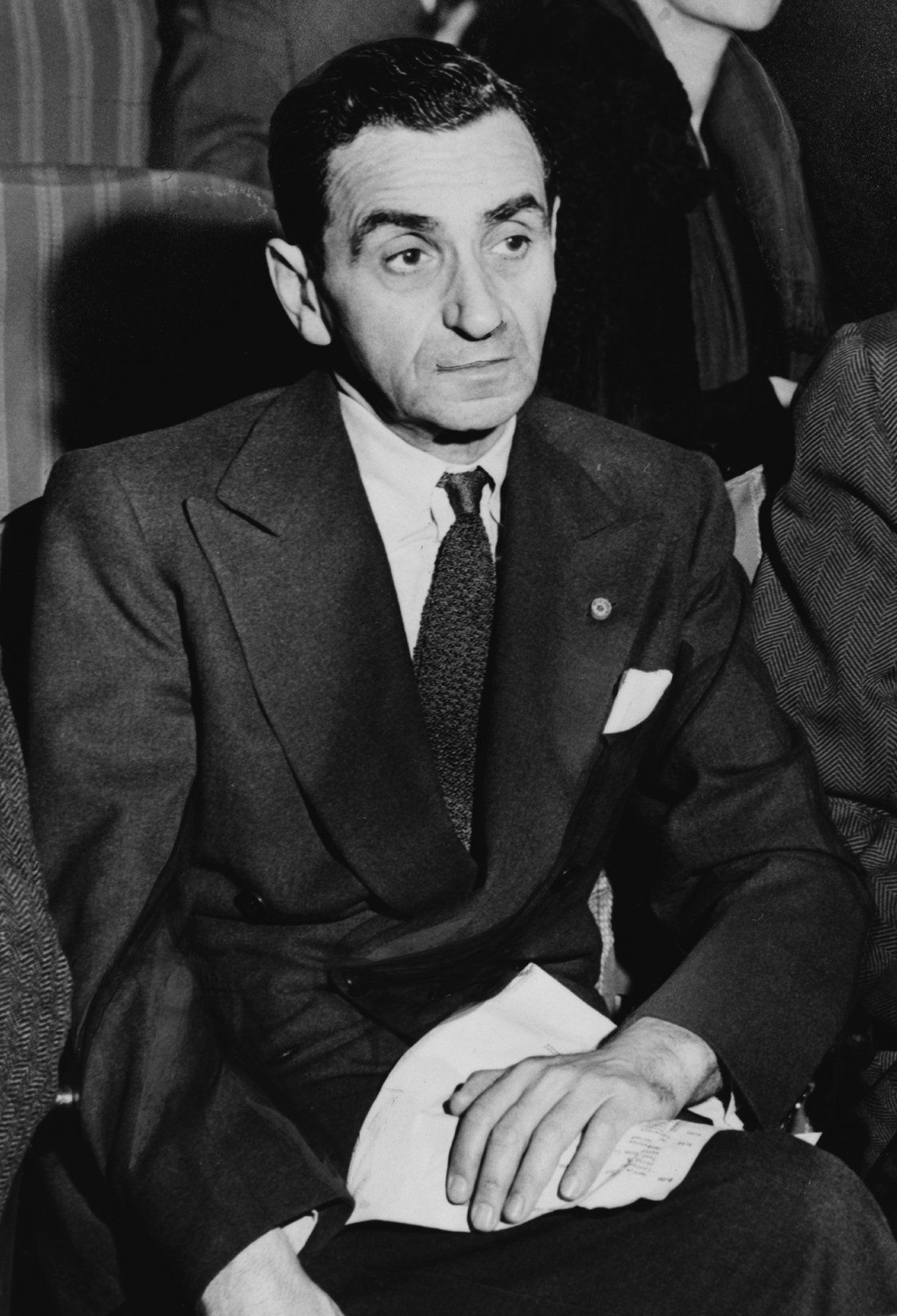
"There’s no business like show business. Never hate a song that’s sold 500,000 copies. Life is 10% what you make it and 90% how you take it. The toughest thing about success is that you’ve got to keep on being a success."
-
Brief Points of Interest
George Gershwin called Irving Berlin, the greatest songwriter of all time. Irving was a distinguished songwriter and composer who, aged 19 earned publishing rights and at 23 yrs of age, almost in a class of his own, had his 1st famous hit “Alexander’s Ragtime Band”.
Irving compensated for his piano skills limitations by putting more efforts into businesses yielding positive dividends. Such was his acumen that by age 30, he had already released hundreds of songs which kept productions rolling to over 1500 songs by the age of 60 yrs old.
15 Motion pictures songs for Hollywood and 2 dozen stage performances scores for Broadway theatres were to his accreditations including 25 chart toppers, which have been severally covered by over 50 notable musicians to date including Barbara Streisand, Bing Crosby etc.
1 - In 1943 Irving received the Academy Award for Best Original Song.
2 - Tony Award in 1951 for Best Musical Score.
3 - Received Congressional Gold Medal in 1954, for Patriotic Songs, most notably "God Bless America”.
4 - Grammy Award for Lifetime Achievements in 1968.
5 - Inducted at the very first annual ceremony in 1970 to the Songwriters Hall of Fame.
6 - Presidential Medal Of Freedom in 1977.
7 - Star on the Hollywood Walk of Fame in1988 amongst several other Awards, Honourary Acknowledgements and Monuments.
Arturo Sandoval
- Richiebits
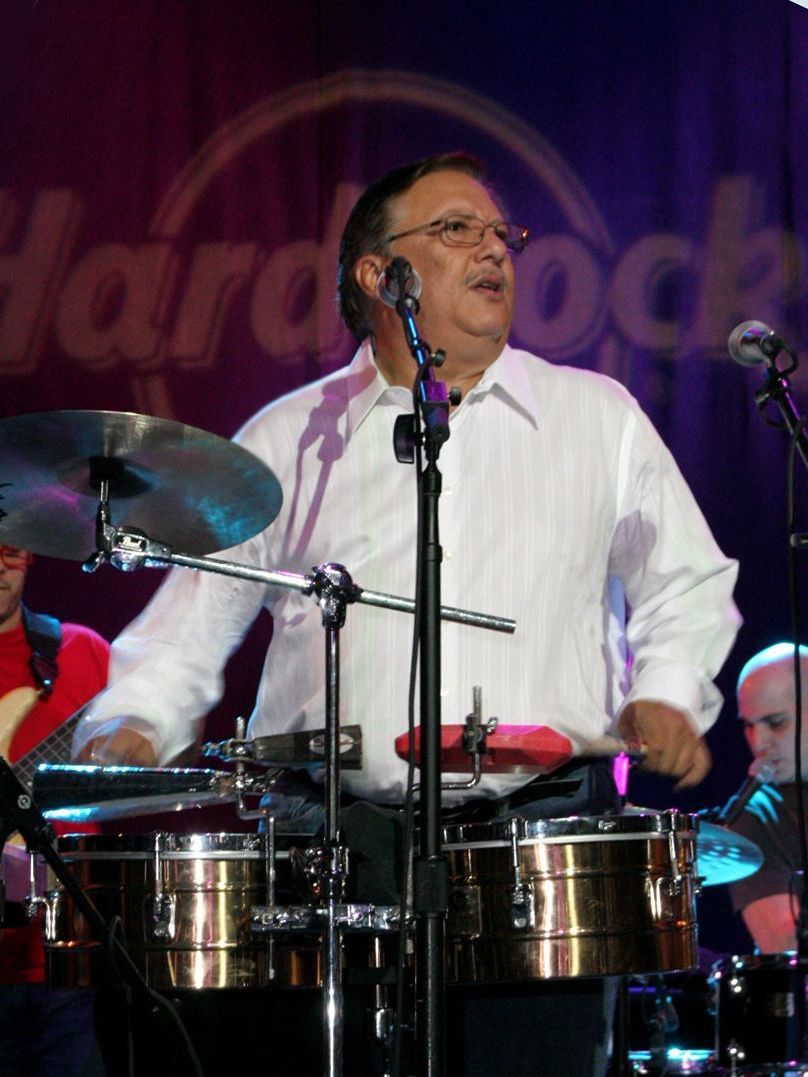
“To rise above the crowd, you must discipline yourself unceasingly. I have to play every day in order to keep control over my form.”
-
Points of Interest
Arturo Sandoval was a pianist, composer, trumpeter and timbalero. He began playing sessions with street musicians in Cuba before his teenage years and by age 24, was instrumental in the formation of his first band in 1973 before moving to the United States. He was influenced by Dizzy Gillespie, Clifford Brown and Charlie Parker to name a few. He performed in the 1995 Super Bowl.
The Cuban-American wrote an album for Dizzie Gillespie called "Dear Diz (Every Day I Think Of You) in 2012 and won a Grammy award for it amongst several others. Andy Garcia starred in the film "For the Love or Country” about the life of Arturo in 2000.
Arturo won 4 Grammy Awards from 11 Nominations, 1 Emmy Award and 6 Billboard Awards.
Chuck Mangione
- Marek Lazarrski
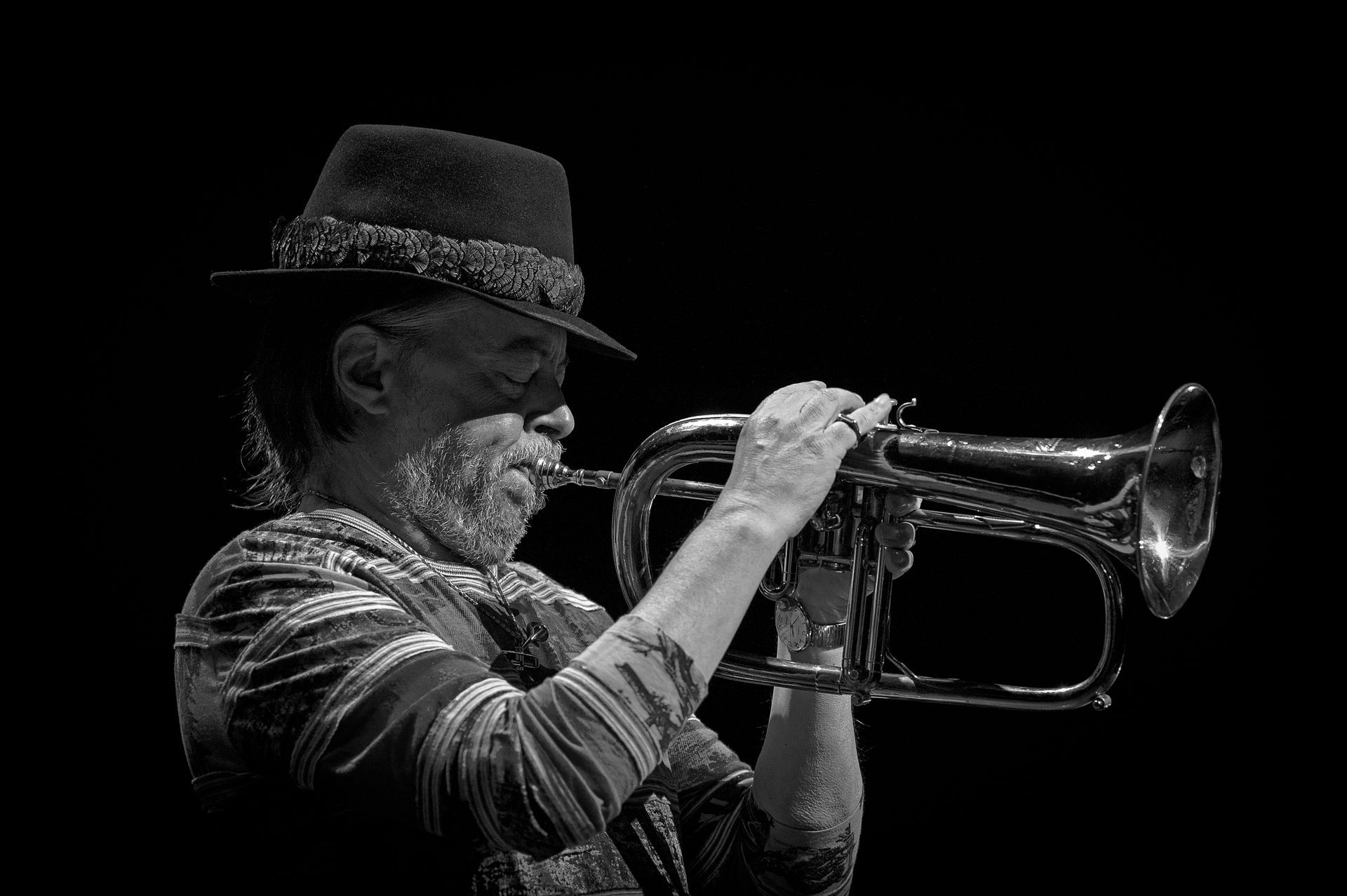

“I’m glad that I wrote something that brought joy to millions of people. Brazilian music has ingredients that I strive for in my own music.”
-
Points of Interest
An Italian descendant, New Yorker Chuck Mangione’s inherent flugelhorn trumpet playing was influenced during childhood by his parents’ love and hosting of jazz stars such as Dizzy Gillespie, Sarah Vaughan and Art Blakey, amongst several other jazz luminaries.
Mangione’s track “Chase The Clouds Away” was used prominently at the 1976 Montreal Summer Olympics. In the 1980 New York Winter Olympics, another song called “Give It All You Got” was the theme track.
His first Grammy Award was won in 1977 for Best Instrumental Composition on “Bellavia”.
The 1978 soundtrack to the movie “Children of Sanchez” won Chuck Mangione his second Grammy Award in 1979. A 1978 live rendition with a 70 piece orchestral backing on most tracks in the album “An Evening Of Magic” was a night to remember and never forgotten, as evidenced in the re-releases that followed. 1981 saw Chuck perform another historic hit, as the theme for the movie “Cannonball Run”.
Whitney Houston
- Asterio Tecson

“God gave me a voice to sing and when you have that, what other gimmick is there? When I heard Aretha Franklin, I could feel her emotional delivery so clearly and that’s what I wanted to do. I decided to be a singer and my mother warned me, I would be alone, a lot.”
-
Brief Points of Interest
Renowned for her excellence in singing techniques, Whitney was voted in January 2023 as the second greatest singer of all time behind Aretha Franklin in the heralded American music magazine “Rock and Roll”. She is also known as “The Voice” and three of her albums are amongst the greatest 100 albums ever recorded, with her first two peaking at Number 1 for weeks on the Billboard charts.
- Over 200 million record sales globally
- 23 top ten hits on the Billboard Hot 100
- 7 consecutive Number 1 singles, which are yet to be surpassed
- 28 Guinness World Records
- 8 Grammy Awards including 2 Lifetime Achievements Awards
- 2 Emmy Awards
- 22 Billboard Music Awards
- Twice an Inductee into The Grammys Music Hall of Fame amongst several others, including the Rock & Roll and R&B Halls of Fame
- At numerous award shows including the WMA, BMA and the American Music Awards, she held the highest number of awards won by a female artist in one night - 8 AMA Awards
Brandy Norwood
- Mike D. Photography

“I went through a struggle and I really needed to get myself together and connect with my purpose - which is music. I feel my sexuality is private and that part of me has been closed to the public eye. I’ve sold millions of records with my clothes on. The more natural the better.”
-
Brief Points Of Interest
The truly genuine, naturally gifted, mononymous Brandy! Her sweet, sensual voice conveys tonal clarities with such husky warmth, and yet, can so effortlessly alternate or mix swiftly with her creatively stern voice over sustained melodic riffs. Two of her greatest influences are Whitney Houston and the supremely gifted gospel singer Kim Burrell.
With 8 studio albums and 50 million global record sales, singer, songwriter, actress, philanthropist, and mother Brandy has won in total 25 awards, including an Emmy Award and a Grammy from 100 nominations, in the areas of music and motion pictures.
Drake
- musicisentropy

“Strength isn’t always shown in what you can hold on to but what you can let go of. Sometimes it’s the journey that teaches you a lot about your destination. Never let success get to your head and never let failure get to your heart.”
-
Brief Points of Interest
Canadian rapper, singer and songwriter Drake evolved between 2001 and 2008 from teen drama series “Degrassi The Next Generation”. His debut mixtape was released in 2006, with the humble title “Room for Improvement”. Two more mix tapes were released in 2007 and 2009, with Lil Wayne’s record label’s contractual agreements, that saw 5 consecutively successful and highly acclaimed studio albums.
In 2012 Drake founded OVO Sound, an independent record label which was formed as a way to collaborate with artists from around the world.
- Drake is currently the highest digital singles artist in the USA
- He has sold over 160 million records
- 12 Number 1 singles from 68 top 10 hits and 290 charted songs
Drake has won:
- 5 Grammy Awards
- 6 American Music Awards
- 2 Brits Awards, numerous MTV Awards plus
- 34 Billboard Awards
Prince
- Scott Penner
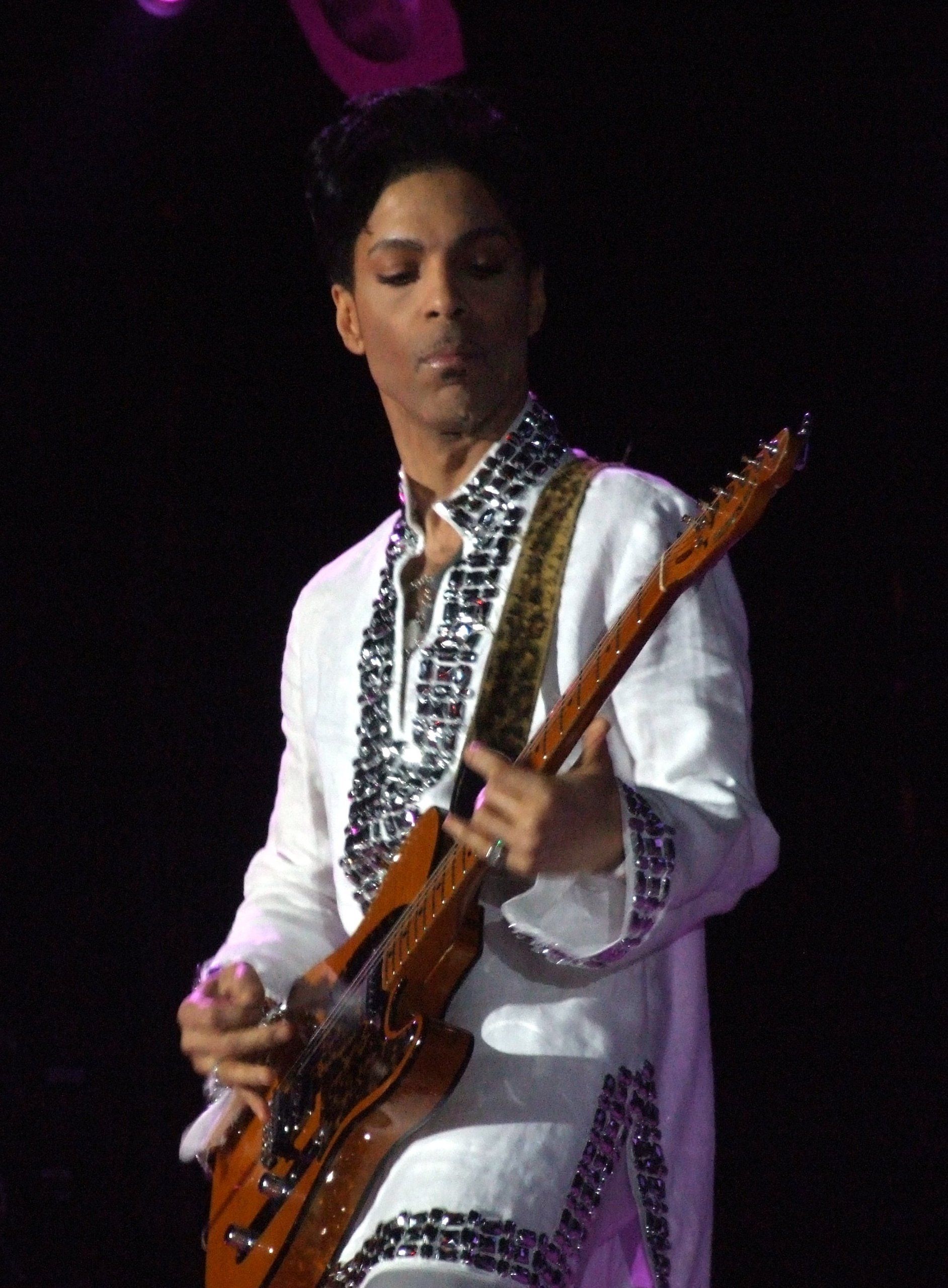
“Every day I feel is a blessing from God and it’s a new beginning. Too much freedom can lead to the soul’s decay. The music industry is a matrix that is counter to what is natural and right.”
-
Brief Points Of Interest
Prince - who adopted various monikers, from The Artist Formerly Known as Prince to the Love Symbol, and in his later years “The Artist” - was a singer, songwriter, multi-instrumentalist, dancer, record label executive, actor, film and music producer. Renowned predominantly for his guitar virtuosity, Prince was on record to have played all the listed 27 instruments on his 1978 debut album “For You”, which was self-produced in its entirety from song writing through recordings to 2-track masters, as was the equally successful follow up 2nd eponymous album, released in 1979.
The hugely successful release of Purple Rain in 1984 was followed up with seemingly lucrative deals including the launch of Paisley Park Records in 1985. Purple Rain was in 2019, added by the Library of Congress for preservation in the National Film Registry for its cultural and artistic importance. Over 50 albums were produced by "The Artist”, 39 of which were his own projects, to his name or symbol whilst the remainder formed a plethora of featured productions and collaborations.
Prince won 55 awards from 160 nominations from a long list of award shows such as the American Music Awards, Golden Globe Awards, Golden Raspberry Awards, Brit Awards, Billboard Music Awards, BET Awards and American Society of Composers, Authors and Publishers.
Michael Jackson
- sh_hasanahmed

“To give someone a piece of your heart is worth more than all the wealth in the world. Lies run sprints but the truth runs marathons. You can’t be your best when you’re doubting yourself. If you don’t believe in yourself, who will? Consciousness expresses itself through creation.”
-
Brief Points of Interest
Where does one begin to highlight the various points of interest about a shining superstar? A luminary that truly shone in the dark and his name, MJ is still shining as there is a crater on the moon named after him by The Lunar Republic Society in 2009!
14 years after his untimely passing, MJ’s life and work has been turned into a show called “MJ The Musical”, which has in 16 months amassed over $100million and continues to draw audiences.
The King of Pop is undoubtedly one of the most successful entertainers of all time. Whilst MJ alone has 5 out of the top 100 biggest selling albums, his Quincy Jones-produced album Thriller stands out as the Number 1 best-selling album, with 70 million copies sold globally whilst vinyl reissues and original copies continue to be in demand.
MJ was a prolific philanthropist and humanitarian who worked to make the world a better place through his various charity work and projects. He passed the baton and beacon of hope to global humanitarians and kindred souls such as the legendary Sir Paul McCartney, to keep blowing the melodic Pipes of Peace with the Ebony and Ivory harmonies and optimism for a better tomorrow.
- MJ had 39 Guinness World Records, though currently holds 20
- He won 100s of awards including 15 Grammys, Inductions to Halls of Fame, National and International Honoraries, keys to a city in Japan and cities in the USA
Sidney Poitier
- US Department of State
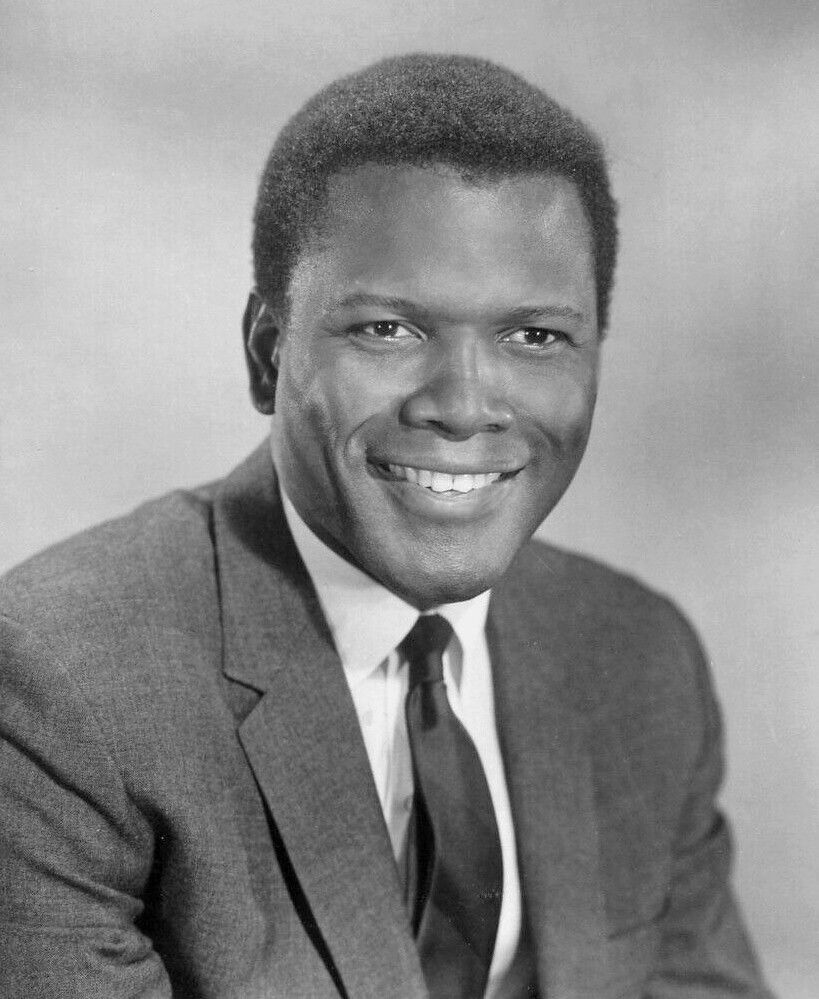
“I decided that I would do nothing that did not reflect positively on my Father’s life. I have always been a learner because I knew nothing. We all suffer from the preoccupation that there exists perfection in the loved one.”
-
Brief Points Of Interest
American born African-Bahamian actor and film director Sidney Poitier was the first black man to win the Oscars/Academy Award in 1964, for Best Actor in the 1963 comedy drama film Lilies of the Field. The tremendous acknowledgment and accomplishment was followed by two Golden Globe Awards, a Grammy, and a BAFTA. Several honorary awards equally followed suit for Lifetime Achievements.
Some of his famous classic movie roles were in The Defiant Ones (1958), Porgy and Bess (1959), A Raisin in The Sun (1961), Guess Who’s Coming to Dinner (1967), In The Heat of The Night (1967) and The Lost Man (1969) where he starred opposite the beautiful Joanna Shimkus, the lucky lady who he later married for 45 years until Sir Sidney’s passing.
- Her Majesty The Queen Elizabeth II named Sir Sidney with an honorary Knight Commander of the Order of The British Empire in 1974
- Honoured with the Golden Globe Cecil B. Demille Award in 1981
- Hollywood Walk of Fame Star in 1994
- Presidential Medal of Freedom in 2009
- BAFTA Fellowship in 2016
W.E.B Du Bois
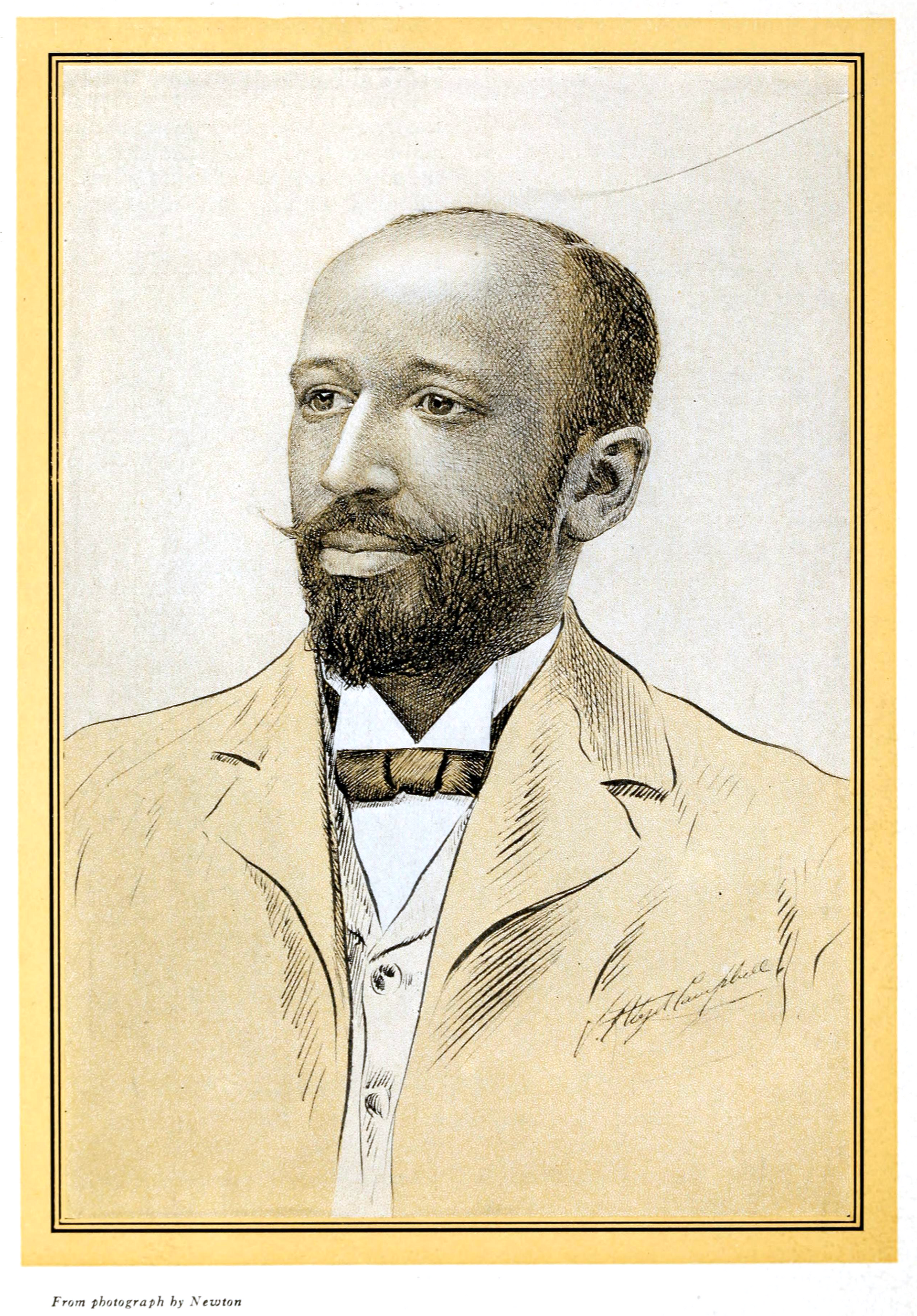
“I believe in God, who made of one blood, all nations that on Earth do dwell. I believe that all men, black, brown, and white, are brothers. The cost of liberty is less than the price of repression.”
-
Brief Points of Interest
The American born Ghanaian historian, author, editor, publisher, sociologist, civil-rights activist, and father of Pan Africanism was the first black American to attain a Doctor of Philosophy PhD from Harvard University in 1895. He was the leader of the 1st Pan African Conference. Du Bois published a body of work that aimed to inform and educate about the nationwide strivings of African Americans. He was a founding member of the oldest and largest civil-rights organisation in the USA - NAACP.
Within a decade of the 1910 publishing of the NAACP’s monthly journal The Crisis, several hundreds of thousands of readers became supporters, thus making the NAACP the leading organisation for the advancement of black people in America. W.E.B.Du Bois in turn became the most important socio-economic civil-rights activist in the earlier half of the 20th Century.
There are far too many accolades achieved by W.E.B Du Bois' for us to list here, but some of the most notable include:
- The NAACP Spingarn Medal Award in 1920
- The International Lenin Peace Prize by the USSR in 1959
- The highest award by the American Sociological Association was in 2006 renamed to the W.E.B.Du Bois Career of Distinguished Scholarship Award
Kwame Nkrumah
- Abbie Rowe
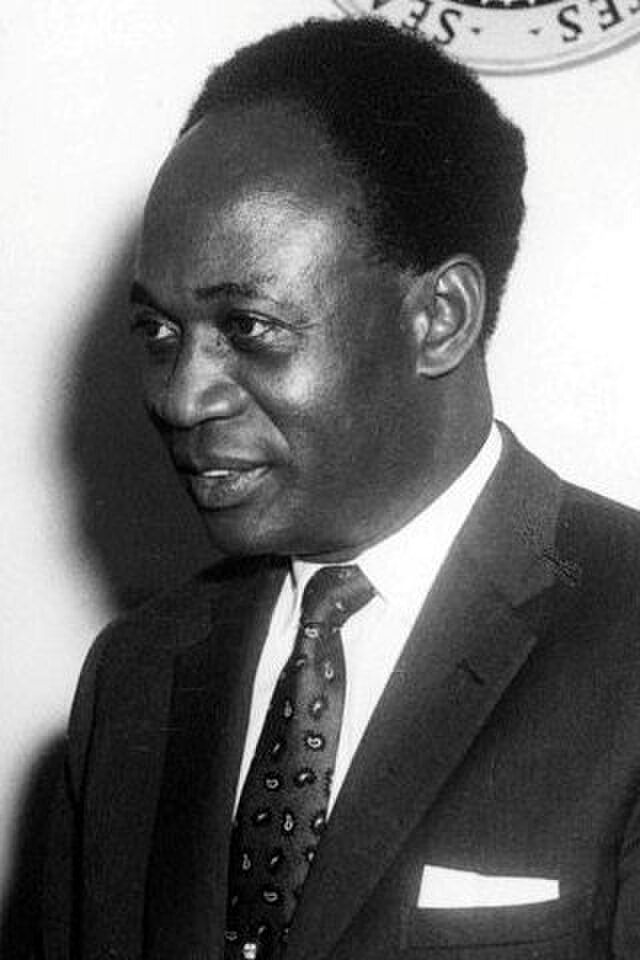
“I’m not an African because I was born in Africa but because Africa was born in me. The independence of Africa is meaningless until it is linked to the total liberation of Africa. Those who judge us by the heights we reach, would do well, to remember the depths from which we started.”
-
Brief Points Of Interest
Kwame Nkrumah left the Gold Coast after graduating from Achimota College in 1930 to study in the USA and, despite the struggles of the 1930s, he gained admission to the Lincoln University Pennsylvania in 1935 before graduating in 1939 with BA (Hons) in Economics and Sociology. In 1942, he attained a bachelor’s degree in Theology.
Kwame studied further to gain an MA in Arts and MSc in Education in 1943/44. The real-life studies were actually learnt when Nkrumah expressed active interests in social and nationalist movements such as Marxism and Garveyism. It was in fact from Garveyism that the Black Star of Ghana evolved!
Nkrumah lived in London for a couple of years in the late 40s where he broadened his professional socio-economic horizons before returning to Ghana in the 50s to become an invited prominent member of the United Gold Coast Convention, a leading political party during the British Colonial rule.
- Dr Kwame Nkrumah was a philosopher, a socio-economic theorist, revolutionary and politician, who became the 1st President of Sub-Sahara Africa, on 1st July 1960
- He was the 1st Prime Minister of the then, Gold Coast between 21st March 1952 and 6th March 1957, when Ghana gained independence from Britain
- He was the first Prime Minister of Ghana from 6th March 1957 - 30th June 1960
- He was a founding member of the Organisation of African Unity OAU
- Nkrumah was also the 3rd Chairperson of the OAU from 21st Oct 1965
- He was recipient of the USSR presented Lenin Peace Prize Award in 1962
Ava DuVernay
- Adrants

"Be passionate and move forward every single hour of each day until you reach your goal. If your dream is only about you, it’s too small"
-
Brief Points of Interest
The United States globally acclaimed sweet female film director is definitely not a “nay sayer” but an affirmative, exemplary, successful, natural born leader and winner! Despite not taking to motion pictures recording until her early 30s, after earlier career in Journalism became unflavoured and too distant. Ava ventured into promotional, marketing and PR services to the broadcasting, entertainment, beauty and lifestyle industries. Her unwavering quest for success, financial prudence and untapped exploration led her to directing and producing documentaries from where greater opportunities knocked and greater doors were opened. The rest is a seemingly distant walk to fame that never seemed impossible for freedom!!|
Ava's 2010 film debut “I Will Follow” was nominated for the Academy Award. She became the 1st Black Female Director Golden Globe Award Nominee for her directorial excellence in the 2014 film Selma. The 2018 film "A Wrinkle in Time"
earned Ava DuVernay the accolade of being the 1st African American woman to direct a movie with a budget of over $100million. 25 Awards won out of 50 nominations, I hope you would agree is truly remarkable on her journey thus far.
Denzel Washington
- Thefoxling
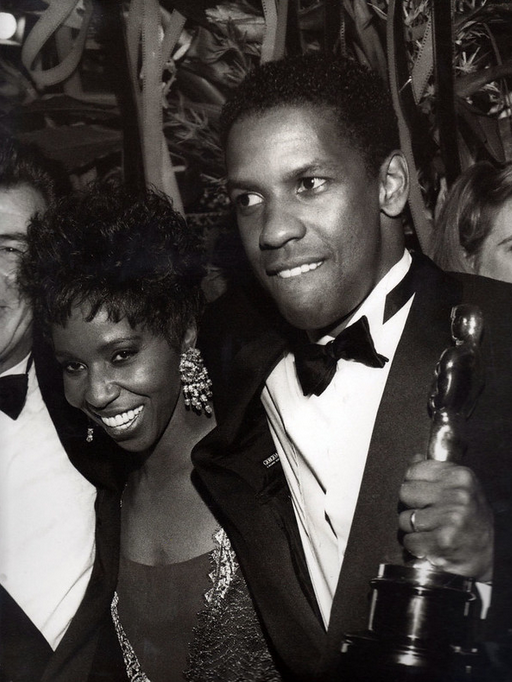
My faith helps me understand that circumstances don’t dictate my happiness and inner peace. Man gives you the award but God gives you the reward.
-
Brief Points Of Interest
The most nominated Black actor in history! 7 Oscar nominations for Best Actor, 2 nominations for Best Supporting Actor roles and a Best Picture nomination for “Fences” a film Washington produced, directed and acted in. Years after stage performances in “Fences” off and on Broadway Theatres. 10 Academy Awards ( Oscars ) nominations and the pictures are progressively in motion!!
One of only eight actors and actresses to have been nominated for an Oscar in 5 consecutive or different decades amongst the likes of Katharine Hepburn, Meryl Streep, Michael Caine and Laurence Olivier. 13 times NAACP Image Awards winner.
Denzel is one of the kindest, friendliest, humblest, devoted and exemplary actors in USA. A producer and director whose career started in the late 70s off Broadway Theatres before prominence in 1982 Drama series. 1984 Soldier’s Story and 1987 Cry Freedom are 2 of his earlier movie roles. He has been married to the same Africare Queen for 40 admirable exemplary years!! Salute Denzel and Pauletta Washington!!
Billy Ocean
- Eva Rinaldi
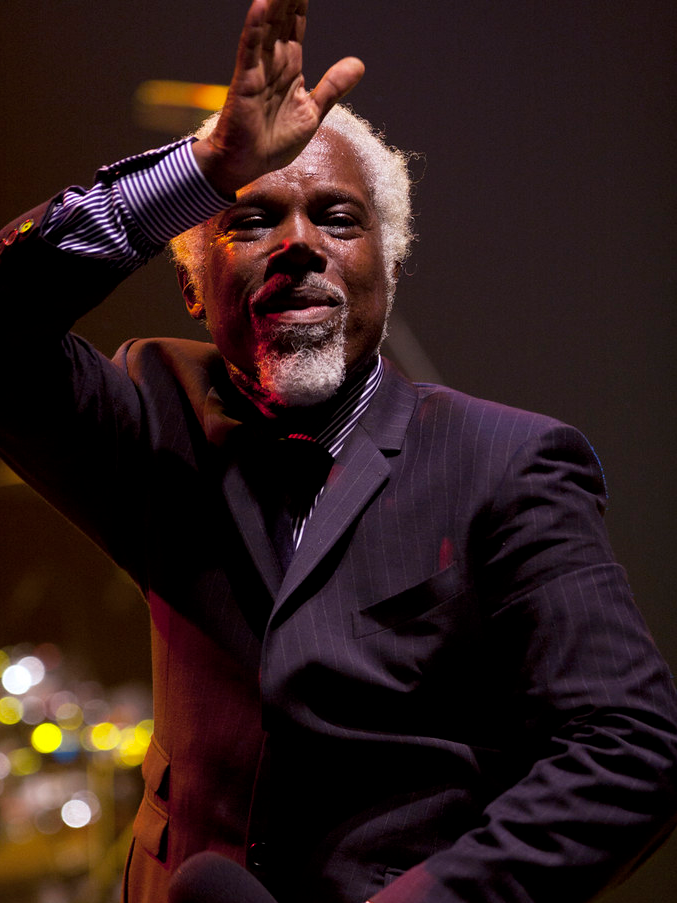
A lot of ego goes out of the window when you’re older and wiser. Get outta my dreams, get into my car. When the going gets tough, the tough get going.
-
Brief Points of Interest
British singer and songwriter who reigned supremely on UK, American, Australian, New Zealand, Western European Countries, Africa and the Caribbean charts between the mid 70s and late 80s. Ocean still managed to release albums on a 5 years average interval till his very latest one of 2020 “One World” His performances are predominantly on exclusive events and special tours such as the Far East and Australian.
11 Studio albums and extended services to the music industry duly earned Billy Ocean an Honorary Member of the Order of The British Empire on Her Majesty the Queen’s 2020 New Year’s Honors list.
3 USA number 1 Singles, several top 4 Uk singles amidst loads of top 20 hits both in the UK and internationally. Grammy Award winner in 1985, for The Best Male R&B Vocal Performanc. 3 Grammy nominations amongst the 40 in total, out of which Billy won 11 Awards, including a 2010 one for Music of Black Origin MOBO Awards. He’s also a Companion of The Liverpool Institute for Performing Arts
Dame Shirley Bassey DBE
- Daniel Kruczynski

You don’t get older, you get better. I’m too busy putting my energies into my performance to be a diva. You want success and then when you do get it, you don’t want it because of the attention.
-
Brief Points Of Interest
A stellar singing career started as a teenager in 1953 and by 1959 became the 1st Welsh person to have a number one single in the UK Charts. Her very strong vocals were much loved as she developed into a national Icon, amassing almost 30 Top 40 hits within couple of decades, in an illustrious career that spans 70 years from 1953 -2023 and still getting better!!
A very successful 7 decades long career inevitably means there are just far too many awards to be listed in their various categories and numbers
Three 007 - James Bond theme songs in 1964, 1971 and 1979. Longest running (45) performances at The Royal Albert Hall.
Dame Commander of The Order of The British Empire DBE was an Honour received in 1999 from Her Majesty The Queen.
A CBE was received prior, in 1994. Bassey was the Best British Female Solo Artist at the very 1st Brit Awards in 1977, honoured with a Walk of Fame. Walk of Fame Star in Rotterdam. Awarded a Knighthood in France’s 2003 Legion of Honours. UNESCO Artist for Peace Award in 2004. Her albums were on the UK’s Top 40 Charts consecutively for 7 decades
Sade
- Thilo Parg

I always see myself as much more of a musician than a celebrity. I love writing songs.
-
Brief Points of Interest
British Songstress Sade, is undoubtedly one of the most famous and successful female artists recognised globally. Her eponymous band -Sade was formed in the early 80s and their debut LP “Diamond Life” was released in 1984. So many charts toppers were released as singles from “Diamond Life” as it gained global plays and recognition on radios and screens.
Diamond Life won the Brit Awards' British Album of the Year in 1985. In 1986 Sade became the 1st artist born in Nigeria to win A Grammy for Best New Artist. Sade’s second Grammy came in 1994 with “No Ordinary Love" winning Best Performance by a Group with Vocals. 2002 saw the 3rd Grammy Award won for "Lovers Rock” as the Best Pop Vocal Album and 4th Grammy was won in 2011 for Best R & B Performance by A Duo or a Group with “Soldier of Love” . The 4 Grammys won were out of 9 nominations b/w 1986 and 2013 but in total, 10 out of 40 various Awards were won by Sade.
Joan Armatrading
- Bryan Ledgard
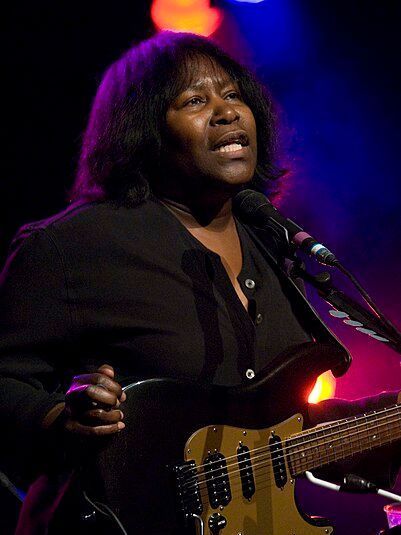
Whichever age you are, that’s the best age. Inspiration is something that tends to capture you rather than you capture it. Right from day one, you know when you’ve written a good song.
-
Brief Points Of Interest
A truly creative song writing career started when Joan’s mother bought her a guitar and the piano she placed in the front room. Joan just started writing songs from then on with tremendous commitment and unwavering discipline. The early 70s saw Joan make numerous appearances on the nationally acclaimed John Peel’s radio show.
The multi, Grammy (thrice), Brit (2ce) and the 1996 Ivor Novello awards nominee toured and appeared in concerts with legends such as Eric Clapton and Bob Dylan in the 70s. More TV shows and radio interviews followed as she embarked on her successful journey.
A USA Blues Billboard Charts success at Number 1 with the Album “Into The Blues” released in 2007 made Armatrading the 1st British Female Artist to attain such distinguished success and be nominated in the Blues Category. Joan spent decades touring the globe and making history for Great Britain with her eclectic taste in music that she performed stemming from Blues, Jazz, Rock, Folk, Soul and Reggae.
Honorary Awards from no less than 10 major Universities. Her Majesty The Queen’s Birthday Honours in 2001 and 2020 with MBE and CBE respectively.
A recipient of a Gold Badge from the British Academy of Songwriters, Composers and Authors in 2011 and a Lifetime Achievement Award at the 2016 BBC Radio 2 Folk Awards. All for 5 decades of, services in the music industry and her profound influence on singer-songwriters along her illustrious journey thus far and generations to follow.
Tiger Woods
- KA Sports Photos

The greatest thing about tomorrow is, I will be better tomorrow than I currently am today, that’s how I look at my life. I will be a better golfer, person, father, husband and friend. Talent is something you’re born with and skills, you develop.
-
Brief Points of Interest
Undoubtedly one of the greatest and most famous golfers of all time. After 21 amateur victories, Tiger turned pro in 1996 aged 20yrs. At just 21yrs of age Tiger won and became the youngest Masters Champion at Augusta. In the same year 1997 Tiger won 3 PGA tour events.
A golf phenomenon who won 13 Major Championships between August 1999 and October 2010 whilst maintaining his world ranking number 1 spot for 545 weeks therein. Matter of fact, Woods would have been ranked Number 1 throughout the 11years but for 7 relaxed months between October 2004 and May 2005.
110 Professional Wins. 11 times PGA Player of The Year. He won the Byron Nelson Awards 8 times. Second only to Jack Nicklaus with 15 Major Golf Championships. Won 82 PGA Tour events. The youngest golfer and the 5th to achieve the Career Grand Slam. Tiger holds the exclusive distinctions of being second golfer, after the legendary Jack Nicklaus to have won The Grand Slam thrice. Honoured with a Presidential Medal of Freedom in 2019
L.A. Reid
- Alison Martin
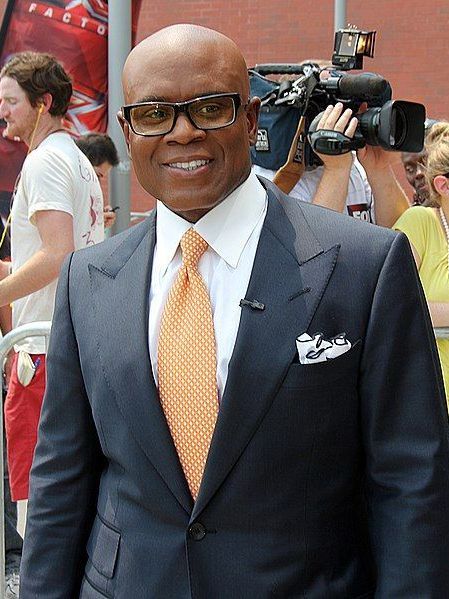
I live for opening doors for the young generation of creators. If we do nothing else with our success, let’s open up some doors. Find your passion and it’s no longer work.
-
Brief Points Of Interest
An American record A & R and corporate executive. He started as a funky drummer in 1973 with a Funk - Rock band “Pure Essence” before joining an R&B group “The Deele" in 1980 where he met and later became music business partner with Kenneth “Babyface” Edmonds. The pair left Deele in ‘1988 and within a year formed “LAFace” - a production company that had major claims as pioneers of 80s New Jack Swing and generators of 90s R&B.
Financial support from 5 times Grammy winner, Arista record label President Clive Jay Davis went a long way in mechanising the productivities that eventually led to the successful outcomes of artists such as Outkast, Toni Braxton, TLC and Usher with 100s of millions of record sales globally. After selling LAFace to Arista Records and BMG. Antonio L.A. Reid succeeded Clive Davis as President for a remarkably successful 4 year term, that saw the evolution of more Stars such as Avril Lavigne and Ciara.
2004 -2012 Reid was CEO of Island Def Jam music group and oversaw the prominence of Kanye West, Justin Bieber, J-Lo and Mariah Carey’s return. He later joined and became Epic records Chairman and CEO where he was instrumental in further successes including 4 album releases that debuted at number 1 on the Charts, after overseeing an epic posthumous Michael Jackson’s album “Xscape” release. A plethora of awards include 3 Grammys won. Over 40 Top of the Charts singles.
Kenneth “Babyface” Edmonds
- Angela George
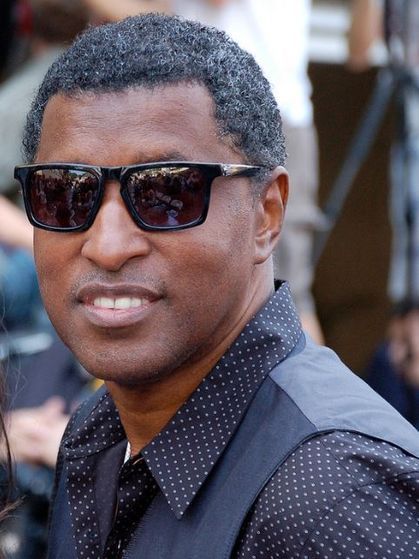
You can find a diamond in the rough a lot of the times. It might be a huge hit, it might not but you learn something doing it. It’s like spicy food, sometimes you have to tone it down, so more people can enjoy it.
-
Brief Points of Interest
American singer, songwriter, actor and producer who’s been involved mostly with L.A. Reid since their LAFace production days from1988 and up to it’s sale to Arista/BMG in 2000. Had over 30 number 1 singles in the Hot 100 Billboard and R&B Charts. Babyface started as a guitarist and keyboardist with group called “Manchild” in the 70s before joining “The Deele” in 1980. During his LAFace years of music production, over 100 super stars were assisted in producing mostly New Jack Swing beats and R&B. Babyface was instrumental in also writing hits for The Deele as well as "Midnight Star" in the early 80s. Several films and TV series were produced by Edmonds Entertainment Group. from the mid-90s.
Artists productions include Whitney, Bobby Brown, Boyz II Men, Diana Ross, MJ, Sisqo, Brandy, Mary J Blige, Aretha Franklin and Celine Dion, to name just a few . 9 solo and 6 collaborative albums, including his 2014 Grammy Award winning duet album with Toni Braxton, on Motown Records. 52 Grammy Awards nominations and 12 won. Numerous other awards and honours in his name include a highway intersection.
Anita Baker
- Kingkong photo & celebrity-photos
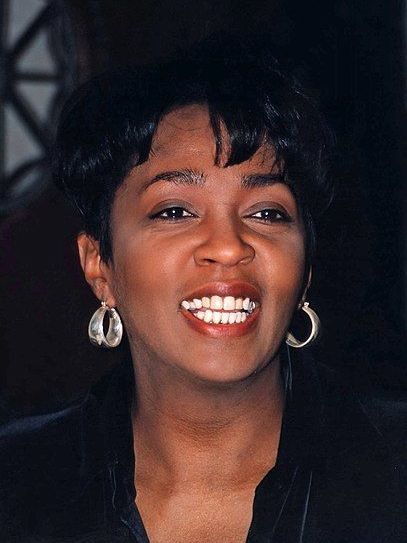
We don’t do drugs, drink or use profanity. Instead we instil morals and values in my boys by raising them with a love of God and a love and respect for themselves and all people. I believe they will have a chance!!
-
Brief Points Of Interest
The Songstress with profound soulful sweet love songs whose career began with the group “Chapter 8. Followed her 1983 classic soul debut with a Platinum-selling hits packed, value for money album “Rapture” released in 1986. Five more splendid compositions followed with relative national and international successes as Anita Baker progressively became more famous and her records, globally sought after by the exponentially growing aficionados. Several Billboard Hot 100 and R&B Charts singles cover various genres and reflective of Baker’s studio recordings ingenuity and stage captivating performances that spanned three decades.
1994 Hollywood Walk of Fame.
2005 Canadian’s Smooth Jazz Award recipient for International Artist of the Year
A total of 40 Awards nominations out of which Anita Baker won 21, including 8 Grammys from 18 Nominations, 1 BET Award for Lifetime Achievements.
Clement Seymour “Sir Coxsone” Dodd
- Ghetto Sounds
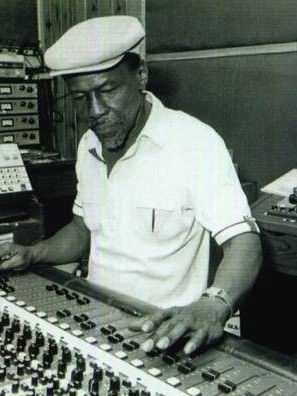
We had regular auditions on Sundays where over 200 artists constantly turned up and we chose firstly by voice quality, followed by conveyance and delivery with good lyrics. I started Studio 1, recording on Mono, before the evolution of Stereo (2 Track Outputs)
-
Brief Points of Interest
The father figure of Reggae and founder of Jamaica’s most famous Studio. Studio One or 1’s historic location was honorarily changed from Brentford Road to Studio One Boulevard. Clement was highly revered by the name “Sir Coxsone” Named after a contemporary Star Alec Coxon and had stuck with him from his excellent youthful cricket playing days until the duly added title of “Sir”.
Dodd fostered the burgeoning careers of so many international Reggae artists from the late 50s and actively contributed to the evolution and global recognition of Reggae music for over 50 years. A distinguished music producer who started a mobile sound system after he returned from USA.
His eclectic taste led him to acquire and sell vinyls of genres such as Blues, Jazz, R&B, Gospel, Pop, Ska and Rocksteady. He trained raw talented artists, how better to sing and creatively assisted artists such as Lee scratch Perry, Bob Marley and The Wailers, Toots and Maytalls, The Skatalites, Johnny Osborne, Dennis Brown, Lone Ranger and Sugar Minott.
In 1991, Sir Coxsone was awarded The Order of Distinction by The Jamaican Government
He was awarded a Gold Musgrave Medal by The Institute of Jamaica in 2002
Sir Coxsone was the very first recipient of the Nanny/Quao Abbeng Award in 2003.
In 2007, Clement Seymour "Sir Coxsone" Dodd was honoured with a Commander in The Order of Distinction.
Maxi Priest
- Eva Rinaldi
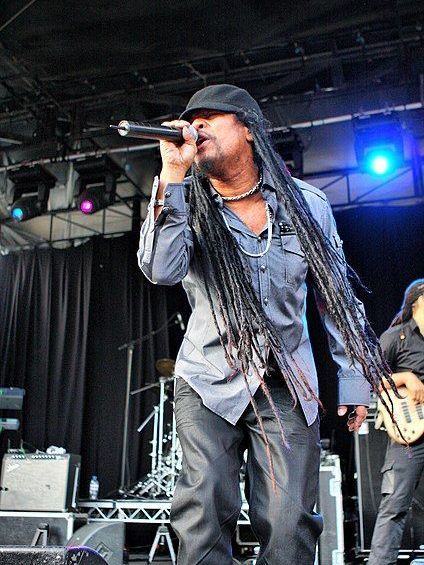
Waking up to a dry land, with empty glasses in their hands. I watched the children cry, life seems to be on the slide. Electing one with no feelings, who’s going to pay for their tomorrow?
-
Brief Points Of Interest
South London born British Reggae artist renowned for his remarkable soulful blend grew up listening to Gospel, Soul, Reggae, Jazz and Pop music.. A career that started from being an integral member of the Saxon Studio International Reggae Sound System gloriously led him to attain international successes from the millions of records sold.
He had an American Billboard Hot 100 number one hit with the song “Close to You” in 1990. A year later, Maxi scored another Top 10 Hit “Set the Night to Music” a duet with Roberta Flack. Maxi Priest had 30 singles released between 1984 and 2005. 12 Solo albums between 1985 and 2020.
10 various artists compilations and collaborations covering his inherent eclectic taste in music with Jazz musician Lee Ritenour, Soul II Soul’s funky dread Jazzy B, fellow neighbourly South London born Rock guitar maestro Robin Leonard Trower and classic Soul Songstress Roberta Flack.
He was an active member of the band UB 40 between 2013 and 2014. Maxi Priest was also nominated three times for the Grammy Awards in 1994, 1997 and 2021, in the category of Best Reggae Album. Maxi Priest recently performed in August 2023, at the premier world renowned, water front setting of the 34th Annual Long Beach, California Jazz Festival.
Beres Hammond
- Yamaguchi,E,
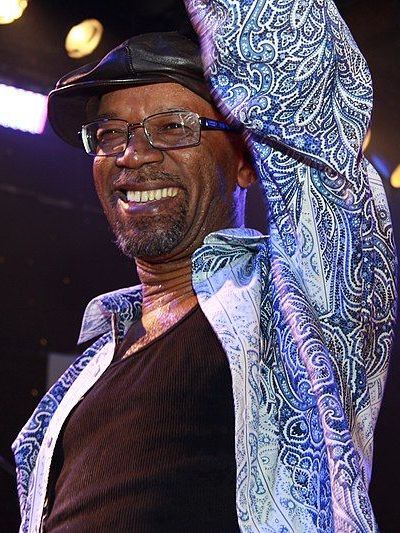
Little children love to sing our music, so won’t you sing them songs of life. Instead of building wars and strife.
-
Brief Points of Interest
One of the most distinctive voices in Reggae. Hammond career began when he won a Reggae contest and recorded an Alton Ellis cover version of “Wanderer” in the 70s. His first hit wasn’t until 1978 “The System” Although he was a leader of the band “Zap Pow”, Beres was still working on his solo career and after his successful singles in 1976. He later disbanded and pursued his dreams of more successes to greater heights and tremendous acclaims. Two more successful albums in 1980 and 1981 led to his own record label Harmony House Records in 1985 and the rest is illustrious history.
Hammond left Jamaica for USA where he accomplished loads of highly appraised qualitative studio recordings and collaborations from Maxi Priest to a list of who’s who in the Reggae music industry. Thus far, Beres Hammond has recorded 19 Solo albums and 11 various others, including compilations and collaborative productions.
2 Grammy Award nominations for Best Reggae Albums “Music is Life - at the 44th Annual Grammy Awards and “One Love One Life” - the 56th Annual Grammys respectively.
Atlanta’s Jamaican Museum and Cultural Center honoured Beres Hammond with an Award for Exemplary Dedication and Soulful Artistry this August 2023.
Alton Ellis
- Kat Geb
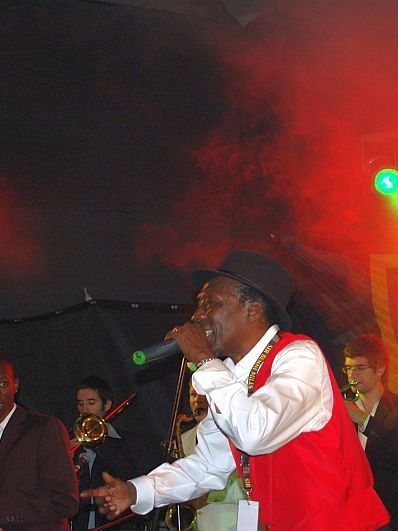
My message is very simple and universal, not very intellectual but humane. Just love each other and live.
-
Brief Points Of Interest
Singer and songwriter was broadly acknowledged as the innovator of a Reggae sub-genre, “Rocksteady” that evolved after the relatively faster “Ska’ in the 60s. His piano playing skills from a young age in a music reading and loving family was to prove pivotal in his burgeoning and promising career. He initially began singing R&B but by 1960, a hit with Clement Coxsone Dodd was the 1st of so many Reggae duets with John Holt, his sister Hortense and Eddy Parkins through Ska before steadily progressing unto Rocksteady. His 1st Rocksteady song was a 1965 track “Girl I’ve Got a Date"
Such was his innovative acclaims that Alton released a 1967 track called “Rocksteady” before his album Mr Soul Of Jamaica solidified his industry stance as the innovator. His 1967 debut album “Alton Sings Rock and Soul” was a Clement Dodd production but he thereafter worked with other producers in Jamaica before moving to the UK and continuing with other local producers. Alton settled for decades in the Uk from the mid 70s and opened a South London record store and label called “All -Tone.
2004 Alton Ellis was honoured with The Order of Distinction by The Jamaican Government in recognition of his services and successes in the Reggae Music Industry.
2006 - He was inducted into the Reggae and World Music Hall of Fame.
Up till 2007, Alton had recorded 26 studio albums, 14 compilations and several collaborations.
2009 - A posthumous album called Story of Mr Soul was released in his honour
Lee Scratch Perry
- pitpony.photography
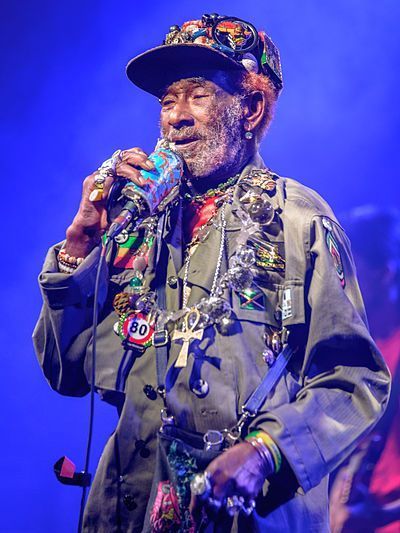
I put my mind into the machine and the machine makes reality, of invisible thought waves sent through devices controls and knobs or you jack them up in the jack panel (Patch Bay). The jack panel is the brain, so you’ve got to patch/wire it up to make it alive.
-
Brief Points of Interest
The Reggae Maestro, producer and profound innovator of “Dub” production skills, whose ideologies live on in genres beyond reggae, such as Hip-Hop, Drum & Base, Jungle, Rock & Roll, Dubstep and House music. Perry produced dub versions of original reggae classics by incorporating sound effects of various pitches and frequencies into the originals to make them sonically different and pleasant to vibe to. The stereo outputs of which were pressed on vinyl derivatives called “Dub Plates”, hence the name “Dub”.
The Icon’s recording career started with Studio One’s hits making “Sound System” owner Clememnt Seymour ‘Coxsone” Dodd. Where he recorded over 20 hits songs with the likes of Delroy Wilson and Justin Hines before joining another record label owner ,Joe Gibbs. In 1968 Perry formed his own resident band "The Upsetters" named after his record label, followed by “Black Ark label” in 1973. Prominent success became a reality, with hits by Bob Marley and The Wailers, ( Mr Brown 1970), Junior Murvin, The Heptones, Max Romeo and so forth.
Over 70 studio albums, 20 compilations and several films. Lee Scratch Perry won the 45th Annual Grammy Awards for Best Reggae Album in 2003 amidst 4 other Grammy nominations that dates up to 2015.
Missy Elliot
- Romana Pierzga

Music is a male dominated field. Women are not taken as seriously as we should be, so sometimes we have to put our foot down. I’ve got to feel what I’m giving the fans is 100%
-
Brief Points Of Interest
A renowned, philantropist, singer, songwriter, rapper and producer, whose career started in 1991 with incorporated friends across her first two R&B groups, namely Sista and Swing Mob before disbanding in 1996.
Missy Elliott began writing and co-producing hits with her long time friend Timbaland for the likes of Total, Aaliyah and SWV before eventually going solo in 1997. Her debut album Supa Dupa Fly” flew unto the Billboard 100 at number 3 and 5 more albums up till 2015 enjoyed similar successes on various national and international audio/visuals Top Charts.
Missy took a 14 year hiatus from solo projects. In which she appeared on several distinguished events, music collaborations and broadcast productions, capped with a 2019 EP release “Iconology". A globally recognised, insightful music video innovator who changed the entertaining visual concepts in R&B and Hip-Hop music.
Elliott won a Billboard Women in Music award for innovator. Two American Music, four Grammy. six BET, eight MTV Video Music Awards amidst several honorary recognitions. A Hollywood Walk of Fame star in 2021. An inductee into the Black Music & Entertainment Walk of Fame, Rock and Roll Hall of Fame - the 1st female rapper as recent as few days ago in November 2023.
John Legend
- Tech. Sgt. Samuel King Jr.
Public Domain

Soul is, about authenticity, finding the things in your life that are real and pure. Stevie Wonder has always been a friend and a mentor to me. We should care about what is going on in the world.
-
Brief Points of Interest
Actor, singer, songwriter and music producer John Legend is inherently a natural born musician. His Mum sang and led the Church Choir, his dad was a drummer and his grandmother played the Church organ. A child prodigy who started playing piano with the Church Choir aged 7 and skipped 2 academic grades. An incredible distinctions from being homeschooled by his mother.
After two self funded demos in 2000 and 2001. John Legend was signed by Kanye West, who released Legend’s Billboard Top 10 debuted album “Get Lifted’ in 2004, which won the 2006 Grammy Award for Best R&B album and from which several acclaimed singles were also released.
7 more albums thus far up to 2022. over 30 TV episodes, 7 films appearances, co-production and executive productions. 12 Grammy Awards won from 28 nominations amidst other major 21 Awards won from 60 various nominations.
John Legend was the first African American to win all the 4 major North American entertainment awards famously known as the EGOT - Emmy, Grammy, Oscar and Tony Awards.
Alicia Keys
- David

Soul music is timeless. What breaks my heart is suffering of any kind. Too often, our world is divisive and cruel where it needs to be uniting and loving. Simplicity makes me happy.
-
Brief Points Of Interest
A classically trained American singer and songwriter, who was signed to Columbia Records aged just 15yrs old before signing an improved deal with Arista Records.
Alicia’s debut album “Songs in A minor” released in 2001 was a tremendous success and exceeded expectations when it won five Grammy Awards in 2002 and becoming the second female to win as many Grammys in one event.
Her second album “The Diary of Alicia Keys” released in 2003 also repeated the unprecedented success by winning four Grammys in 2005. An extraordinary feat for a lady in her early 20s, was truly reflective of the greater Top Charts successes that progressively followed nationally and globally.
She was the undisputed Queen of R&B in the first decade of the 21st Century, selling approximately 40 millions records globally. Keys simply took dominion of the Top Charts, be it the Billboard Hot 100, 200 or R&B Charts. She once replaced her single at number 1 spot with a later release.
Alicia’s Awards won are just too many to be listed herein but they include 15 Grammys from 28 nominations, 9 Billboard Music Awards from 27 nominations, 17 NAACP from 35 nominations and 7 BET from 15 nominations in a list of over 150 Awards won.
Rihanna

You may never be good enough for everybody but you will always be the best for somebody. Keep your eyes on the finish line and not the turmoil around you. Never failure, always a lesson.
-
Brief Points of Interest
Singer, songwriter, actress and entrepreneur born in Barbados was signed by Antonio L.A. Reid to Island Def Jam in 2005 and within 2 consecutive years released 2 albums which both reached top 10 on the Billboard charts. A music Icon renowned for her fusion of Caribbean elements with Pop, R&B and Dance music genres.
Riri as she’s often called won her fist Grammy Award with her single “Umbrella” before the stats began mounting in the shapes of
14 singles charts toppers amidst the 32 top tenners in the USA. Over 40 top-ten singles in Western Europe. She is one of the best selling singer songwriters ever with 255 million records sold globally.
These music industry successes plus her growing fashion and beauty empire has catapulted Rihanna to the status of being regarded as the wealthiest female musician, in her billions of US dollars.
9 Grammys, 12 Billboard Music, 13 American Music and 6 BET, 10 BMI R&B/Hip-Hop, 2 BRIT, 2 Danish Music Awards amidst several other Awards and honorary recognitions that populate Rihanna’s glittering music career and still going strong entrepreneurially.
LL Cool J
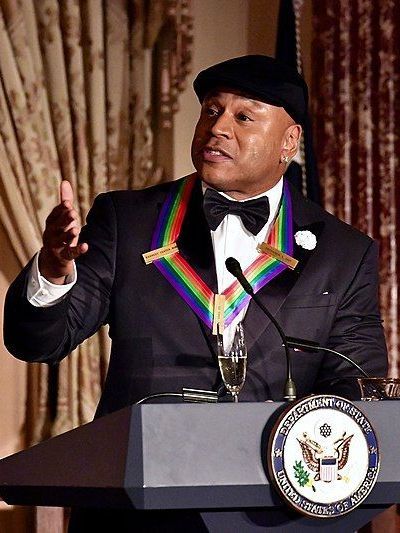
Dreams don’t have deadlines. You can’t let your past hold your future hostage. I’m doing very well in my life and I’m thankful to God for that
-
Brief Points Of Interest
James Smith famously known as Ladies Love Cool James- LL Cool J is one of the longest active rappers and actor in the entertainment industry. He is also a songwriter and a music producer. With music career and acting roles dating back from 1984. James is still acting till this very year 2023. That’s 39 long years in amassing a wealth of creative commitment, discipline and experience.
13 Studio albums, 28 films and over 60 distinguished events appearances and TV episodes/series has really and truly placed LL. Cool J in an exemplarily dignified status nationally. He became the 1st rapper to be honoured with the Kennedy Centre Honors in 2017. He was in 2021 inducted into The Rock and Roll Hall of Fame coupled with an Award for Excellence in Music.
2 Grammy Awards, 2 Billboard Music Awards, 2MTV Music Video Awards, 4 NAACP Image Awards, 6 acting Awards and a plethora of several others including tens of nominations in various categories of artistries in the past 4 decades. LL Cool J was honoured in 2016 with a star on the Hollywood Walk of Fame.
Ali Farka Toure
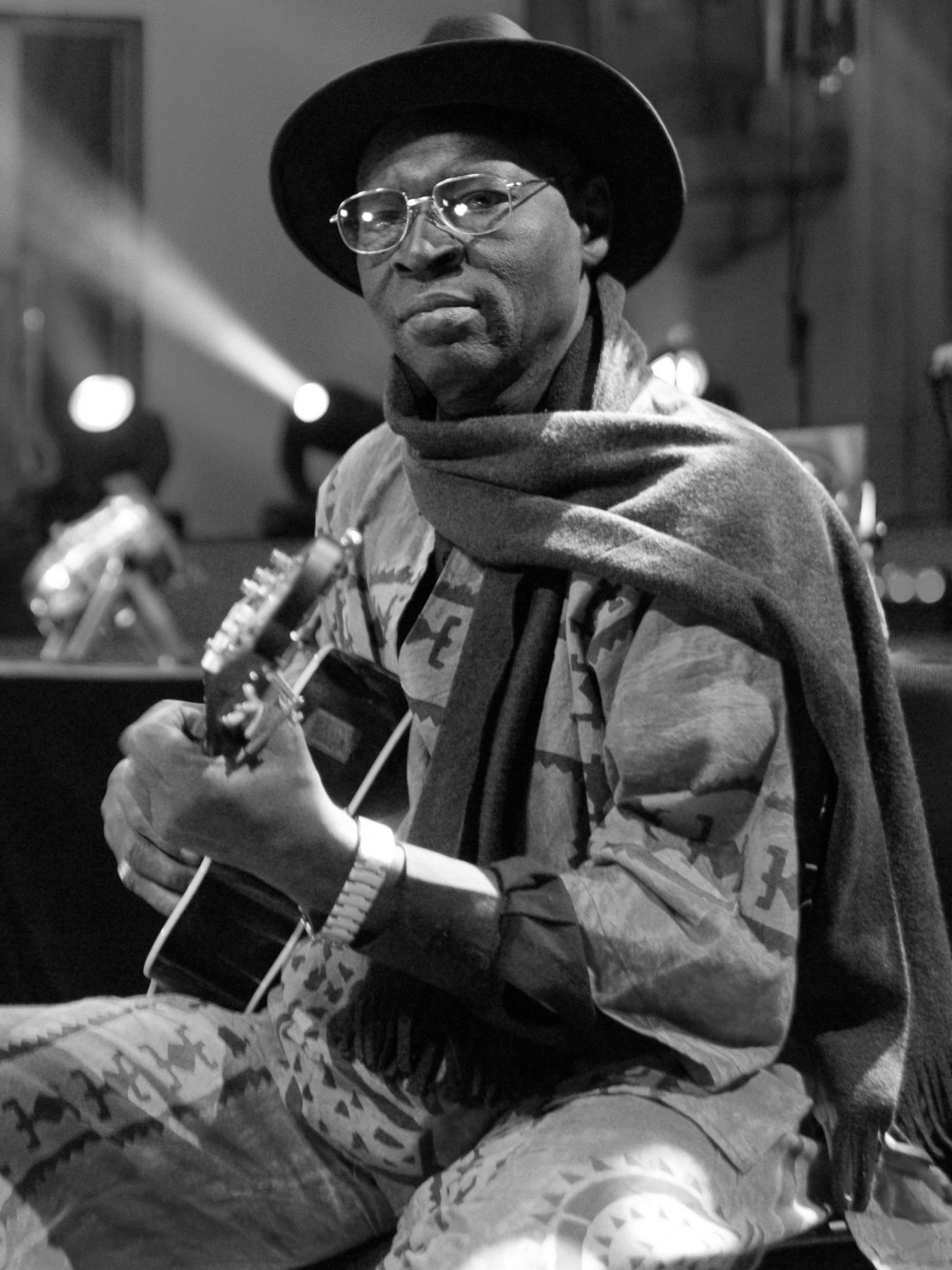
My music is older than the blues. For some people when you say “Timbuktu”, it’s like the end of the world but I can tell you, we are right at the heart of the world.
-
Brief Points of Interest
Ali Ibrahim Toure, was one of Africa’s most famous guitar maestros. A pioneer of the Malian folk blues music traditionally called assouf and commonly known as Saharan Desert Blues. A specialist genre equally popularised today by the continuous ingenuity and evolution of the Tuareg musicians from the Sahara regions of North Africa.
Ali’s music career began from winning performing arts competitions, through working as an Audio Engineer in Bamako’s Radio Mali, where studio access was progressively utilised to release his 1976 eponymous debut album. Serendipitous BBC Radio 1 airplay by Andy Kershaw eventually led to World Circuit record label vested interest and publishing rights.
A very long list of collaborations, air plays, movies, commercials, sound tracks, TV and radio shows interpolations segments, concerts, 17 albums and two post humous releases established Ali Farka Toure as one of the indisputable pioneers of the much loved, dignified, authentic African music. 5 Grammy Awards nominee, from which 3 were won! Salute!!
Boubacar Traore
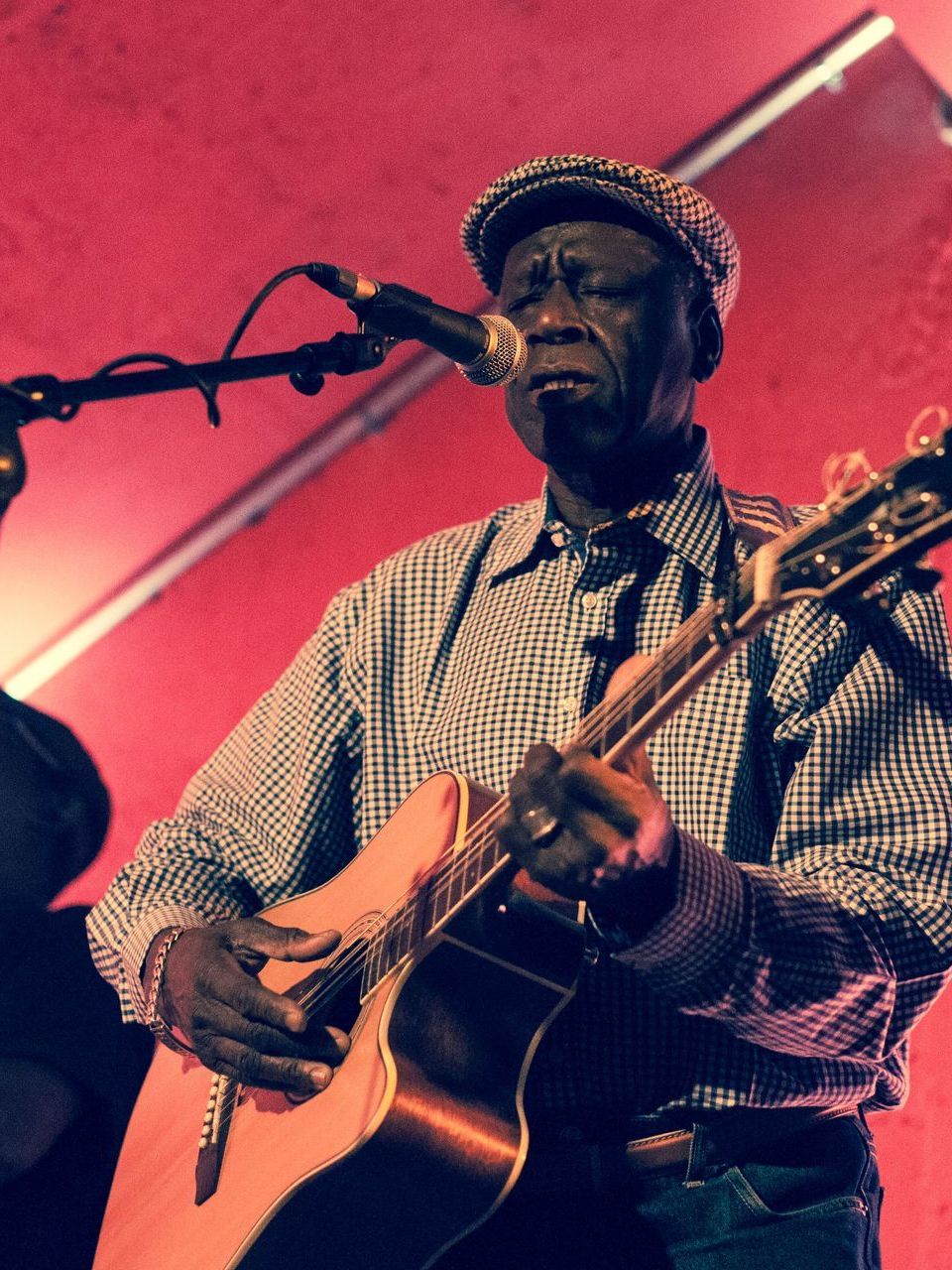
My brother was a music teacher but I wasn’t allowed to touch his expensive guitar. I taught myself how to play his guitar, when he was outdoors.
-
Brief Points Of Interest
If there’s an African, living musical legend, kind hearted, environmentalist with financially very little but deserves so much because of his prolific artistry and the history his masterly skills unfolds. That Icon should undoubtedly be Boubacar Traore!
A virtuoso who plays the Malian folk, blues with various African tribal, Arabic and Latino twists. His compositions undeniably reveals the enslaved journeys of African/ Malian true blues/folk music. You can hear American Desert, Appalachian, Mississippi plus more blues, Carribean Soul, the Cha Cha, Twist and Cuban rhythms in this humble guitar master’s rich strumming and suave vocals!!
His earliest recordings were done in 1962 at Mali Radio, Bamako but though played on airwaves, were never released for sales in time, before the political unrest that led to his migration from greener Malian pastures to unprecedented nations and started the dreaded decades long survival journey before being rediscovered two decades later.12 albums have since 1990 been released by the musical legend to date.
Master P
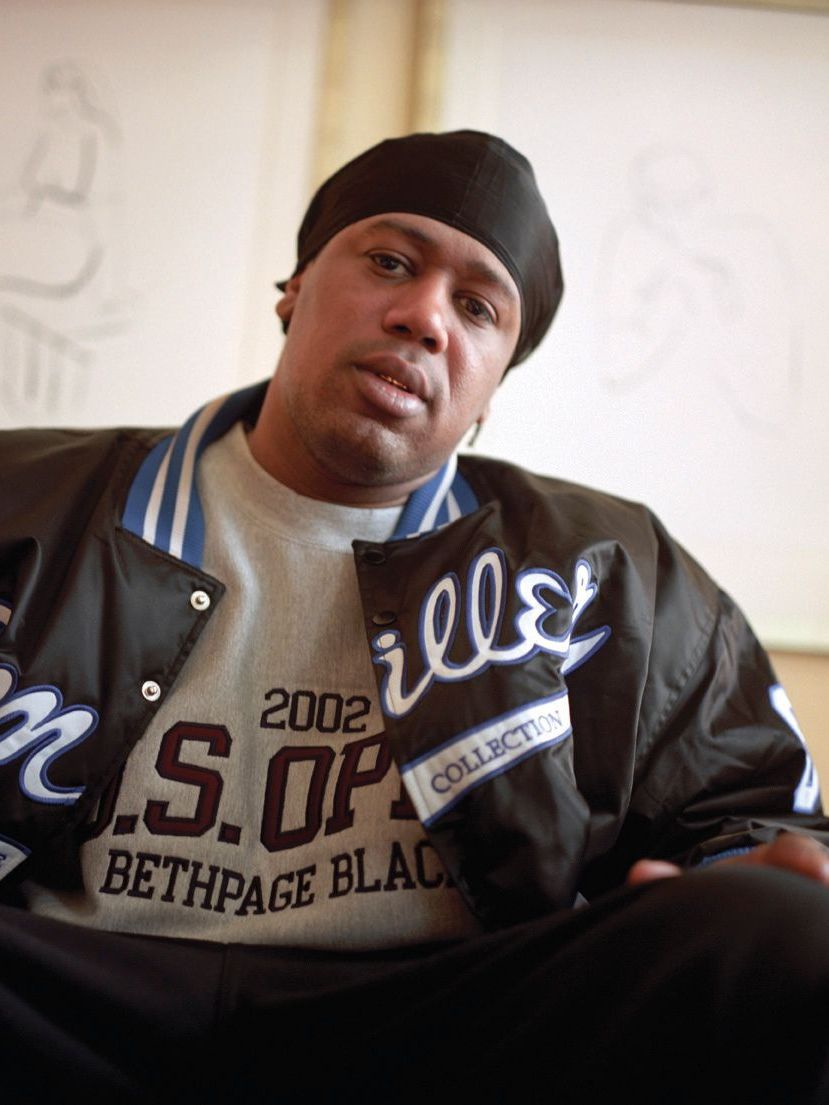
I feel like God blessed me to be successful but it ain’t always about me. It’s about empowering the next generation, so that’s what I love doing.
-
Brief Points of Interest
Percy Miller aka Master P, is an American rapper, actor, music producer, record company executive and entrepreneur who studied business administration in California. His first business venture was a record store called “No Limit Records, which years later evolved into his record label, after strings of solo and group "TRU" releases on other labels.
His 1991 debut album was successfully followed by numerous fruitful collaborations in a long list of R&B/Hip-Hop stars. One of Master P’s collaborations was with 504 Boyz, who jointly dedicated their last album to victims of Hurricane Katrina. Miller’s business empire includes Real Estate, Clothing, Films, Communications, Sports Management, Travel Agencies and enterprising ventures.
14 Studio albums, 40 Films/DVDs, over 40 TV appearances. Renowned for his philanthropic attributes. A Louisiana Music Hall of Fame inductee. Lincoln University Honorary Doctorate recipient and an American Music Awards 2021 winner in the category of “Favourite Rap /Hip-Hop Artist”
Chris Brown

I’m not perfect, no one is. No one is harder on me than myself. No one can live in the past and expect to grow. The new album is called F.A.M.E - Forgiving All My Enemies.
-
Brief Points Of Interest
Singer, songwriter, dancer, choreographer and actor, Chris Brown is renowned worldwide as the R&B King. His debut album exceeded all expectations including sales. It was in 2005 certified triple platinum.
Globally appraised for his mesmeric dancing routines, Brown has always maintained he modified Michael Jackson’s distinguished moves, incorporated MC Hammer’s disciplined choreography and evolved into his own stage presence.
Chris Brown is undoubtedly one of the highest earning African American touring artists ever. He has thus far won over 200 Awards from 500 nominations. The holder of the record for the most Billboard Hot 100 entries of any male singer in history. He also holds the record for the most Top 40 R&B hits in charts history. Brown has sold approximately 150 million records globally thus far and financial registries digits are rising in tandem with the frequencies of his vocals.
Papa Wemba
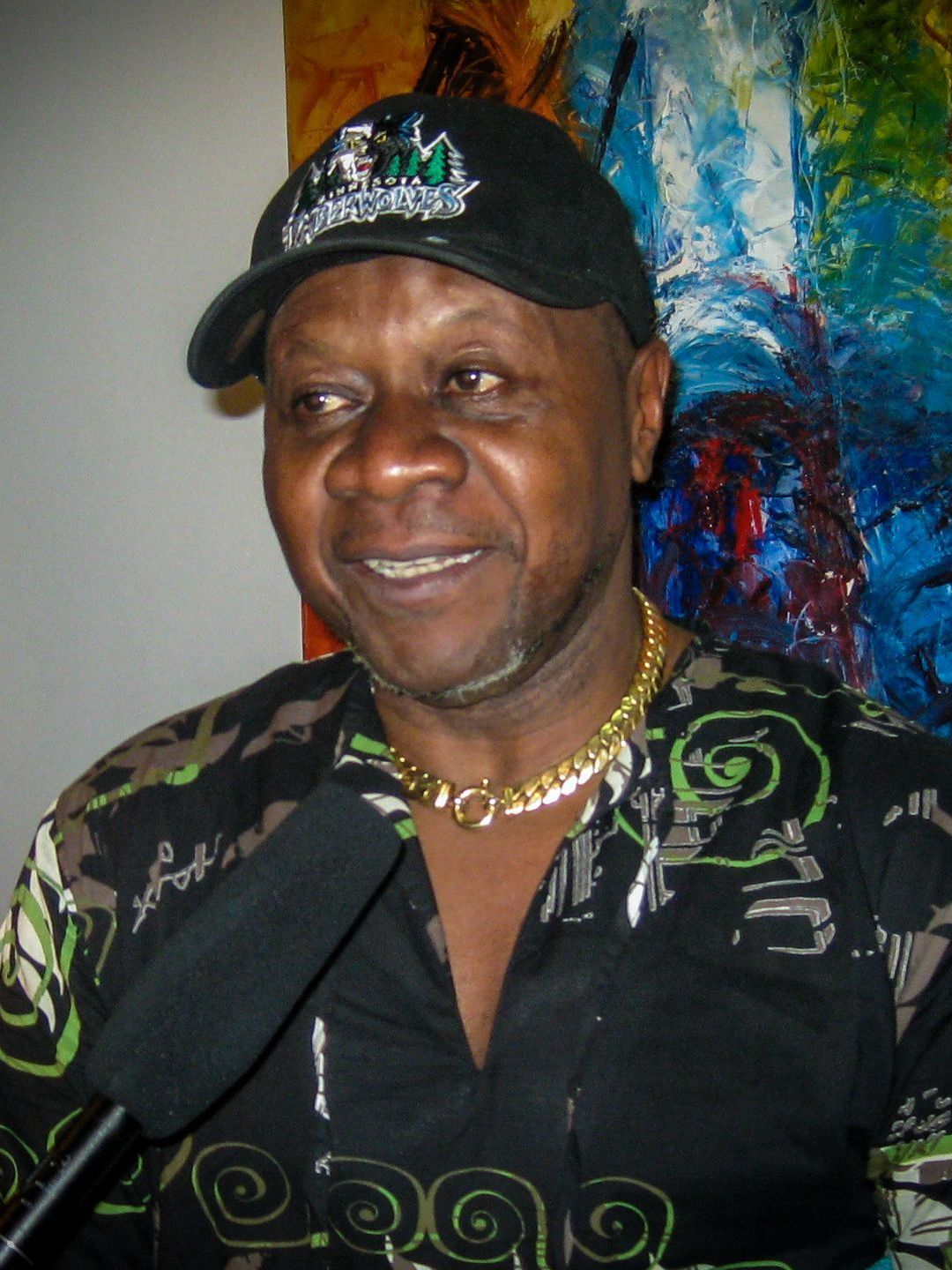
I was lucky to cross all the oceans with my voice. I was lucky to belong to a country with musical genre such as Rumba.
-
Brief Points of Interest
Papa Wemba was known the world over as the "King of Rumba Rock" The Congolese Rumba is also called Soukous. Papa Wemba started his career in a Congolese Soukous band in 1969 before progressing to form two other bands whilst perfecting his new style.
He fused traditional African instrumentations with the local Congolese rumba, Caribbean rhythm, rock with soulful twist. This evolution led to a new band called Viva La Musica, which gained popularity as they toured America, Asia and Europe. 14 albums, including 2 live ones, a collaboration and a various artist compilation recorded at Peter Gabriel’s studio, were released between 1988 and 2009.
After outstanding successes with there bands, Papa Wemba set up a creative hub in his family home to support less privileged artists. He also popularised the Sape culture of being dapper at all times. A culture that, till this very day, believes in integrity and fundamentally exemplifies thorough cleanliness, optimum hygiene and exquisite dress sense.
Manu Dibango
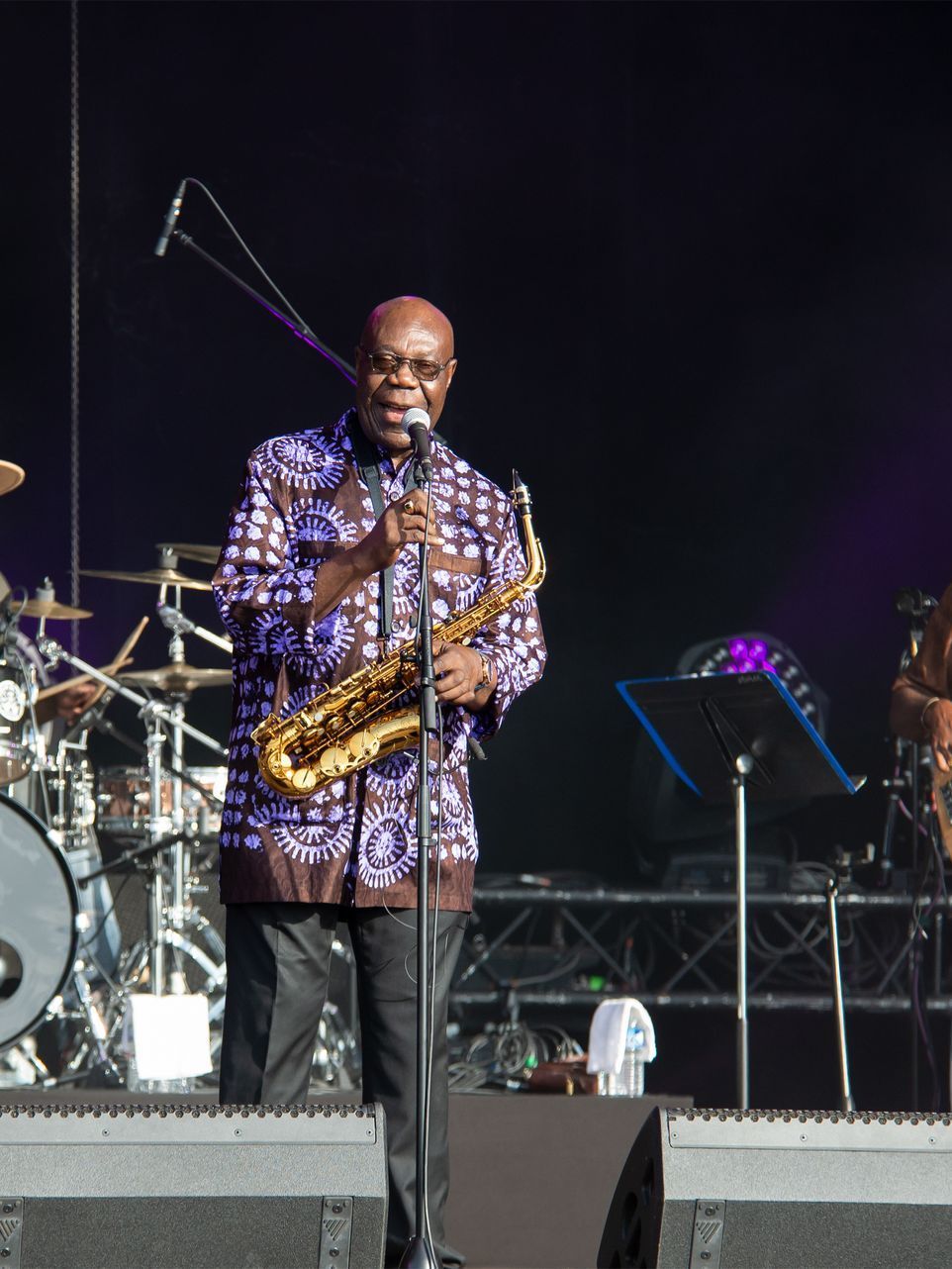
I don’t think of my past achievements. The most important thing is what I’m going to do tomorrow. I’m happy I did what I did.
-
Brief Points Of Interest
The legendary Manu Dibango was a native of Cameroon. An internationally acclaimed multi instrumentalist and songwriter. Manu played the saxophone, vibraphone, piano and sings. He owned the mechanical rights/royalties, to the most sampled African song, a 1972 classic “Soul Makossa”. Consequently makes Manu Dibango, the most sampled musician from Africa.
Two honorary French Awards were amongst the Cameroonian celebrated honours Emmanuel (Manu) Dibango received in an illustrious life with a glittering career that saw over 70 albums and several compilations.
Sonia Jobarteh
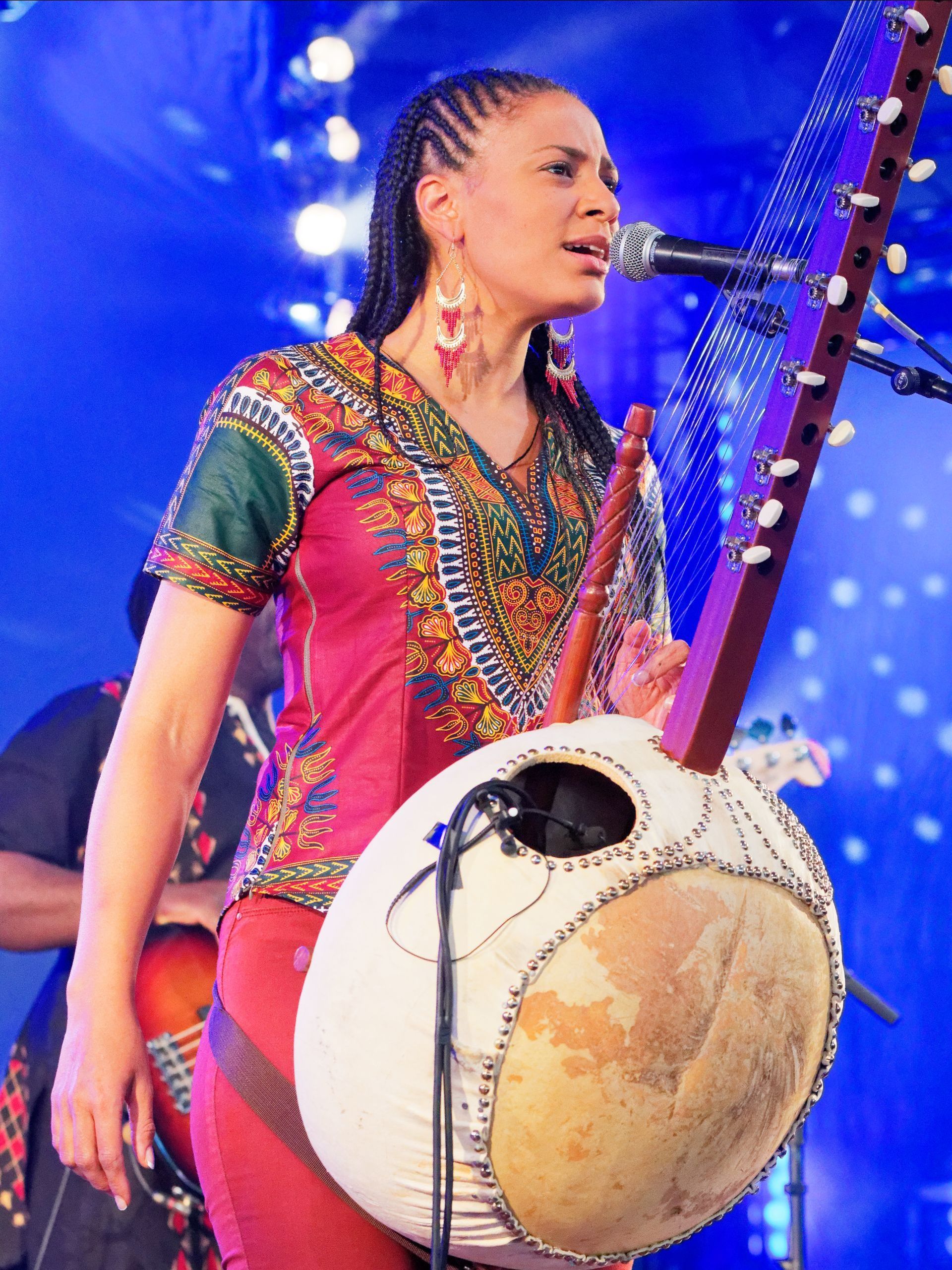
Music is woven into the fabric of society in a very inseparable manner. My ambition is to bring into question, the accountability of the education systems in Africa.
-
Brief Points of Interest
Sonia is a London-based, Gambian multi-instrumentalist, singer, composer, music teacher, humanitarian and entrepreneur. The first female descendant of the West African Mandingo tribe - Griot family, to play the Kora, professionally. An historic ancestral lineage renowned for their exclusive rights to play the Kora.
Sonia began Kora lessons and performed publicly as best she could from childhood. Various other stringed instruments were studied at one of London's globally acclaimed top institution - Royal College of Music. Her latest 5th album is in great demand and due for general supplies from the 24th March 2024. She’s also featured in 5 compilations globally and 1 single to date.
The perfect way to narrate her musical eminence is to quote her practiced words, which states “ We need to find our voices in this tradition and make sure it’s relevant” Sonia features only in genres relevant to her field of expertise and her unbiased, liberal, Pan-Africanism is leading her ingenuity to invent new African instruments.
Diana Ross
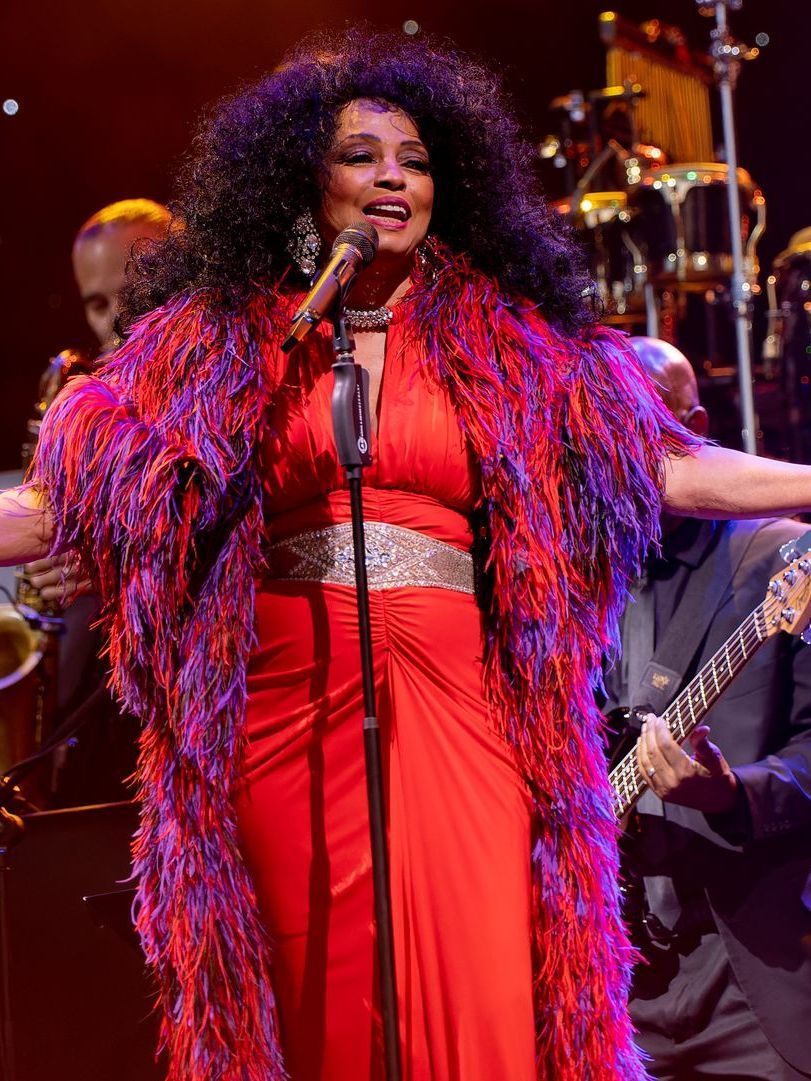
You just can’t sit there and wait for people to give you that golden dream. Sometimes these steps have felt painful, difficult but led me to greater happiness and opportunities.
-
Brief Points Of Interest
Diana Ross was the lead singer of The Supremes. A Motown Record’s most successful girl group that was formed in1959 and till this day in 2024, remains the record holders for the highest number of, number one hit singles (12) on the US Billboard Hot 100. 2 of their songs were inducted into the Rock and Roll Hall of Fame in 1988. Diana Ross left The Supremes after a decade of tremendous achievements to go solo in 1970.
Diana released 26 studio albums in her glittering 50 year career as a solo artist. The last of which was her 2021 “Thank You” album. Her acting career is still ongoing, 50 years on and she has received several awards, two of which were for her 1972 Billie Holiday role in “Lady Sings the Blues” amongst many other nominations. Miss Ross also has 2 stars on Hollywood Walk of Fame, 1 for her solo career and and the other, for her group - The Supremes.
Diana had 6 number one hit singles in the Billboard Hot 100 charts. A 12-time Grammy nominated singer, an Academy Awards nominee actress and producer. Diana became the first woman to win the Grammy Awards twice, in 2012 for her solo career and in 2023 for her band The Supremes’ Lifetime Achievement. Diana Ross received the Presidential Medal of Freedom in 2016.
Obafemi Awolowo
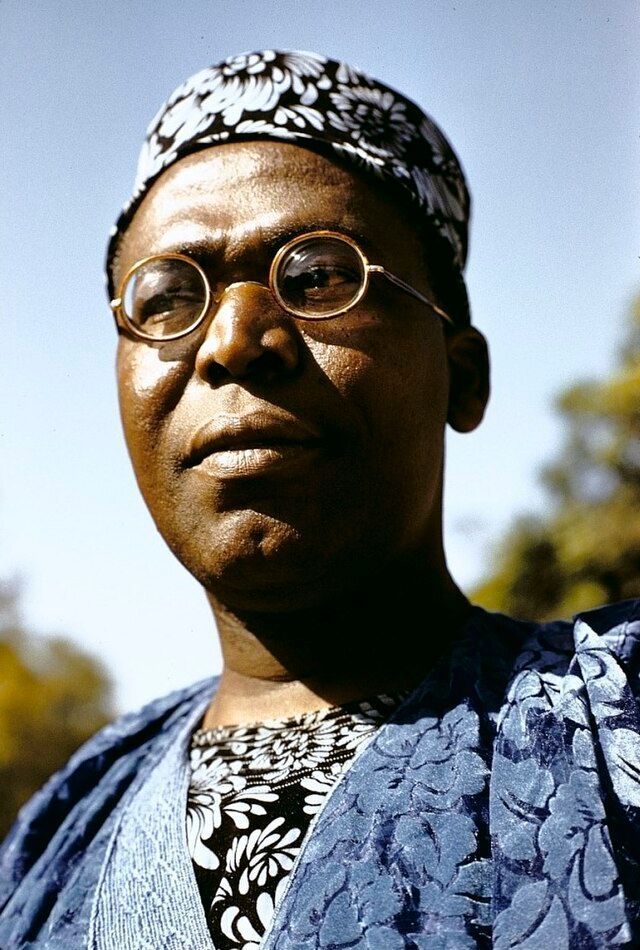
"I have devoted the whole of my life to the cause of the people. I have identified myself completely with the aspirations of the people, and it is my determination to ensure that every Nigerian, no matter his station in life, is free, free forever from the shackles of poverty, ignorance, and disease, and enjoys full and abundant life."
-
Brief Points of Interest
~ Chief Obafemi Awolowo
In the storied landscape of Nigeria's political history, there exists no figure as transformative or as visionary as Chief Obafemi Awolowo. From the early days of colonial rule to the tumultuous post-independence era, Awolowo’s presence loomed large. He was not merely a politician; he was a statesman whose deep intellect, commitment to social justice, and political foresight helped shape Nigeria’s identity, long before the nation would stand on its own two feet.
Awolowo’s political career began in a Nigeria still tethered to British colonialism, but his mind had already cast far beyond the chains of imperial rule. Like many African leaders of his time, Awolowo had studied the mechanisms of colonial power, not only to understand its oppressive nature but also to learn the tools with which to dismantle it. His training as a lawyer and his keen interest in political theory placed him in the vanguard of nationalist movements. But Awolowo was more than just a nationalist; he was a pragmatic visionary who believed in the idea of a Nigeria that was fair, prosperous, and united.
From the very beginning, Awolowo’s political platform was clear: to make education accessible to all Nigerians, regardless of class or creed. He understood that in order to shake off the shackles of colonialism, Nigerians needed to be intellectually and economically empowered. In 1955, as Premier of the Western Region, he implemented free primary education, a revolutionary move that changed the face of Nigeria’s future. He also introduced free healthcare for children, understanding that education and health were the twin pillars on which a progressive society must stand.
Yet, Awolowo was not merely a regional leader, even though his most groundbreaking policies were enacted in the West. He sought to extend his vision to the entire country, believing that Nigeria’s vast ethnic, cultural, and religious diversity should not be its Achilles' heel but its strength. His efforts to unify the Yoruba, Igbo, and Hausa-Fulani under a common Nigerian identity were pivotal in his push for a federated system of government—one where each region could govern itself autonomously but still remain part of a united Nigeria. His foresight in advocating for a federalist structure helped steer Nigeria away from the path of centralized dictatorship that so many post-colonial nations fell into.
But Awolowo's influence did not end with civilian governance. His ideas also deeply penetrated Nigeria’s military establishment. As Nigeria wobbled through coups and counter-coups in the 1960s, Awolowo’s political acumen was sought by military leaders, including General Yakubu Gowon, during the Nigerian Civil War. Awolowo became Vice Chairman of the Federal Executive Council and served as Minister of Finance during one of the most critical periods in Nigeria’s history. His influence on economic policy during the war was indispensable. He stabilized Nigeria’s finances at a time when the nation was on the brink of collapse, ensuring that the war effort was economically sustainable without indebting future generations.
Despite his prominent role in Nigerian politics, Awolowo was never fully able to attain the highest office in the land. Twice he ran for President, and twice he was defeated, not through the will of the people but by political machinations. Yet, in spite of these setbacks, his dream for Nigeria endured. He saw a Nigeria where ethnic division was replaced by unity, where education was the right of every child, and where democratic governance was based on accountability and justice.
Chief Awolowo’s foresight into Nigeria’s future was unparalleled. He warned of the dangers of ethnic nationalism and unchecked political corruption, both of which would come to haunt Nigeria in the years following his death. Awolowo’s Nigeria was one where every citizen, regardless of tribe or religion, had a stake in the country's future—a Nigeria where governance was based on merit, and where the rule of law was sacrosanct.
Today, his legacy remains a testament to what Nigeria could have been and still has the potential to become. In Awolowo’s vision, one sees the path Nigeria could take—a nation built on unity, equity, and a relentless commitment to progress. His life’s work continues to serve as a guiding light for those who believe in the promise of a better Nigeria.
Olusegun Obasanjo
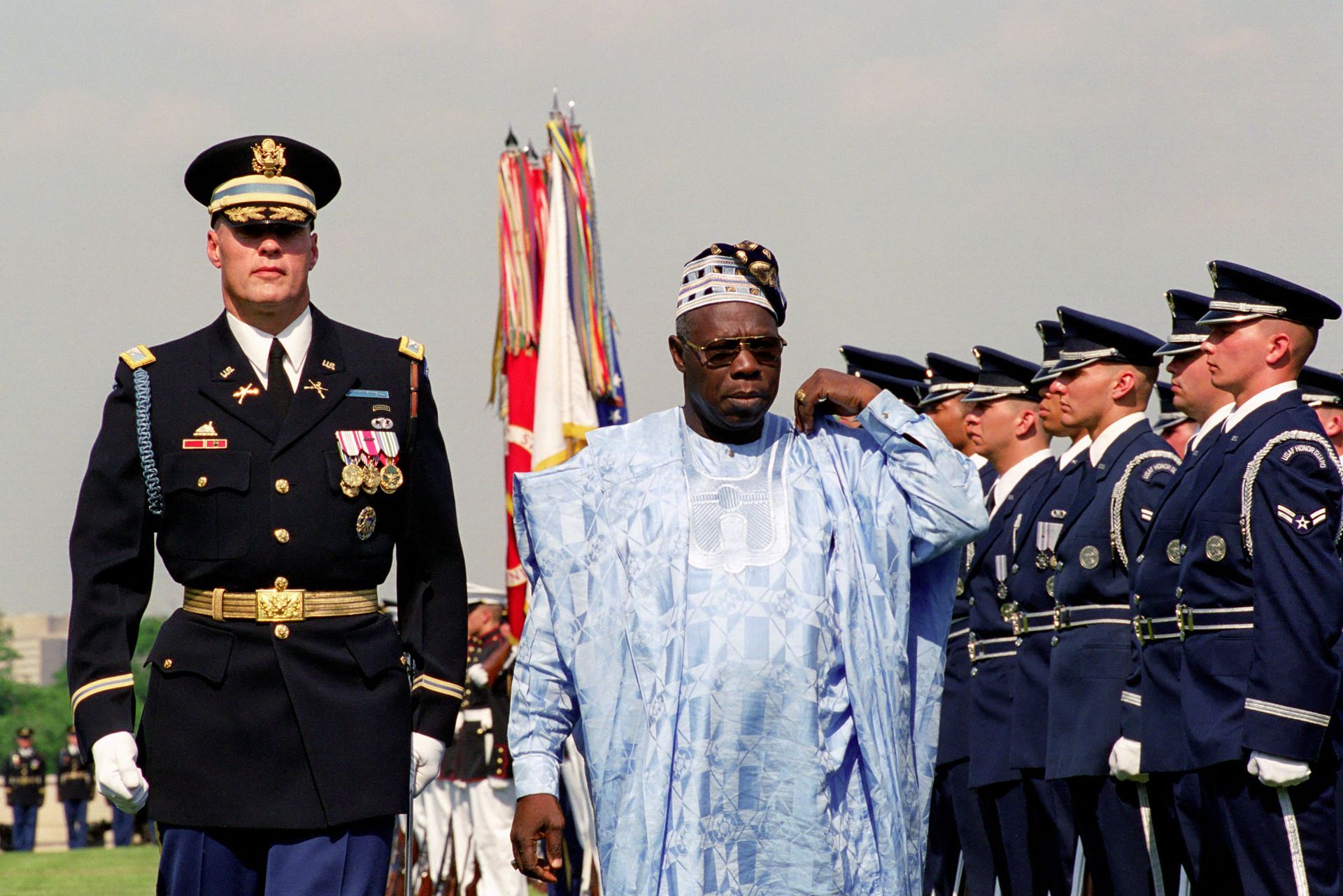
"Africa must not always be seen as a continent in need of aid, but as a continent with untapped potential, ready to take its place on the world stage."
-
Brief Points Of Interest
~ Chief Olusegun Obasanjo
There are leaders who rule by decree, and there are those whose actions leave an indelible mark. Chief Olusegun Obasanjo belongs to the latter—a leader whose influence has shaped Nigeria’s political, social, and agricultural landscapes.
Obasanjo's rise to power was not about titles but about a deep commitment to nationhood. From his military days to his tenure as Nigeria’s Head of State and later as a democratically elected president, he remained driven by a singular goal: to heal, unite, and elevate a nation often on the verge of division. His leadership in the military, particularly during the Nigerian Civil War, was marked by strategic brilliance that prioritized peace over conquest. Obasanjo became known not for his victories in battle but for preserving the fragile unity of a war-torn nation.
In an era when many clung to power, Obasanjo did the unthinkable in 1979—he voluntarily handed over power to a civilian government. This selfless act earned him global respect, as he demonstrated that the military was not the rightful custodian of democracy. His decision remains a defining moment in Nigerian and African political history.
Beyond politics, Obasanjo’s legacy extends to agriculture. After leaving office, he turned to farming, establishing Ota Farm as a symbol of modern agricultural practices. For Obasanjo, the future of Nigeria lay in the soil, and he championed the belief that Africa’s prosperity was tied to its farmers as much as its politicians.
Even in retirement, Obasanjo’s influence continued. He became a global statesman and a Pan-Africanist, mediating conflicts across Africa and advocating for African unity and self-reliance. His tireless work in conflict resolution, from Liberia to Sudan, stemmed from his belief that Africa’s potential could only be realized through collective peace and stability.
Chief Olusegun Obasanjo is not just a former president. He is a soldier who chose peace over war, a farmer who prioritized cultivation, and a leader who sought unity over division. His legacy will not be remembered for the power he wielded, but for the power he gave back—to his people, to his country, and to Africa. In a world where leadership often equates to ego, Obasanjo stands out as a figure of enduring respect, whose vision and humility continue to inspire those who seek to lead for the greater good.
Yemi Osinbajo
- Italian G7 Presidency 2017
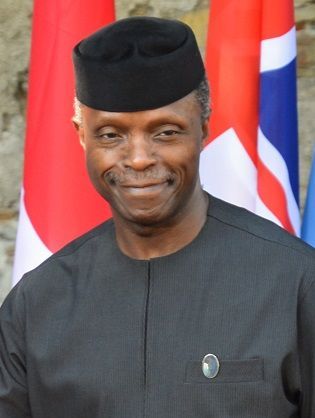
"The future of our nation is in the hands of the young people who are the architects of a new Nigeria. They must be empowered to dream big, to achieve their potential, and to make a meaningful impact in their communities. Our role as leaders is to create the enabling environment where their dreams can flourish, where their talents can be harnessed, and where their potential can be realized."
-
Brief Points of Interest
~ Prof Yemi Osinbajo
In the narrative of modern Nigeria, few figures resonate with the complexity and vibrancy of Prof. Yemi Osinbajo. As Vice President, Osinbajo's journey through Nigeria's tumultuous political landscape is a story of intellect, resilience, and quiet revolution.
Osinbajo’s story begins in the academic halls of Lagos, where he emerged as a formidable legal mind. His tenure as Attorney General of Lagos State was marked by a series of pioneering reforms. His efforts in transforming the legal landscape of Lagos set the stage for what would become his most prominent role. His tenure saw significant reforms in legal frameworks and a focus on legal aid for the underprivileged.
When he ascended to the vice-presidency in 2015, Nigeria was navigating the stormy waters of economic uncertainty and corruption. Osinbajo’s role was far from ceremonial; it was deeply engaged. His impact was felt in several key areas, notably the drive towards economic diversification and social investment. Under his guidance, the Social Investment Programs (SIPs) were launched, aimed at alleviating poverty and creating opportunities for the underprivileged. The N-Power initiative, an ambitious scheme designed to employ and train young Nigerians, emerged as a cornerstone of this effort, illustrating his commitment to addressing youth unemployment.
On the global stage, Osinbajo's presence was equally significant. He represented Nigeria with a voice advocating for economic reform and international cooperation. His speeches at global forums were not mere formalities but a strategic articulation of Nigeria's ambitions and challenges. His efforts were geared towards repositioning Nigeria as a key player in the global economy, fostering partnerships that would benefit the nation’s growth trajectory.
His achievements extend beyond policy; they reflect a vision for a fairer, more inclusive Nigeria. His focus on transparency and anti-corruption measures resonated deeply, positioning him as a champion of integrity in governance. Osinbajo’s quiet charisma and steadfast dedication have not gone unnoticed. He has been an anchor in Nigeria's quest for progress, often navigating the treacherous waters of political and economic reform with a steady hand and a clear vision.
In the grand mosaic of Nigerian politics, Prof. Yemi Osinbajo's contributions stand as a testament to a transformative era. His achievements are woven into the fabric of the nation’s modern narrative, reflecting both the promises and perils of governance in a rapidly evolving world. As Nigeria continues its journey, Osinbajo’s legacy will likely be remembered as a beacon of thoughtful leadership in times of profound change.
Ngozi Okonjo-Iweala
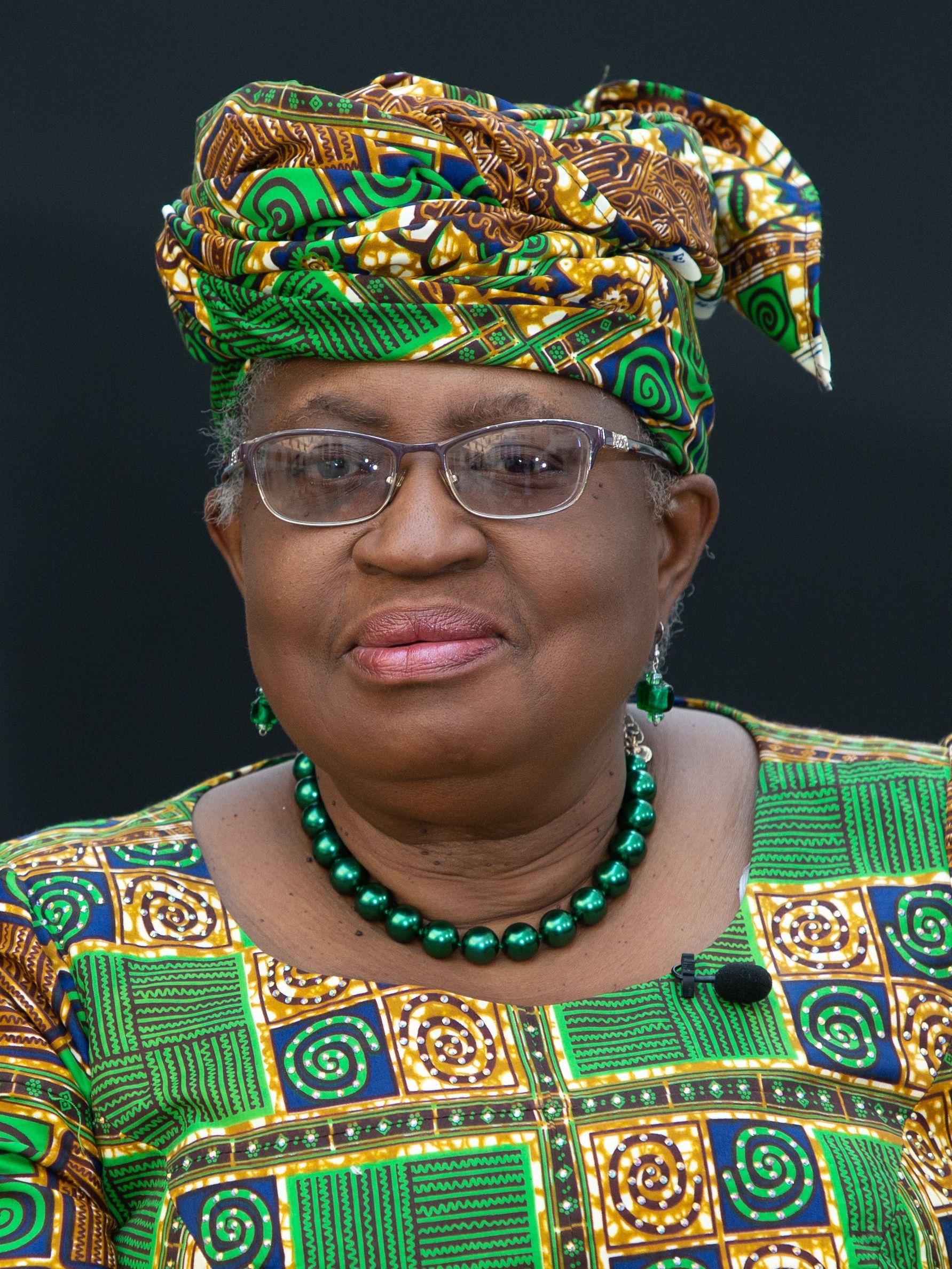
"If you don’t speak up when it matters, when will it matter to speak up? We must stand up for what is right, even when it’s difficult, even when the odds are stacked against us. Integrity is the foundation upon which leadership is built, and without it, no real change can occur."
-
Brief Points Of Interest
~ Ngozi Okonjo-Iweala
In the world of international finance and diplomacy, few names command the same reverence as Ngozi Okonjo-Iweala. With an unshakeable reputation for integrity, she has shattered glass ceilings and forged a path for women in spaces traditionally dominated by men. As the first woman to lead the World Trade Organization (WTO), and as Nigeria’s former Minister of Finance, Okonjo-Iweala has consistently demonstrated what true leadership entails: vision, resilience, and an unrelenting pursuit of good governance.
Born into a family that valued education, Okonjo-Iweala’s intellectual prowess became evident early on. Her academic journey took her to the prestigious halls of Harvard University and the Massachusetts Institute of Technology (MIT), where she cultivated her expertise in economics. Yet, it wasn’t just her education that defined her; it was her ability to apply her knowledge with an unwavering commitment to ethical leadership and public service.
Her return to Nigeria in 2003, at the behest of President Olusegun Obasanjo, marked the beginning of her transformative impact on the nation’s economy. As the Minister of Finance, Okonjo-Iweala undertook the Herculean task of steering Nigeria through turbulent economic waters. At the core of her reform agenda was the debt relief deal she brokered in 2005, which saw Nigeria emerge from the burden of a crippling $30 billion debt. In a country riddled with corruption and mismanagement, Okonjo-Iweala’s transparent and data-driven approach was revolutionary. She understood that progress couldn’t be achieved by merely throwing money at problems; structural reforms and accountability were essential.
Her leadership wasn’t just about the numbers; it was about the people. Okonjo-Iweala focused on initiatives aimed at reducing poverty, expanding educational access, and modernizing the nation's infrastructure. She introduced the Sovereign Wealth Fund, ensuring that Nigeria's oil revenues were used for the long-term benefit of its citizens rather than being squandered by short-sighted interests. Her fearless stance against corruption earned her enemies, but it also solidified her standing as a beacon of integrity in a landscape often marred by dubious dealings.
Okonjo-Iweala’s transition to the global stage as the Director-General of the WTO in 2021 further exemplified her capacity to lead with both grace and grit. In an era where global trade was under immense pressure from protectionism, pandemic-induced disruptions, and geopolitical tensions, she was the leader the organization needed. Her approach at the WTO has been both pragmatic and innovative, focusing on making trade more inclusive, particularly for developing nations, while addressing issues like climate change and digital trade.
What sets Okonjo-Iweala apart is not just her achievements but the manner in which she achieves them. She leads with empathy and a deep understanding of the systems she is trying to reform. Whether she is navigating the complexities of Nigeria’s fiscal policies or negotiating global trade agreements, she does so with a rare combination of intellectual rigor, ethical conviction, and an indomitable will.
Ngozi Okonjo-Iweala’s legacy is far from complete, but what is certain is that she represents the power of transformative leadership. She has not only reshaped Nigeria’s economic landscape but also redefined what it means to be a global leader in the 21st century - particularly as a woman breaking new ground.
THOMAS ADEOYE LAMBO - OBE

"Mental health is not just the absence of mental illness, but a state of well-being in which every individual realizes his or her potential, can cope with the normal stresses of life, and can contribute meaningfully to the community."
-
Brief Points of Interest
~ Prof. Thomas Adeoye Lambo
In the vast landscape of Nigerian history, one name stands out for its quiet, but profound revolution in medicine: Thomas Adeoye Lambo. Born in 1923, Lambo became Africa’s first Western-trained psychiatrist and one of the most transformative figures in global health. His achievements, though monumental, often evade the public spotlight, as his work was not characterised by loud proclamations but by meaningful, lasting change.
Lambo’s career unfolded at a time when mental health was both misunderstood and stigmatized, particularly in Africa. Western psychiatric models dominated global discourse, often disregarding the nuanced understanding of mental illness within African cultures. It was into this space of tension between tradition and modernity that Lambo inserted himself, armed not only with his medical training but also with an intuitive grasp of cultural dynamics.
At the Aro Neuropsychiatric Hospital in Abeokuta, where he became medical director in 1954, Lambo pioneered an innovative approach to mental health treatment—combining Western psychiatry with traditional African healing methods. In a time when Western practices largely dismissed indigenous knowledge, Lambo saw value in them. His method was simple yet revolutionary: patients were treated in a community setting, where they interacted with family members and local healers. This wasn’t just about therapy; it was about reestablishing social connections that modern psychiatric hospitals, with their emphasis on isolation, often stripped away.
This groundbreaking work would become known as the "Aro Village System." By placing patients in familiar environments, Lambo achieved recovery rates that stunned the global medical community. The success of the Aro Village System resonated beyond Nigeria’s borders, placing Lambo at the center of international discussions on mental health. His work redefined how mental illness could be understood and treated—not as a stigma to be hidden, but as a condition to be addressed holistically, blending the best of both worlds.
Beyond the immediate impact of his methods, Lambo’s contributions reached even farther. As Deputy Director-General of the World Health Organisation (WHO) from 1971 to 1985, he became the first African to hold such a high-ranking position within the organisation. At the WHO, Lambo advocated for the integration of mental health into primary healthcare systems, ensuring that mental well-being was recognised as a fundamental aspect of public health, especially in developing countries. His leadership helped shape global health policies, emphasising a more inclusive and culturally sensitive approach to treatment.
What made Lambo’s achievements all the more remarkable was his refusal to see Africa as a passive recipient of Western knowledge. For him, Africa was not merely a continent to be healed; it was a place rich in wisdom and capable of offering solutions to the world. He used his platform to challenge the Eurocentric approach to medicine, ensuring that African voices were heard in conversations about global health.
Yet, despite his towering accomplishments, Lambo remained grounded. His work was always about the people he served—the patients who found a voice through his compassion, the communities whose dignity was restored, and the students he mentored who would go on to carry his legacy forward.
In a time when mental health remains a critical global issue, Thomas Adeoye Lambo’s contributions are more relevant than ever. He did not just change the field of psychiatry in Nigeria; he altered the global understanding of mental health, paving the way for future generations to approach healing with empathy, respect, and cultural awareness. His legacy is one of innovation, but more importantly, it is one of humanity—an enduring testament to the power of medicine to transform lives, not just through science, but through compassion and understanding.
Ahmadu Bello
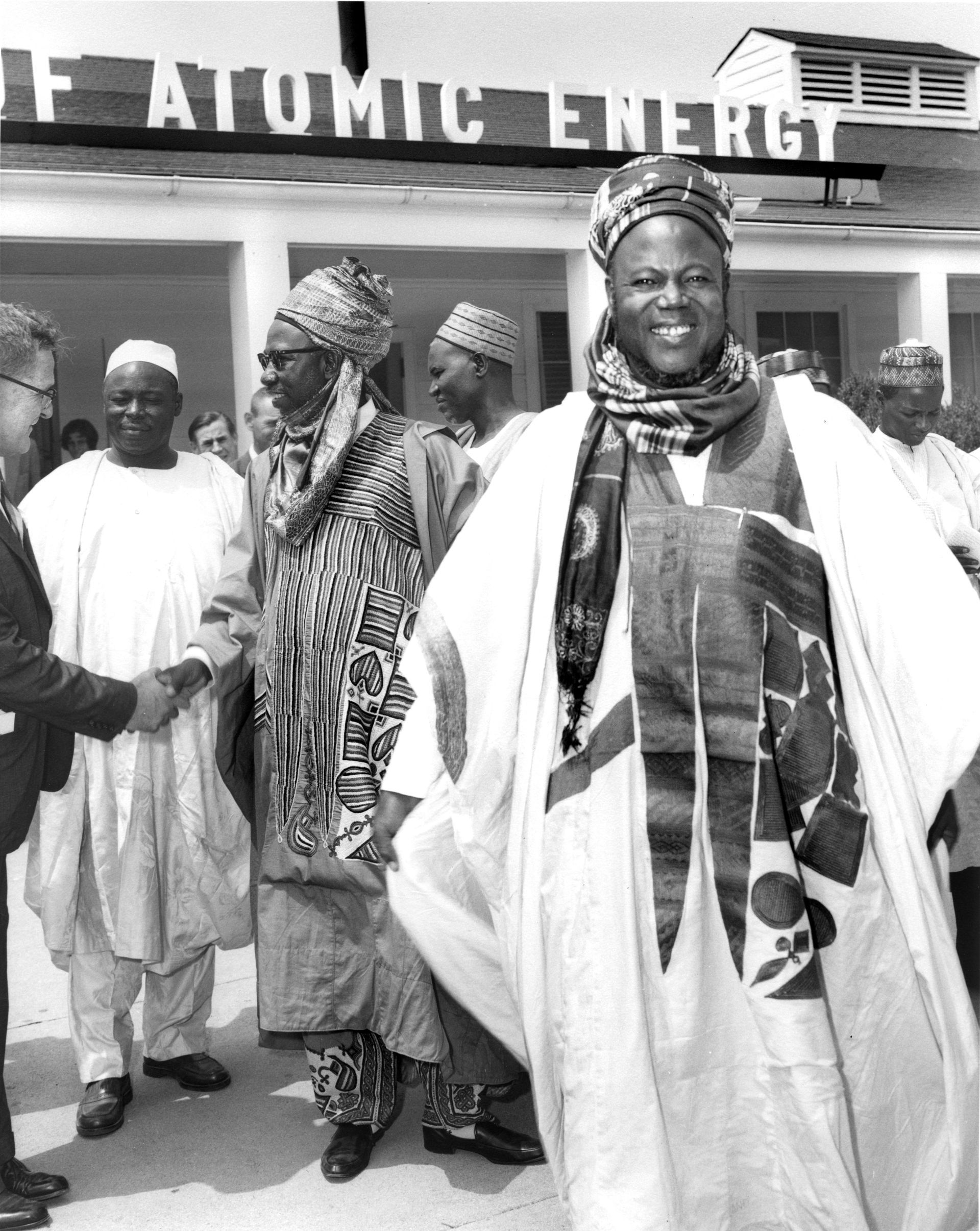
"Here in Northern Nigeria, we have people of many different races, tribes, and religions who are knit together by common history, common interests, and a common outlook."
-
Brief Points Of Interest
~ Sir Ahmadu Bello
Few figures in Nigeria's history stand as deeply as Sir Ahmadu Bello, the Sardauna of Sokoto. His journey through both the pre- and post-colonial eras marked a turning point in Nigeria’s destiny, embodying the struggles and aspirations of a nation finding its voice.
Born into the Sokoto Caliphate, Bello inherited a legacy of leadership and a mandate to preserve the dignity of his people. His rise to prominence wasn’t merely political; it was a mission to unify and uplift Northern Nigeria while navigating the complex landscape of colonial rule. For Bello, leadership was not about wielding power but about preserving the essence of his people in an era of unprecedented change.
During the colonial era, as Nigeria evolved under indirect rule, Bello saw the potential in working within the colonial system to protect the North's heritage. He recognised that survival meant adapting, and under his guidance, the Northern region gained a stronger political and cultural footing.
Bello’s greatest strength lay in his vision for education. While some viewed Western education as a threat to tradition, Bello believed in a fusion of Islamic and modern education. He built schools, encouraged learning, and nurtured a generation that would later play crucial roles in Nigeria's development. For him, education was not a departure from the past, but a path to securing the future.
His leadership in the Northern Peoples Congress (NPC) was defined by consensus and dialogue. Rather than dominate through force, he worked to unite Nigeria’s ethnic and religious diversity. As Premier of the Northern Region, he championed agricultural reforms, believing that Nigeria’s prosperity was deeply tied to its farmers. "The land is the soul of our people," he often said, recognising that true progress lay in self-reliance and the dignity of labor.
In the post-colonial era, Bello’s achievements were not just political but deeply personal for the common Nigerian. He sought to instill virtues of integrity, hard work, and community, making these the foundations of the new Nigeria. His collaborations with leaders like Nnamdi Azikiwe and Obafemi Awolowo underscored his belief that Nigeria’s future depended on unity, despite regional differences.
Tragically, Bello’s life was cut short in 1966 during a military coup that rocked the country. Yet, his legacy endures—not in grand monuments but in the everyday virtues he championed. He turned around the lives of ordinary Nigerians by making leadership about service and integrity. His vision for Nigeria, especially in education and agriculture, continues to shape the nation’s identity.
Sir Ahmadu Bello was more than a political figure. He was a leader who shepherded Nigeria through its formative years, ensuring that the virtues of the common man were never lost in the march toward modernity. His legacy remains a testament to what true leadership can achieve—building not just a country, but a nation rooted in its people's values.
Patrice Lumumba
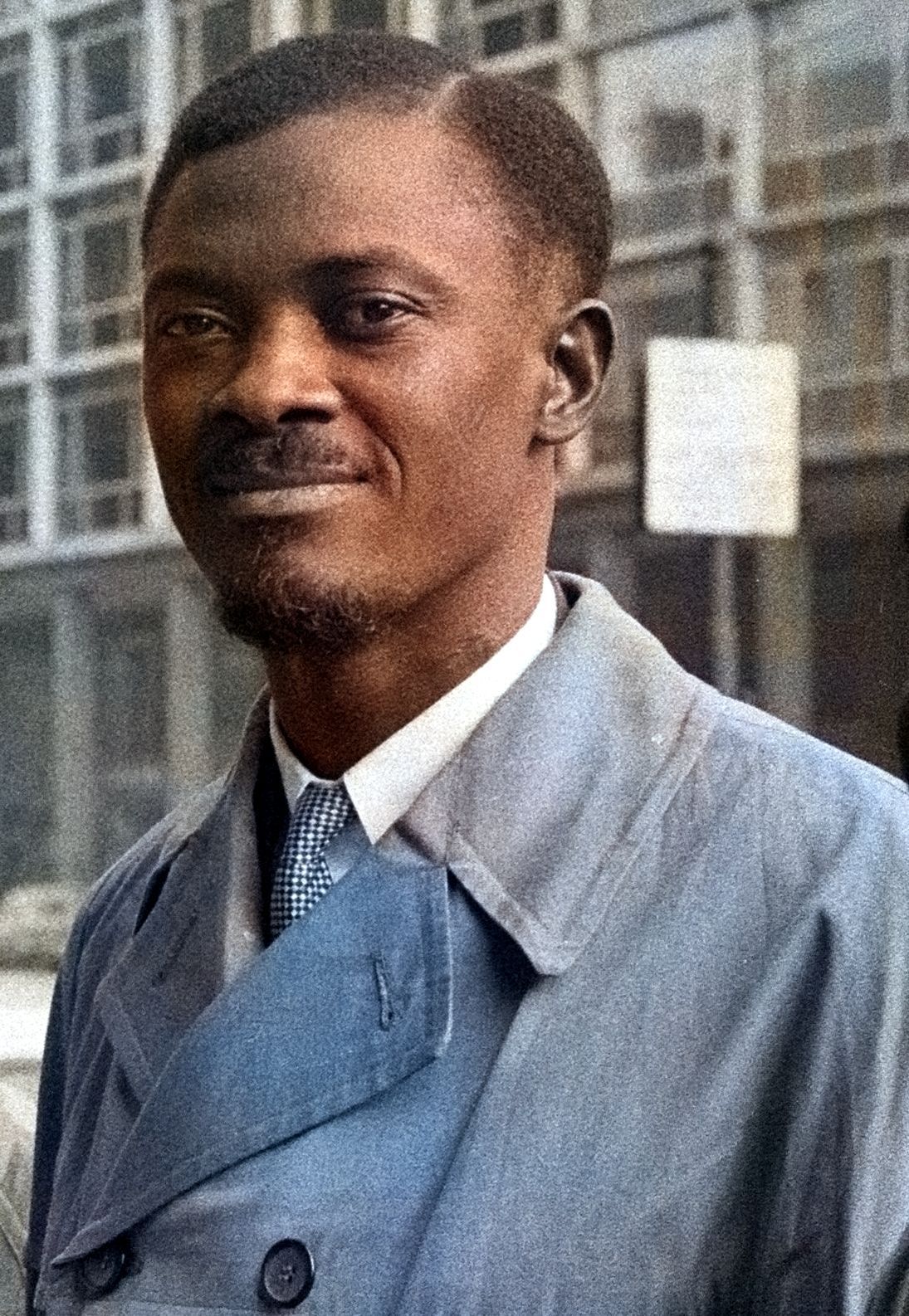
"The day will come when history will speak... Africa will write its own history... it will be a history of glory and dignity."
-
Brief Points Of Interest
~ Patrice Lumumba
In the mid-twentieth century, Congo simmered under the oppressive heat of colonial rule. It was a time when the land’s riches—its copper, rubber, and diamonds—were drained into European coffers, while its people, stripped of dignity, remained shackled in poverty. Out of this fiery crucible emerged a man whose voice would echo far beyond Congo’s rivers and jungles: Patrice Lumumba, the nation’s first Prime Minister and its fervent advocate for independence.
Lumumba’s rise was not that of the usual politician. Born in 1925 in the village of Onalua, he did not belong to the Congolese elite. His education was sparse, yet his intellect was vast. Through self-study and a relentless hunger for knowledge, Lumumba emerged as a skilled orator and a writer, whose words stirred the hearts of his people. He knew the power of language—the way it could unsettle, disrupt, and, most importantly, inspire.
By 1958, the colonial framework that held Africa in chains was beginning to unravel, and Lumumba was at the forefront of that movement in Congo. As a co-founder of the Mouvement National Congolais (MNC), Lumumba did not only call for an end to Belgian rule; he envisioned a Congo where unity transcended ethnic divisions, where sovereignty meant that the country's wealth would serve its people, not foreign interests. His words were a rallying cry for pan-Africanism, and his ambition was not merely the independence of Congo but the liberation of Africa itself.
At the Round Table Conference in Brussels in 1960, Lumumba’s fiery rhetoric shook the walls of the Belgian establishment. He did not mince words, condemning the atrocities of colonialism while demanding the right to self-determination for his people. That same year, as Congo gained its independence, Lumumba was sworn in as Prime Minister, his vision for a free and united Congo seemingly within reach.
But as with many who dare to challenge the entrenched forces of imperialism, Lumumba's dream was short-lived. The newly independent Congo quickly descended into political chaos, fueled by Cold War dynamics, internal divisions, and the lingering influence of Belgian interests. Lumumba’s uncompromising stance and refusal to bow to foreign powers made him a target. By 1961, he had been captured and executed, his body mutilated, his legacy smeared by those who feared the transformative power he wielded.
Yet, Patrice Lumumba's spirit endures. His name is spoken with reverence across Africa and the global south. He was a man who, in his brief life, dared to imagine a future where Congo's wealth would enrich its people and not the world’s powerful. His drive was rooted in justice, his ambition boundless, and his legacy, though stained by betrayal, remains unbroken.
Julius Nyerere
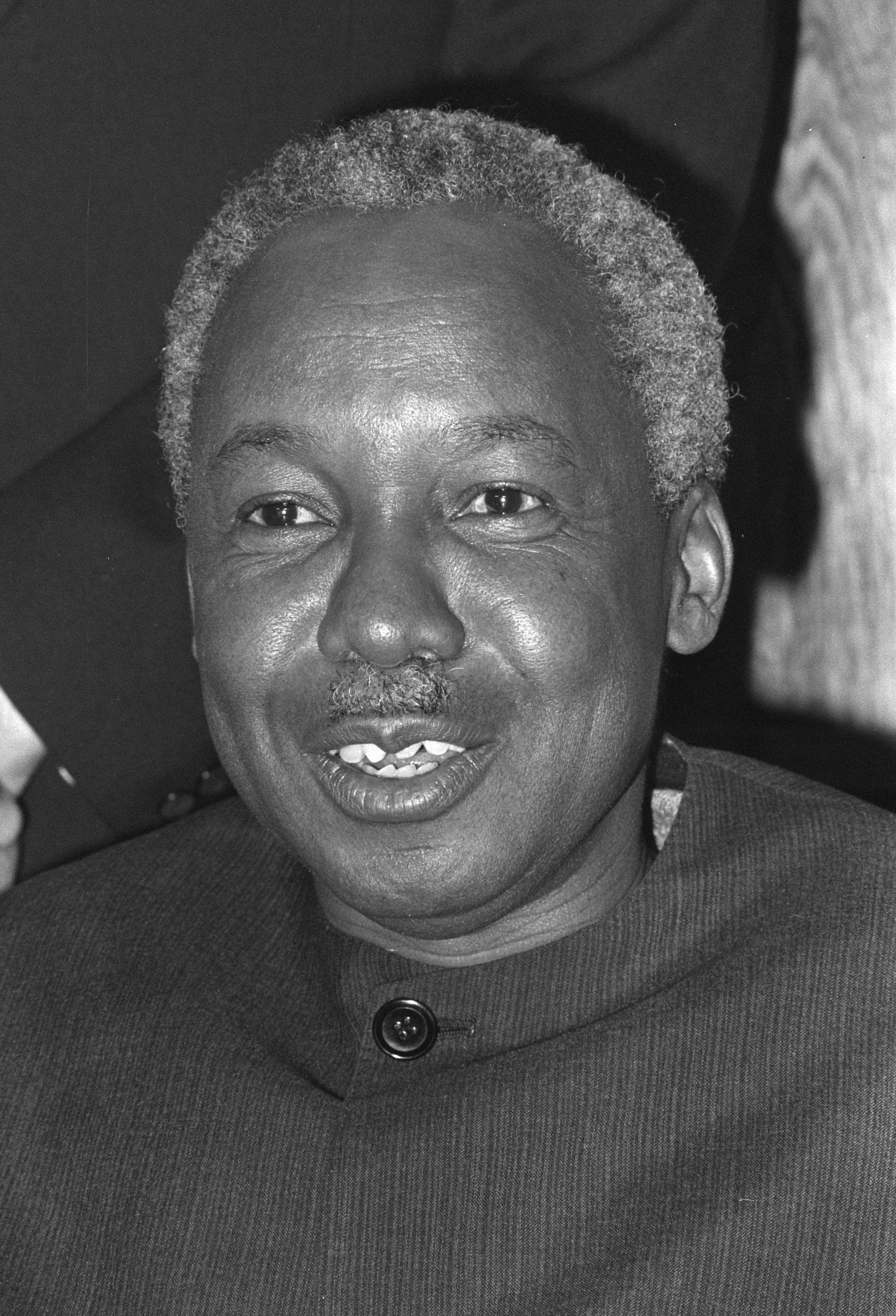
"We, in Africa, have no more need of being 'converted' to socialism than we have of being 'taught' democracy. Both are rooted in our own past—in the traditional society which produced us. Modern African socialism can draw from its own roots, from the communal spirit which sustained our people for centuries. We are committed to a society in which all men are equal, in which exploitation is unknown, and where poverty is no longer a badge of inferiority."
-
Brief Points of Interest
~ Julius Nyerere
In the annals of Africa’s liberation struggle, few figures loom as large as Julius Nyerere. Born into a world steeped in colonial oppression, Nyerere emerged as a beacon of hope, guiding Tanzania from the throes of colonial rule to a sovereign nation defined by its ideals of unity and self-reliance. His legacy as a Pan-Africanist is not merely a footnote in history; it is a testament to the power of visionary leadership in shaping the future of a continent.
Nyerere’s journey began in the small village of Butiama, where he was imbued with the values of education and community. His time at Makerere University and later in the United Kingdom sharpened his intellect and cultivated his nationalist sentiments. He returned to Tanganyika—a territory under British mandate—armed with a vision to liberate his people. In 1954, he founded the Tanganyika African National Union (TANU), a political movement that would become the cornerstone of the independence struggle. Nyerere’s ability to galvanize a diverse population, uniting various ethnic groups under the banner of nationalism, was a hallmark of his leadership.
Upon achieving independence in 1961, Nyerere became Tanzania’s first president, a position he would hold for over two decades. His tenure was marked by a profound commitment to social justice and equality. He introduced the policy of Ujamaa, or "familyhood," which aimed to establish a socialist framework by promoting communal farming and collective ownership. This ambitious vision sought to eradicate poverty and foster self-sufficiency, reflecting Nyerere’s belief that true freedom is not merely political but also economic.
While Ujamaa faced its share of challenges, including economic hardships and criticisms of its implementation, Nyerere’s determination to uphold his ideals never wavered. He understood that leadership is not only about making popular decisions but also about making tough choices for the greater good. His willingness to admit failures and adjust policies illustrated a rare humility, making him relatable to the very people he sought to uplift.
Nyerere’s influence extended beyond Tanzania’s borders; he was a prominent advocate for Pan-African unity. He believed in a united Africa, free from the remnants of colonialism and imperialism. His support for liberation movements across the continent demonstrated his unwavering commitment to this cause. Nyerere played a crucial role in the establishment of the Organisation of African Unity (OAU) and was a vocal critic of apartheid in South Africa, providing both moral and material support to those fighting against racial injustice.
In the modern context, Nyerere’s legacy is particularly resonant as African nations grapple with the complexities of globalization and neocolonialism. His insistence on self-reliance and the importance of cultural identity offers valuable lessons for today’s leaders. The challenges of poverty, inequality, and political instability that continue to plague many African nations can be traced back to colonial legacies; Nyerere’s approach to these issues serves as a blueprint for contemporary governance.
As we reflect on Nyerere’s life and contributions, it becomes clear that his vision for a united and self-sufficient Africa remains as relevant today as it was during his leadership. His ability to inspire hope, coupled with his commitment to justice and equality, has left an indelible mark on the continent. Julius Nyerere may have passed into history, but his ideals continue to light the path for future generations, reminding us that the pursuit of dignity and unity is a journey worth undertaking.
Thomas Isidore Sankara
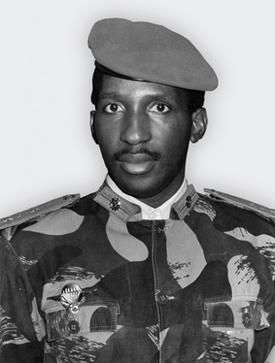
"The revolution cannot triumph without the help of the people. It is up to the people to decide on their own fate, their destiny. The revolution is a movement to liberate the people from the chains of exploitation and oppression. It is a struggle for social justice, for the dignity of the human being, and for a future where all can live in freedom and equality."
-
Brief Points Of Interest
~ Thomas Isidore Sankara
In the vast landscape of African politics, Thomas Sankara stands out not merely for the boldness of his vision but for the audacity with which he pursued it. In the rugged terrains of Burkina Faso, Sankara emerged not just as a leader but as a revolutionary whose imprint on history is indelible. His narrative is not merely one of political maneuvers but a profound testament to the transformative power of radical change.
Sankara, often hailed as Africa's Che Guevara, ascended to power in 1983, taking the reins of a nation plagued by colonial legacies and post-colonial stagnation. His approach was nothing short of revolutionary. With a remarkable blend of charisma and intellect, Sankara sought to dismantle the entrenched structures of oppression that had long stifled Burkina Faso’s potential. His government’s policies were a series of unrelenting reforms aimed at economic independence, social justice, and national pride.
Central to Sankara's vision was his fierce anti-colonial stance. He championed the notion that true liberation went beyond mere political sovereignty; it required economic and cultural reclamation. His famous declaration, “We must dare to invent the future,” was not merely rhetoric but a call to arms against the vestiges of colonial exploitation. Sankara's policies were a blueprint for this future: land reforms redistributed wealth, educational initiatives empowered the masses, and health programs addressed endemic issues, often with innovative, cost-effective solutions.
Yet, Sankara's revolution was not confined to the realms of policy. It seeped into the very fabric of Burkinabé society. He urged the people to embrace self-reliance, famously renaming the country from Upper Volta to Burkina Faso, which means “Land of Upright Men,” symbolizing a break from colonial pasts. Under his leadership, the country saw a surge in infrastructure projects and a marked reduction in corruption, though these gains were not without significant challenges.
Sankara's tenure was marked by a relentless pursuit of egalitarian ideals. His approach to governance was starkly different from that of many contemporaries; he led by example, eschewing the trappings of power that typically accompany such roles. He lived a life of simplicity, often eating the same food as his fellow citizens and driving a modest car. This lifestyle was a deliberate statement against the corruption and decadence that had plagued other regimes.
However, the audacity of his reforms made Sankara both a beacon of hope and a target of resentment. His radical changes and uncompromising stance led to friction with both internal and external forces. The confluence of dissatisfaction and opposition culminated in his tragic assassination in 1987, a stark reminder of the perilous intersection of revolutionary zeal and political vulnerability.
In retrospect, Thomas Sankara's legacy is a study in the complexities of revolutionary politics. His vision of a self-sufficient, egalitarian Burkina Faso remains a poignant reminder of the transformative potential that lies in bold leadership and unwavering commitment to justice. His life and work underscore the challenging but necessary pursuit of a future crafted by the future of those who dare to dream beyond the confines of their present reality.
Odumegwu Chukwuemeka Ojukwu
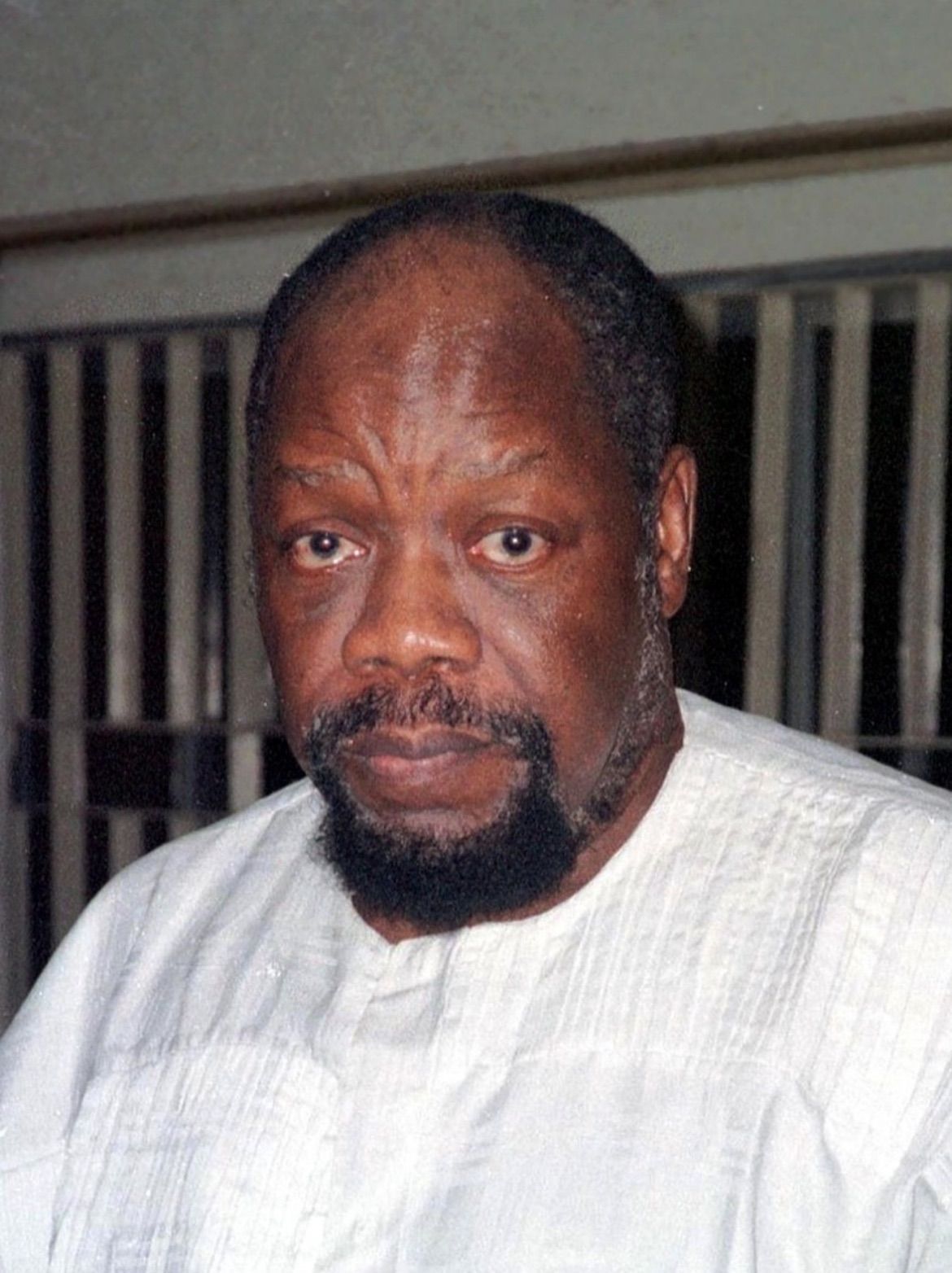
"It is better we disintegrate in peace and not in pieces. But if the Federation remains one, let it be based on equality and mutual respect."
-
Brief Points of Interest
~ Chief Odumegwu Chuckwuemeka Ojukwu
In the annals of Nigeria’s history, few figures evoke the complexity and passion that Chief Odumegwu Chukwuemeka Ojukwu does. Born into privilege, Ojukwu was not your average military officer. Educated at Oxford, he had the refinement of British academia and the strategic brilliance of a seasoned soldier. But beyond his privileged background and military achievements, Ojukwu embodied the deep-rooted conflicts and aspirations of a young, volatile Nigeria, struggling to define itself in the aftermath of colonialism.
Ojukwu’s military career was both distinguished and deeply tied to the tumultuous politics of Nigeria in the 1960s. By the time he rose to become the military governor of the Eastern Region in 1966, Nigeria was already fracturing along ethnic lines. The country was a mosaic of over 250 ethnic groups, with the largest — the Hausa-Fulani in the north, the Yoruba in the west, and the Igbo in the east — often at odds over the distribution of political power and economic resources. The military, which Ojukwu had been part of since the early 1960s, was not immune to these tensions.
The defining moment of Ojukwu’s career, and indeed his life, came in 1967 when he declared the independence of the Republic of Biafra. For Ojukwu, this was not merely a political maneuver but a moral and existential decision. The mass killings of Igbos in the north during the pogroms of 1966 had convinced him that Nigeria, in its current form, could no longer guarantee the safety or future of his people. Biafra was to be a sanctuary, a place where Igbos could exist free from persecution and marginalization. The Nigeria Ojukwu wanted to see was one that respected the autonomy and rights of all its ethnic groups, where no group could dominate another through sheer numbers or military force.
His decision to lead Biafra into secession triggered the Nigerian Civil War — a brutal conflict that lasted for nearly three years and claimed the lives of over a million people, mostly due to starvation. Ojukwu’s leadership during the war was characterized by a mixture of defiance, pragmatism, and idealism. As a military commander, he was tactical and shrewd, but as the leader of a breakaway republic, he was also deeply idealistic. He believed that Biafra, as an independent nation, could become a beacon of hope for the oppressed in Africa, a symbol of self-determination in the face of colonial legacies that had divided the continent along arbitrary lines.
Ojukwu’s vision for Nigeria, though encapsulated in the Biafran struggle, extended beyond secession. He foresaw a country where ethnic identities could coexist within a federated structure, where regions could manage their own affairs without interference from a centralized authority. His advocacy for regional autonomy resonated with the frustrations many Nigerians felt at the time, particularly in the east, where people believed that their contributions to the national economy, especially through oil, were not adequately recognized or compensated.
After Biafra's defeat in 1970, Ojukwu went into exile, but his influence on Nigerian politics and the military persisted. His return to Nigeria in 1982, after being granted a pardon by President Shehu Shagari, marked a new phase in his life as a political elder statesman. Though he never again wielded the same level of power, Ojukwu remained a vocal critic of centralized governance, advocating for restructuring and the devolution of power to Nigeria’s regions.
In Ojukwu's foresight, Nigeria’s future depended on the recognition of its diversity, not just in rhetoric but in practice. He envisioned a Nigeria where no group would feel marginalized or forced into a union that disregarded their interests. His legacy, though controversial, is one of a man who dared to confront the structural inequalities in Nigeria’s political system and sought, in his own way, to create a country where justice and equity were not just aspirational, but attainable.
Today, as Nigeria continues to grapple with the same ethnic and regional tensions that defined Ojukwu’s era, his vision of a more decentralized and inclusive Nigeria remains as relevant as ever. The Biafran cause, though defeated militarily, left a lasting imprint on the nation’s consciousness — one that forces Nigeria to continually ask itself: what kind of nation does it truly want to be?
Chimamanda Ngozi Adichie

"The single story creates stereotypes, and the problem with stereotypes is not that they are untrue, but that they are incomplete. They make one story become the only story. Stories have been used to dispossess and to malign, but stories can also be used to empower, and to humanize. Stories can break the dignity of a people, but stories can also repair that broken dignity."
-
Brief Points Of Interest
~ Chimamanda Ngozi Adichie
In the world of modern literature, where voices often rise and fall with the tide of trends, Chimamanda Ngozi Adichie has proven to be more than just a passing wave. She is a force of nature, her words carving pathways through the hearts of readers across continents, her stories igniting conversations that stretch from Lagos to New York. Her journey as a storyteller began long before the spotlight found her, but it was Half of a Yellow Sun, her searing portrayal of the Nigerian Civil War, that cemented her place on the global stage. It wasn’t just a book about history; it was a meditation on humanity, the fragility of peace, and the scars that war leaves on both individuals and nations.
Adichie’s work has always been deeply tied to the Nigerian experience, yet it resonates far beyond her homeland. She writes with a duality that captures both the specific and the universal. In Americanah, her exploration of identity, immigration, and the notion of "home" speaks to anyone who has ever felt the pull of two worlds. She tells the story of Ifemelu, a young Nigerian woman navigating race and belonging in the United States, with a sharpness that is as compassionate as it is critical. Through Ifemelu, Adichie touches on the complexities of diaspora life, offering insight into the lives of millions who straddle cultures, never fully belonging to one or the other.
But Chimamanda is more than just a novelist. Her voice in the global feminist movement is unmistakable. In her TED talk, We Should All Be Feminists, she took what had become a sometimes polarizing term and redefined it for a new generation, reminding the world that feminism is not a threat but a call for equality. Her manifesto on gender equality has inspired everything from Beyoncé's music to global policy discussions, showing just how far-reaching her influence has become.
Despite her international success, Adichie remains fiercely connected to Nigeria. Her work speaks not only of the struggles but also the hope and resilience of her people. In interviews, she often expresses a deep desire for a Nigeria that works, a Nigeria that offers its children the opportunities they deserve. She understands the power of storytelling not just as a tool for entertainment but as a vehicle for change, shaping the narrative of Africa and its place in the world.
Chimamanda Ngozi Adichie is not just a writer; she is a curator of experiences, a weaver of words who has managed to translate the intricacies of Nigerian life onto a global canvas. Through her work, she continues to challenge, inspire, and redefine what it means to be a woman, a Nigerian, and a citizen of the world.
Bernadine Anne Mobolaji Evaristo - OBE
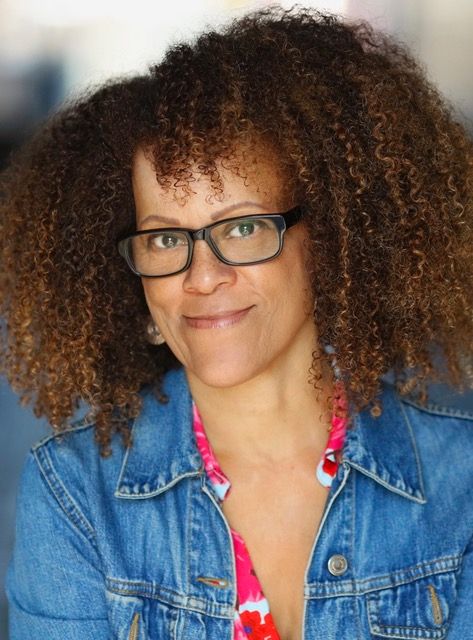
"I write about women who walk multiple paths through life, who don’t follow the script society sets for them, because we are endlessly complex and full of contradictions. We do not fit into neat boxes. Our stories deserve to be told in all their messiness and beauty because through them, we rewrite history and create our own narratives."
-
Brief Points of Interest
~ Bernadine Anne Mobolaji Evaristo OBE
Bernadine Anne Mobolaji is not just a name whispered in passing; she is a force, a woman whose vision extends beyond the ordinary boundaries of achievement. Born into a society where women’s voices were often hushed, she charted a different path, blazing a trail for others to follow. Her journey, one that has captured both hearts and minds, is deeply rooted in a desire to see true transformation, particularly in sectors often ignored. The legacy she is building is not merely her own, but a collective one—a testament to the power of one individual to inspire change.
Mobolaji's early life was colored by a sense of determination. She was not raised to be average, and those who knew her always spoke of her fierce intellect and her keen sense of justice. She pursued education with a rare vigor, understanding that it was the most potent weapon to change her own world and the world around her. This belief led her to champion educational reforms in underprivileged communities. Her work in the sector quickly became more than just an effort; it was a movement. She sought to rebuild broken systems, emphasizing quality education as the foundation of societal progress.
Her views are clear: the potential of any nation lies in its people, particularly its women and youth. Bernadine’s advocacy for gender equality is not born out of abstract ideals but personal experience. She has seen firsthand the barriers that women face—economically, socially, and politically—and she has dedicated her life to dismantling those walls. One cannot speak of her without mentioning her relentless drive to ensure that women occupy decision-making positions, that they are given not just seats at the table but the power to shape the conversation.
In the corporate world, Mobolaji’s achievements are no less impressive. She moved swiftly through the ranks, breaking ceilings as though they were made of paper. Her leadership in several multinational organizations has been marked by a focus on sustainability and corporate social responsibility. To her, business is not just about profit margins; it’s about leaving the world better than you found it. Her work in this arena, particularly in driving initiatives that promote ethical practices and community engagement, is nothing short of revolutionary.
But it is perhaps in her humanitarian work that Bernadine truly shines. She has spearheaded programs aimed at alleviating poverty, improving healthcare, and fostering economic empowerment across various African nations. Her foundation, which provides scholarships and mentorship to young African women, is one of the many initiatives that reflect her deep-seated belief in the transformative power of education.
Bernadine Anne Mobolaji is, in every sense, a visionary. Her views, her achievements, and her drive have become beacons, lighting the way for others. She reminds us that change is not just possible—it is inevitable when it is pursued with conviction. Her legacy is still unfolding, but already it speaks volumes: of hope, of progress, and of a future shaped by the strength and wisdom of women like her.
Ken Saro-Wiwa
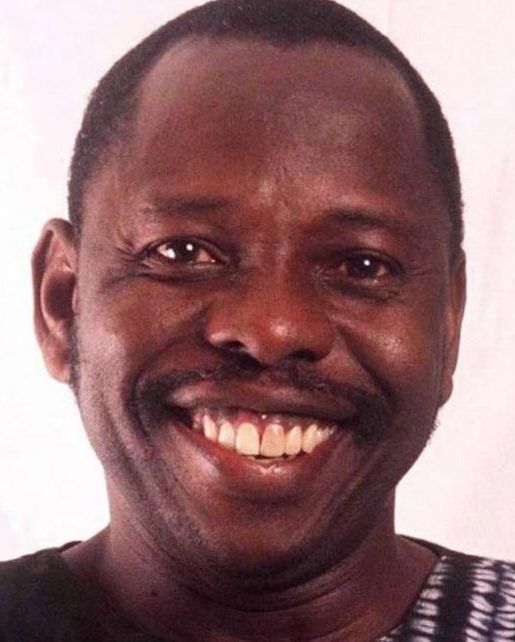
Photo Owner: Lagos Metropolitan
"I am not a man of violence; I am a man of peace. But my peace will not be compromised. I will not rest until I achieve justice for my people, and I will fight for the environment that sustains us. The world must hear our voices and recognize our rights."
-
Brief Points Of Interest
~ Ken Saro-Wiwa
In the annals of Nigerian history, Ken Saro-Wiwa stands as a luminary, an indomitable spirit whose fervent activism and literary prowess cast a long shadow over the socio-political landscape. Born in 1941 in Ogoniland, Rivers State, Saro-Wiwa emerged not merely as a writer but as a champion for the marginalized and a fierce advocate for environmental justice. He belonged to the Ogoni people, a community rich in cultural heritage yet impoverished by the relentless exploitation of its oil resources.
Saro-Wiwa’s early life was shaped by the contradictions of his environment. A graduate of the University of Ibadan, he initially ventured into television and film, captivating audiences with his creative storytelling. His artistic journey was not merely a pursuit of personal accolades; it was intertwined with his growing awareness of the systemic injustices faced by his people. The juxtaposition of his success in the arts against the backdrop of his community's suffering ignited a passion within him—one that would fuel his activism.
The discovery of oil in Ogoniland in the late 1950s marked the beginning of a catastrophic exploitation that would devastate the land and its people. Saro-Wiwa became increasingly vocal about the environmental degradation and human rights abuses perpetrated by multinational oil corporations, particularly Shell. In 1990, he founded the Movement for the Survival of the Ogoni People (MOSOP), which aimed to mobilize the Ogoni against the environmental destruction and social injustices inflicted upon them.
Through his writings, Saro-Wiwa wielded words like weapons, exposing the stark realities of life in Ogoniland. His literary works, including Sozaboy and A Month and a Day, combined the rich tapestry of Nigerian folklore with biting critiques of political corruption and colonial legacies. He articulated the pain of his people, transforming their silent suffering into a resounding cry for justice. “I have spent my life fighting for the rights of my people,” he once stated, “and I will not rest until we achieve justice.”
However, Saro-Wiwa’s unyielding pursuit of justice came at a profound cost. In 1993, following years of protests and campaigns, he was arrested, tried, and ultimately executed by the Nigerian government. His death ignited international outrage, drawing attention to the plight of the Ogoni people and the broader struggle against environmental exploitation in Nigeria. His final words, spoken just before his execution, resonate as a poignant reminder of his legacy: “The struggle is not over.”
Ken Saro-Wiwa’s life and legacy are a testament to the power of resistance and the importance of bearing witness to injustice. His drive for change, coupled with his literary genius, not only illuminated the struggles of the Ogoni people but also inspired generations of activists worldwide. In a world where corporate interests often overshadow human rights, Saro-Wiwa’s message remains relevant: the fight for justice and dignity is a relentless pursuit, one that demands courage and resilience.
In the tapestry of Nigerian history, Ken Saro-Wiwa's voice reverberates—a clarion call for justice that continues to inspire those who dare to stand against oppression.
Sir Ben Okri - OBE
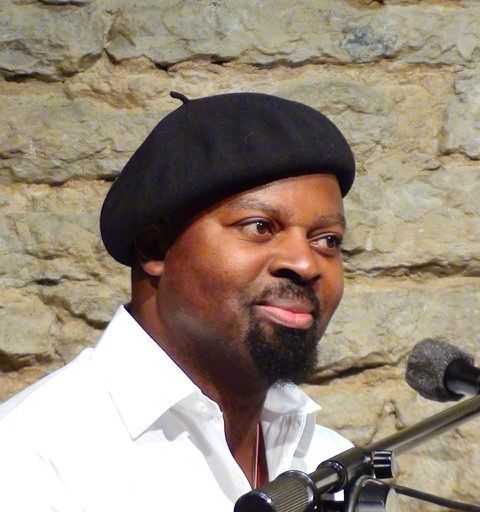
Photo Owner: Metsavend
"Poetry is the most beautiful of all lies; it is the most truthful of all truths. It is the most revealing of all stories; it is the most concealing of all tales. It is the music of the heart. It is the exploration of the spirit. It is the unfolding of the universe, in its rhythm, in its cadence, in its flow. It is the silence in the soul that gives birth to the word."
-
Brief Points of Interest
~ Ben Okri
In contemporary literature, Ben Okri emerges as a formidable figure, weaving narratives that pulse with the heartbeat of Nigeria while engaging the universal human experience. His work transcends mere storytelling; it is an exploration of existence, steeped in the complexities of identity, suffering, and the shimmering possibility of hope. With each page, Okri crafts a world as lush and vibrant as his homeland’s landscapes, yet tinged with the shadows of its history.
His celebrated novel, 'The Famished Road', blends magic realism with poignant political commentary. Following the journey of Azaro, a spirit child caught between the physical and spiritual worlds, the narrative navigates a society rife with corruption and struggle. Through Azaro's eyes, Okri articulates a deeper truth: the fabric of reality is woven with threads of both despair and dreams. This tale mirrors Nigeria’s tumultuous landscape, a place where beauty and brutality coexist, challenging our understanding of existence.
Beyond literature, Okri’s insights engage with pressing societal issues—poverty, environmental degradation, and the quest for justice—insisting that storytelling is not merely an art form but a catalyst for change. “Stories can change the world,” he declares, underscoring his belief in the transformative power of narrative. In a society where voices are often stifled, his words emerge as a clarion call for the silenced, urging them to reclaim their narratives and assert their humanity.
His philosophy is marked by unwavering optimism, even in adversity. Okri’s prose dances with a lyrical quality that invites readers to envision a future unmarred by past scars. He intertwines folklore with modern realities, creating a tapestry that is both enchanting and thought-provoking. In his eyes, every story connects us, transcending geographical and cultural divides.
International acclaim accompanies Okri's literary prowess, yet his commitment to social issues solidifies his role as a moral compass in a fractured world. He speaks with a compelling conviction, urging us to confront our collective responsibilities. His narratives challenge us to reflect on our place within the larger tapestry of existence, recognizing that one person's struggle is ultimately our shared struggle.
In interviews, he speaks candidly about the power of imagination. “Imagination is a form of social responsibility,” he asserts, a sentiment that resonates deeply today. For Okri, imagination is not just an escape; it is a vital tool for envisioning and crafting a better world, where empathy reigns and justice prevails.
Ben Okri embodies what it means to be a writer in the modern age—one who observes and actively participates in the discourse of our time. His works compel us to question, to feel, and ultimately, to act. In a landscape often obscured by disillusionment, he shines as a beacon of hope, reminding us that within the complexities of life, there is always room for beauty, resilience, and the transformative power of stories.
Anthony Enahoro
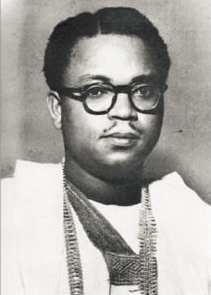
"If you are not prepared to fight for what you believe in, then you should not complain when the powers that be take away your rights and freedoms. It is the duty of every citizen to stand up against oppression, to speak out against injustice, and to fight for a society that values equity and democracy. Our struggle is not just for ourselves but for generations yet unborn."
-
Brief Points Of Interest
~ Anthony Enahoro
In the annals of Nigerian history, few names evoke the complexities of struggle and resilience like that of Anthony Enahoro. Born in 1923 in a Nigeria grappling with colonial rule, Enahoro emerged as a figure emblematic of the fight for independence, equality, and social justice. His political journey unfolded against a backdrop of profound societal transformation, as he championed the cause of democracy in a nation yearning for its identity.
Enahoro’s early foray into politics began with his election as a member of the Western House of Assembly in 1951, a milestone that marked him as one of the youngest legislators in the country. His fervent belief in self-governance galvanized his efforts, leading to his historic motion in 1953 calling for Nigeria's independence from British colonial rule. In that moment, he crystallized the aspirations of millions, presenting a vision of a sovereign nation where power resided with its people. The motion, although met with fierce opposition, laid the groundwork for subsequent independence negotiations and underscored his unwavering commitment to the democratic process.
However, Enahoro's political career was not merely defined by his early triumphs. As the political landscape in Nigeria shifted, so did the challenges he faced. The tumultuous years following independence saw the rise of military regimes that stifled dissent and suppressed democratic ideals. Yet, Enahoro remained resolute, advocating for the restoration of democracy. His vocal opposition to military rule and his calls for civil rights resonated across the nation, marking him as a principled opponent of tyranny.
His activism was not without consequence. Enahoro faced numerous arrests and periods of exile, yet each setback only fortified his resolve. His writings, infused with a blend of eloquence and passion, became a rallying cry for those disillusioned by the growing despotism in the country. He emerged not just as a politician but as a beacon of hope, illuminating the path for future generations who would carry the torch of democracy.
Enahoro's contributions extended beyond political activism; he was a prolific writer and thinker. His essays and speeches addressed the core issues plaguing Nigeria, from corruption to the need for national unity. He understood that the strength of a nation lay not just in its leadership but in the collective will of its people to demand accountability and justice. His vision of a Nigeria rooted in equity and social justice was a reflection of his deep-seated belief in the power of the masses to effect change.
In the later years of his life, Enahoro remained a respected elder statesman, his insights sought after in discussions about Nigeria's future. His legacy endures, serving as a reminder of the enduring struggle for democracy and the relentless pursuit of justice. The journey of Anthony Enahoro is not merely a chapter in Nigeria's history; it is a narrative that encapsulates the very essence of what it means to fight for a cause greater than oneself—a testament to the power of conviction, resilience, and an unyielding belief in a brighter future for all.
FMR President Shehu Shagari
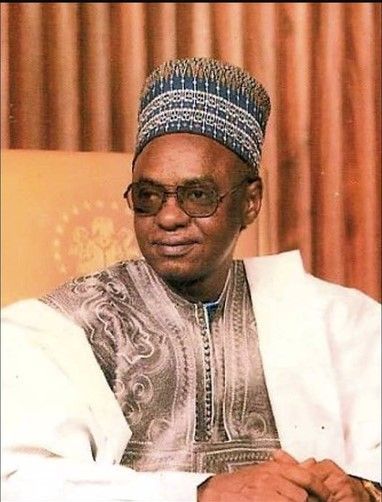
"I have always believed that leadership is not about the leader but about the people. It is not about the power you wield but how you use it for the betterment of the country. True leadership is measured not by the influence you hold but by the impact you leave behind, by the unity you foster, and the peace you ensure."
-
Brief Points of Interest
~ Alhaji Shehu Shagari
Alhaji Shehu Shagari, Nigeria’s first democratically elected executive president, stood as a symbol of leadership defined by humility, pragmatism, and a deep sense of responsibility. As a Pan-Africanist with a passion for the development of his people, he charted a path that echoed the values of self-reliance, peace, and unity across Africa. Born into a post-colonial Nigeria still grappling with its identity, Shagari navigated the complex political landscape with a steady hand and an unwavering commitment to public service.
Shagari’s ascent to power was marked by his belief in the role of education as a transformative tool for the nation. His leadership was rooted in his background as a teacher, and later as a public servant, which gave him the conviction that governance must be inclusive and people-oriented. As a leader, he was less driven by personal ambition than by a genuine desire to uplift Nigeria. His administration, although short-lived, focused heavily on industrialization, agricultural development, and infrastructural expansion to make Nigeria more self-sufficient.
One of Shagari’s key achievements was the "Green Revolution," aimed at boosting Nigeria’s agricultural productivity, a plan driven by his understanding of Nigeria’s reliance on oil revenue. He knew the importance of diversifying the economy and reducing dependence on a single commodity, recognizing that true sovereignty and economic independence would only come through self-sustainability. This initiative, despite its challenges, laid the foundation for discussions on food security and agricultural reform, issues that continue to dominate Nigerian political discourse.
However, his tenure as president was fraught with challenges, most notably economic instability caused by the global oil glut and mounting external debts. Yet, in the face of these adversities, Shagari maintained a diplomatic approach to governance. His foreign policy initiatives reflected his Pan-African ideals, as he worked to strengthen ties with African neighbors and support regional cooperation through the Economic Community of West African States (ECOWAS). His commitment to peace was exemplified by his diplomatic engagement in resolving the Chadian civil war, cementing his legacy as a mediator.
Though his presidency was cut short by a military coup in 1983, Shagari’s leadership legacy endures in his vision for a peaceful and self-sustaining Nigeria. His quiet yet impactful leadership reminds modern leaders of the necessity of humility, national unity, and service to the people, especially in times of political and economic turbulence.
Rt. Hon. Dr. Nnamdi Azikiwe
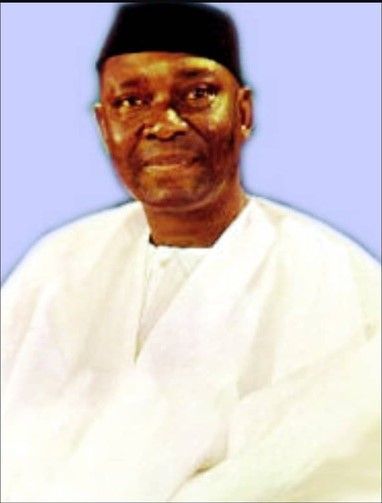
"It is better we disintegrate in peace and not in pieces. History will record that the troubles with Nigeria started when we ceased to work together. The only way Nigeria can succeed is if we build a united nation, where we recognise our common heritage, our shared destiny, and work collectively to pursue the good of all. Nigeria is bigger than any of us, and we must preserve its unity above all else."
-
Brief Points Of Interest
~ Dr. Nnamdi Azikiwe
Dr. Nnamdi Azikiwe, often hailed as the “father of Nigerian nationalism,” embodied the spirit of Pan-Africanism, tirelessly advocating for the political emancipation of Nigeria from colonial rule. His life’s work reflected a profound belief in the power of education, diplomacy, and unity, shaping not only Nigeria’s future but also influencing the broader African independence movement. A pragmatic educator, Azikiwe understood that knowledge was the key to liberation, and he used his own education as a tool to challenge the oppressive structures of colonialism.
Azikiwe’s leadership qualities were grounded in his ability to inspire hope and foster resilience among his people. He was a man of vision, well ahead of his time, who recognised that the freedom of a nation hinged on the collective will of its citizens. In the 1940s and 50s, as editor of nationalist newspapers like the West African Pilot, he used the power of the press to awaken a consciousness that was dormant, exposing the injustices of colonialism and advocating for self-governance. He often framed the struggle for independence as a larger African cause, seeing Nigeria’s freedom as interconnected with the liberation of the continent.
As Nigeria’s first President after independence, Azikiwe’s approach to governance was marked by inclusivity and diplomacy. He championed the idea of a united Nigeria, despite the deep ethnic and religious divides that threatened to fragment the nation. His belief in federalism was key to maintaining the fragile unity of Nigeria’s diverse groups, and he sought to build a government that could reflect the country’s complexity without allowing it to disintegrate into conflict. His ability to navigate the tumultuous waters of post-colonial politics showcased his political acumen and deep commitment to peace.
Beyond Nigeria, Azikiwe’s influence stretched across Africa. He was an early advocate of Pan-African solidarity, recognizing that African nations, united, could resist neo-colonialism and assert their sovereignty on the global stage. His efforts in diplomacy, including his role in the founding of the Organization of African Unity (OAU), demonstrated his belief in a collective African identity and the necessity of regional cooperation for progress.
In the modern world, Azikiwe’s achievements remain a testament to the power of vision, diplomacy, and resilience. His legacy continues to inspire leaders across Africa and beyond, reminding us that the fight for equality, justice, and unity is a continuous one. Azikiwe's foresight and commitment to an independent, united, and prosperous Africa echo across generations, as relevant today as they were during the fight for freedom.
General Yakubu Gowon
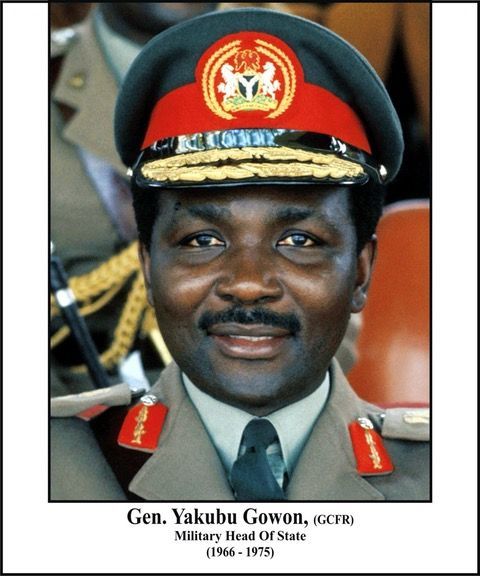
"The tragic events of the last 30 months give cause for deep reflection and concern by all true and well-meaning Nigerians. For me, the duty of every Nigerian now is to forget the bitterness of the past, and to strive towards the achievement of a truly united, strong, and self-reliant nation."
-
Brief Points of Interest
~ General Yakubu Gowon
General Yakubu Gowon, a man of measured restraint and decisive action, occupies a singular place in the annals of African history. His leadership during Nigeria’s most turbulent years, particularly during the civil war, demonstrates not just a commitment to unity but an unyielding belief in the possibility of a stable and prosperous Nigeria. Gowon, the pragmatic educator and Pan-Africanist, sought to save his country from internal collapse and ensure that the legacy of colonialism did not define the trajectory of Nigeria’s future.
Gowon’s rise to power came at a critical juncture in Nigeria’s post-independence history. The nation, newly freed from colonial rule, was riven by ethnic tensions, economic disparities, and political turmoil. His role as a military leader during the Nigerian Civil War (1967-1970) revealed his deep commitment to the concept of "One Nigeria." At a time when the country was on the brink of disintegration, Gowon maintained a level-headed approach, resisting calls for retribution and focusing instead on reconciliation. He often stated that there were “no victors, no vanquished,” a testament to his vision of a united Nigeria, where the past could be set aside in the interest of national healing.
Though his tenure as head of state was marred by the complexities of war, Gowon’s leadership extended beyond military strategy. His administration spearheaded initiatives that prioritized education, infrastructural development, and regional integration. He launched the National Youth Service Corps (NYSC) in 1973, a program that continues to serve as a platform for fostering unity among Nigeria’s youth across ethnic divides. The initiative was emblematic of Gowon’s broader vision: a Nigeria where diversity was seen as strength rather than a point of contention.
Gowon also held Pan-African ideals close to his heart, advocating for African solidarity at a time when the continent was grappling with the legacies of colonialism. His contributions to the formation of the Economic Community of West African States (ECOWAS) reflect his belief in regional cooperation as a path toward collective progress and peace.
Despite the challenges of governance during such a fraught era, Gowon’s leadership qualities—his humility, resilience, and commitment to unity—remain an indelible part of Nigeria’s national consciousness. His legacy is not merely one of a war leader, but of a man who envisioned a Nigeria where progress, education, and peace could flourish in the face of adversity.
Former President J. J. Rawlings
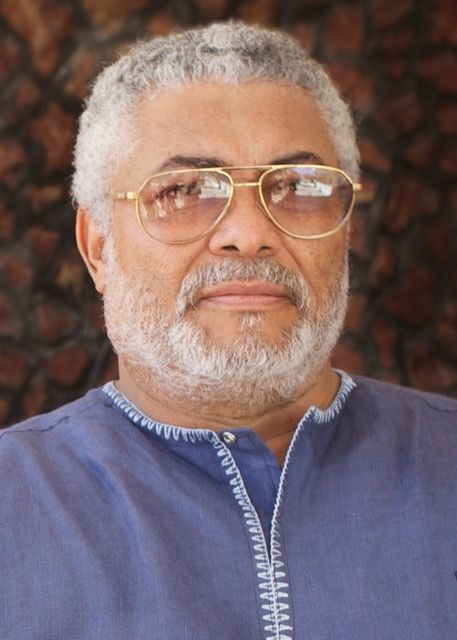
"If you are not prepared to die for what is right, then you have already given up. Our nation can only progress when leaders understand that the seat of power is not for personal gain, but for the service of the people. Corruption is the enemy of development, and if we do not root it out, we will never move forward as a nation."
-
Brief Points Of Interest
~ Jerry John Rawlings
Jerry John Rawlings was a figure who redefined the political landscape of Ghana, breathing new life into a country weighed down by corruption, poverty, and political instability. His legacy as a Pan-Africanist and revolutionary leader stands as a testament to his relentless drive for social justice, equity, and the vision of a self-sufficient Africa.
Rawlings burst onto the scene in the late 1970s, when Ghana was teetering on the edge of collapse. The country's economic structure was fractured, and the political elite, disconnected from the struggles of the average Ghanaian, were mired in corruption. It was within this context that Rawlings led a coup in 1979, an act that was less about personal power and more about reclaiming the soul of the nation. He sought to rid the country of its corrupt systems, executing a bold vision of transparency and accountability. Rawlings’ leadership was uncompromising, and his radical reforms during the early years were aimed at achieving a fairer distribution of wealth and the revitalization of Ghana’s economy.
But Rawlings was more than just a man of military force; he was a leader with an enduring passion for the ordinary citizen. His charisma lay not in grandiose speeches but in his connection to the people. He spoke for the downtrodden and acted as their voice. It was this unique quality that enabled him to transition from military leader to the architect of democratic governance in Ghana, leading to two successful terms as the civilian president of the country.
Beyond Ghana, Rawlings’ influence stretched across Africa. His fierce commitment to Pan-Africanism resonated with leaders and citizens alike. He believed in an Africa free from the shackles of foreign dependency, a continent that could rise to its potential if only its leaders could shed the vices of corruption and focus on the development of their people.
In Rawlings, modern Africa finds a leader who was unafraid to challenge the status quo. His vision for Ghana was not just a better country, but a nation that could lead by example for the rest of Africa—a beacon of what Pan-African leadership should look like. Today, Rawlings is remembered not only for his boldness but for his legacy of placing the needs of the people at the heart of governance. His life’s work speaks to the enduring fight against oppression and the continued pursuit of justice for all Africans.
Emperor Haile Selassie
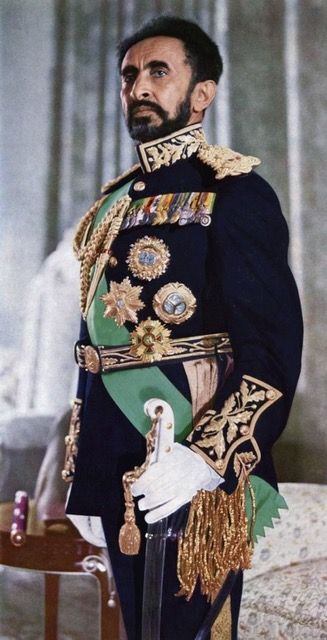
"Throughout history, it has been the inaction of those who could have acted, the indifference of those who should have known better, the silence of the voice of justice when it mattered most, that has made it possible for evil to triumph. Evil will triumph if good men and women do nothing. We must fight injustice, oppression, and exploitation in every form with courage and determination."
-
Brief Points of Interest
~ Haile Selassie
Haile Selassie, the revered Emperor of Ethiopia, was a figure whose leadership qualities and vision for Africa left an indelible mark on the continent and the world. His reign was defined not only by his effort to modernize Ethiopia but also by his unwavering commitment to African unity and independence. In a world deeply scarred by colonialism, Haile Selassie stood as a beacon of hope, representing the struggle of African nations to assert their sovereignty in the face of external domination.
Selassie’s most profound achievement was his role in securing Ethiopia’s independence from colonial rule, making Ethiopia the only African nation that was never fully colonized. When Italy, under Mussolini’s regime, invaded Ethiopia in 1935, Selassie stood defiantly before the League of Nations, delivering a historic speech that resonated far beyond Africa. His plea for international solidarity against aggression was one of the earliest calls for collective security, echoing across the globe. Although the world turned a blind eye to Ethiopia’s plight at that time, his words would later become prophetic as the world faced the horrors of World War II.
Beyond defending Ethiopia’s sovereignty, Selassie’s vision for the future extended to the entire continent. He was a driving force behind the creation of the Organization of African Unity (OAU) in 1963, an institution that aimed to foster cooperation and unity among African nations as they emerged from the shadows of colonial rule. His leadership in convening African leaders from diverse political backgrounds to form the OAU demonstrated his ability to bridge divides and unite Africans around a common goal: the pursuit of political and economic independence for all African nations.
Selassie’s domestic policies reflected his ambition to transform Ethiopia into a modern state. His efforts to introduce land reforms, modern education, and infrastructure development were met with both praise and resistance. Though his reign faced challenges, including internal unrest, his dedication to reform and modernization shaped Ethiopia’s trajectory for decades.
On the global stage, Selassie’s role as a statesman, peacekeeper, and symbol of African resilience earned him a place among the most respected leaders of the 20th century. His legacy as a Pan-Africanist lives on in the continued efforts for African unity and self-determination, inspiring generations of Africans to reclaim their destiny and craft a future that aligns with Selassie’s vision of justice, peace, and independence.
Sadio Mané

Photo Owner: Екатерина Лаут, CC BY-SA 3.0
"Success in football, as in life, is not about individual glory, but about the collective effort of a team. The greatest victories are those shared with others, and true success is measured by how you lift others along the way."
-
Brief Points Of Interest
~ Sadio Mané
In the footballing world, where fame often becomes a gilded cage, Sadio Mané stands apart. Hailing from Bambali, a humble village in Senegal, Mané has become a symbol of excellence on the pitch and generosity off it. His journey is not just one of personal triumph; it is a testament to how talent, when combined with humility, can transform not just a life, but entire communities.
Mané’s rise to global stardom began in earnest with his exploits at FC Metz, Southampton, and Liverpool. At Liverpool, he formed a formidable partnership with Mohamed Salah and Roberto Firmino, crafting some of the most memorable moments in the club's history. His speed, precision, and unmatched work ethic were crucial in securing the UEFA Champions League title in 2019 and ending Liverpool’s 30-year Premier League drought in 2020. Yet, his brilliance was never solitary; Mané played for the team, not the limelight. Jurgen Klopp once called him “a complete player and a perfect human being,” a description that resonates both on and off the pitch.
But the story of Sadio Mané cannot be confined to statistics and trophies. For him, football was never the final destination—it was the means to a greater end. As his fame grew, so did his determination to uplift his people. Despite earning millions, Mané famously shuns extravagance. His explanation, both simple and profound, reflects his values: *“Why would I want ten Ferraris, twenty diamond watches, or two planes? What will these objects do for me and the world?”*
Mané’s philanthropy has become as legendary as his football skills. In Bambali, the village that nurtured his dreams, he has built schools, a hospital, and a community center. For a place where electricity and healthcare were once luxuries, Mané’s contributions are nothing short of transformative. His projects are not acts of charity but investments in his people’s potential. He doesn’t just give back; he empowers.
His work extends beyond Bambali to Africa at large. Mané has been a vocal advocate for the continent, urging the world to see Africa not as a land of need but as a reservoir of talent and innovation. He has inspired countless young Africans to dream beyond their circumstances, proving that greatness can emerge from even the most modest beginnings.
In 2022, he led Senegal to their first Africa Cup of Nations victory, scoring the decisive penalty in the final against Egypt. It was a moment of unbridled joy for Senegal—a nation united by Mané’s relentless pursuit of excellence. Beyond the goals and accolades, he became a symbol of hope, demonstrating that perseverance and integrity can conquer even the highest peaks.
Mané’s story is not just about football; it is about humanity. He reminds us that success is hollow if it does not lift others. In a world increasingly divided by wealth and privilege, Sadio Mané is a beacon of what is possible when talent serves a purpose greater than itself. His legacy, like his game, is not about flash but about impact—a legacy that inspires not just Senegal, but all of Africa.
Wale Adeyemo
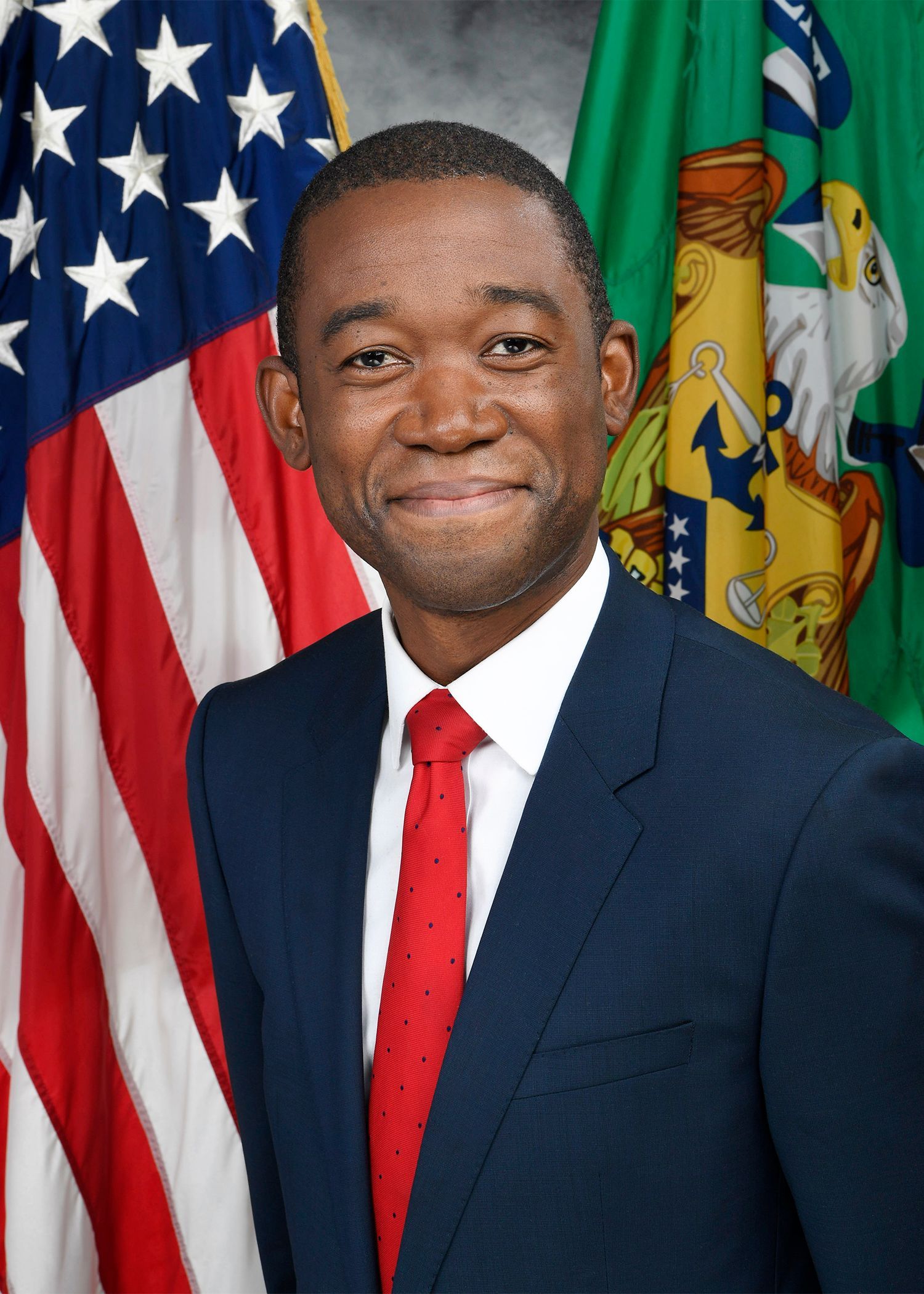
"Success in life is not measured by individual achievements, but by how much we invest in the progress and upliftment of those around us. Our responsibility as leaders is to ensure that we are constantly creating opportunities that foster unity, understanding, and growth."
-
Brief Points of Interest
~ Wally Adeyemo
In the annals of global politics, where power often silences empathy, Wally Adeyemo stands as a rare figure—a leader whose rise has been as remarkable as his resolve to create change. Born in Nigeria and raised in California, Adeyemo embodies the duality of cultures that shaped him, navigating both with grace and purpose. As the first African-American Deputy Secretary of the Treasury of the United States, his story is one of breaking barriers, but also of building bridges.
Adeyemo’s ascent to the heights of American governance is a testament to his intellect and perseverance. Educated at the University of California, Berkeley, and Yale Law School, he quickly distinguished himself as a policymaker with a profound understanding of economics and equity. During the Obama administration, he served as Deputy National Security Advisor for International Economics, a role that positioned him at the nexus of domestic prosperity and global stability. His work during the 2008 financial crisis demonstrated his ability to craft policies that were both technically sound and morally guided.
Yet, Adeyemo’s achievements are not confined to boardrooms or bureaucratic corridors. His tenure at the Treasury has been marked by a deep commitment to tackling inequality. He has been a leading voice in promoting economic policies that uplift marginalized communities, recognizing that the strength of a nation lies in the prosperity of its people. From driving efforts to combat climate change through green financing to ensuring pandemic relief reached vulnerable populations, Adeyemo’s approach to governance blends pragmatism with compassion.
What sets him apart is his unwavering connection to his roots. Though his platform is global, Adeyemo has consistently used it to highlight the potential of Africa. He has spoken passionately about the continent's youth as a reservoir of innovation and energy, calling for investments that empower rather than exploit. His advocacy is not just rhetoric; it is a call to action for a world that often overlooks Africa’s contributions.
Adeyemo’s story resonates with immigrants and global citizens alike, a testament to the power of resilience and vision. In him, young Africans see a reflection of their aspirations, and Americans see the promise of inclusion. Wally Adeyemo is not just a policymaker; he is a symbol of what is possible when excellence meets purpose—a man who bridges worlds while reminding us of our shared humanity.
Aliko Dangote

Photo Owner: SABA DUBAI
"Success is not defined by the wealth one accumulates, but by the impact one has on society. True success is about lifting others, creating opportunities, and contributing to the sustainable development of the community."
-
Brief Points Of Interest
~ Aliko Dangote
In the world of business, where profits often overshadow purpose, Aliko Dangote has carved a path that transcends wealth. Born in Kano, Nigeria, in 1957, Dangote inherited not just a family legacy but a deep-rooted ethos of enterprise and community. Over the decades, he transformed that inheritance into an empire, becoming Africa's richest man and a Pan-Africanist par excellence. Yet, his story is not just one of accumulated billions but of a vision for an Africa that thrives on its own terms.
Dangote’s rise began with a modest loan from his uncle, which he used to start trading in commodities like rice, sugar, and cement. His instinct for opportunity was unparalleled, but it was his audacity to think big that set him apart. In the 1990s, when others were content importing goods, Dangote pivoted toward local production. His cement factories, now among the largest in the world, symbolize not just industrial might but economic independence. They dot the African landscape, from Nigeria to Ethiopia, providing the backbone for the continent’s infrastructure renaissance.
Yet, Dangote’s ambition extends beyond cement. His investments span sugar, salt, flour, and the crown jewel of his portfolio: the Dangote Refinery. Touted as the largest single-train refinery in the world, it promises to end Nigeria’s dependence on imported fuel, turning the nation from a net consumer to a global supplier. It is a bold statement of faith in Africa’s ability to solve its own problems.
But for Dangote, business is not just about balance sheets—it is about impact. His factories employ tens of thousands, lifting families out of poverty and revitalizing entire communities. The Dangote Foundation, one of Africa’s largest philanthropic organizations, amplifies this vision. Whether funding health initiatives to combat malnutrition or supporting education programs, the foundation channels his wealth toward erasing inequality.
What truly defines Dangote, however, is his Pan-African spirit. He sees Africa not as a patchwork of isolated markets but as a unified economic powerhouse. His investments across the continent are a declaration that African nations can—and must—trade with one another to achieve collective prosperity. In a world that often underestimates Africa, Dangote stands as a counter-narrative, proving that African solutions can shape global conversations.
In Aliko Dangote, the continent finds not just a businessman but a visionary who believes in its promise. His story is one of grit, innovation, and humanity—a reminder that the power to transform lives lies not in the accumulation of wealth but in its purposeful deployment. Through his work, Dangote has not just built industries; he has built hope for Africa, one brick, one job, and one dream at a time.
Kofi Annan
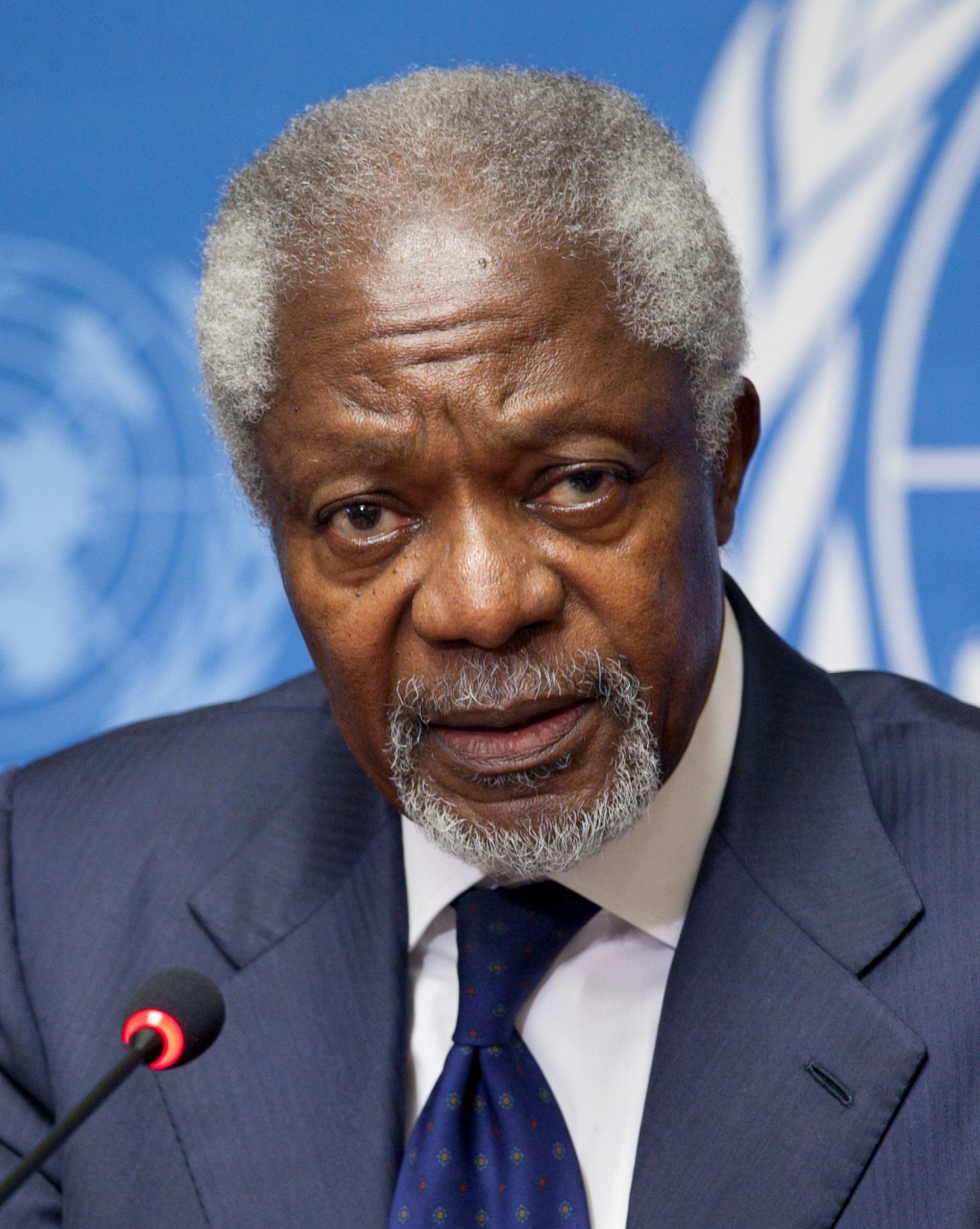
"Peace is not merely the absence of conflict, but the presence of justice, of respect, and of mutual understanding. It is the foundation upon which we can build the future we all deserve—a future of dignity, opportunity, and hope."
-
Brief Points of Interest
~ Kofi Annan
In the corridors of global power, where decisions often eclipse compassion, Kofi Annan stood as a beacon of quiet strength and unwavering humanity. Born in Kumasi, Ghana, in 1938, he grew up in a world on the brink of seismic change, where the sun was setting on colonialism, and the promise of African self-determination was dawning. Annan’s journey—from a young boy in a newly independent Ghana to the first Black African Secretary-General of the United Nations—embodied the ideals of a united, equitable, and peaceful world.
Annan’s tenure at the United Nations (1997–2006) was nothing short of transformative. He believed in a United Nations that was not just a gathering of nations but a sanctuary for humanity. Under his leadership, the UN became more proactive, emphasizing the need for collective action against global crises. He championed the Millennium Development Goals (MDGs), a blueprint for addressing poverty, hunger, and disease, and pushed for reforms to make the institution more responsive and transparent.
His greatest strength lay in his ability to navigate the minefields of international diplomacy with grace. Annan brokered peace deals in regions scarred by conflict, from East Timor to the Balkans, and stood firm during crises like the U.S.-led invasion of Iraq, advocating for multilateralism over unilateral action. He knew the weight of his words and used them to challenge the world’s conscience, often asking uncomfortable but necessary questions.
Yet, Annan’s achievements were not without controversy. The Rwandan Genocide of 1994, which occurred while he was head of UN peacekeeping operations, haunted his legacy. Annan later admitted that the UN—and he personally—could have done more to prevent the atrocities. This acknowledgment was not a retreat but a reflection of his humility and commitment to learning from failure. It was this honesty that made him a figure of enduring respect.
Beyond the boardrooms and summits, Annan was a Pan-Africanist at heart. He envisioned an Africa that was not merely a recipient of aid but a contributor to global progress. His advocacy for African-led solutions to African problems inspired a generation of leaders. “Without progress in Africa,” he often said, “there can be no real progress for humanity.”
Annan’s legacy extended far beyond his UN tenure. Through the Kofi Annan Foundation, he continued to champion peace, democracy, and sustainable development. Whether mediating post-election crises in Kenya or mentoring young African leaders, Annan remained steadfast in his belief that dialogue and understanding could bridge the deepest divides.
Kofi Annan was more than a diplomat; he was a moral compass in a tumultuous world. He taught us that leadership is not about wielding power but about empowering others. As a Pan-Africanist par excellence, he carried the hopes of a continent and the aspirations of a planet. His life was a testament to the idea that the world’s greatest challenges require not just great minds but great hearts.
Pelé
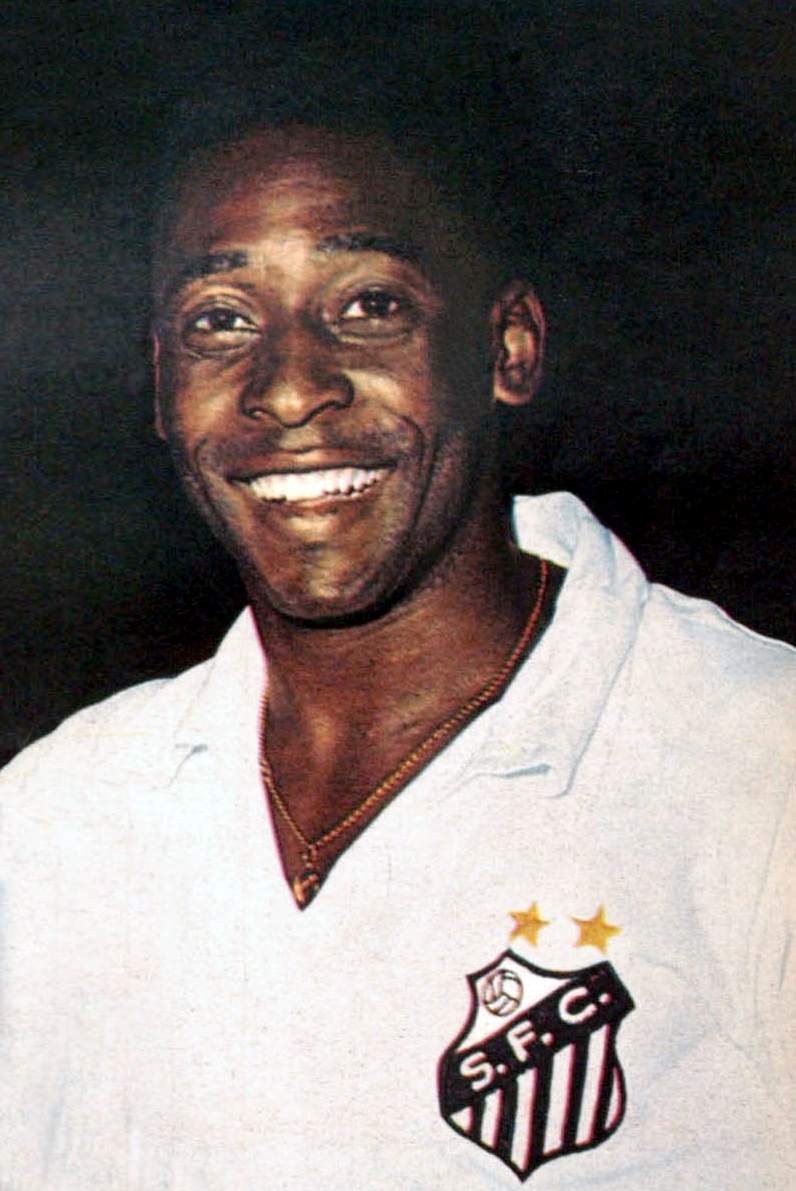
"Football is a game that transcends borders, bringing people together with a common goal. The real victory is not in lifting trophies, but in inspiring others to believe in themselves, to strive for greatness, and to play with passion."
-
Brief Points Of Interest
~ Pelé
In the pantheon of global football, Pelé remains unmatched—a monarch who ruled not with scepters or thrones but with a football at his feet. Born Edson Arantes do Nascimento in 1940 in the small Brazilian town of Três Corações, his ascent from a boy kicking rolled-up socks to the pinnacle of world football is the stuff of legend. Yet, Pelé’s story extends far beyond the confines of a football pitch; it is a tale of global unity, cultural transcendence, and a life dedicated to humanity.
Pelé’s brilliance burst onto the world stage at the 1958 FIFA World Cup in Sweden. At just 17, he scored six goals, including a hat-trick in the semi-final and two more in the final. Brazil lifted its first World Cup, and a star was born. To watch Pelé play was to witness poetry in motion—a blend of speed, skill, and instinct. He turned football into an art form, each movement a masterpiece. His 1,283 goals in 1,367 games remain an almost mythical achievement, etched in the annals of sporting history.
But Pelé was not merely a footballer; he was an ambassador. At a time when Brazil was grappling with political upheavals and poverty, Pelé became a unifying force. He embodied the spirit of *joga bonito*—the beautiful game—and showed the world that Brazil was more than its struggles; it was a land of immense talent and passion. His very presence elevated football into a global language, one that transcended borders, race, and class.
Pelé’s influence went beyond the game. As a Black athlete in a racially divided world, he became a symbol of resilience and possibility. His success challenged stereotypes and inspired millions, particularly in the Global South, where he was seen not just as a footballer but as a beacon of hope. He brought smiles to countries torn by war, playing in front of crowds that saw him as a symbol of peace and joy. In 1967, during Nigeria's civil war, a 48-hour ceasefire was declared so both sides could watch Pelé play—a testament to his unparalleled power to unite.
After hanging up his boots, Pelé used his platform to champion causes close to his heart. He worked tirelessly as a UNESCO Goodwill Ambassador, advocating for education and children’s rights. He believed in the transformative power of sport, not just as entertainment but as a tool for social change. His humility, despite his global fame, was a reminder that greatness is best measured by the lives one touches.
Pelé’s legacy is eternal. He was more than a footballer; he was a bridge between nations, a symbol of what humanity could achieve when driven by passion and purpose. He showed the world that football could be more than a game—it could be a force for unity, a medium for change, and a canvas for joy. Pelé will forever be the king, not just of football, but of hearts everywhere.
George Weah
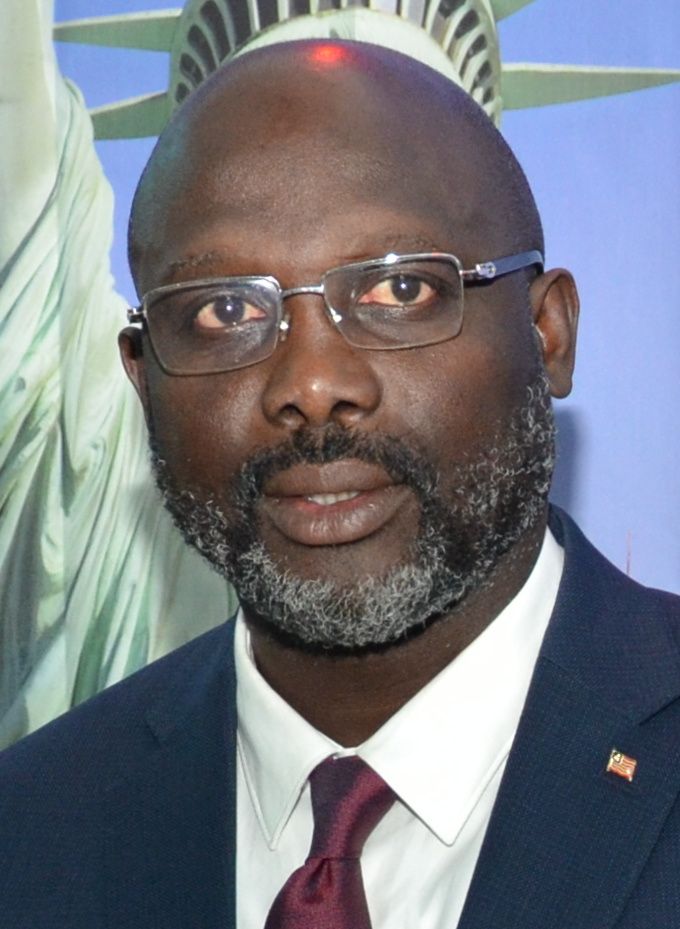
"Success in life is not about personal accolades, but about lifting others from despair and providing them with the tools to succeed. As leaders, we are tasked with creating opportunities that allow our people to dream, to aspire, and to achieve."
-
Brief Points of Interest
~ George Weah
George Weah’s story unfolds like an epic—a tale of talent, determination, and an unyielding commitment to his people. Born in the slums of Clara Town, Monrovia, in 1966, Weah's beginnings were modest, his life shaped by the rhythms of struggle and survival. Yet, in those narrow streets, where football was both a game and an escape, a dream was born that would catapult him to global stardom, political prominence, and Pan-African advocacy.
Weah’s football journey began on dirt fields, where his raw talent earned him the moniker “King George.” He was scouted by Arsène Wenger, who brought him to Europe in 1988, marking the start of a career that would redefine African representation in global football. Weah played with unmatched elegance—powerful, swift, and visionary. From AS Monaco to Paris Saint-Germain and AC Milan, he dazzled, collecting accolades that crowned him the first and only African to win the Ballon d’Or in 1995.
But Weah’s achievements transcended trophies. On the pitch, he shattered stereotypes, proving that African players could dominate the world stage. He carried the hopes of a continent, inspiring young Africans to see football as a gateway to global recognition. His charisma made him more than an athlete; he became a symbol of African excellence, someone who showed that roots in hardship could blossom into greatness.
Off the field, Weah’s humanity shone just as brightly. As Liberia descended into civil war in the 1990s, Weah used his platform to advocate for peace. While others distanced themselves from the conflict, he became an unwavering voice for his people, channeling his resources to provide aid to those displaced by violence. His philanthropy extended to scholarships, hospitals, and community projects—a testament to his belief that success meant nothing if it did not uplift others.
In 2018, Weah made an unprecedented leap from football to politics, becoming Liberia’s president. His campaign was a grassroots movement, rooted in the struggles of the common Liberian. Critics questioned his inexperience, but his vision was clear: to rebuild a nation scarred by war and poverty. Weah tackled issues of education, youth empowerment, and economic reform, embodying the same tenacity he once showed on the football field. His leadership, though not without challenges, remains deeply tied to his desire to elevate Liberia and inspire a new era of African leadership.
Weah’s influence extends beyond Liberia’s borders. As a Pan-Africanist, he champions African unity and self-reliance, often emphasizing that the continent’s greatest resource is its people. His journey is a reminder of the interconnectedness of African struggles and triumphs. To him, every goal scored, every policy implemented, and every humanitarian effort undertaken is part of a larger mission to showcase Africa’s resilience and potential.
George Weah is not merely a footballer turned politician; he is a bridge between worlds, a testament to the boundless possibilities of the African spirit. His life encapsulates the ethos of Pan-Africanism—a commitment to lifting the continent and its people, not through grand speeches, but through tangible acts of hope and transformation. In George Weah, Africa finds not just a hero, but a champion of its aspirations.
Bassirou Diomaye Faye
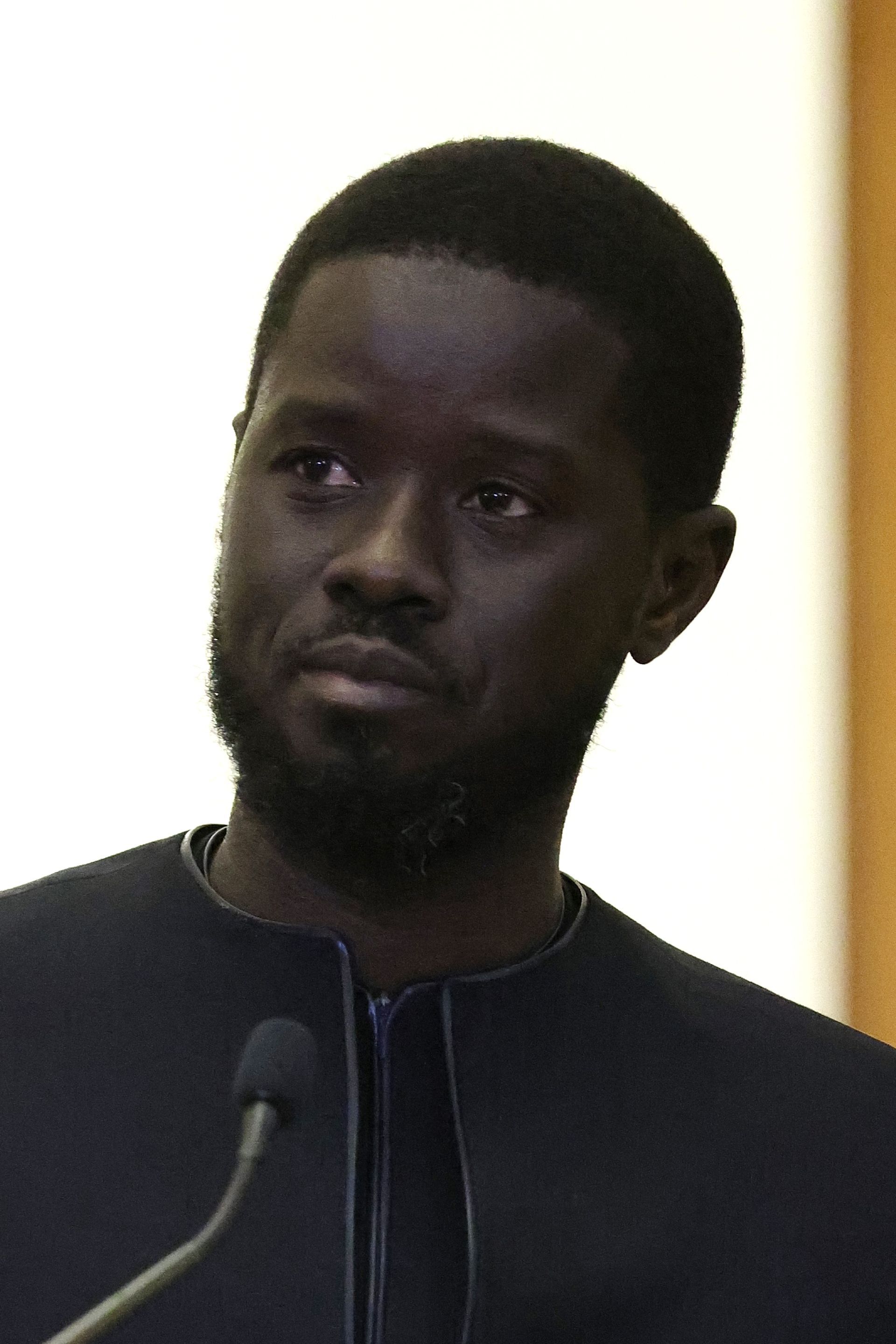
Photo Owner: EUROPEAN UNION
"The strength of a nation is not measured by the wealth of its leaders, but by the prosperity of its people. We must build an economy that is inclusive, that creates opportunities for all, and that ensures sustainable development for generations to come."
-
Brief Points Of Interest
~ Bassirou Diomaye Faye
Bassirou Diomaye Faye’s rise to the presidency of Senegal is a story of quiet determination and transformative leadership, one that transcends the ordinary boundaries of politics. Born in the bustling streets of Kaolack, Faye’s early life was rooted in a rich cultural heritage and an unshakable belief in the power of education and community. His journey from a modest upbringing to becoming an African icon is a tale that resonates deeply with the aspirations of a continent yearning for progress.
Educated in Senegal and abroad, Faye’s worldview was shaped by a dual identity: a deep pride in African traditions and an acute understanding of global systems. He pursued economics and public policy, fields that would later define his career. But his true calling was always clear—to serve. Early in his career, Faye became an advocate for economic equity and youth empowerment, recognizing that the heart of Senegal’s potential lay in its people, particularly its vibrant and ambitious younger generation.
Faye’s foray into politics was not marked by grand promises but by a grounded, almost humble approach to governance. As a reformer, he built his reputation on integrity and results, challenging entrenched systems of corruption and inefficiency. His work as an economic strategist earned him accolades, but it was his connection to the people—his ability to listen and to inspire—that set him apart. By the time he assumed Senegal’s presidency, Faye had already become a symbol of hope for many, an embodiment of what modern African leadership could achieve.
Under his leadership, Senegal experienced a renaissance. Faye championed policies that revitalized the agricultural sector, transforming the nation into a model of food security. His infrastructure projects linked remote communities to urban centers, creating a web of economic opportunity that bridged longstanding divides. Education and healthcare, once neglected, became pillars of his administration, with initiatives that prioritized accessibility and innovation.
Yet, Faye’s impact reaches beyond Senegal. As a Pan-Africanist, he has been a leading voice in fostering unity and collaboration across the continent. He has pushed for African-led solutions to issues like climate change, economic instability, and regional conflict, advocating for a collective vision of prosperity. To Faye, Senegal’s success is intrinsically tied to Africa’s renaissance, a belief that informs every policy and every partnership.
Bassirou Diomaye Faye’s legacy is still unfolding, but his influence is already profound. He is not just a president but a visionary—a leader whose achievements transcend the political realm to touch the lives of everyday Africans. His story is a testament to the power of thoughtful, compassionate leadership, and a reminder that Africa’s future lies in the hands of those who dare to reimagine it.
Paul Kagame
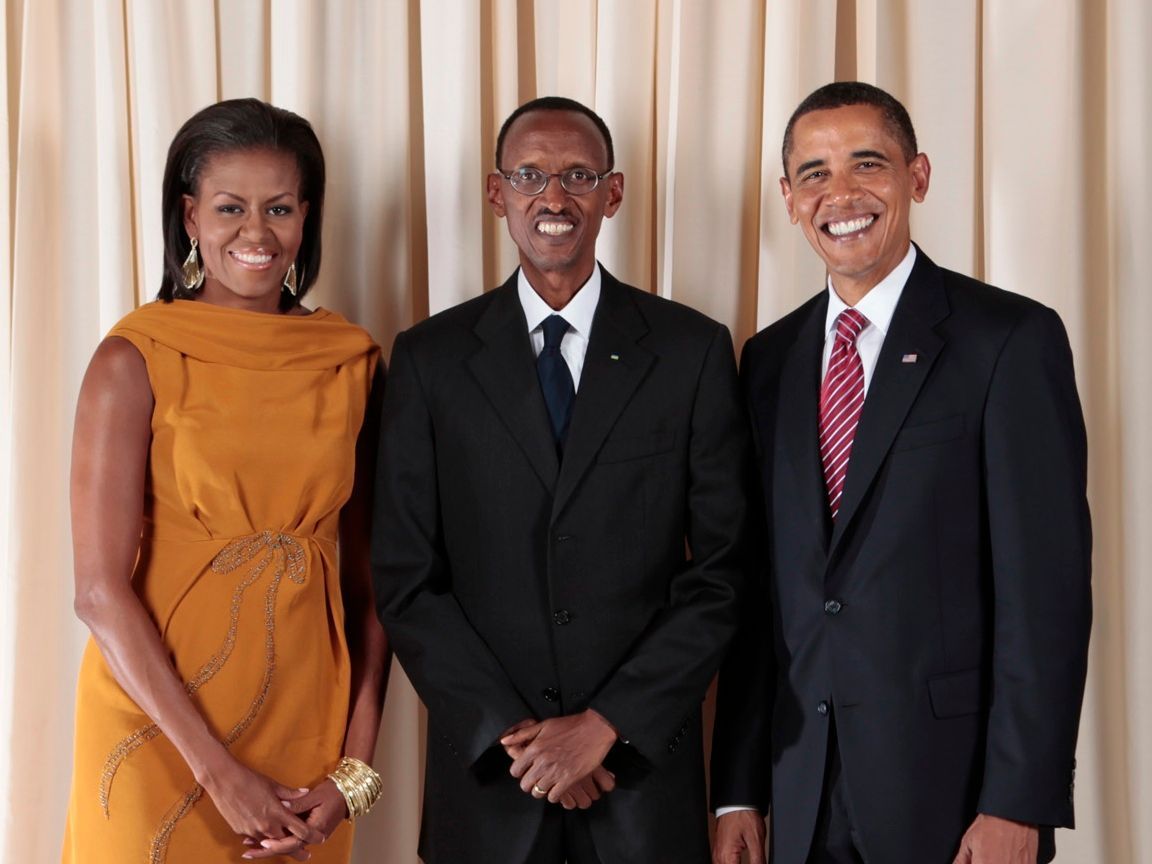
"A nation's strength lies not in its past, but in its ability to transform, adapt, and grow. We must invest in the future with a relentless focus on education, innovation, and the well-being of every citizen"
-
Brief Points of Interest
~ Paul Kagame
Paul Kagame’s name carries the weight of a nation’s rebirth, a story of resilience and transformation that defies the ordinary boundaries of politics. Born in 1957 in the shadows of exile, Kagame’s early years were shaped by displacement and the harsh realities of being a refugee. Yet, those formative years—rooted in struggle—would forge the steel of a leader destined to rewrite Rwanda’s narrative and inspire a continent.
The horrors of the 1994 Rwandan Genocide left the nation in ruins—an unthinkable tragedy that claimed nearly a million lives and shattered the country’s social fabric. Kagame, leading the Rwandan Patriotic Front (RPF), emerged as the figure who stopped the carnage and offered a vision of hope amidst the ashes. To many, he was not just a military strategist but a moral force, intent on uniting a country long divided by historical grievances.
As Rwanda’s president, Kagame has become synonymous with pragmatic leadership and a relentless drive for progress. Under his stewardship, Rwanda transformed from a symbol of despair into a beacon of African possibility. Kigali, once a city scarred by violence, now stands as one of the cleanest and safest capitals in the world—a testament to Kagame’s insistence on discipline and order.
Kagame’s achievements transcend infrastructure and economic growth; they are deeply rooted in his vision for a cohesive society. His policies emphasize reconciliation, eschewing ethnic divisions in favor of a unified Rwandan identity. His leadership established gacaca courts, a community-based justice system, allowing the nation to confront its past while rebuilding trust among its people.
Economically, Kagame has positioned Rwanda as a rising star in Africa. His investments in technology and innovation have earned the country the nickname “the Singapore of Africa.” Rwanda’s strides in healthcare, gender equality, and education are equally groundbreaking. Women hold over 60% of parliamentary seats, a global record that reflects Kagame’s belief in inclusive governance as a cornerstone of national development.
But Kagame’s influence extends far beyond Rwanda. As a Pan-Africanist, he has been a vocal advocate for self-reliance, challenging the continent to shed dependency on foreign aid. Under his chairmanship, the African Union initiated sweeping reforms, including the African Continental Free Trade Agreement, aimed at fostering economic integration across the continent.
Kagame’s legacy is not without critique—his governance style has been described as authoritarian by some. Yet, even his critics acknowledge his unparalleled ability to deliver results. Kagame’s story is not one of perfection, but of an unyielding commitment to the principles of dignity, progress, and self-determination.
Paul Kagame is more than a president; he is an architect—a leader who took a fractured nation and built a new foundation. His life’s work is a testament to what is possible when vision and action converge, inspiring a continent to reimagine its future.
Ibrahim Traoré

"In a time of crisis, it is the strength of our unity and resolve that will see us through. The future of our nation depends not on the wounds of the past, but on our collective will to rebuild and create a better tomorrow."
-
Brief Points Of Interest
~ Ibrahim Traoré
In the dusty streets of Ouagadougou, where history is often forged in fire and resilience, a new chapter began with the rise of Ibrahim Traoré. At just 34 years old, Traoré became the world’s youngest leader when he assumed the role of Burkina Faso’s interim president in 2022. But his story is not merely one of youth or political ascension—it is a tale of defiance, determination, and the audacity to reimagine a nation struggling under the weight of insecurity and external influence.
Born in 1988 in Bondokuy, a rural town that mirrors the heartbeat of Burkina Faso’s agrarian spirit, Traoré’s journey is deeply rooted in the everyday struggles of his people. As a young man, he pursued chemistry, a discipline that taught him precision and patience, but his true calling lay elsewhere. Drawn to the military, he rose through the ranks not as a figure of privilege, but as a soldier committed to the ideals of justice and sovereignty.
By the time Traoré led the September 2022 coup that ousted a government perceived as ineffectual against escalating Islamist insurgencies, his popularity had already swelled among citizens disillusioned by years of insecurity. Traoré framed his actions not as a grab for power but as a response to the cries of a nation yearning for stability and independence. To many, he became a symbol of resistance—a David against the Goliath of exploitation and foreign interference.
Under Traoré’s leadership, Burkina Faso’s narrative began to shift. His administration prioritized the empowerment of local communities, focusing on grassroots security initiatives and reducing reliance on foreign military aid. Traoré championed policies that aimed to reclaim control over the country’s vast mineral resources, ensuring that wealth generated from gold and other exports would benefit ordinary Burkinabé citizens.
Yet, Traoré’s vision extends beyond Burkina Faso’s borders. As a Pan-Africanist, he has called for a united and self-reliant Africa, free from the remnants of colonial subjugation. His speeches—delivered with a mix of fiery conviction and youthful idealism—resonate with a generation disillusioned by traditional politics but inspired by the dream of African sovereignty.
Critics often point to the challenges of Traoré’s governance, from navigating international diplomacy to maintaining unity in a politically volatile region. But his supporters see a leader unafraid to confront systemic issues head-on, a man willing to risk his career and reputation for the dignity of his nation.
Ibrahim Traoré is not just the interim leader of Burkina Faso; he is a symbol of hope and defiance in a continent striving to reclaim its destiny. His story is one of a young man who dared to listen to his people and act, reshaping what it means to lead in modern Africa. In Traoré, the Burkinabé have found not just a leader but a reflection of their own aspirations for sovereignty, justice, and unity.
Mo Ibrahim
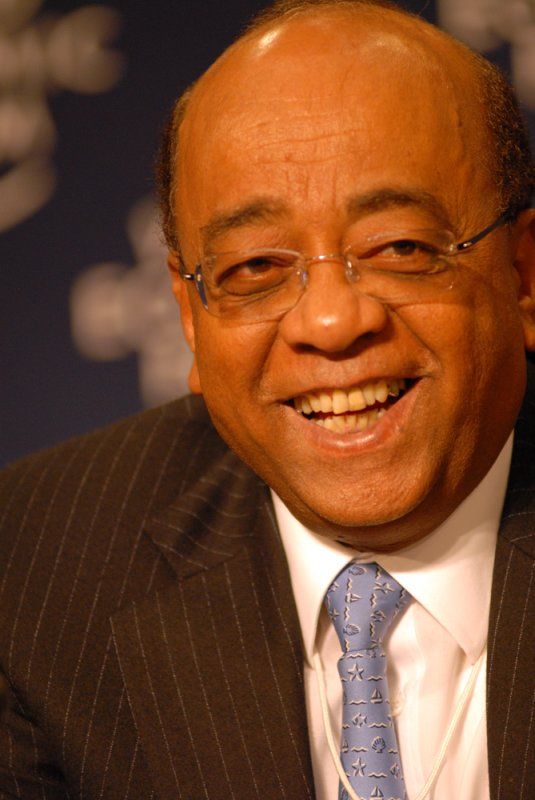
Photo Author - World Economic Forum (Cologny Switzerland)
"Leadership is about more than just power—it’s about service. True leaders must commit to empowering others, promoting integrity, and ensuring that the systems they build create lasting progress and justice for future generations."
-
Brief Points of Interest
~ Mo Ibrahim
To tell the story of Mo Ibrahim is to delve into the tale of a man who saw the vast expanse of Africa not as a problem to be solved, but as a promise to be fulfilled. Born in Sudan in 1946, Ibrahim’s journey from a modest family in Khartoum to becoming one of Africa’s most influential figures is a narrative of intellect, vision, and an unwavering commitment to the continent’s potential.
Mo Ibrahim first rose to prominence in the telecommunications world. As an engineer and visionary entrepreneur, he founded Celtel International, a company that brought mobile connectivity to some of Africa’s most remote and underserved regions. This was more than just a business venture; it was a revolution that linked millions to the world, bridging gaps in communication and commerce. When Ibrahim sold Celtel for $3.4 billion in 2005, his success became a testament to Africa’s capacity to innovate and thrive when given the right tools and opportunities.
But Mo Ibrahim’s story does not rest on the laurels of business triumphs. Instead, he turned his gaze to the arena of governance and accountability—areas he believed were pivotal for Africa’s transformation. In 2006, he established the Mo Ibrahim Foundation, an organization dedicated to promoting good governance across the continent. At the heart of the foundation is the Ibrahim Index of African Governance, a tool that measures the performance of African governments, providing transparency and holding leaders accountable.
The Mo Ibrahim Prize for Achievement in African Leadership, often dubbed the “Nobel Prize for Africa,” is another remarkable innovation. Awarding $5 million over ten years to African leaders who demonstrate excellence in governance and willingly step down after their terms, the prize challenges the stereotype of power-hungry leadership in Africa. By celebrating those who govern with integrity, Ibrahim not only sets a standard but also inspires future generations of leaders.
Beyond governance, Ibrahim’s philanthropy extends to health, education, and youth empowerment. His foundation convenes some of the brightest minds to discuss Africa’s challenges and opportunities, creating a platform where solutions are born and collaborations thrive.
Ibrahim’s vision is deeply Pan-African. He sees the continent’s diversity as its strength and believes in a united Africa driven by innovation, self-reliance, and ethical leadership. His straightforward manner and piercing insights cut through bureaucratic inertia, earning him respect on a global scale.
Mo Ibrahim is not just a billionaire or a philanthropist; he is a disruptor of old narratives and a builder of new pathways. In a world that often underestimates Africa, he stands as a reminder of what can be achieved when intellect, resources, and an unshakable belief in the continent converge. His legacy transcends politics and philanthropy—it is a call to action for a brighter, self-determined African future.
Leopold Senghor

Photo Author - UNESCO/ Dominique Roger
"Culture is the soul of a people, and it is through understanding and celebrating our cultural identities that we can truly connect with others. It is our collective heritage that defines who we are and guides the course of our future."
-
Brief Points Of Interest
~ Leopold Senghor
Leopold Sedar Senghor was more than just a politician or poet; he was a cultural architect whose vision shaped the heart and mind of post-colonial Africa. Born in 1906 in the town of Joal in Senegal, Senghor grew up under French colonial rule, but it was his journey beyond the confines of Africa that allowed him to craft an intellectual framework for a new African identity—one that celebrated both African heritage and universal humanism.
Senghor’s academic prowess took him to France, where he studied at the prestigious École Normale Supérieure and earned degrees in philosophy. It was during these years that his worldview began to take shape, influenced by both the intellectual currents of Europe and the ancestral wisdom of Africa. This dual perspective would be central to his philosophy of *Negritude*—a literary and cultural movement he co-founded that sought to affirm the value of African culture in the face of colonial suppression. Senghor's belief was simple yet profound: Africa’s beauty, creativity, and intellectual vitality should not be dismissed by the West but celebrated as integral to the human experience.
As a poet, Senghor’s words resonated with the force of conviction. His verse reflected the rhythm and spirituality of his homeland, drawing on African traditions to engage with themes of love, freedom, and dignity. But his poetry was not merely personal—it was political. In his verses, he placed the African experience at the center of global consciousness, insisting that the continent’s heritage, history, and contribution to civilization be acknowledged. Senghor’s poetry was a rallying cry, a lyrical resistance against colonial erasure.
Senghor's transition into politics saw him rise to the presidency of Senegal in 1960, at a time when African nations were asserting their independence. His political philosophy was rooted in his belief in the integration of African values with modernity. Under his leadership, Senegal embraced the ideals of democratic socialism, promoting education, economic development, and cultural pride. Senghor’s government laid the groundwork for Senegal’s reputation as a stable, democratic nation in the post-colonial period.
But perhaps Senghor’s greatest achievement was his role as a bridge-builder. His leadership in the Organisation of African Unity (OAU) and his advocacy for Pan-Africanism positioned him as a prominent figure in the quest for unity and collaboration among African nations. He saw the cultural exchange between Africa and the West not as an act of submission but of dialogue—where each side could contribute to a more enlightened future.
Leopold Senghor’s legacy extends beyond politics and literature; it lies in the depth of his thought, his ability to merge culture and politics, and his vision of an Africa proud of its past while ambitiously engaged with the future. He remains a beacon for those who understand that the strength of a nation lies not only in its material resources but in its ability to honor and elevate the humanity that binds us all.
Cheikh Anta Diop
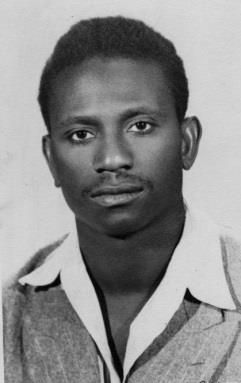
"To know your history is to understand your place in the world and your potential for greatness. Our strength lies in our cultural heritage, and it is through the preservation and elevation of this knowledge that we can create a future that honors our ancestors."
-
Brief Points of Interest
~ Cheikh Anta Diop
Cheikh Anta Diop was a man who saw Africa not as a continent shackled by history, but as a land rich with untapped knowledge, waiting to be rediscovered. Born in 1923 in Senegal, Diop’s intellectual journey took him to Paris, where he challenged the very foundations of how history, culture, and identity were constructed—particularly when it came to Africa. For Diop, the African past was not something to be forgotten or ignored; it was a source of pride, dignity, and a blueprint for the continent’s future.
Diop’s contributions to African thought were groundbreaking. A historian, anthropologist, and physicist, he became one of the foremost advocates for the theory that ancient Egyptian civilization was deeply African, a concept that would forever change the narrative around African identity. At a time when colonialism had propagated the myth that Africa was the “dark continent,” devoid of its own intellectual achievements, Diop fought to illuminate its past. His work on Egypt, particularly his book *The African Origin of Civilization: Myth or Reality*, argued that Egypt was the cradle of civilization and that the contributions of its people were central to the development of human history. This was not just an academic pursuit; it was a political act of reclamation.
But Diop’s ideas went far beyond Egyptology. He sought to prove that Africa’s rich history and culture were integral to the broader fabric of human civilization. In his work, he emphasized the scientific contributions of African societies, challenging the racist ideologies that had sought to diminish the intellectual capacity of African peoples. He also advocated for the use of the African languages in the education system, asserting that language was central to understanding one’s identity and heritage.
As a Pan-Africanist, Diop’s vision for Africa was one of unity and self-determination. He understood that the continent’s path forward lay not in mimicking Western models but in harnessing its own intellectual, cultural, and historical resources. Diop’s commitment to this vision was unwavering. He believed that the future of Africa rested in its ability to reclaim its past, acknowledge its contributions to world history, and chart its own course in the modern world.
Cheikh Anta Diop’s work transcends the boundaries of academia. He was not just a scholar; he was a revolutionary thinker, a man whose ideas continue to shape how we view Africa today. In a world that often underestimates the intellectual capacity of Africa, Diop stands as a towering figure, a reminder that Africa’s greatness lies not in the present alone, but in the history that has yet to be fully recognised and celebrated. His legacy is one of empowerment—a testament to the power of knowledge, the importance of reclaiming one’s history, and the endless possibilities when a people dare to believe in their own potential.
Alpha Oumar Konaré
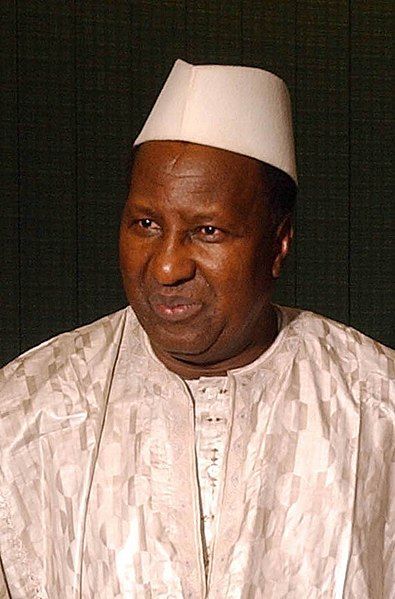
Photo Author -FABIO POZZOBOM - Agéncia Brazil
"A true leader must serve the people, not themselves. Leadership is about commitment to the well-being of every citizen, fostering unity, and creating systems that ensure no one is left behind in the pursuit of national progress.”
-
Brief Points Of Interest
~ Alpha Oumar Konaré
Alpha Oumar Konaré’s legacy is one of transformation and dedication to the future of Africa. Born in 1946 in the heart of Mali, Konaré’s path was one that straddled both the political and intellectual spheres, seeking not just to lead, but to guide the continent into a new era. As the President of Mali from 1992 to 2002, Konaré exemplified the kind of leadership that is rare in the modern African political landscape—a blend of pragmatism, vision, and unwavering commitment to the principles of democracy and Pan-Africanism.
Konaré’s ascent into the political sphere came at a time when Mali, like much of Africa, was struggling to redefine itself post-colonization. He was not a product of the old guard of African leaders who were steeped in the remnants of colonialism. Instead, he emerged from the wave of reformists who believed that Africa’s future would not be shaped by external forces but by Africans themselves. His rise to the presidency marked the end of decades of authoritarian rule and heralded a new era of democratic governance. He introduced multi-party politics and began the long process of rebuilding Mali’s political infrastructure, bringing stability to a nation that had seen its share of turbulence.
However, Konaré’s influence extended far beyond Mali’s borders. As the Chairperson of the African Union Commission from 2003 to 2008, Konaré’s vision for Africa was pan-Africanist in the truest sense. He worked tirelessly to strengthen the African Union, an institution that had struggled with its relevance and effectiveness in the post-colonial era. Under his leadership, the African Union became a more dynamic force for political and economic cooperation. Konaré sought to unite Africa not just through words but through tangible action, championing causes that ranged from peacekeeping missions to regional economic integration.
Konaré’s work also had a cultural dimension. He was an advocate for African unity, not just politically, but in every facet of society. He believed in the continent’s cultural strength and sought to empower African nations to harness their traditions, languages, and arts as a means of asserting their place in the global order.
But what truly defined Alpha Oumar Konaré’s leadership was his integrity. In a political environment often rife with corruption and inefficiency, Konaré stood out as a man of principle. His commitment to transparency and accountability set him apart from many of his contemporaries. His leadership was about service to the people, rather than power for its own sake.
Alpha Oumar Konaré’s story is one of a man who sought to redefine what African leadership could be—visionary, pragmatic, and deeply rooted in the values of democracy and Pan-African unity. His achievements continue to inspire a new generation of African leaders who understand that the future of the continent lies not in looking outward for solutions, but in looking inward, with pride and purpose.
Professor Wole Soyinka
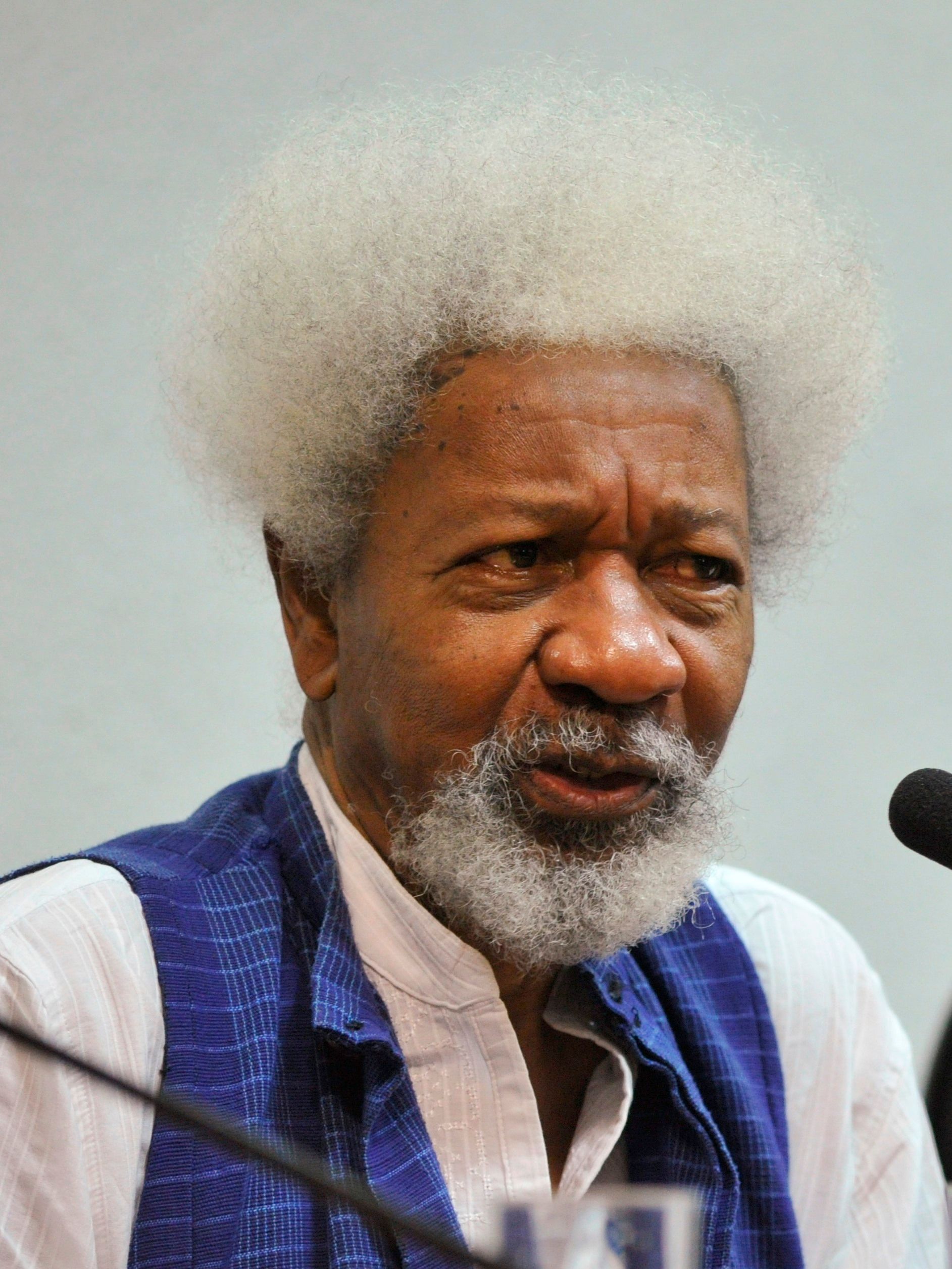
Photo Author - Geraldo Mangela/Agéncia Senado
"Education is the one tool with which a person can sharpen their mind, and it is through education that individuals gain the ability to change the status quo. But beyond education, it is an inner consciousness of the human condition that makes a person resilient in the face of oppression and injustice.”
-
Brief Points of Interest
~ Professor Wole Soyinka
In the annals of African intellectual history, few names shine as brightly as Wole Soyinka. A literary titan, a political activist, and a relentless champion of justice, Soyinka’s contributions to the world transcend the confines of literature and politics. His life and work are not merely an exploration of the African experience; they are a testament to the power of the written word, the enduring pursuit of freedom, and the moral courage to stand against oppression.
Born in Nigeria in 1934, Soyinka emerged as one of the continent’s foremost voices, known for his erudition, intellectual prowess, and unflinching commitment to confronting tyranny. His early works, including the landmark play *A Dance of the Forests*, helped to establish him as a groundbreaking playwright who merged traditional African forms with Western dramatic techniques, creating works that spoke to the complex social and political fabric of post-colonial Africa. But Soyinka’s influence was not confined to the stage or the page. His writing, be it in poetry, prose, or drama, has always served as a tool for social critique, holding a mirror up to the power structures that sought to stifle creativity, truth, and justice.
Soyinka’s role in politics is inseparable from his literary career. As an outspoken critic of Nigeria’s military dictatorships, he did not shy away from risking his personal safety for the greater good. In 1965, his impassioned opposition to the military government led to his imprisonment, a period that would see him endure the harsh realities of solitary confinement. However, Soyinka’s spirit was never broken. He continued to write from prison, sending out works that rallied the resistance to political oppression and violence. His life itself became a living narrative of defiance, proving that a writer’s pen is as potent as any weapon in the struggle for justice.
In 1986, Wole Soyinka became the first African laureate of the Nobel Prize in Literature, a recognition that elevated his global stature and cemented his place in the world’s intellectual pantheon. Yet, for Soyinka, the accolades were never the end goal. His writing has always been driven by a profound sense of responsibility to his people, a desire to challenge and rewrite the narratives imposed upon Africa by colonial powers, and an unwavering commitment to the ideals of human dignity, freedom, and equality.
Soyinka’s work extends beyond Nigeria and Africa. His voice has echoed in the halls of the United Nations, and his interventions have shaped global discussions on democracy, human rights, and the role of the artist in society. Through his life’s work, Soyinka has become a living embodiment of the Pan-African ideal, a figure whose intellectual courage and moral authority continue to inspire generations.
Wole Soyinka’s legacy is not just a catalogue of literary achievements or political victories. It is a moral compass, a relentless quest for truth, and a testament to the power of resistance. In a world too often mired in conflict and silence, Soyinka remains a beacon for those who believe in the transformative power of art and the unwavering pursuit of justice.
Sir Lewis Hamilton

Photo Author - flikr.com/photos
"To be the best, you must push beyond your limits, not just for yourself but for others. The track is a metaphor for life—it’s about perseverance, determination, and a refusal to accept anything less than greatness.”
-
Brief Points Of Interest
~ Sir Lewis Hamilton
Sir Lewis Hamilton is not just a name synonymous with victory in Formula 1; it is a beacon of resilience, activism, and redefined excellence. Born in 1985 in Stevenage, England, Hamilton’s journey from the son of an immigrant father to the most successful driver in Formula 1 history is a story that transcends the racetrack. His seven World Championships and numerous accolades in motorsport make him a global legend, but it is his unwavering commitment to use his platform for social change that sets him apart as an icon.
In a sport long dominated by elite, white Europeans, Hamilton entered Formula 1 as a young, mixed-race driver in a world that was not prepared for someone like him. He not only conquered the track with unmatched speed and precision, but he also dismantled the barriers that often confined athletes to the periphery of larger conversations. His achievements on the track are unparalleled, yet it is his courage to speak out against racial injustice and inequality that defines him as a modern-day leader.
Hamilton’s candidness about the challenges he faced growing up in a sport that was predominantly white and affluent is a powerful statement about resilience. His ascent to the top of Formula 1 was a triumph against the odds—against prejudice, exclusion, and the notion that success was reserved for a particular race or class. He became a symbol of possibility, particularly for Black youth, showing them that greatness was not bound by circumstance.
Beyond his motorsport achievements, Hamilton has emerged as one of the most outspoken advocates for racial justice. His activism, deeply rooted in the Black Lives Matter movement, has seen him challenge the structures of power both within and outside of the sport. He has used his status to highlight the lack of diversity in motorsport, establishing the Hamilton Commission to create pathways for marginalized communities to enter the industry. Hamilton has also called out racism within the sport, demanding accountability from those in positions of power.
Yet his activism does not end with racial justice. Hamilton has dedicated himself to environmental causes as well. His public embrace of a vegan lifestyle, along with his efforts to promote sustainable practices within the sport, underscores his commitment to a healthier planet.
Sir Lewis Hamilton is much more than a Formula 1 champion. He is a voice for change, a tireless advocate for inclusivity, and a man who believes that sport can be a powerful tool for social transformation. His legacy is one of excellence, not only in racing but in reshaping the very fabric of society. Through his triumphs on the track and his activism off it, he remains an African icon whose influence extends far beyond the boundaries of motorsport.
Jennifer Hudson

"Never let anyone define your worth but yourself. The road to success is never easy, but it is through our challenges that we find our strength, our purpose, and our true selves. Embrace your journey, and let your dreams take flight."
-
Brief Points of Interest
~ Jennifer Hudson
Jennifer Hudson’s rise to fame is a story that blends raw talent, perseverance, and a commitment to purpose. In a world where the entertainment industry often prizes perfection, Hudson’s journey stands out not only for her musical and acting prowess but for the authenticity and grace with which she has navigated both her personal and professional lives. From the small stages of Chicago to the grand spotlight of Hollywood, Hudson has proven that greatness is not just about the accolades, but the heart and purpose behind the performance.
Born in Chicago in 1981, Hudson’s early life was defined by the rhythms of gospel music and the warmth of a tight-knit family. Her talent was undeniable from the start, but her breakthrough moment came in 2004, when she made an unforgettable appearance on “American Idol.” Though she did not win the competition, it was the beginning of a meteoric rise. Her distinguished propulsion has seen her become the 17th EGOT - Emmy, Grammy, Oscar and Tony Awards recipient!! The two time Grammy awards winner; already has a legacy, far greater than anyone else could have imagined!
Hudson’s first major film role, as Effie White in *Dreamgirls*, was a revelation. Her performance, marked by both vulnerability and strength, earned her the Academy Award for Best Supporting Actress. It was a victory not only for Hudson but for anyone who had ever been told they didn’t belong or weren’t enough. She gave the world a voice that was unapologetically powerful and full of emotion, a voice that resonated long after the final notes faded.
Yet Hudson’s story is not just one of professional triumph. It is one of personal resilience and philanthropy. Despite her success, Hudson has never lost touch with the roots that shaped her—roots deeply embedded in family, faith, and community. After enduring unspeakable tragedy with the loss of her mother, brother, and nephew in 2008, Hudson emerged as a symbol of strength and grace, using her platform to raise awareness about violence and the importance of family.
Her philanthropic work mirrors this ethos. Through her foundation, Hudson has been a tireless advocate for young women and children, particularly those in underserved communities. She has used her platform not only to entertain but to uplift, proving that her impact goes far beyond the stage or screen.
Jennifer Hudson is a modern-day Renaissance woman—an artist who has mastered the art of balancing fame with integrity, talent with purpose. Her journey is one of deep empathy and unwavering resilience, transcending entertainment to touch lives across the globe. As a singer, actress, and philanthropist, Jennifer Hudson is not just an African-American icon; she is a beacon of strength and hope for us all.
Shirley Chisholm
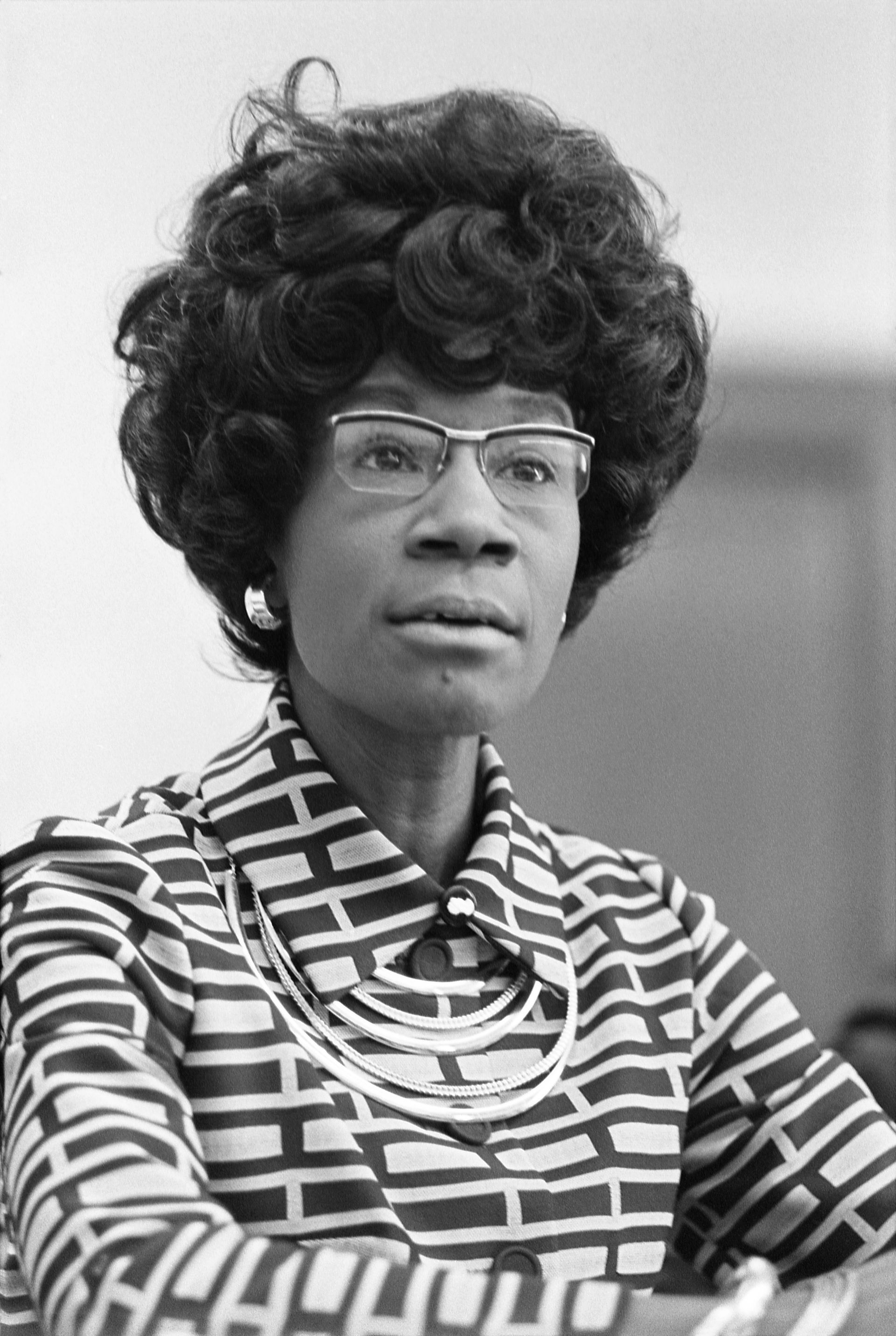
“If they don’t give you a seat at the table, bring a folding chair. Do not allow society or circumstances to limit your dreams. You must fight to change the narrative, to make room for your voice, and to be the change you wish to see in the world.”
-
Brief Points Of Interest
~ Shirley Chisholm
Shirley Chisholm was a force of nature—a woman whose life defied convention and whose legacy continues to shape the political landscape of the United States and beyond. Born in Brooklyn in 1924 to immigrant parents from the Caribbean, Chisholm’s journey from a child of modest means to one of the most influential political figures in American history is a testament to the power of resilience, vision, and unflinching determination.
Chisholm’s rise was never guaranteed. At a time when both race and gender posed insurmountable barriers, she refused to be constrained by the expectations of others. She famously said, “If they don’t give you a seat at the table, bring a folding chair.” And so she did. In 1968, Chisholm made history as the first African-American woman elected to the United States Congress. Her entrance into the political arena was revolutionary, signaling not just a break with tradition but a powerful assertion that the halls of power could no longer be the exclusive domain of white men.
Chisholm’s tenure in Congress was marked by her fearless advocacy for the marginalized. She championed issues of racial and gender equality, education reform, and anti-poverty legislation at a time when these concerns were often sidelined by the mainstream political discourse. Chisholm’s political philosophy was rooted in the belief that true democracy could only be achieved when the voices of the voiceless were heard. Her unrelenting pursuit of this goal made her a pioneer for civil rights and women’s rights alike.
Her most audacious act, however, came in 1972 when she made a bid for the Democratic nomination for president of the United States. As the first African-American woman to run for the presidency, Chisholm’s campaign was not only groundbreaking—it was a radical act of defiance against the status quo. Her message was clear: the political system needed to reflect the diversity and experiences of all Americans, not just the elite few. While she did not win the nomination, her candidacy changed the trajectory of American politics, inspiring generations of women and people of color to step into the political arena.
Beyond her political career, Chisholm’s legacy is one of profound impact. She paved the way for future leaders who would see no limits to their potential, inspiring women like Kamala Harris and Barack Obama to break barriers of their own. But more than her achievements, Shirley Chisholm’s life was a testament to a deeper philosophy—that leadership is about service, justice, and equality. She once said, “Service is the rent we pay for the privilege of living on this earth.”
Shirley Chisholm’s story is one of defiance, vision, and the relentless pursuit of a better world—a story that continues to inspire, uplift, and challenge us to build a more inclusive future.
DON JAZZY
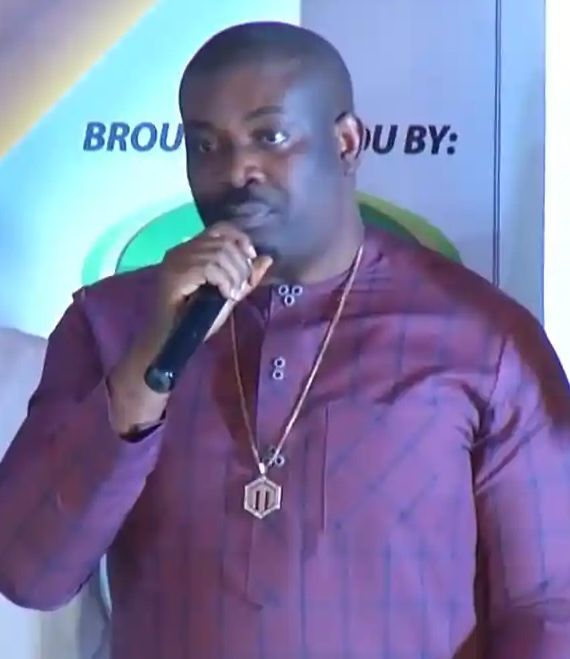
Photo Author - Wazobia Max TV
“You can achieve anything you set your mind to, as long as you’re willing to put in the work.”
-
Brief Points Of Interest
~ Don Jazzy
Michael Collins Ajereh, popularly known as Don Jazzy, stands as a towering figure in the Nigerian music industry. A music producer, singer, and entrepreneur, Don Jazzy has been instrumental in shaping Afrobeats into a global phenomenon. Known for his infectious charisma and groundbreaking collaborations.
Don Jazzy’s academic foundation in Business Management from Ambrose Alli University provided him with the skills to navigate the music industry’s complexities. Co-founding Mo’Hits Records in 2004 with D’Banj, he quickly rose to prominence, producing hits that resonated across Africa and beyond. After Mo’Hits disbanded, he founded Mavin Records in 2012, a label that has nurtured superstars like Tiwa Savage, Rema, Ayra Starr and many more.
His accolades are numerous, including Producer of the Year at the Nigerian Music Awards (2006) and the City People Entertainment Awards (2011). In 2021, Don Jazzy received a Special Recognition Award at The Headies for his significant contributions to the industry.
Beyond music, Don Jazzy’s philanthropic endeavors set him apart. Through the Don Jazzy Foundation, he has provided scholarships and supported countless young talents. His social media presence, often laced with humor and wisdom, serves as a platform for empowerment, bridging the gap between stardom and the everyday Nigerian.
What makes Don Jazzy exemplary is not just his ability to create chart-topping beats but his commitment to uplifting others. A visionary and a humanitarian, he continues to inspire a generation to dream big, work hard, and give back. Truly, Don Jazzy is a maestro whose legacy transcends music.
9ICE
Photo Author - Eniola Badmus TV
“A nation without culture is like a tree without roots.”
-
Brief Points Of Interest
~ 9ICE
Alexander Abolore Adegbola Akande, widely known as 9ice, is a Nigerian music icon celebrated for his ability to blend indigenous Yoruba sounds with contemporary Afrobeat rhythms. Renowned for his deep, proverbial lyrics.
This philosophy has been a cornerstone of his career, as he has consistently showcased Nigerian culture and traditions through his music.
A graduate of Law from Lagos State University, 9ice’s educational background highlights his multifaceted persona. His entry into the music scene was marked by the release of his debut album, ‘Certificate’, in 2007. However, it was his sophomore album, ‘Gongo Aso’, that catapulted him to fame. The album, featuring hits like ‘Street Credibility’ and ‘Party Rider’, earned him multiple awards, including the Best Hip Hop Artist at the 2008 MTV Africa Music Awards and the Best Vocal Performance at The Headies.
9ice’s contribution to humanity transcends his music. He has been an advocate for youth empowerment and a voice for societal change. His foundation supports educational initiatives and provides opportunities for underprivileged youths to harness their potential.
Honoured for his dedication to preserving African heritage, 9ice has received recognitions like the Nigerian Entertainment Awards’ Best Indigenous Artiste. His songs often serve as a rallying cry for cultural pride, inspiring listeners to embrace their roots while aiming for global excellence.
What makes 9ice exemplary is his resilience and authenticity. Despite industry challenges, he has remained steadfast in his mission to promote African values and inspire through music. A beacon of tradition and innovation, 9ice’s legacy reminds us that true artistry lies in staying true to one’s roots while evolving with the times.
ASA - The Soulful Storyteller

Author of the Image - Nicolas Esposito from France
“Music is my tool to connect hearts and inspire minds.”
-
Brief Points Of Interest
~ ASA - The Soulful Storyteller
Bukola Elemide, famously known as Asa, is a globally celebrated singer-songwriter whose music transcends borders and genres. Known for her soulful voice and thought-provoking lyrics, and her profound ability to weave stories of love, hope, and resilience into her melodies.
Born in Paris but raised in Lagos, Asa’s multicultural upbringing enriched her artistry. She studied at the Peter King College of Music, honing her skills in jazz and classical guitar. Her self-titled debut album, ‘Asa’ (2007), featuring timeless hits like ‘Jailer and ‘Fire on the Mountain’, earned her international acclaim and the prestigious Prix Constantin Award in France.
Over the years, Asa has garnered numerous accolades, including the French Music Award Victoires de la Musique nomination and multiple wins at the Headies and Nigerian Entertainment Awards. Her albums, including ‘Beautiful Imperfection’ and ‘Bed of Stone’, showcase her versatility, blending Afrobeat, soul, and pop influences.
Beyond her artistry, Asa is deeply committed to humanitarian causes. She has been an advocate for gender equality, youth empowerment, and environmental sustainability. Her performances at global events, such as the United Nations’ International Day of Peace, highlight her role as a cultural ambassador for Nigeria.
What makes Asa exemplary is her unwavering dedication to authenticity and excellence. Her music not only entertains but also enlightens, addressing social issues with grace and intellect. A true storyteller, Asa’s legacy is one of passion, purpose, and profound connection, inspiring generations to find strength and beauty in their unique voices.
ANGELIQUE KIDJO
Author of the Image - Michael Coghlan from Adelaide, Australia
“We are all connected. Music is the thread that binds humanity.”
-
Brief Points Of Interest
~ ANGELIQUE KIDJO
Alexander Abolore Adegbola Akande, widely known as 9ice, is a Nigerian music icon celebrated for his ability to blend indigenous Yoruba sounds with contemporary Afrobeat rhythms. Renowned for his deep, proverbial lyrics.
This philosophy has been a cornerstone of his career, as he has consistently showcased Nigerian culture and traditions through his music.
A graduate of Law from Lagos State University, 9ice’s educational background highlights his multifaceted persona. His entry into the music scene was marked by the release of his debut album, ‘Certificate’, in 2007. However, it was his sophomore album, ‘Gongo Aso’, that catapulted him to fame. The album, featuring hits like ‘Street Credibility’ and ‘Party Rider’, earned him multiple awards, including the Best Hip Hop Artist at the 2008 MTV Africa Music Awards and the Best Vocal Performance at The Headies.
9ice’s contribution to humanity transcends his music. He has been an advocate for youth empowerment and a voice for societal change. His foundation supports educational initiatives and provides opportunities for underprivileged youths to harness their potential.
Honoured for his dedication to preserving African heritage, 9ice has received recognitions like the Nigerian Entertainment Awards’ Best Indigenous Artiste. His songs often serve as a rallying cry for cultural pride, inspiring listeners to embrace their roots while aiming for global excellence.
What makes 9ice exemplary is his resilience and authenticity. Despite industry challenges, he has remained steadfast in his mission to promote African values and inspire through music. A beacon of tradition and innovation, 9ice’s legacy reminds us that true artistry lies in staying true to one’s roots while evolving with the times.
YEMI ALADE

Author of the Image - Tai Ali
“Africa is my identity, and I wear it proudly in my music.”
-
Brief Points Of Interest
~ YEMI ALADE
Yemi Eberechi Alade, famously known as Yemi Alade, has become a global icon, celebrating African culture through her vibrant music and electrifying performances. Dubbed the “Mama Africa” of contemporary music reflected in her every lyric, costume, and stage act, making her a cultural ambassador for the continent.
A graduate of Geography from the University of Lagos, Yemi Alade’s academic journey complements her music career, showing her commitment to well-rounded excellence. Rising to fame after winning the ‘Peak Talent Show’ in 2009, she cemented her place in the industry with her breakout hit, ‘Johnny’ (2014). The song became a continental anthem, amassing millions of views on YouTube and earning her accolades worldwide.
Yemi Alade’s numerous awards include the MTV Africa Music Award for Best Female Artist (2015 and 2016) and the Best International Act at the BET Awards. Her albums, including ‘King of Queens’, ‘Mama Africa’, and ‘Woman of Steel’, showcase her versatility, blending Afrobeat, highlife, and pop sounds with lyrics in English, French, and Swahili.
Beyond music, Yemi Alade’s humanitarian efforts make her exemplary. As a United Nations Development Programme (UNDP) Goodwill Ambassador, she advocates for gender equality and poverty eradication. She has also supported various charities, including initiatives for education and women’s empowerment across Africa.
Yemi Alade’s vibrant persona, combined with her dedication to showcasing Africa’s rich heritage, sets her apart. From her elaborate costumes to her cross-continental collaborations, she embodies the spirit of unity in diversity. Truly, Yemi Alade is not just a musical powerhouse but a beacon of pride and inspiration for Africans everywhere.
MIRIAM MAKEBA
Author of the Image -Anefo
“I am an African. I am an African woman. I know that I am free, and I want to share that freedom with everyone.”
-
Brief Points Of Interest
~ MIRIAM MAKEBA
Miriam Makeba, affectionately known as “Mama Africa,” remains one of the most iconic and influential figures in the history of African music. With a career spanning more than five decades, Makeba’s voice became synonymous with the struggles of her people and the global fight for freedom. She used her music as a platform for social justice and Pan-Africanism.
Born in 1932 in South Africa, Makeba’s early exposure to the harsh realities of apartheid shaped her music and advocacy. She was awarded a scholarship to study music at the University of Johannesburg, but it was her international success with the hit song ‘Pata Pata’ that solidified her global prominence. Makeba’s blend of traditional African sounds with jazz and pop won her a place on the world stage, earning her the title of South Africa’s first global music star.
Miriam Makeba’s numerous accolades include a Grammy Award in 1966 for her collaboration on the album ‘An Evening with Belafonte/Makeba’. She also received honorary degrees from institutions such as the University of Massachusetts for her contributions to both music and activism.
Her unwavering fight against apartheid and her exile from South Africa for nearly three decades are some of the most significant chapters of her life. As a UN Goodwill Ambassador, Makeba dedicated herself to advocacy for peace, racial equality, and women’s rights. Her autobiography, ‘Makeba: My Story’, details her tumultuous journey in both the music industry and her activism.
What makes Miriam Makeba truly exemplary is her ability to combine artistry with activism. Her music did more than entertain—it uplifted, empowered, and spoke truth to power. With her unrelenting spirit and powerful voice, Makeba continues to inspire generations, making her a timeless figure of cultural pride, resilience, and unity.
LUCKY DUBE
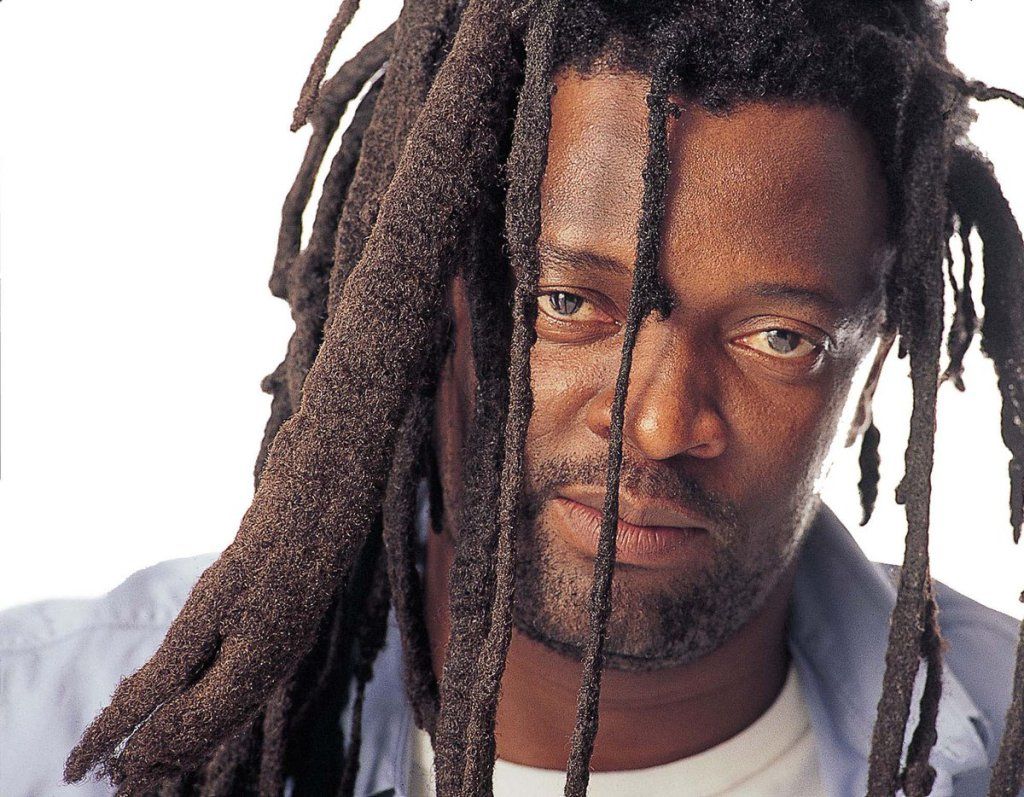
Author of the Image - Music Updater; Uganda, Africa.
“You must give people a reason to fight for their tomorrow.”
-
Brief Points Of Interest
~ LUCKY DUBE
There was a stillness in his gaze, a silent rebellion in his voice. Lucky Phillip Dube was not just a musician; he was a storyteller, a preacher of justice, and a relentless advocate for human dignity. His life, tragically brief yet magnificently impactful, was a masterclass in using art as a weapon against oppression.
Born on August 3, 1964, in Ermelo, South Africa, Dube’s childhood was steeped in hardship, the kind that molds ordinary men into extraordinary symbols of hope. Raised by his mother, he grew into a young man with a thirst for knowledge and a fierce determination to rise above his circumstances. His early foray into music was through traditional Zulu sounds, but it was reggae—a genre that resonated with the oppressed worldwide—that called his name.
Dube’s career ascended rapidly, with albums like ‘Prisoner’ (1989) and ‘Slave’ (1990) echoing the plight of the downtrodden. His songs, written in the universal language of freedom, became anthems for a generation grappling with apartheid and its aftermath. “It’s not good enough to sing about the pain,” Dube once said. “You must give people a reason to fight for their tomorrow.”
Over his career, he earned countless accolades: the World Music Award, the OKTV Award, and multiple South African Music Awards. Yet, these trophies were mere footnotes to his legacy. His greatest honor was the impact of his words, his ability to unite people across races, nations, and ideologies.
But Dube’s contributions transcended music. A committed humanitarian, he supported education initiatives and spoke fervently about breaking the cycles of poverty and systemic racism. His assassination in 2007 was a devastating blow, but it could not silence his message.
Lucky Dube remains a timeless figure—a troubadour of truth and a bridge between worlds. His music still lingers, a haunting reminder that art, when wielded with purpose, can reshape reality.
Baba Ebenezer Obey
Author of the Image - Sahara TV
“Music is my passion, my love and my source of joy. When I sing, I get great happiness; from seeing people’s faces light up.”
-
Brief Points Of Interest
~ Ebenezer Obey Fabiyi: The Commander of Juju’s Soulful Symphony
Ebenezer Obey Fabiyi stands as an indelible figure in Nigerian music, a pioneer whose artistry bridges the sacred and the secular. Born on April 3, 1942, in Idogo, Ogun State, Obey has earned his place as the “Commander” of Juju music, using his craft to entertain, educate, and inspire generations.
Adept in Yoruba cultural traditions, Obey launched his musical career under the mentorship of Fatai Rolling Dollar. In the 1960s, he formed his band, The International Brothers’, later renamed ‘Inter-Reformers Band’. His unique style combined Yoruba folklore, spiritual reflections, and contemporary rhythms, making him a household name.
Obey’s music is a repository of moral and philosophical wisdom. His songs, like ‘Board Members’ and ‘Egba Mi Ki Eyin Mi’, reflect on themes of integrity, gratitude, and the ephemeral nature of life. “A good name is better than gold,” he reminds listeners in his iconic track ‘Aimasiko’.
Throughout his career, Obey has received numerous awards and honors. These include the National Merit Award of Member of the Order of the Niger (MON) and the International Reggae and World Music Award. In 2014, he was conferred a Doctorate in Music by Olabisi Onabanjo University, a testament to his contributions to cultural preservation and education.
Obey’s accolades also extend to his gospel transition in the 1990s. Albums like ‘Jesu Olore’ and ‘Ka To Ri Eledumare’ have garnered critical acclaim, further cementing his role as a spiritual leader. Through his ‘Decross Gospel Mission’, he has provided scholarships and youth empowerment programs, showing his dedication to humanity beyond the stage.
Ebenezer Obey’s legacy is one of balance—between fame and humility, art and advocacy, entertainment and enlightenment. His music continues to resonate as both a cultural treasure and a call to live virtuously. Truly, he is not just a musician but a custodian of Yoruba heritage and a beacon of wisdom for all.
KING SUNNY ADE
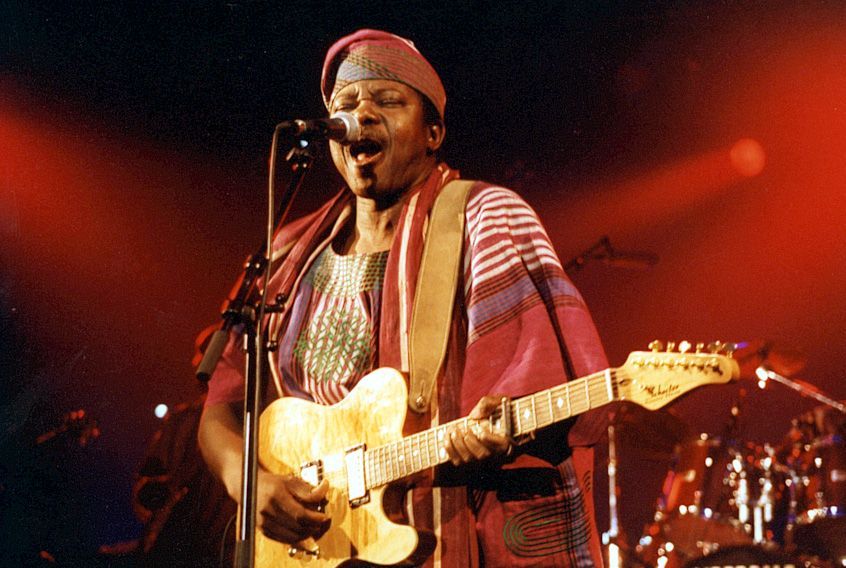
Author of Image - Master _ xpo
“Music is my life, and my life is to uplift others through music.”
-
Brief Points Of Interest
~ KING SUNNY ADE
King Sunny Ade, born Sunday Adeniyi Adegeye on September 22, 1946, is a name synonymous with Nigerian music and global acclaim. Hailed as the “King of Juju Music,” he is a pioneer whose electrifying blend of traditional Yoruba rhythms, highlife, and modern instrumentation has earned him legendary status. This philosophy has guided his decades-long career, making him a cultural ambassador for Nigeria.
A native of Ondo State, Ade began his musical journey in the mid-1960s, forming his band, ‘The African Beats’. His innovative approach to Juju music, incorporating the pedal steel guitar and synthesizers, revolutionized the genre and captured audiences worldwide. Albums like ‘Synchro System’ and ‘Aura’ were groundbreaking, with the former earning him his first Grammy nomination in 1984—the first Nigerian artist to achieve this feat.
King Sunny Ade’s awards and honors are as illustrious as his music. He has received two Grammy nominations, cementing his place in the global music hall of fame. He holds the Nigerian national honor of Member of the Order of the Federal Republic (MFR) and was inducted into the Afropop Hall of Fame. Ade was also awarded an honorary doctorate in Music from Obafemi Awolowo University for his contributions to the industry.
Beyond music, Ade’s humanitarian efforts are commendable. Through the King Sunny Ade Foundation, he supports healthcare, education, and youth development initiatives. He is also an advocate for the preservation of African culture, often using his platform to promote Nigerian traditions.
King Sunny Ade’s legacy is a testament to innovation, resilience, and cultural pride. As a trailblazer in Juju music, his influence extends far beyond the stage, inspiring generations of musicians and reminding the world of the richness of Nigerian heritage. He remains a living legend, embodying the transformative power of music.
ABDULLAH IBRAHIM
Author of the Image - Schorle
“Music is a reflection of our soul’s journey.”
-
Brief Points Of Interest
~ ABDULLAH IBRAHIM
Abdullah Ibrahim, born Adolph Johannes Brand on October 9, 1934, in Cape Town, South Africa, is a towering figure in the world of jazz. Renowned for his evocative compositions and mastery of the piano, he has become a global icon of musical storytelling, blending traditional African rhythms with the improvisational spirit of jazz. His life encapsulates the artistry’s depth and spiritual resonance.
Ibrahim’s early exposure to Cape Malay songs and church hymns shaped his distinctive sound, which he later enriched with elements of swing and bebop. His career took a pivotal turn in 1959 when his group, ‘The Jazz Epistles’, featuring legendary trumpeter Hugh Masekela, recorded South Africa’s first jazz album. However, apartheid’s oppressive regime forced Ibrahim into exile, a move that would define his music’s global reach and revolutionary ethos.
A disciple of Duke Ellington, who produced his first international album in 1963, Ibrahim gained worldwide recognition with compositions like ‘Mannenberg’—a piece that became an anthem for the anti-apartheid movement. His discography includes over 50 albums, showcasing his ability to weave themes of resistance, spirituality, and hope.
Ibrahim’s accolades are as impressive as his legacy. He holds honorary doctorates from institutions such as the University of the Witwatersrand and Rhodes University. In 2019, he received the esteemed National Order of Ikhamanga (Gold), South Africa’s highest honor for excellence in arts and culture. He has also performed at prestigious venues like Carnegie Hall and the Montreux Jazz Festival, solidifying his global acclaim.
Beyond music, Ibrahim’s contributions to humanity are profound. As an educator and cultural ambassador, he has mentored countless musicians and advocated for the preservation of African heritage. His ‘Mannenberg Foundation’ furthers his vision, fostering arts education and community development in South Africa.
Abdullah Ibrahim’s journey is a testament to resilience, innovation, and the transformative power of music. A custodian of African traditions and a global jazz legend, he continues to inspire generations, proving that music transcends borders, uniting humanity in shared stories and emotions.
Ibrahim Ferrer
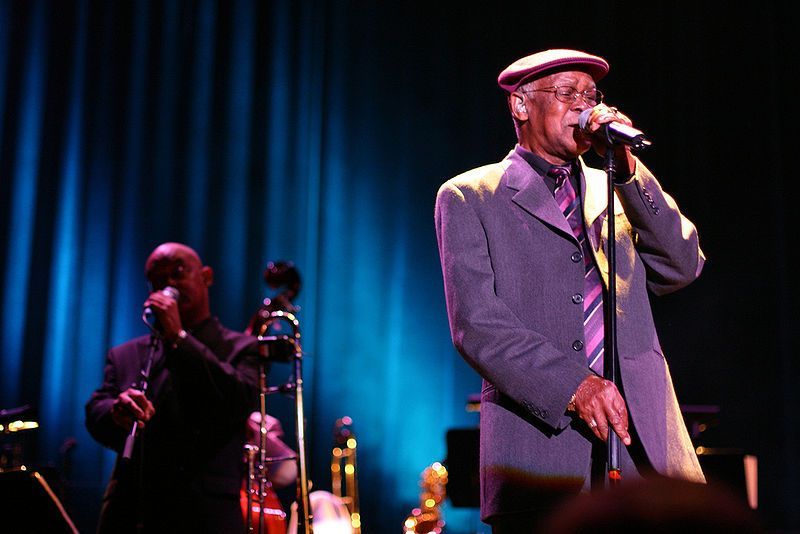
“Music is life, and it speaks a language everyone understands.”
-
Brief Points Of Interest
- IBRAHIM FERRER
Ibrahim Ferrer, born on February 20, 1927, in Santiago de Cuba, was more than a singer; he was the embodiment of the golden age of Cuban music. Known for his warm, velvety voice, Ferrer rose from humble beginnings to global stardom, becoming a central figure in the Buena Vista Social Club phenomenon.
Ferrer’s journey into music began in his early teens, singing in Santiago’s vibrant streets to support his family. His career took off in the 1950s when he became the lead singer for several popular Cuban bands, including Orquesta de Chepín-Chovén and Afro-Cuban legend Benny Moré’s ensemble. His expertise in ‘son cubano’—a genre blending African rhythms with Spanish melodies—earned him a reputation as one of Cuba’s finest vocalists.
For decades, Ferrer’s music career was a quiet hum, overshadowed by Cuba’s evolving political and cultural landscape. By the 1990s, he had retired, living modestly in Havana. However, fate intervened when American guitarist Ry Cooder and Cuban musician Juan de Marcos González revived his career through the ‘Buena Vista Social Club’ project. The 1997 album was a global sensation, winning a Grammy Award and reigniting interest in traditional Cuban music.
Ferrer’s subsequent solo albums, including ‘Buena Vista Social Club Presents Ibrahim Ferrer’ and ‘Buenos Hermanos’, garnered critical acclaim. He earned a Latin Grammy Award in 2004 for Best Traditional Tropical Album, solidifying his status as a global music icon.
What makes Ferrer’s story remarkable is not just his musical prowess but his enduring humility and humanity. Even as he performed on the world’s grandest stages, from Carnegie Hall to the Royal Albert Hall, he remained deeply connected to his roots, advocating for the preservation of Cuban culture.
Ibrahim Ferrer passed away on August 6, 2005, leaving behind a legacy of timeless music and an inspiring story of resilience and rediscovery. His life reminds us that true artistry knows no age, and the voice of tradition can echo through time, touching hearts across generations.
FALLY IPUPA
Author of the Image - Charlyneros
“Music is a language beyond borders.”
-
Brief Points Of Interest
~ FALLY IPUPA
Fally Ipupa, born on December 14, 1977, in Kinshasa, Democratic Republic of Congo, is one of Africa’s most celebrated musical talents. A true embodiment of modern Congolese music, Ipupa is a fusion of charm, rhythm, and lyrical prowess. With his unique style, he has taken ‘soukous’ music into new realms, seamlessly blending it with R&B, pop, and Afrobeat to create a sound that speaks to both local and international audiences. “Music is a language beyond borders,” he once said, and his career proves the truth of this statement, reaching millions worldwide.
Ipupa’s musical journey began in his youth, where he trained in both classical music and the traditional rhythms of his Congolese heritage. His early years were spent performing with various local groups before he became a prominent member of the iconic ‘Quartier Latin International’, led by Koffi Olomidé. It was with this group that Ipupa first gained widespread recognition, both for his vocal ability and his charismatic presence on stage.
In 2006, Fally Ipupa launched his solo career, releasing his debut album ‘Droit Chemin’ (Straight Path). The album was an instant success, with hits like ‘Elle et Moi’ and ‘Anissa’, showcasing his dynamic blend of ‘soukous’, R&B, and contemporary African sounds. Subsequent albums like ‘Arsenal de Belles Melodies’ and ‘Tokooos’ solidified his status as a global star. His hit singles such as ’Eloko Oyo’, ‘Original’, and ‘Ona’ have not only dominated African airwaves but also garnered him recognition on international platforms.
Ipupa’s awards are a testament to his talent and influence. He has won multiple ‘Kora Awards’, ‘MTV Africa Music Awards’, and ‘African Muzik Magazine Awards’, and was named Best Congolese Artist at the ‘International African Music Awards’. His influence extends beyond just music; his collaborations with top global artists such as Wizkid, Yemi Alade, and Olivia Ruiz have shown his versatility and international appeal.
He is also recognized for his philanthropic work in Africa. Through his Fally Ipupa Foundation, he supports educational initiatives and youth development programs across Congo. His commitment to social change and cultural preservation underscores his influence as both an artist and a global citizen.
Fally Ipupa is not just a musician but a cultural ambassador, a force who continues to elevate Congolese music to international prominence. His career reflects the evolving sound of Africa today—innovative, diverse, and globally impactful.
KOFFI OLOMIDE
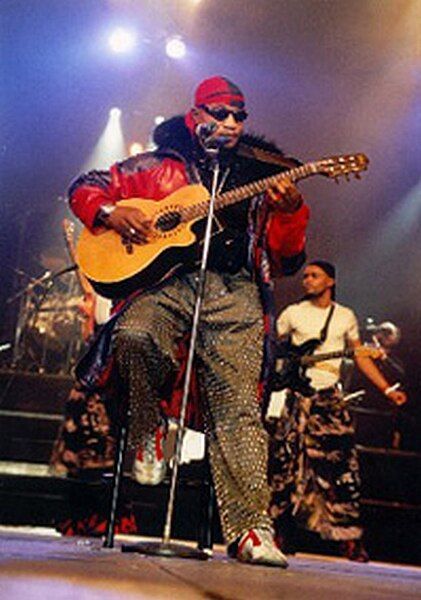
Author of the Image - Ptityorobo
“Music is my weapon of choice for uniting people and celebrating life.”
-
Brief Points Of Interest
- KOFFI OLOMIDE
Antoine Christophe Agbepa Mumba, better known as Koffi Olomidé, is a Congolese musical icon whose name resonates across Africa and beyond. Born on July 13, 1956, in Kisangani, Democratic Republic of Congo, Olomidé is celebrated as a pioneer of ‘Soukous’ music, blending traditional Congolese rumba with contemporary Afrobeat, jazz, and dance rhythms.
A scholar by training, Olomidé holds a degree in Economics from the University of Paris and a diploma in Mathematics from the University of Bordeaux. Yet, it was his gift for music and poetry that propelled him to global stardom. He began his career writing songs for prominent artists like Papa Wemba before forming his band, ‘Quartier Latin International’, in 1986—a group that has nurtured stars such as Fally Ipupa and Ferré Gola.
Koffi’s discography spans decades and includes hits like ‘Loi’, ‘Effrakata’, and ‘Selfie’, each showcasing his lyrical depth and vibrant stage presence. His innovation of the ‘Tcha Tcho’ style—an upbeat variant of Soukous—earned him widespread acclaim. His albums have sold millions, earning him multiple ‘Kora Awards’, including Best African Artist of the Decade in 2000.
In addition to his Kora accolades, Olomidé is a decorated musician with several Congolese and international honors. He has received four ‘World Music Awards’ and holds a legendary status in the African music scene, recognized for his enduring contributions to Lingala music and dance.
Beyond music, Olomidé is a philanthropist and cultural ambassador. His efforts to promote African culture and his charitable initiatives for underprivileged children in the DRC highlight his dedication to humanity.
Koffi Olomidé’s career reflects artistry, resilience, and innovation. With over four decades of influence, he remains a luminary in African music, a custodian of Lingala culture, and an emblem of African excellence on the global stage.
M. I Abaga
Author of the Image - Ameyaw Debrah
“Hip-hop is not just music; it’s a voice for the voiceless.”
-
Brief Points Of Interest
~ M. I ABAGA
Jude Lemfani Abaga, famously known as M.I Abaga, is a trailblazer in the Nigerian music scene. Born on October 4, 1981, in Jos, Plateau State, M.I redefined the landscape of African hip-hop with his razor-sharp lyricism, innovative beats, and a knack for storytelling. Often referred to as the ‘African Rapper Number One,’ M.I once remarked, “Hip-hop is not just music; it’s a voice for the voiceless.” His career embodies this ethos, making him a voice of a generation.
M.I’s journey into music began during his university days in the United States, where he discovered his passion for rap and honed his craft. Upon his return to Nigeria, he released his debut album, ‘Talk About It’ (2008), a project that catapulted him to fame. Songs like Safe’, ‘Crowd Mentality’, and ‘Anoti’ resonated widely, showcasing his lyrical dexterity and ability to blend hip-hop with Afrocentric sounds.
M.I’s subsequent projects, including ‘MI2: The Movie’ (2010) and ‘The Chairman’ (2014), solidified his place as a titan in African music. Known for his introspective lyrics, social commentary, and masterful wordplay, M.I has won numerous accolades, including the MTV Africa Music Award (MAMA) for Best Hip-Hop, several Headies Awards, and a nomination at the BET Awards.
Beyond his music, M.I has been instrumental in shaping Nigeria’s hip-hop scene. As a former CEO of Chocolate City, he mentored artists like Ice Prince, Brymo, and Jesse Jagz, contributing to the label’s rise as one of Africa’s most influential music powerhouses. His 2022 album ‘The Guy’ further cemented his legacy, blending introspection with innovation.
M.I's influence extends to his advocacy for youth empowerment and creative freedom. He frequently speaks on social issues, using his platform to inspire and challenge the status quo. His ability to merge artistry with activism makes him a revered figure both in Nigeria and beyond.
With a career spanning nearly two decades, M.I Abaga remains a luminary in African hip-hop, a pioneer whose work continues to shape and inspire the next generation of artists.
BURNA BOY
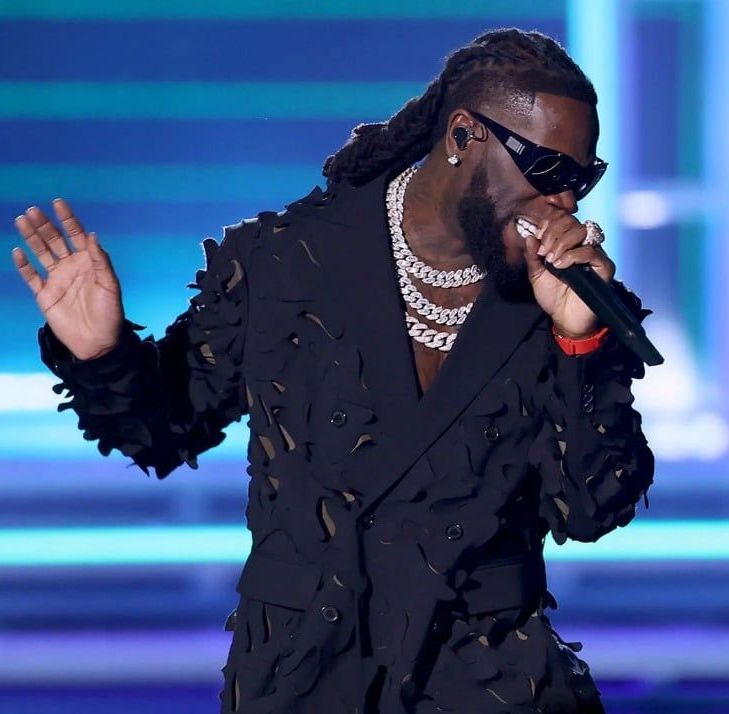
Author of the Image - premiumtimesng.com
“I represent a generation that refuses to be boxed in by limitations.”
-
Brief Points Of Interest
- BURNA BOY
Damini Ebunoluwa Ogulu, widely known as Burna Boy, is one of Africa’s most electrifying and influential musical talents. Born on July 2, 1991, in Port Harcourt, Nigeria, Burna Boy’s artistry blends Afrobeat, reggae, dancehall, and hip-hop into a distinctive sound that has earned him global acclaim. Often described as the voice of the African youth.
Burna Boy’s musical journey began in the streets of Port Harcourt, inspired by Fela Kuti, whose Afrobeat legacy deeply influenced his style. He gained recognition in 2012 with his breakout single ‘Like to Party’. However, it was his 2018 album ‘Outside’—featuring hits like ‘Ye’—that catapulted him to international stardom. The track’s fusion of Nigerian rhythms and global appeal made it an anthem, earning him comparisons to legends like Bob Marley and Fela.
His fourth studio album, ’African Giant’ (2019), marked a turning point in his career. The album earned a Grammy nomination and featured collaborations with international stars like Jorja Smith, Damian Marley, and Angelique Kidjo. Burna Boy’s follow-up album, ‘Twice as Tall’ (2020), executive-produced by Sean “Diddy” Combs, won the Grammy for Best Global Music Album in 2021, solidifying his status as a global superstar.
Burna Boy’s accolades are as impressive as his discography. He has won numerous awards, including BET Awards, MTV Africa Music Awards, and a MOBO Award. His historic performances at venues like Madison Square Garden and Glastonbury have positioned him as a cultural ambassador for African music.
Beyond his music, Burna Boy is a staunch advocate for African unity and empowerment. His lyrics often address socio-political issues, resonating with a generation eager for change. His philanthropic efforts, including support for youth initiatives and community development projects in Nigeria, further underline his commitment to social impact.
With his powerful voice, fearless creativity, and unwavering authenticity, Burna Boy stands as a true African Giant—a global icon who continues to elevate African music while inspiring a new wave of cultural pride.
Antoine Christophe Agbepa Mumba, better known as Koffi Olomidé, is a Congolese musical icon whose name resonates across Africa and beyond. Born on July 13, 1956, in Kisangani, Democratic Republic of Congo, Olomidé is celebrated as a pioneer of ‘Soukous’ music, blending traditional Congolese rumba with contemporary Afrobeat, jazz, and dance rhythms.
A scholar by training, Olomidé holds a degree in Economics from the University of Paris and a diploma in Mathematics from the University of Bordeaux. Yet, it was his gift for music and poetry that propelled him to global stardom. He began his career writing songs for prominent artists like Papa Wemba before forming his band, ‘Quartier Latin International’, in 1986—a group that has nurtured stars such as Fally Ipupa and Ferré Gola.
Koffi’s discography spans decades and includes hits like ‘Loi’, ‘Effrakata’, and ‘Selfie’, each showcasing his lyrical depth and vibrant stage presence. His innovation of the ‘Tcha Tcho’ style—an upbeat variant of Soukous—earned him widespread acclaim. His albums have sold millions, earning him multiple ‘Kora Awards’, including Best African Artist of the Decade in 2000.
In addition to his Kora accolades, Olomidé is a decorated musician with several Congolese and international honors. He has received four ‘World Music Awards’ and holds a legendary status in the African music scene, recognized for his enduring contributions to Lingala music and dance.
Beyond music, Olomidé is a philanthropist and cultural ambassador. His efforts to promote African culture and his charitable initiatives for underprivileged children in the DRC highlight his dedication to humanity.
Koffi Olomidé’s career reflects artistry, resilience, and innovation. With over four decades of influence, he remains a luminary in African music, a custodian of Lingala culture, and an emblem of African excellence on the global stage.
DAVIDO
Author of the Image - Kaizenify
“I make music to connect with people and share love — it’s the universal language.”
-
Brief Points Of Interest
~ DAVIDO
David Adedeji Adeleke, professionally known as Davido, is one of Africa’s most celebrated musical talents and a global ambassador for Afrobeats. Born on November 21, 1992, in Atlanta, Georgia, and raised in Lagos, Nigeria, Davido’s artistry is a fusion of infectious melodies, vibrant beats, and heartfelt lyrics.
Davido’s journey into music began while studying Business Administration at Oakwood University, and also studied music at the Babcock University where his passion for sound engineering led him to pursue music full-time. In 2011, he gained widespread recognition with his debut single ‘Dami Duro’, a high-energy anthem that became a cultural phenomenon.
Since then, Davido has released numerous chart-topping albums, including ‘Omo Baba Olowo (OBO)’, ‘A Good Time’, ‘A Better Time’, and ‘Timeless’. His hit singles, such as ‘Fall’, ‘If’, and ‘Fem’, have garnered billions of streams, making him one of the most streamed African artists of all time. ‘Fall’, in particular, became the longest-charting Nigerian song on the Billboard charts, solidifying Davido’s global appeal.
Davido’s accolades are a testament to his influence and talent. He has won numerous awards, including BET Awards, MTV Europe Music Awards, and multiple Headies. In 2018, he became the first African artist to perform at the BET Awards main stage. His collaborations with global stars like Chris Brown, Nicki Minaj, and Summer Walker have further expanded his reach, bridging cultures through music.
Beyond his musical achievements, Davido is a philanthropist and entrepreneur. Through his ‘Davido Music Worldwide (DMW)’ label, he has mentored and elevated talents like Mayorkun and Peruzzi. His charitable works, particularly his fundraising campaign in 2021 that raised over ₦250 million for orphanages across Nigeria, underscore his commitment to giving back.
Davido’s infectious energy, relentless work ethic, and ability to create timeless hits have made him a cornerstone of Afrobeats’ global dominance. With every record, performance, and collaboration, he continues to push the boundaries of African music, inspiring millions around the world.
BAABA MAAL
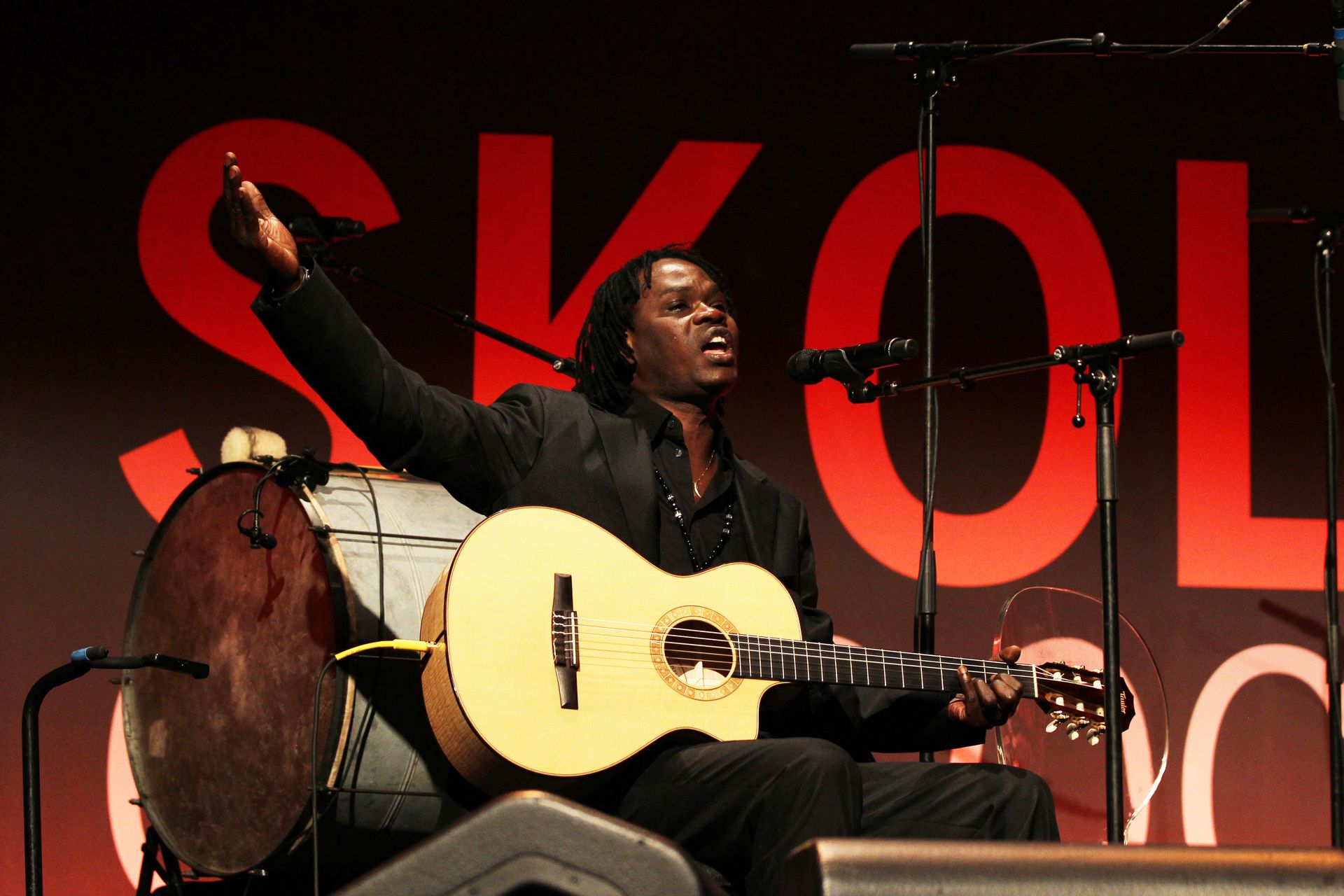
Author of the Image - Skoll World Forum
“Music is not just entertainment; it is the spirit of the people and their story.”
-
Brief Points Of Interest
- BAABA MAAL
Baaba Maal, born on November 12, 1953, in Podor, Senegal, is a legendary musician, singer, and cultural advocate whose music transcends borders. Known for his soulful voice and poetic lyrics, he blends traditional African rhythms with contemporary influences, creating music that is both deeply rooted in heritage and globally resonant.
Raised in a small fishing community along the Senegal River, Baaba Maal grew up immersed in Fulani traditions, which heavily influenced his musical style. Despite societal expectations that he follow his family’s fishing trade, Maal pursued his passion for music. He attended the *Conservatoire des Beaux-Arts* in Dakar, where he studied music composition and theory. Later, he advanced his education at the prestigious ‘École des Beaux-Arts’ in Paris, deepening his understanding of both African and Western musical traditions.
Baaba Maal’s discography is a testament to his artistic genius. Albums such as ‘Firin’ in Fouta’, ‘Nomad Soul’, and ‘The Traveller’ reflect his innovative approach to blending traditional Senegalese sounds with Afrobeat, reggae, and pop. His collaboration with long-time friend Mansour Seck on ‘Djam Leelii’ remains one of the most celebrated African albums of all time. Maal’s contributions to the Grammy-winning soundtrack of *Black Panther* further cemented his position as a global ambassador of African music.
Throughout his career, Maal has garnered numerous awards, including the ‘UNESCO Music Prize’ and recognition at the ‘BBC Radio 3 Awards for World Music’. Beyond his music, he is a staunch advocate for education and sustainable development in Africa. As a United Nations Development Programme (UNDP) Youth Emissary, he has championed climate change awareness, youth empowerment, and access to education, embodying his belief that music and knowledge are powerful tools for transformation.
With his academic grounding, global collaborations, and cultural advocacy, Baaba Maal stands as a beacon of African pride. His life and work remind us of the power of education, tradition, and creativity in shaping a brighter future for the continent.
WANDE COAL
Author of the Image - CorporrateIntrovert
“Music is my language, and my voice is my gift to the world.”
-
Brief Points Of Interest
~ WANDE COAL
Oluwatobi Wande Ojosipe, popularly known as Wande Coal, is one of Nigeria’s most iconic and versatile singers. Born on October 18, 1985, in Lagos, Nigeria, Wande Coal’s soulful voice and mastery of Afrobeats have cemented his status as a trailblazer in the global music industry.
Wande Coal’s journey began in the choir, where he honed his vocal skills. A graduate of University of Lagos, where he studied Human Kinetics, he initially balanced academics with his passion for music. His breakthrough came in 2006 when he joined Mo’Hits Records, co-founded by Don Jazzy and D’Banj.
His debut album, ‘Mushin to Mo’Hits’ (2009), is widely regarded as a classic in Nigerian music. Tracks like ‘Bumper to Bumper’, ‘Ololufe’, and ‘You Bad’ showcased his ability to blend Afrobeat, R&B, ’nd pop seamlessly. ‘Ololufe’ especially remains a timeless love song, often celebrated for its emotive delivery and lyrical depth.
Wande Coal has received numerous accolades, including the ‘Headies Awards’ for Best Vocal Performance and Album of the Year. His sophomore album, ‘Wanted’ (2015), reaffirmed his place as a leader in the industry, while his collaborations with artists like Wizkid, Burna Boy, and Olamide have further expanded his influence.
Beyond his musical success, Wande Coal is a quiet force of inspiration. His contributions to nurturing young talents and shaping the Nigerian music scene are remarkable. As one of the early pioneers of Afrobeats’ global reach, he continues to inspire a generation of artists with his innovation and dedication to his craft.
With his velvet voice, compelling discography, and undeniable impact, Wande Coal is not just a music icon but a symbol of resilience and artistry in Africa. His legacy continues to evolve, making him a timeless figure in the world of Afrobeats.
TEMS

Author of the Image - Pabløuriel
“I want my music to be a sanctuary, a place where people find themselves.”
-
Brief Points Of Interest
- TEMS
Temilade Openiyi, globally known as Tems, is a Nigerian singer-songwriter whose sultry voice and introspective lyrics have propelled her to international acclaim. Born on June 11, 1995, in Lagos, Tems is a trailblazer in the world of contemporary Afrobeats and alternative R&B. Known for her authenticity.
Tems’ educational background reflects her well-rounded artistry. She studied Economics at ‘Monash South Africa’ before returning to Nigeria to pursue her passion for music. Her unique style, deeply influenced by Neo-soul and African rhythms, quickly set her apart in the crowded music landscape.
Her breakout single, 'Try Me’ (2019), established her as a rising star, but it was her collaboration with Wizkid on ‘Essence’ (2020) that cemented her global status. Dubbed “the song of the summer,” ‘Essence’ became the first Nigerian song to chart on the Billboard Hot 100 and earned a Grammy nomination. Tems’ subsequent features with artists like Drake (Fountains) and Future (Wait For U) further showcased her versatility and earned her a Grammy Award in 2023 for Best Melodic Rap Performance.
Tems has received numerous accolades, including the ‘BET Award for Best International Act’, ‘Soul Train Award’, and nominations for the ‘Academy Awards’ and ‘Golden Globes’ for her songwriting contribution to Rihanna’s ‘Lift Me Up’ from ‘Black Panther: Wakanda Forever’. These honors underscore her ability to transcend genres and reach diverse audiences.
Beyond her music, Tems is a symbol of empowerment and self-expression. Her lyrics often explore themes of love, self-discovery, and resilience, resonating deeply with listeners worldwide. She is also committed to mentoring and supporting upcoming female artists, paving the way for greater representation in the industry.
With her soulful voice, groundbreaking achievements, and unwavering authenticity, Tems has not only redefined Afrobeats but also inspired a generation to embrace their uniqueness. She is, undoubtedly, a global force to be reckoned with.
TIWA SAVAGE
Author of the Image - Music in Africa (Creative Commons)
“Greatness doesn’t come overnight—it’s built on passion, grit, and a refusal to quit.”
-
Brief Points Of Interest
~ TIWA SAVAGE
Tiwatope Savage, fondly known as Tiwa Savage, is a trailblazer in African music and a symbol of resilience and artistry. Born on February 5, 1980, in Lagos, Nigeria, Tiwa’s journey from backup vocalist to the Queen of Afrobeats showcases her exceptional talent and determination.
Tiwa’s academic journey reflects her multifaceted genius. She holds a degree in Business Administration from Kent University and honed her musical skills at the prestigious ‘Berklee College of Music’, where she graduated with distinction. This academic foundation and artistic training set her apart as a complete musician and performer.
Her professional career began as a backup singer for global stars like Mary J. Blige and George Michael. In 2013, Tiwa burst onto the Nigerian music scene with her debut album, ‘Once Upon a Time’. Tracks like ‘Kele Kele Love’ and ‘Eminado’ introduced her distinct blend of Afrobeat, R&B, and pop. Her sophomore album, ‘R.E.D’, and subsequent hits like ‘All Over’, ‘Koroba’, and ‘Somebody’s Son’ established her as an international sensation.
Tiwa Savage’s accolades are a testament to her influence. She has won numerous awards, including the ‘MTV Europe Music Award for Best African Act’, ‘BET Award for Best International Act’, and several ‘Headies Awards’. In 2020, she became the first African woman to sign an exclusive global recording deal with ‘Universal Music Group’.
Beyond her music, Tiwa is a force for change and empowerment. She is a UNICEF ambassador, advocating for education and healthcare for underprivileged children. Her boldness in addressing societal issues, such as women’s rights and cultural taboos, has made her a role model for many.
Tiwa Savage’s unparalleled blend of talent, intellect, and social consciousness has redefined what it means to be an African artist on the global stage. With her evocative lyrics, magnetic performances, and commitment to uplifting others, she continues to inspire generations, solidifying her legacy as the Queen of Afrobeats.
SARKODIE

Author of the Image - Owula Kpakpo
“Success is not accidental; it’s intentional, with vision and hustle.”
-
Brief Points Of Interest
- SARKODIE
Michael Owusu Addo, widely known as Sarkodie, is a Ghanaian rapper, songwriter, and entrepreneur whose lyrical dexterity and groundbreaking contributions to African hip-hop have made him a global phenomenon. Born on July 10, 1988, in Tema, Ghana, Sarkodie embodies the spirit of perseverance and innovation.
Sarkodie’s academic journey reflects his commitment to excellence. He studied Graphic Design at the IPMC College of Technology, but his passion for music became his true calling. His early days as an underground rapper sharpened his skills, laying the foundation for a career defined by hard work and authenticity.
His debut album, 'Makye' (2009), featuring the hit single ‘Baby’, announced Sarkodie as a force in African music. Subsequent albums, including ‘Rapperholic’ (2012), ‘Sarkology’ (2014), and ‘No Pressure’ (2021), have showcased his evolution as an artist, blending Twi rap with Afrobeat, highlife, and hip-hop. Notable tracks like ‘Adonai’, ‘Original’, and ‘Can’t Let You Go’ have earned him widespread acclaim.
Sarkodie’s trophy cabinet is a testament to his unparalleled impact. He is the first Ghanaian artist to win the ‘BET Award for Best International Flow’ and has also received multiple ‘MTV Africa Music Awards’, ‘Ghana Music Awards’, and ‘Headies’. In 2019, he was named Artist of the Decade at the ‘Vodafone Ghana Music Awards’.
Beyond music, Sarkodie is a visionary entrepreneur and philanthropist. He founded the ‘Sarkcess Music’ label to nurture upcoming talent and established the ‘Sarkodie Foundation’ to support education and health initiatives for underprivileged children in Ghana. His dedication to empowering others reflects his belief in using success as a platform for impact.
Sarkodie’s ability to blend cultural authenticity with global appeal has positioned him as a torchbearer for African rap. With his incisive lyrics, business acumen, and commitment to societal progress, Sarkodie remains a symbol of African excellence, inspiring a new generation to dream boldly and act decisively.
KIZZ DANIEL
Author of the Image - EppMePlix
“Music is my gift to the world; I aim to make it timeless.”
-
Brief Points Of Interest
~ KIZZ DANIEL
Oluwatobiloba Daniel Anidugbe, known globally as Kizz Daniel, is a Nigerian singer, songwriter, and performer whose melodic voice and infectious beats have earned him a place among Afrobeat’s elite. Born on May 1, 1994, in Abeokuta, Ogun State, Kizz Daniel has built a career defined by consistency, versatility, and an unyielding commitment to quality music.
Kizz Daniel’s academic journey is as impressive as his artistry. He graduated with a degree in Water Resources Management and Agrometeorology (Water Engineering) from the prestigious Federal University of Agriculture, Abeokuta (FUNAAB). Despite his technical background, his passion for music remained a driving force.
He burst onto the music scene in 2014 with the hit single ‘Woju’, a song that quickly became a national anthem and solidified his place as a rising star. His debut album, ‘New Era’ (2016), was a commercial success, featuring hits like ‘Laye’ and ‘Good Time’. Subsequent albums, including ‘No Bad Songz’ and ‘King of Love’, showcased his ability to craft chart-topping hits across genres.
Kizz Daniel’s achievements include multiple awards such as the ‘Headies Award for Best R&B/Pop Album’, ‘Nigeria Entertainment Awards’, and ‘Soundcity MVP Awards’. His 2022 global smash hit, ‘Buga’, became a cultural phenomenon, topping charts across Africa and beyond.
Beyond his musical prowess, Kizz Daniel is the founder of ‘Flyboy Inc.’, a record label dedicated to nurturing young talent. He has also been involved in philanthropy, supporting education initiatives and providing aid to underserved communities.
With his flawless vocals, captivating lyrics, and a reputation for delivering “no bad songs,” Kizz Daniel has carved a niche as one of Africa’s most beloved artists. His dedication to his craft and his ability to connect with audiences worldwide continue to elevate Afrobeat, making him a true force in the music industry.
2BABA aka 2Face

Author of the Image - Ndani TV
“Music is the tool I use to touch lives, unite people, and tell the African story.”
-
Brief Points Of Interest
- 2BABA aka 2Face
Innocent Ujah Idibia, famously known as 2Baba (formerly 2Face Idibia), is one of Africa’s most celebrated musicians and a pioneer of contemporary Afrobeat. Born on September 18, 1975, in Jos, Nigeria, 2Baba’s career spans over two decades, defined by timeless hits, unwavering authenticity, and a legacy that transcends music.
2Baba studied at the Institute of Management and Technology (IMT), Enugu, where he pursued a National Diploma in Business Administration. During his time there, he developed his passion for music, performing at local events and eventually forming the group ‘Plantashun Boiz’ alongside Blackface and Faze. The group’s success in the late 1990s set the stage for his solo career.
In 2004, 2Baba released his debut solo album, ‘Face 2 Face’, which included the iconic track ‘African Queen’. The song became a global sensation, featured in the Hollywood movie ‘Phat Girlz’ and establishing him as a trailblazer for African music on the world stage. Over the years, albums like ‘Grass 2 Grace’, ‘The Ascension’, and ‘Warriors’ have solidified his reputation as a hitmaker and storyteller.
His accolades are numerous, including multiple ‘MTV Africa Music Awards’, ‘BET Awards’, ‘MOBO Awards’, and ‘The Headies’. In 2015, he received an honorary degree from Igbinedion University for his contributions to music and philanthropy, a testament to his impact beyond entertainment.
2Baba is also a committed humanitarian. Through his 2Baba Foundation, he has championed causes such as peacebuilding, education, and youth empowerment. His activism, particularly during Nigeria’s electoral processes, underscores his belief in using his platform for societal progress.
With his soothing voice, profound lyrics, and unwavering dedication to his craft, 2Baba has not only shaped Nigerian music but has also inspired countless artists across Africa. His legacy as a cultural icon, peacemaker, and global ambassador for Afrobeat remains unparalleled, making him a true living legend.
SIMI
Author of the Image - Ndani TV
“Music is my way of making people feel seen, heard, and loved.”
-
Brief Points Of Interest
~ SIMI
Simisola Bolatito Kosoko, popularly known as Simi, is a Nigerian singer, songwriter, and producer whose music resonates with heartfelt emotion and lyrical depth. Born on April 19, 1988, in Ojuelegba, Lagos State, Simi has established herself as one of Africa’s most celebrated artists, blending Afro-pop, soul, and R&B into an irresistible musical signature.
Simi’s academic journey is a testament to her multifaceted nature. She earned a degree in Mass Communication from Covenant University, a foundation that complements her storytelling prowess. Her early career began in gospel music, with her debut album ‘Ogaju’ (2008), before she transitioned into mainstream Afrobeat.
Her breakout came with the release of ‘Jamb Question’ in 2015, followed by chart-topping hits like ‘Tiff’ and ‘Love Don’t Care’. Her sophomore album, ‘Simisola’ (2017), was a commercial and critical success, featuring hits like ‘Joromi’ and ‘Smile for Me’. Subsequent albums, including ‘Omo Charlie Champagne’ and ‘To Be Honest’, solidified her status as a leading voice in African music.
Simi’s accolades include multiple ‘Headies Awards’, ‘Nigeria Entertainment Awards’, and an ‘African Muzik Magazine Award’ (AFRIMMA). She is also the first female artist to win the ‘Songwriter of the Year’ award at the ‘BMI London Awards’ for her songwriting contributions.
Beyond her music, Simi is a dedicated advocate for social causes, often addressing themes like love, self-worth, and societal change in her songs. She launched ‘Studio Brat’, her record label, to empower emerging artists and maintain creative control over her work.
With her angelic voice, poetic lyrics, and commitment to authenticity, Simi continues to inspire listeners worldwide. Her music, often described as soul therapy, reflects her deep connection to her art and audience, making her a beacon of elegance and talent in the African music scene.
Teni

Author of the Image - Chika Ezechi
“Music is a universal language; it connects, inspires, and heals.”
-
Brief Points Of Interest
- Teni
Teniola Apata, popularly known as Teni or Teni Makanaki, is a Nigerian singer, songwriter, and entertainer celebrated for her vibrant personality and genre-defying music. Born on December 23, 1992, in Lagos, Nigeria, Teni has captured the hearts of millions with her soulful voice, playful lyrics, and unrelenting authenticity.
Teni hails from a family that values education and discipline. She earned a degree in Business Administration from American Intercontinental University, a background that complements her artistic and entrepreneurial endeavors. Her musical journey began with performances in her school days, influenced by her older sister, Niniola, and their late father, Simeon Apata, a renowned educationist and patriot.
Teni’s breakthrough came in 2017 with the release of ‘Fargin’, a socially conscious song that highlighted her storytelling prowess. She followed it with chart-topping singles like ‘Askamaya’, ‘Uyo Meyo’, and ‘Case’, which showcased her ability to blend Afrobeat, pop, and highlife into an infectious sound. Her debut EP, ‘Billionaire’ (2019), solidified her status as a force in African music.
Teni’s numerous awards include ‘The Headies Award for Best Vocal Performance (Female)’, ‘Rookie of the Year’, and the ‘Soundcity MVP Award for Best New Artist’. She was also nominated for ‘BET’s Viewer’s Choice: Best New International Act’ in 2019, further cementing her global appeal.
Beyond her music, Teni is a dynamic entertainer known for her comedic skits and engaging social media presence. She uses her platform to advocate for mental health awareness, body positivity, and the empowerment of young Africans.
Teni’s unique ability to blend humor, soul, and social commentary in her music sets her apart as one of the most beloved and influential artists in Africa. With her unwavering commitment to spreading joy and her knack for creating timeless anthems, Teni continues to redefine what it means to be a modern-day artist.
WIZ KID
Author of the Image - Pabløuriel
“You don’t have to shout to be heard; just let your work speak.”
-
Brief Points Of Interest
~ WIZ KID
Ayodeji Ibrahim Balogun, known worldwide as Wizkid, is a Nigerian Afrobeat pioneer whose music bridges cultures and continents. Born on July 16, 1990, in Surulere, Lagos, Wizkid has grown from a local sensation into a global ambassador of African sound. His philosophy, “You don’t have to shout to be heard; just let your work speak,” mirrors his understated approach to making an indelible mark on the music world.
Wizkid began his academic journey at Lagos State University before transferring to Lead City University to study International Studies, though he eventually dropped out to pursue music. Starting at 11 with a group called *Glorious Five*, Wizkid laid the groundwork for a career defined by innovation and resilience.
His professional breakthrough came in 2010 with ‘Holla at Your Boy’, the lead single from his debut album, ‘Superstar’ (2011). He followed it with albums like ‘Ayo’ (2014), ‘Sounds from the Other Side’ (2017), and the critically acclaimed ‘Made in Lagos’ (2020), featuring the Grammy-nominated hit ‘Essence’ with Tems. His latest release, ‘Morayo’ (2023), is a soulful and introspective track that reaffirms his ability to evolve while staying true to Afrobeat’s roots.
Wizkid’s achievements are unparalleled. He is a Grammy winner for his collaboration on Beyoncé’s ‘Brown Skin Girl’, a recipient of multiple BET Awards, MOBO Awards, and MTV Africa Music Awards, and the first African artist to sell out London’s O2 Arena three nights in a row. In 2021, he was named one of Time magazine’s ‘Most Influential People’.
Beyond music, Wizkid’s philanthropic efforts focus on education and healthcare in Nigeria, while his collaborations with global brands like Puma and Dolce & Gabbana showcase his influence in fashion.
With his latest work, ‘Morayo’, and an impressive catalog, Wizkid continues to set benchmarks in the global music scene. He remains a beacon of African excellence, inspiring millions to dream boldly and stay rooted in their culture.
TONY ALLEN
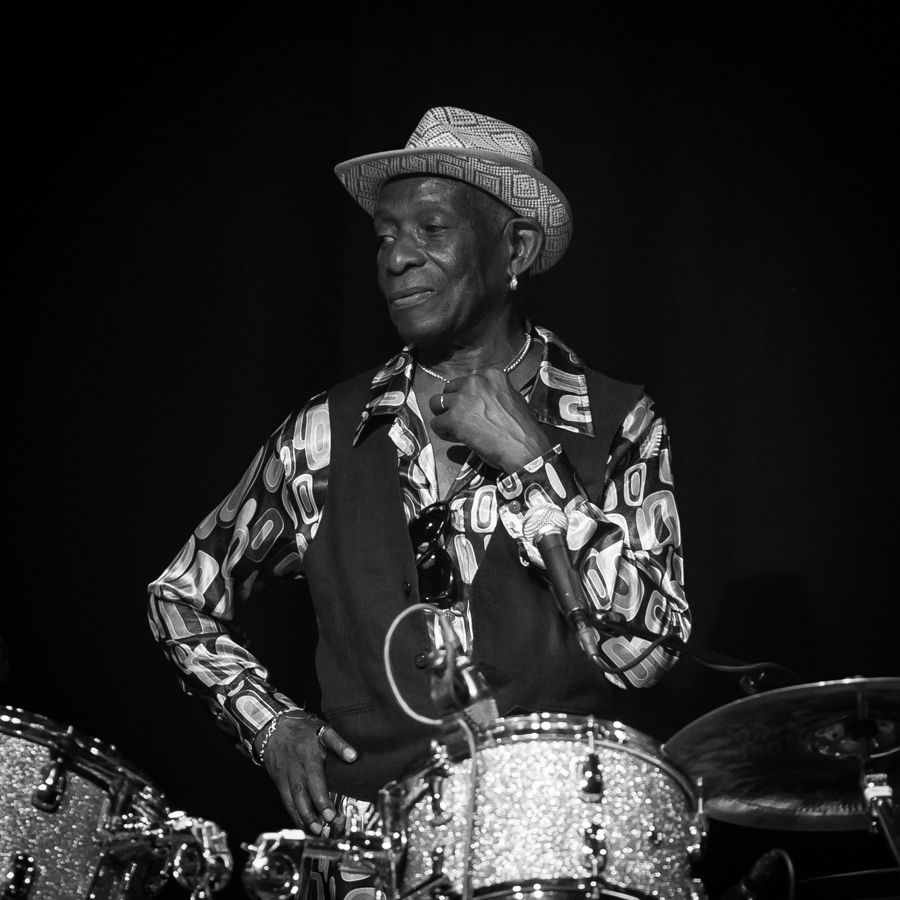
Author of the Image - Tore Sætre
“Without drums, there is no Afrobeat; it’s the pulse of the people.”
-
Brief Points Of Interest
- TONY ALLEN
Tony Oladipo Allen, hailed as the Master Drummer and co-creator of Afrobeat, left an indelible mark on global music. Born on August 12, 1940, in Lagos, Nigeria, Tony Allen was not just a drummer but a revolutionary artist who redefined rhythm and became the backbone of one of Africa’s most significant musical movements.
Although Tony Allen’s musical prowess eclipsed formal academic pursuits, his education came from the streets of Lagos and his relentless dedication to mastering percussion. He began drumming in his teenage years, influenced by jazz legends like Art Blakey and Max Roach, blending their techniques with traditional African rhythms.
In 1964, Allen joined Fela Kuti’s band, and together they developed Afrobeat, a genre that fused highlife, funk, jazz, and African percussions. His intricate rhythms became the heartbeat of Fela’s revolutionary sound, evident in iconic albums like ‘Zombie’ and ‘Water No Get Enemy’. Fela famously declared, “Without Tony Allen, there would be no Afrobeat.”
After leaving Fela’s band in 1979, Allen embarked on a solo career, releasing critically acclaimed albums such as ‘No Discrimination’ and ‘Secret Agent’. His collaborations with global artists like Damon Albarn (Gorillaz), Hugh Masekela, and Charlotte Gainsbourg showcased his adaptability and enduring relevance.
Tony Allen’s contributions earned him numerous accolades, including the *Ordre des Arts et des Lettres* from France for his impact on music and culture. Rolling Stone magazine recognized him as one of the greatest drummers of all time, solidifying his legendary status.
Beyond music, Allen was a mentor and a symbol of African resilience, inspiring generations of musicians worldwide. When he passed in 2020, the world lost a rhythm pioneer, but his legacy beats on. Tony Allen’s genius lies in his ability to make drums speak, creating timeless rhythms that celebrate African identity and unite global audiences.
STONEBWOY
Author of the Image - Gilbert Asante
“Positivity and growth are the rhythms of life.”
-
Brief Points Of Interest
~ STONEBWOY
Livingstone Etse Satekla, famously known as Stonebwoy, is a Ghanaian Afrodancehall artist, songwriter, and philanthropist who has elevated African music to international acclaim. Born on March 5, 1988, in Ashaiman, Ghana, Stonebwoy’s career is marked by his exceptional talent, resilience, and dedication to creating music that resonates with people across the globe. His mantra is reflected in his artistry and lifestyle.
Stonebwoy’s academic background underscores his intellectual depth. He earned a degree in Marketing from the University of Professional Studies, Accra (UPSA), balancing his education with an unwavering passion for music.
His breakthrough came In 2012 with the release of his debut album, ‘Grade 1 Album’, which showcased his versatility in reggae, dancehall, and Afrobeat. Subsequent albums like ‘Necessary Evil’ (2014), ‘Epistles of Mama’ (2017), and ‘Anloga Junction’ (2020) have further solidified his position as a global music icon. Hits like ‘Nominate’, ‘Tomorrow’, and ‘Run Go’ demonstrate his lyrical prowess and ability to blend traditional African rhythms with contemporary sounds.
Stonebwoy’s accolades are a testament to his artistry. He has won multiple ‘Ghana Music Awards’, including the coveted Artist of the Year, and made history as the first African dancehall artist to win a BET Award for Best International Act. He has also been recognized at the ‘AFRIMMA’, ‘MTV Africa Music Awards’, and ‘Nickelodeon Kids’ Choice Awards’.
Beyond music, Stonebwoy is a committed philanthropist. Through his *Livingstone Foundation*, he has supported education, healthcare, and youth empowerment initiatives in Ghana. His work as a United Nations Goodwill Ambassador for Sustainable Development Goals further underscores his dedication to creating a better world.
Stonebwoy’s ability to merge his cultural roots with global influences has made him a trailblazer in the music industry. As the undisputed king of Afrodancehall, he continues to inspire with his soulful lyrics, electrifying performances, and commitment to uplifting communities worldwide.
John H. Johnson

Author of the Image - Bettmann Archive
“I believe that living on the edge, living in and through your fear, is the summit of life.”
-
Brief Points Of Interest
- JOHN H. JOHNSON
Ebony and Jet magazines, founded by American businessman, publisher, and media magnate John H. Johnson, shaped African American media coverage. Johnson, born in Arkansas City, Arkansas, on January 19, 1918, overcame great poverty and racial restrictions to develop one of the most significant Black-owned enterprises in the US. African American history is shaped by his pioneering entrepreneurship, civil rights advocacy, and cultural leadership.
Early Life and Education
Despite financial hardships, John H. Johnson's mother, Gertrude Johnson Williams, instilled in him a strong work ethic and a love of study. In 1933, his family moved to Chicago, where he attended DuSable High. Academically gifted, he received a scholarship to Chicago University but switched to Northwestern University while working part-time.
While working at Supreme Life Insurance enterprise, he saw a shortage of African American newspapers and decided to launch a media enterprise. Johnson founded Negro Digest, a Reader's Digest-style Black magazine, in 1942 with a $500 loan from his mother, who used her furniture as collateral.
Building a Media Empire
Johnson founded Ebony magazine in 1945 after Negro Digest's success, making it the most read African American lifestyle magazine in the U.S. Ebony, modeled after Life magazine, covered Black success stories, entertainment, and social issues at a period when mainstream media neglected or misrepresented African Americans.
Johnson created Jet magazine, a weekly news, politics, fashion, and entertainment newspaper, in 1951. After publishing Emmett Till's brutalized body photographs in 1955, Jet became a key Civil Rights Movement source. By highlighting racial violence nationwide, this media helped galvanize the movement.
His leadership expanded Johnson Publishing Company beyond magazines into radio, television, books, and cosmetics. His economic empire inspired charitable giving and generations of Black entrepreneurs.
Johnson promoted civil rights in addition to publishing. Black voices were heard in his coverage of Martin Luther King Jr.'s speeches, the March on Washington, and the Montgomery Bus Boycott. He advised Presidents, supported civil rights, and empowered Blacks economically.
Johnson was the first African American on Forbes' 400 richest list in 1972. Mentoring future media entrepreneurs, he stressed self-reliance and Black economic growth.
John H. Johnson's journalism, business, and civil rights accomplishments transformed Black media and American culture. He died at 87 on August 8, 2005. His work inspires Black media and represents tenacity, ingenuity, and empowerment.
Award and Achievement List
Publishing and Business Success
His first publication, Negro Digest (1942), established Black media coverage.
Ebony Magazine (1945) became the leading African American lifestyle magazine.
Founded Jet Magazine (1951), a leading Black news and culture publication known for Civil Rights coverage.
Fashion Fair Cosmetics (1973), a famous Black women's beauty business, was launched.
The first black on Forbes' 400 Richest Americans (1972).
Johnson Publishing Chairman and CEO – Created the largest Black publishing company.
Awards and Honors
The highest civilian accolade from President Bill Clinton is the Presidential Medal of Freedom (1996).
NAACP Spingarn Medal (1966) for media and civil rights achievements.
1972 Chicago Press Club Publisher of the Year.
National Business Hall of Fame (1987).
First black GM board member (1985).
Media and Black empowerment achievements earned him a Congressional Gold Medal (2003).
Effect and Legacy
Black media was redefined by John H. Johnson's magazines celebrating African American success, culture, and difficulties. He was one of the most influential African American entrepreneurs in U.S. history, influencing economic empowerment and civil rights beyond journalism. His vision inspires Black entrepreneurs, media professionals, and racial equality advocates today.
Black Coffee
Author of the Image - Emma McIntyre, Getty Images for The Recording Academy
“When you get to the point when you truly believe in yourself, you are able to set up goals without fear and say this is what I want to do;
then you are being true to yourself.”
-
Brief Points Of Interest
~ BLACK COFFEE
Black Coffee, a South African DJ, record producer, and entrepreneur, is famous worldwide. He was born in Umlazi, Durban, South Africa, on March 11, 1976, and raised in Mthatha, Eastern Cape, where his love of music flourished. Black Coffee persevered in his musical career despite several obstacles, including a 14-year-long injury that immobilized his left arm. He pioneered deep house music, bringing South African electronic beats to the world.
Early life and career
Black Coffee began studying music at Technikon Natal (now Durban University of Technology). He honed his music production skills behind the scenes before venturing out. The 2004 Red Bull Music Academy in Cape Town introduced him to worldwide industry executives, his big break. His career began with a remix of Hugh Masekela's "Stimela" that year.
Black Coffee's 2005 self-titled debut album introduced his deep house sound, which mixed African rhythms with electronic music. The album made him a budding house music star in South Africa. He released "Have Another One" (2007), "Home Brewed" (2009), and "Africa Rising" (2012) in the following years, expanding his audience. His distinctive blend of Afro-house and soulful, mesmerizing beats set him apart.
Rise to International Fame
Black Coffee became one of South Africa's most influential DJs and producers by the early 2010s. His fame expanded beyond Africa to European EDM. He worked with Alicia Keys, Drake, David Guetta, and Usher to popularize African house music.
His 2015 album, "Pieces of Me," highlighted his career with hits including "We Dance Again" and "Come With Me." After the album's popularity, he went on an international tour to perform at Coachella, Tomorrowland, and Ibiza.
Black Coffee became the first South African DJ to hold a residency at Hï Ibiza, a renowned electronic dance music club, in 2017. Audiences loved his blend of African and techno beats, putting him apart in global house music.
Influence and Entrepreneurship
Beyond music, Black Coffee is a successful entrepreneur who has helped others. Soulistic Music, an African talent label, was his creation. He has invested in technology, fashion, and real estate to empower young African creatives.
His metaverse engagement in 2021, including NFTs and digital music distribution, garnered headlines. He wants to promote African music with Afrofuturism and digital innovation.
Personal and Philanthropic
Black Coffee supports African education, youth empowerment, and healthcare through his platform. Despite his busy schedule, he mentors young singers and producers to provide African musicians global venues.
His life is about resilience, invention, and shattering barriers. Despite personal and professional struggles, he remains a global electronic music icon. His house music, entrepreneurship, and commitment to African excellence made him a musical pioneer.
Awards and Honors
- SAMA 2010: Best Urban Dance Album for "Home Brewed."
- "Pieces of Me." won Album of the Year at the 2015 SAMAs.
- 2016 BET Award for Best International Act (Africa)—For his global impact.
- Ibiza 2016 DJ Awards: Best Deep House DJ.
- 2017 DJ Awards (Ibiza): Best Deep House DJ (second victory).
- DMASA 2018: Best International DJ.
- 2019 South African Music Awards International Achievement Award.
- 2022 Grammy for Best Dance/Electronic Album, "Subconsciously."
- The 2023 TIME100 Next List named one of the world's most influential people.
Legacy and Impact
Black Coffee redefined African electronic music. His blend of deep house, Afro rhythms, and electronic sounds has impacted a new generation of performers and made South Africa a dance music powerhouse. His entrepreneurial vision, support for African creatives, and philanthropy makes him; one of modern music's most influential personalities.
References
Packleader. (2025, January 28). Black Coffee - The Edition Broadsheet | Edition Hotels. The
Edition Broadsheet | Edition Hotels. https://theeditionbroadsheet.com/issue/issue-5/black-coffee/
Jimmy Carter
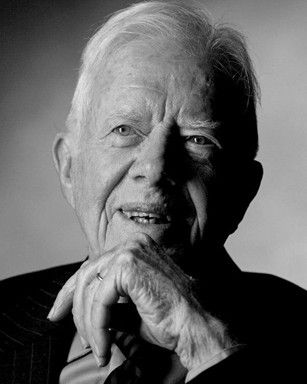
Author of the Image - David Hume Kennerly on Getty Images
“I have one life and one chance to make it count for something. I’m free to choose that something. That something—the something that I’ve chosen—is my faith. My faith demands that I do whatever I can, wherever I can, whenever I can, for as long as I can with whatever I have, to try to make a difference.”
-
Brief Points Of Interest
- JIMMY CARTER
The 39th President of the United States, Jimmy Carter, was noted for his humanitarian, diplomatic, and human rights work. Carter, born October 1, 1924, in Plains, Georgia, was raised by a small farming family. His background instilled a sense of duty, accountability, and religion that shaped his political and humanitarian views.
After graduating from the US Naval Academy, Carter became a submariner and assisted Admiral Hyman Rickover in the nuclear submarine program. He learned discipline and problem-solving skills in the Navy. He returned to Georgia to modernize and increase the family's peanut crop after his father died. He became more involved in local politics, pushing progressive racial policy in the segregated South.
Carter became a corruption-fighting reformer in the Georgia State Senate (1963–1967). After becoming Georgia governor in 1970, he promoted civil rights and administrative efficiency. After the Watergate scandal, he ran as an outsider for president in 1976, emphasizing honesty and integrity. His time as governor helped him become a dark horse.
Carter promoted human rights, energy policy, and Middle East peace talks whilst President (1977–1981). The Soviet invasion of Afghanistan, economic inflation, and the 1979 Iranian hostage crisis plagued his government. His greatest achievement as President was the 1978 Camp David Accords, a momentous peace pact between Egypt and Israel that lowered Middle East tensions. His diplomatic efforts enabled this.
Carter also pushed energy policy measures to promote conservation, renewable energy, and reduce American oil dependence. He established the Department of Energy and promoted alternative fuel research, laying the groundwork for environmental legislation. His government prioritized human rights and stopped aiding despotic nations that violated civil liberties.
The hostage crisis in Iran, where 52 American diplomats were held for 444 days, and economic problems marred Carter's administration. His failure to handle the matter before the 1980 election contributed to his loss to Ronald Reagan.
Carter redefined the position of a former President by dedicating his life to humanitarianism. In 1982, he founded the Carter Center for disease eradication, human rights, and conflict resolution. His global health endeavors, including nearly eliminating Guinea worm disease, have saved many lives. Carter also monitored elections in emerging nations to promote fair democracy.
In 2002, he got the Nobel Peace Prize for his lifetime dedication to human rights and peace. He also works with Habitat for Humanity, which builds homes for disadvantaged people worldwide.
Carter remained a moral leader who championed democracy, social fairness, and humanitarian causes until his later years. His life shows the power of morality, selflessness, and a relentless pursuit of world improvement.
Honours and Achievements
Presidential and political accomplishments
- Georgia Governor (1971-75): Promoted government reform and civil rights.
- From 1977 to 1981, the US President stressed diplomacy, human rights, and energy policy.
- Egypt and Israel negotiated the 1978 Camp David Accords.
- The 1977 Panama Canal Treaties gave Panama control of the canal, improving US-Latin American relations.
- Established in 1977, the Department of Energy enhanced U.S. energy policy.
- The Department of Education was formed in 1979 to modernize education.
- Millions of acres of protected territory were created through environmental preservation and national park expansion.
- Stop aid to authoritarian nations that continue to violate human rights.
Post-Presidential and humanitarian achievements
- Founded The Carter Center in 1982, promoting global health, democracy, and peace.
- Led global efforts to eradicate Guinea worm disease, reducing cases from millions to nearly none.
- Monitored elections in over 100 countries. ensured democratic fairness.
- Collaborated with Habitat for Humanity to build homes for disadvantaged people worldwide.
- Authored over 30 volumes on faith, democracy, and peace.
Honors and Awards
- Nobel Peace Prize (2002): Recognized for global humanitarian work.
- The Presidential Medal of Freedom (1999) is the highest civilian award in the US. The
- The Congressional Gold Medal (2011) honors lifelong service.
- Gandhi Peace Prize (1998): Honored for peaceful humanitarian action.
- The Jefferson Award for Public Service recognizes significant contributions to the public good.
References
Donica, A., & Piccotti, T. (2025, February 3). Jimmy Carter. Biography.
https://www.biography.com/political-figures/jimmy-carter
Contact Us
To find out more about our video and music productions, or to book us for an event, please get in touch.

This work is licensed under a Creative Commons Attribution-NonCommercial-ShareAlike 4.0 International License
Creative Commons Attribution NonCommercial-ShareAlike 4.0 International License.
© 2021 All Rights Reserved | Africare Productions | Reg. No. 13644846






